




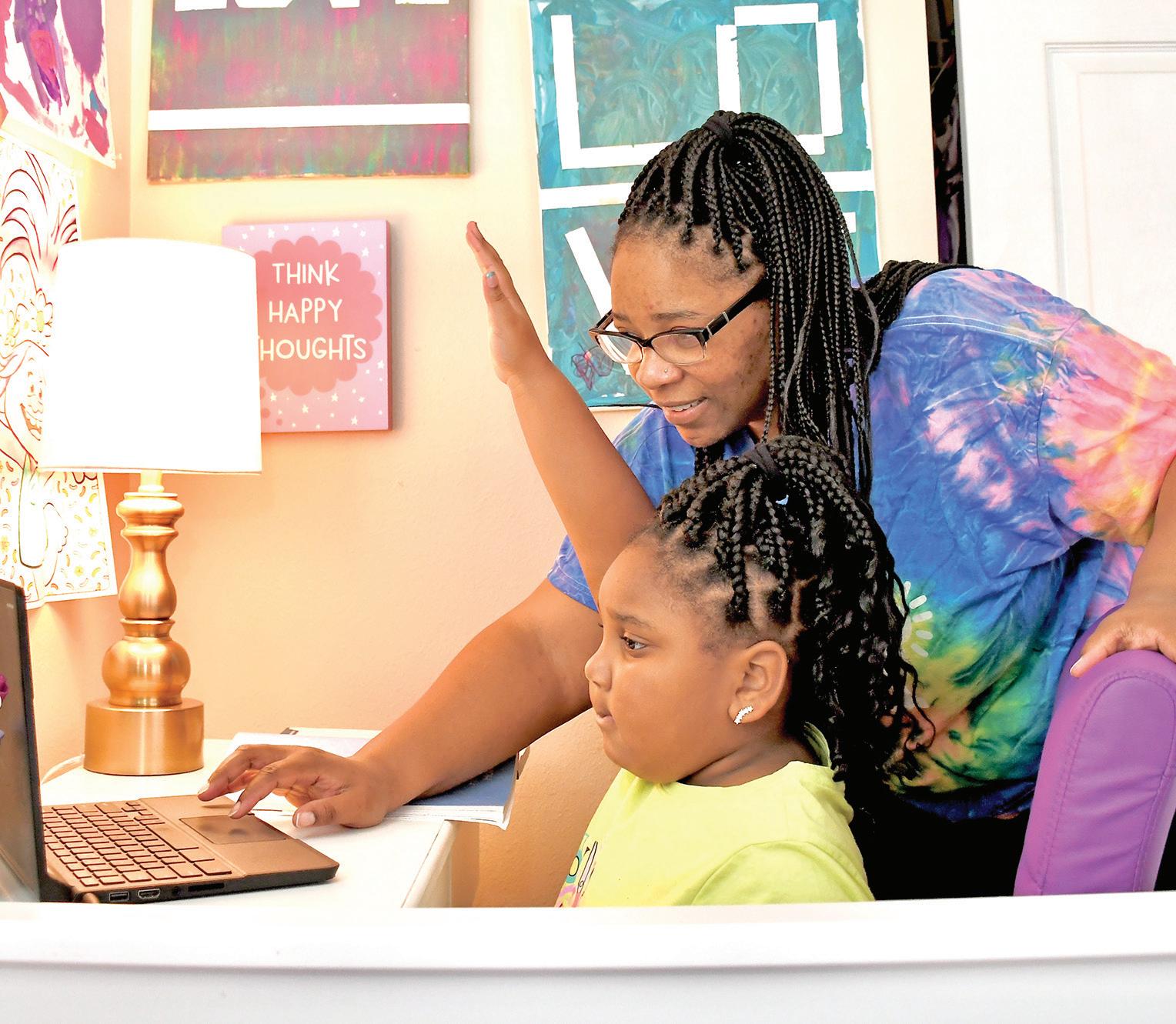
By Danielle Brown Of The St. Louis American
Like many parents, Gloria Washington has come to grips with what many are calling the new normal due to the global COVID-19 pandemic. As of July, Hazelwood School District has operated in a 100% virtual school mode. Washington’s daughter Blake Washington is a first grader at Jana Elementary in the dis-
trict. The transition from traditional classes to online-only has its challenges for Gloria and Blake. The systems don’t always properly work, an internet connection isn’t always there, and Blake, whom Gloria describes as a social butterfly, genuinely misses her fellow classmates.
After voicing her frustrations via Facebook to other parents, Gloria decided to create The
Support Lounge Facebook Group and Like pages with her good friend Rhonda Couch. The group allows parents and teachers to join in discussions on how to adjust to virtual school and provide tips and resources.
“I started this group because I realized after talking to other parents that it wasn’t just me stressed about virtual school,” Gloria said.
Midwest Innocence Project partners with MacArthur Justice Center
By Chris King Of The St. Louis American
Two advocates for the wrongly accused in Missouri and throughout the Midwest are joining forces to expand efforts to overturn criminal wrongful convictions.
The Midwest Innocence Project (MIP) and the MacArthur Justice Center (MJC) are partners in the new Wrongful Conviction Project, a project of MJC’s Missouri Office with MIP attor-
neys as co-counsel. Megan Crane, who co-directs MJC’s Missouri Office with Amy Breihan, will lead the project.
Crane has served as co-director of the Center on Wrongful Convictions of Youth at Northwestern Pritzker School of Law, the first organization in the world to focus exclusively on wrongfully convicted children. Previously, she was a capital post-conviction attorney exclusive-


‘I’m definitely going to the polls’ COVID provides incentive rather than deterrence to
young
Black voters
By Sylvester Brown, Jr.
Louis American
Of The St.

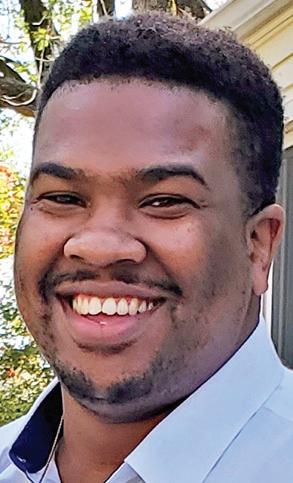
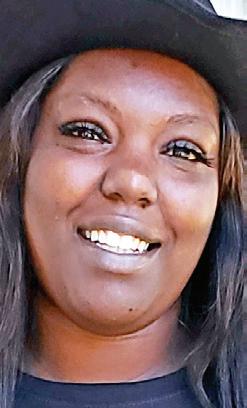
“Oh, I’m definitely going to the polls.” When asked if he was going to allow the fear of contracting COVID-19 deter him from voting, Steward Stiles III, 29, of Ferguson emphatically answered, “No way!”
“Of course, I’ll do the social distancing, I’ll have my hand sanitizer, mask, and everything else needed to protect myself and others,” Stiles said. “But, yeah, I’m voting.” Stiles, a music teacher at KIPP Victory Academy, fits the demographic of Americans (ages 18 to 29) who responded to a recent Harvard Youth poll indicating that 63% of them will “definitely be voting” next month. The findings indicate that youth turnout is on track to match or exceed the 2008 election, which was a watershed year in terms of young voters for Barack Obama. Results of the survey also mirror the “favorability” ratings of 12 years ago. In 2008, 59% of young voters favored Obama. In the Harvard poll, 60% said Joe Biden is their chosen candidate.
Stiles is among many young people who insisted COVID-19 will not stop them from voting. All are members or volunteers with Young Voices with Action, Inc., a nonprofit founded by Farrakhan Shegog, 29, to mentor, educate and support young people ages 14 and older.
American staff
Webster University is investing over $1 million to offer 10 students a full-ride Dr. Donald M. Suggs Scholarship annually, even as schools still cope with the COVID-19 economic impact.
The school awards the scholarship to academically talented undergraduate students from ethnic groups that are under-represented in higher education. The scholarship is in the name of Donald
WEBSTER, A7


Tim Norman pleads not guilty in alleged murder hire plot against nephew
“Welcome to Sweetie Pie’s” reality show star James “Tim” Norman of Jackson, Mississippi pled not guilty on Tuesday in the U.S. District Court for Eastern Missouri to federal charges related to the 2016 St. Louis murder of his 21-year old nephew, Andre Montgomery. Prosecutors allege it was a murder for hire plot in a failed attempt to collect $450,000 in life insurance.
No decision yet on whether Norman will be released until his trial. At the detention hearing as KSDK reported, Magistrate Judge Nannette Baker said she would take Norman’s request to be allowed to post bond “under advisement.” An exotic dancer and an insurance agent were also arrested in connection with the case.
10/10/20 wedding for RHOA star
“Real Housewives of Atlanta” star Cynthia Bailey and Mike Hill tied the knot in grand fashion Saturday during a lavish ceremony
in front of 250 guests, as People reported. Costars Kandi Burruss, Kenya Moore and former castmate Eva Marcille served as bridesmaids. Bailey and Hill took precautions due to the ongoing coronavirus pandemic, including a deep clean of the venue, temperature checks, hand sanitizing stations, mask requirements and spacing according to social distancing guidelines. The newlyweds told People, “10/10/20 is and always will be our perfect date… We are not perfect, but we are perfect for each other. Love with the help of God conquers all.”
Bobbi Kristina Brown’s townhome is up for sale

The 2,600 square-foot Alpharetta, Georgia townhouse where Bobbi Kristina Brown was found comatose from a drug overdose and died in 2015, is on the market for $599,000. As People reported, the listing reads, “Once owned by the incredibly talented Whitney Houston, own a piece of history.” A judge ordered Bobbi Kristina’s boyfriend, Nick Gordon to pay her estate $36 million after being found liable for her heroin overdose death. Gordon died on New Year’s Day this year, also of a heroin overdose.
Bobbi Kristina was the daughter of singer Bobby Brown and Houston, who died in 2012 of an accidental drowning in a hotel bathtub in Beverly Hills, California, with heart disease
and cocaine use reported as contributing factors.
Scarface needs a kidney after surviving coronavirus
Geto Boys rapper Scarface (Brad Terrance Jordan) took to social media on Oct. 7 to spread the word that he is in need of a kidney, following his battle with COVID-19 that permanently damaged his kidneys and left him on dialysis. “I need a kidney y’all any volunteers? B+ blood type,” he posted on Twitter, prompting thousands of likes and retweets. In a later tweet, he posted, “Just found out blood type don’t mat ter if you are a donor they will match me with my kidney in exchange so anyone can be a donor, can’t thank yall enough.”
Splitsville again for RHOA Porsha Williams and fiancé
Real Housewives of Atlanta’s Porsha Williams is off again from former fiancé, Dennis McKinney. Page Six reports that in a now





deleted Instagram story, McKinney said he was “SINGLE ASFK” and Williams commented on IG that she has “been single.” They reportedly have also unfollowed each other on social media. A 13-carat ring proposal in 2018 was tarnished by a cheating scandal several months later. Efforts to put the relationship back together apparently were unsuccessful. Williams and McKinney share a two-year-old daughter.
Obamas, Netflix team for ‘Ada Twist, Scientist’

And because we love all things Barack Michelle Obama, their production company, Higher Grounds Productions, is developing a new animated Netflix series based on the bestselling book by Andrea Beaty, “Ada Twist, Scientist.” As Mother Jones described, the main character Ada Marie Twist “is a young Black girl with an unstoppable curiosity and an innate affinity for the scientific method.
Sources: BET, Hollywood Life, KSDK, Mississippi Business Journal, Mother Jones, Page Six, People
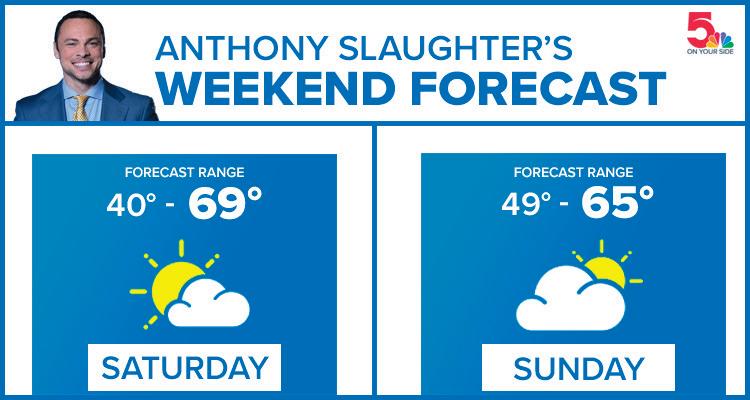





Marc H. Morial National Urban League
“Yet the harsh fact is that in many places in this country men and women are kept from voting simply because they are Negroes. Every device of which human ingenuity is capable has been used to deny this right,” President Lyndon Baines Johnson said in 1965.
“The Negro citizen may go to register only to be told that the day is wrong, or the hour is late, or the official in charge is absent. And if he persists, and if he manages to present himself to the registrar, he may be disqualified because he did not spell out his middle name or because he abbreviated a word on the application. And if he manages to fill out an application, he is given a test. The registrar is the sole judge of whether he passes this test. He may be asked to recite the entire Constitution, or explain the most complex provisions of State law. And even a college degree cannot be used to prove that he can read and write. For the fact is that the only way to pass these barriers is to show a white skin.” Deterrence: the action of discouraging an action or event through instilling doubt or fear of the consequences.

In 2016, the Trump campaign sorted millions of voters in 16 key battleground states into categories, also described as “audiences,” so they could
then be targeted with tailored ads on Facebook and other platforms. Black voters were sorted into a category titled “Deterrence.” These were the people the campaign wanted to keep from voting, according to Britain’s Channel 4 News. Facebook was flooded with negative ads, targeted specifically at Black audiences, designed to keep them at home on Election Day. Efforts to keep Black Americans from voting are nothing new, of course. For most of the century and a half since the Fifteenth Amendment declared the right to vote “shall not be denied on account of race,” the right to vote consistently has been denied on account of race. Nor is it breaking news that social media was a key tool used to suppress the Black vote in 2016. The largest part of Russia’s disinformation campaign was aimed at demoralizing and discouraging African Americans from voting, as the National Urban League’s State of Black American detailed last year. But the Channel 4 investigation revealed that overt contempt for Black voters was not just an undercurrent in the 2016 presidential race, but a key component of a one campaign’s official strategy. The revelation should impel every Black American to vote with might and main.
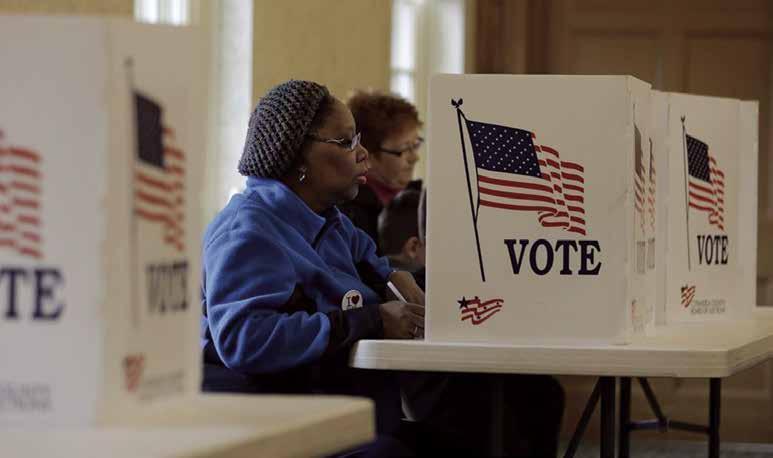
If you see intimidating behavior at the polls, report it (866-OUR-VOTE). Then vote.
“Deterrence” belongs on the same ash heap of history as the poll tax, literacy tests, and the “Southern Strategy,” along with other shameful voter suppression tactics still in use such as restrictive voter-ID laws, excessive purges of voter rolls, and the rampant shutdown of polling places in Black neighborhoods.
When President Trump urged his supporters during Tuesday’s debate “go into the polls and watch very carefully,” he was alluding to the expiration of a consent decree that has protected voters from intimidation at the polls since 1982. The decree was enacted after Democrats sued the Republican National Committee for send-
ing off-duty law enforcement officers as “ballot security” to New Jersey polling places in Black and Hispanic neighborhoods. A Trump campaign official was recorded last year saying the expiration of the consent decree was a “huge, huge, huge, huge deal” for the campaign’s election day operations in Wisconsin.
If you see intimidating behavior at the polls, report it (866-OUR-VOTE). Then vote. If you see a negative Facebook ad, research the truth. Then vote. Don’t allow any campaign to put you in a box marked “Deterrence.”
Marc H. Morial is president and CEO of the National Urban League
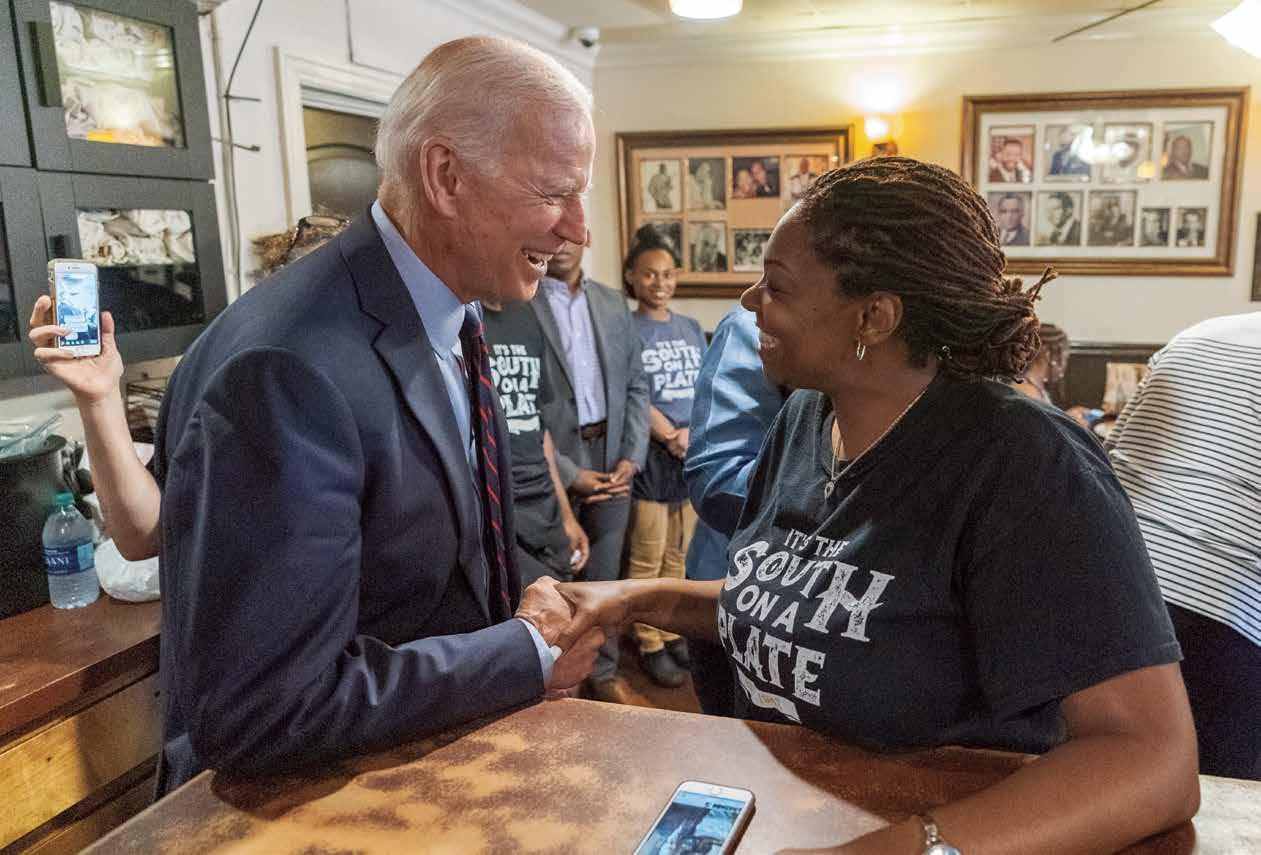
Joe Biden believes we cannot build back better without a major mobilization of effort and resources to advance racial equity across the American economy
Ensure all small business relief efforts are specifically designed to aid businesses owned by Black and Brown people.
Spur more than $150 billion in additional public-private venture capital and non-profit lending programs to minority- owned small businesses.
Reform Opportunity Zones to Fulfill Their Promise.
Ensure his housing plan makes bold investments in homeownership and access to affordable housing for minority families.
Boost retirement security and financial wealth for minority families.
The St. Louis American endorsed Nicole Galloway for Auditor in 2018 and declared that she may be the most competent and diligent auditor in the state’s history. We called her one of the most capable and accountable public officials we have ever observed in any statewide office in Missouri. Today, we stand by this belief.
In 2018, Galloway pulled off the only statewide Democratic victory in Missouri, running as an incumbent against a laughably incompetent Republican challenger. On November 3, she is running as a Democratic challenger against a laughably incompetent Republican incumbent. The latest polls that show the race is competitive. A strong turnout from the Democratic base – and a diminution of support for a demonstratively corrupt, indecent, inept and increasingly unhinged Donald J. Trump – could send Parson, a former sheriff and rancher, back to the cow pasture. St. Louis is at a crossroads. COVID-19 has devastated our community and exposed countless racial disparities in health and access to health care. Republican voter suppression efforts continue to restrain Missourians from participating in democracy. And the recent deaths of Breonna Taylor and George Floyd (among others) highlight the policing and criminal justice work that is left undone.
No one is going to be elected governor of Missouri running solely on an urban or Black Agenda, yet Galloway somewhat boldly has published an Opportunity Agenda for Black Missourians. It calls for executive and legislative bans on discrimination in Missouri. It mandates that 20% of the state’s Small Business Grants and other entrepreneurial investments go to minority-owned businesses, as well as for the formation of a state Department of Minority Business that will administer these investments. And it calls for an expansion of the pre-kindergarten grant program to disrupt the school-toprison pipeline from the beginning. She also would end the practice of asking job applicants about their criminal history.
Her Black Agenda also takes up the crucial issue of police reform. She calls for a statewide ban on chokeholds and the like, mandates for the use and activation of body cameras, limits on no-knock warrants in drug-related cases, and subpoena power for civilian oversight boards. She calls for an overhaul of the moribund Peace Officer Standards and Training (POST) Program that has allowed abuse of police power to continue unchecked in Missouri, with abusive officers drifting from department to department while keeping their licenses to abuse and kill with
impunity. Importantly, this would include the creation of an independent statewide Civil Rights Accountability Board with subpoena power to investigate and refer for prosecution violations of POST standards.
Even voters less focused on empowering Black people and protecting Black lives should embrace Galloway over the bumbling incumbent, who said the public does not “need government to tell them to wear a dang mask,” and then both he and his wife contracted COVID-19. Galloway’s record of protecting taxpayers and exposing fraud and her approach towards effective government – including wearing a mask in public and practicing social distancing as basic public health precautions that Parson foolishly flouted – offers the type of leadership we need in a governor.
Even before this global pandemic that is killing Black Missourians at a rate that is significantly higher than white Missourians, Parson kicked 100,000 kids off their state health insurance coverage, giving Missouri national headlines for endangering the health and welfare of children. Roughly a quarter-million working Missourians were already lacking health insurance, working jobs that don’t provide it, but earning too much to qualify for Medicaid. Because of challenges to health care access and affordability, Galloway supports Medicaid expansion. Parson does not. In August, voters had their say, but it matters dearly who is sitting in the governor’s office when it comes time to implement the program. And Parson’s support for overturning Clean Missouri by endorsing the reactionary Amendment 3 is a clear indication that he will not respect the will of voters. Having both a governor and a legislative majority aligned with a party willing to brazenly undo a ballot initiative passed by 60% of the voters shows the dangerous consequences of Republicans’ absolute political dominance in Jefferson City.
Galloway has been vocal on calling out disparaging voter suppression tactics that target Black voters, particularly the requirement that absentee voters get their ballot notarized. She also outlined a plan to make it easier for Missourians to actualize change through the ballot, with expanded vote-by-mail, early voting, and automatic voter registration. Unlike previous gubernatorial campaign we have witnessed in Missouri, Galloway not only says that “Black lives matter,” but has committed to a policy agenda that affirms it. We strongly endorse NICOLE GALLOWAY FOR MISSOURI GOVERNOR
By Ben Jealous For The St. Louis American
Millions of Americans have turned out in big cities and small towns to protest the killings of unarmed civilians— often Black people—at the hands of law enforcement.
If we want our demands for justice and accountability to lead to real policy change, we need to build on that activism by electing public officials with the commitment to reform law enforcement and the courage to act when police abuse the power of their badge.
In presidential election years, most of the energy and focus goes to the top of the ticket. And that’s essential this year. But we can’t ignore the fact that we have been through a spring and summer of traumatizing televised murders of Black people. We are still learning the truth about the deeply disappointing decisions not to indict police officers involved in shooting and killing Breonna Taylor in her own home. We need to make change at the local level, where those decisions are made.
People For the American Way has endorsed more than 100 young progressive candidates who have demonstrated dedication to creating public safety solutions that reflect the values of fairness, justice, and equal treatment under the law. The “Stop Police Killings” slate is designed to bring attention and support to candidates for local and state office who understand the impact of police killings on communities of color and who are passionate about pursuing justice.
Hundreds of applicants answered questions about personal
experiences that motivated them to stop police violence and their positions on policies and practices that limit unnecessary police contact, psychological screenings for police officers, removing problematic officers, recruiting good officers, reallocating police budgets, cultural competency and de-escalation training, and other issues.
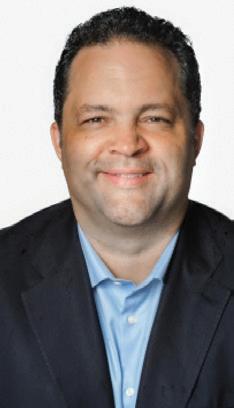
We have identified great candidates in key metro areas across 25 states. They’re running to become mayors, district attorneys, city council members, county commissioners, and state legislators. We’re proud of the candidates who made it onto our slate. It includes people like Stephanie Morales, Commonwealth’s Attorney for Portsmouth, Virginia, who successfully prosecuted a police officer who killed an unarmed Black teenager. “Public servants have a responsibility to protect their communities,” she said at a recent event announcing the slate. “The charge to imagine what public safety looks like in our country is long overdue, and I’m pleased to join this roster of incredible candidates to hold violent police officers who violate the law criminally accountable for terrorizing Black and brown communities.”
Christian Menefee, a candidate for Harris County Attorney in Texas, calls this “a pivotal moment in our country,” adding that “we
By Derrick Johnson For The St. Louis American
The NAACP submitted a letter to the Senate Judiciary Committee strongly opposing the nomination of Amy Coney Barrett to the Supreme Court. Coming in the middle of a presidential election in which over seven million people have already voted, the Barrett nomination is as illegitimate as it is corrupt. Instead of forcing a nomination onto our highest court, the Senate should address the harms of the global pandemic raging across the country and disproportionately affecting the lives and livelihoods of African Americans.
Under the “advice and consent” clause of the Constitution, the Senate must rigorously and meticulously scrutinize a Supreme Court nomination. Weeks and even months are necessary to fulfill this solemn duty. The Senate’s timetable here is designed to fail. Fast-tracking this nomination—even as individual Senators have contracted coronavirus—will deprive the American people of the public, exacting review that should be afforded to a lifetime
appointment to the Court. The next president should decide who sits on the Court.
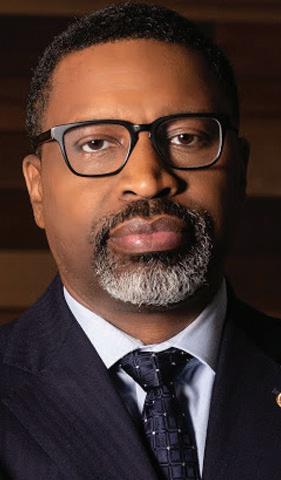
We have reviewed Amy Coney Barrett’s record on civil rights, including her writings as a law professor and her three years as an appellate court judge. On issue after issue, we have found her to be stunningly hostile to civil rights. Her aggressive view of when past decisions should be overruled, combined with her reactionary positions on what rights the Constitution protects, will jeopardize our hard-fought wins in the Court. Her scholarship questions even foundational principles such as whether the Fourteenth Amendment was properly adopted and whether Brown v. Board of Education remains viable authority. Her repeated endorsement of discrimination in the workplace—including the stunning conclusions that separate can be equal when it comes to race and that the
Trump’s wallet and us
Donald Trump’s tax returns show exactly why he has fought so hard to hide them. They paint a picture of a man who literally looks down at the working class from a golden penthouse at the top of his tower. Paying only $750 in federal income taxes while signing tax bills that double down and benefit the wealthy and corporations instead of working families shows exactly what Donald Trump cares about: his wallet.
cannot and should not sit on our hands waiting for the federal government to act. It’s time for local leaders to step up and protect Black and Brown communities.”
Brandon Scott, who is running to become mayor of Baltimore, says, “We can end police killings of unarmed civilians and begin to rebuild trust so that law enforcement is focused on doing the things necessary to keep all communities safe.”
Nakita Hemingway is running for the Georgia legislature to represent an area near to the spot where Ahmaud Arbery was killed. Her desire to make change has been influenced by her own interactions with the criminal justice system as a Black woman.
People For the American Way’s Next Up Victory Fund will support candidates in competitive races through donations, earned media support, social media, and engaging our members and activists.
I want to encourage everyone who wants to help bring an end to unjust police killings to take a look at our slate and find ways to support these candidates and others in their local communities who are committed to reimagining public safety.
We have changed the public conversation about policing and justice by taking to the streets. Now let’s change the laws and policies that are standing in the way of justice by taking the fight to the halls of power.
That’s what elections are for.
Ben Jealous serves as president of People For the American Way and People For the American Way Foundation.
By contrast, in 2018, the average Missourian paid nearly 7 times more in federal income taxes than the President of the United States did the year he was elected.
Joe Biden is running for president to help people, to help our country overcome a health and economic crisis made worse by Donald Trump lying to the American people in an attempt to save face. Americans deserve a president who is looking out for their best interests, not conning them.
Clem Smith, acting chair Missouri Democratic Party
Research the judges
Don’t forget to research the judges on the ballot. If we want a justice system that works for all the people, we must do the work. The ballot does not show their party affiliations. Get a sample ballot and look them up before you go to vote! Check out the library online or election office.
Roz Weathers St. Louis
True, but in a bad way
Mr. Trump threw out a carefully manicured barb during the debate that tells quite a story. The president accused Mr. Biden of being a do-nothing politician. His exact words were “I’ve done more in 47 months than you’ve done in 47 years.”
This may be true, but in a bad way.
Mr. Trump wakes up in the morning and after a few sips of coffee announces to his wife and the world that he will be issuing a new presidential decree.
use of racial epithets does not necessarily create a hostile work environment—mark a clear willingness to jettison longstanding civil rights precedents.
Sometimes it is difficult to discern the consequences of a confirmation from a nominee’s past writings and rulings, but not with Judge Barrett. And the stakes could not be higher. The rights of African Americans to fully participate in democracy and in every facet of social and economic life, on an equal basis, lie in the balance.
The NAACP has fought to protect the Supreme Court since 1930, when we helped to defeat a Herbert Hoover nominee to the Supreme Court. We will fight this illegitimate Trump nomination with everything we have because of the danger it poses to our civil rights and to the future of our democracy. At the same time, we emphatically encourage all Americans to vote. As the Supreme Court battle demonstrates, the consequences of this election could be not greater. Our voices must be heard.
Derrick Johnson is president and CEO of the NAACP.
Enacting laws is the job of the Congress, where more than 400 ladies and gentlemen have to debate and vote on them. Mr. Trump has taken over their job on his own initiative. Mr. Biden was in the Congress and in the Vice Presidency, so he had no ability to do anything singlehandedly during those 47 years.
The latest of Mr. Trump’s decree-laws is a program to send tens of millions of Medicare recipients a little cash right before the election to help them remember his name on voting day.
In 47 minutes of debate, I hope at least a few Americans decided Trump and his methods are not a good thing for the country.
Kimball Shinkoskey Woods Cross, Utah
Too much at stake
Justice Ginsburg was a champion for justice, equality, and health care for all. It’s unconscionable, and an insult to her legacy and our democracy, that President Trump, Senate Majority Leader Mitch
and
McConnell, and Senators Blunt and Hawley are trying to fasttrack a lifetime appointment to the Supreme Court while much needed COVID-19 relief continues to stall in Congress and as Missourians continue to suffer. Our rights, our health care, and our futures are on the line. Donald Trump has promised to only appoint justices to the Supreme Court who would overturn Roe v. Wade and will “do the right thing” on the Affordable Care Act by striking it down. We simply cannot trust Amy Coney Barrett, who has been an active and vocal threat to reproductive health care and openly critical of the ACA, to protect our health and rights.
Planned Parenthood Advocates in Missouri will do all we can to fight this nomination. There is simply too much at stake.
M’Evie Mead, director of Policy and
in Missouri




Scott Leonard of Glen
Illinois won the King of the Arch
in Madison, Illinois on Friday, October 2, during the all Mopar Express Lane NHRA Midwest Nationals for the Mello Yello Drag Racing Series. Leonard also is the track’s 2020 Motorcycle champion.
St. Louis County Library and the Miriam Learning Center partnered to provide free, in-person and virtual tutoring for children with special needs starting October 12 at five library branches. Free tutoring will be available to St. Louis County residents with special needs in grades pre-K–college through December 15. Students may receive a maximum of two 50-minute tutoring sessions each week.
Tutoring will be offered at the following locations, Monday through Friday, 9 a.m.-4 p.m.:
• Cliff Cave Branch 5430 Telegraph Rd.
• Daniel Boone Branch 300 Clarkson Rd.
• Florissant Valley Branch 195 New Florissant Rd.
• Headquarters 1640 S. Lindbergh Blvd.
• Rock Road Branch 10267 St. Charles Rock Rd. Tutoring also is available at Miriam Academy, 1138 Warson Rd. in Olivette, Tuesday and Thursday evenings, 5-7 p.m.; and Miriam School, 501 Bacon Ave. in Webster
Groves, Monday-Thursday 9 a.m.-8 p.m. and Fridays 9 a.m.4 p.m.’ The program is part of the Digital Equity Initiative, announced in July by St. Louis County Executive Dr. Sam Page and funded through the CARES Act. CARES dollars are limited and tutoring services are scheduled and provided on a first come, first serve basis until funding is expended.
“The pandemic has amplified the challenges faced by unique learners by making it harder for kids to interact in ways we know are important,” said Kristen Sorth, St. Louis County Library director. “This partnership will provide many families with the support they need in this challenging time.”
An intake form is available at http://bit.ly/ FreeMiriamTutoring. Individuals may also call 314-961-1500 to get more information or to register over the phone. Proof of income is required for participation.

By Michelle Tucker For The St. Louis American
Last week, I woke up laser-focused on introducing a new workout routine into my day. As a busy leader with minimal down time, I knew I had to quickly craft a step-by-step action plan to ensure my workout goals would be achieved. So that is exactly what I did. I had decided on weightlifting and boxing, so I reached out to an experienced personal trainer who operates out of a small, safe studio. His immediate reply overwhelmed me because the time commitment sounded impossible with my current schedule. It was now 8 a.m. My first work meeting of the day was about to begin. So much for executing my perfect workout strategy. I sunset the idea. My dreams of lifting and boxing were now in the rearview mirror.
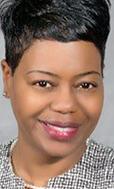
That night I was a bit overcome by guilt and began replaying the morning in my head. In a moment of reflection, I decided to ideate further and began to view “lifting” through a totally different lens. I recognized I had already been accomplishing this since a very early stage in my life. Though obviously not the same literal definition, the lifting I reflected on was the intentional focus on lifting others daily – a commitment I could absolutely continue making and even champion. You see, we all can identify accessible ways to lift others during normal times, and especially during challenging times.
Here are a few easy ways to successfully incorporate lifting others into our daily routines resulting in significant return on our unique personal investments.
Send gratitude letters, a handwritten note, or a quick text to thank people for their presence in our lives or for a kind gesture of support they recently offered. It may be just what they needed to hear or see at that moment.
Form a mentoring relationship with a young professional that you can help develop. If your organization does not have a formal mentoring program, why not try spearheading an initiative? Developing diverse talent at your company is a great way to start.
Agree to coach or sponsor someone who does not have the access you do. Become an advocate that helps accelerate their path to success. This is an excellent way to help grow and position some of the underrecognized talent in the St. Louis region.
Consider donating to local nonprofit efforts to help neighbors experiencing hard times and unexpected challenges or those disproportionately impacted by systemic challenges in our community. Discover additional ways your talent and time can be maximized through immediate volunteer efforts. Your support is desperately needed during these extraordinarily unprecedented times.
While I still plan to connect with a trainer to put my new boxing gloves to good use once things are much safer after COVID-19, for now, I am perfectly content with how I have redefined “lifting” for myself. I hope these ideas inspire you to do the same.
Michelle D. Tucker is president and CEO of United Way of Greater St. Louis.

“After sharing my frustrations on Facebook, I came across a video with someone saying we need to stop complaining about virtual school and remain positive around the children. I agreed that it was important to stay positive in front of the children, but I still felt there was a need to vent. The next day I posted that I was starting a support group for parents dealing with the same stress and, boom, The Support Lounge was born.” The district offers its own Parent University program with similar support opportunities. It features workshops, videos, and resources aimed at helping parents deal with the impact the pandemic has had on education. The program places a premium on stress relief activities. More information can be found at www.hazelwoodschools.org
child, and Gloria can provide her with her undivided attention. Before the pandemic hit, Gloria decided to leave her former employer. She realized she made the right decision because once she did the cases started rolling in more for COVID-19. She didn’t feel comfortable with sending Blake to daycare, so she took matters into her own hands and became a stayat-home mother to help her full-time with school.
n “I started this group because I realized after talking to other parents that it wasn’t just me stressed about virtual school.”
– Gloria Washington
Some parents work full-time from home and must tend to their children while they attend virtual learning. It’s difficult to juggle both for some, especially those with multiple children. However, Blake is an only
Continued from A1
ly representing individuals on California’s death row.
“This new partnership will allow us to serve even more wrongfully convicted people and reduce the number of years individuals must spend waiting before they see justice,” said MIP Executive and Legal Director Tricia Rojo Bushnell.
In Missouri, 49 people have been exonerated to date. But advocates believe
The Washingtons’ schedule starts at 8 a.m. with breakfast, and then they login into the school system at 8:45 a.m. The day begins with the teacher allowing room for any questions and any other sidebar conversations before class starts. Class starts promptly at 9 a.m. with the Pledge of Allegiance and announcements. As the day continues, Blake participates in electives such as gym and music. She is only given two breaks and lunch between 11:30 a.m. to 12:30 p.m. Her day ends at 3:30 p.m. By the end of the day, Gloria and her 6-year-old daughter are usually exhausted.
“Blake is still trying to adjust to the fact that this is school and process that the breaks are for using the bath-
there could be hundreds more innocent Missourians currently incarcerated for crimes they did not commit. The process of overturning a wrongful conviction is long, difficult and expensive.
“We recognized the need for more resources on the ground in Missouri to do the critical, but labor- and resource-intensive, work of investigating and litigating a wrongfully convicted prisoner’s actual innocence,” said Breihan. “We receive countless letters from incarcerated Missourians with compelling evidence that they are innocent.”
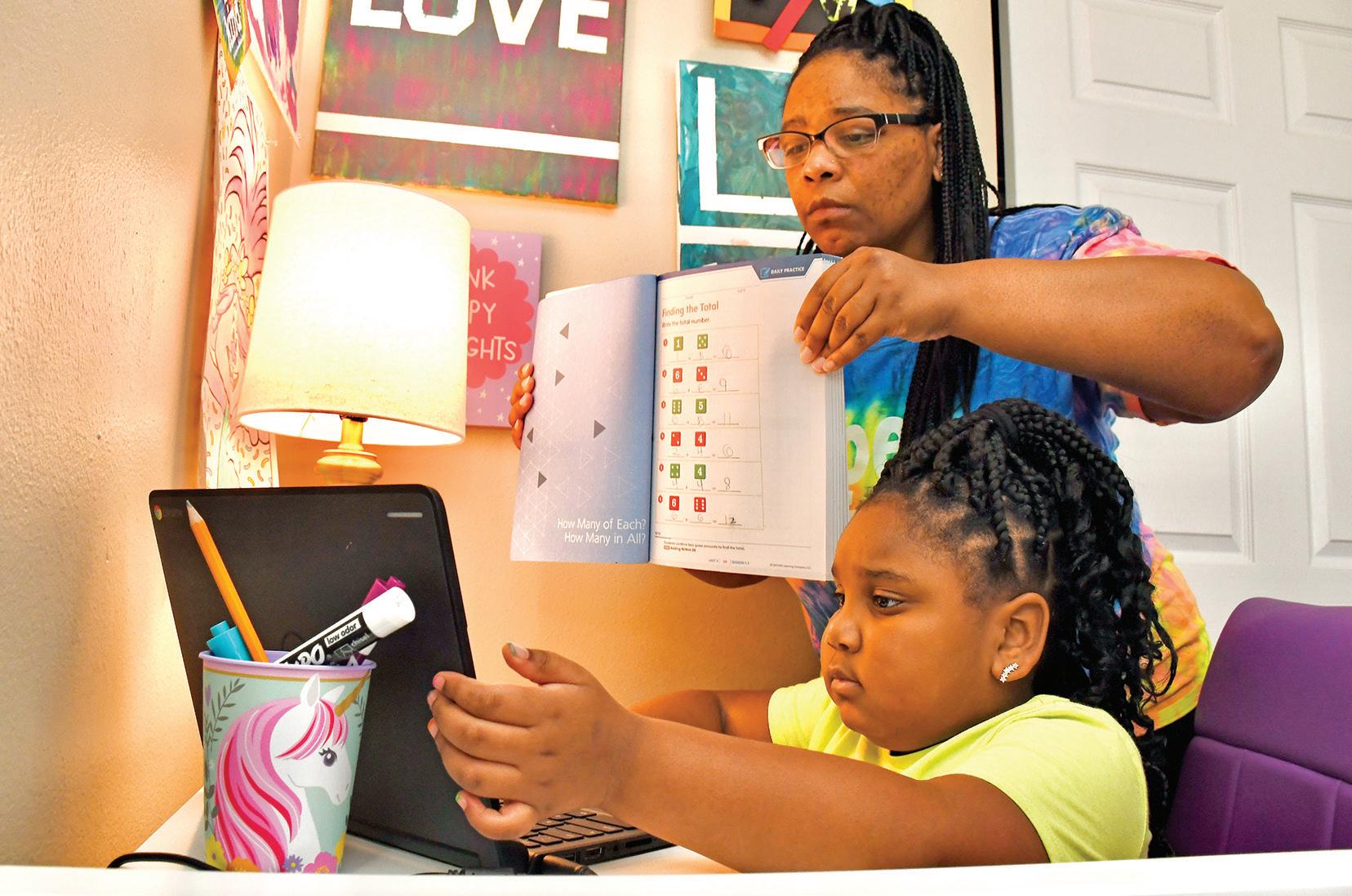
many parents,
come to
with what
room, not a five-minute play break,” Gloria said. “Having schedules for kids and sticking to it is very important.”
Once school is dismissed, Gloria logs into The Support
are calling
Lounge pages and dedicates her time to checking in with the other members. Topics in the group range from daily checkins, updates, positive affirmations to say to the children,
n “We receive countless letters from incarcerated Missourians with compelling evidence that they are innocent.”
– Amy Breihan, MacArthur Justice Center
Crane said she particularly looks forward to expanding MIP’s capacity to investigate and litigate cases of Missouri youth wrongfully behind bars. “Youth are at heightened risk of wrongful conviction and extreme sentencing for a variety of troubling reasons,”
Crane said. MIP and MJC have already teamed up on the case of one Missourian who they claim was wrongfully convicted as a child: Michael Politte. Michael was 14 years old when he was wrongfully charged with murdering his own mother in
relatable memes and more.
“My main advice is to stay positive and appreciate that fact that your child is healthy,” Gloria Washington. “You are not alone; we are in this
Hopewell. He was convicted and sentenced to life in prison solely on the basis of now debunked “arson science” that allegedly tied Michael to the scene, as well as testimony by police who interpreted adolescent Michael’s traumatized reaction to his mother’s death as suspicious evidence of guilt. His habeas petition asserting his innocence is available at https://tinyurl.com/MichaelPolitte.
A recent study by the National Registry of Exonerations revealed that more than half of all wrongful convictions involved
together. Speak positive things to your child and around your child. We are here on your good days and bad days. It’s okay to have a bad day. It’s okay not to know.”
government misconduct. The rate of misconduct in wrongful conviction cases is even higher when the defendant is Black, and this disparity is at its peak when Black defendants are charged with murder (78% rate of official misconduct).
“As an organization, MacArthur is focused on holding the state accountable for state-sanctioned misconduct,” Crane said. “This mission was a key motivation for launching our Wrongful Conviction Project.”
For more information, visit https://www.macarthurjustice. org.
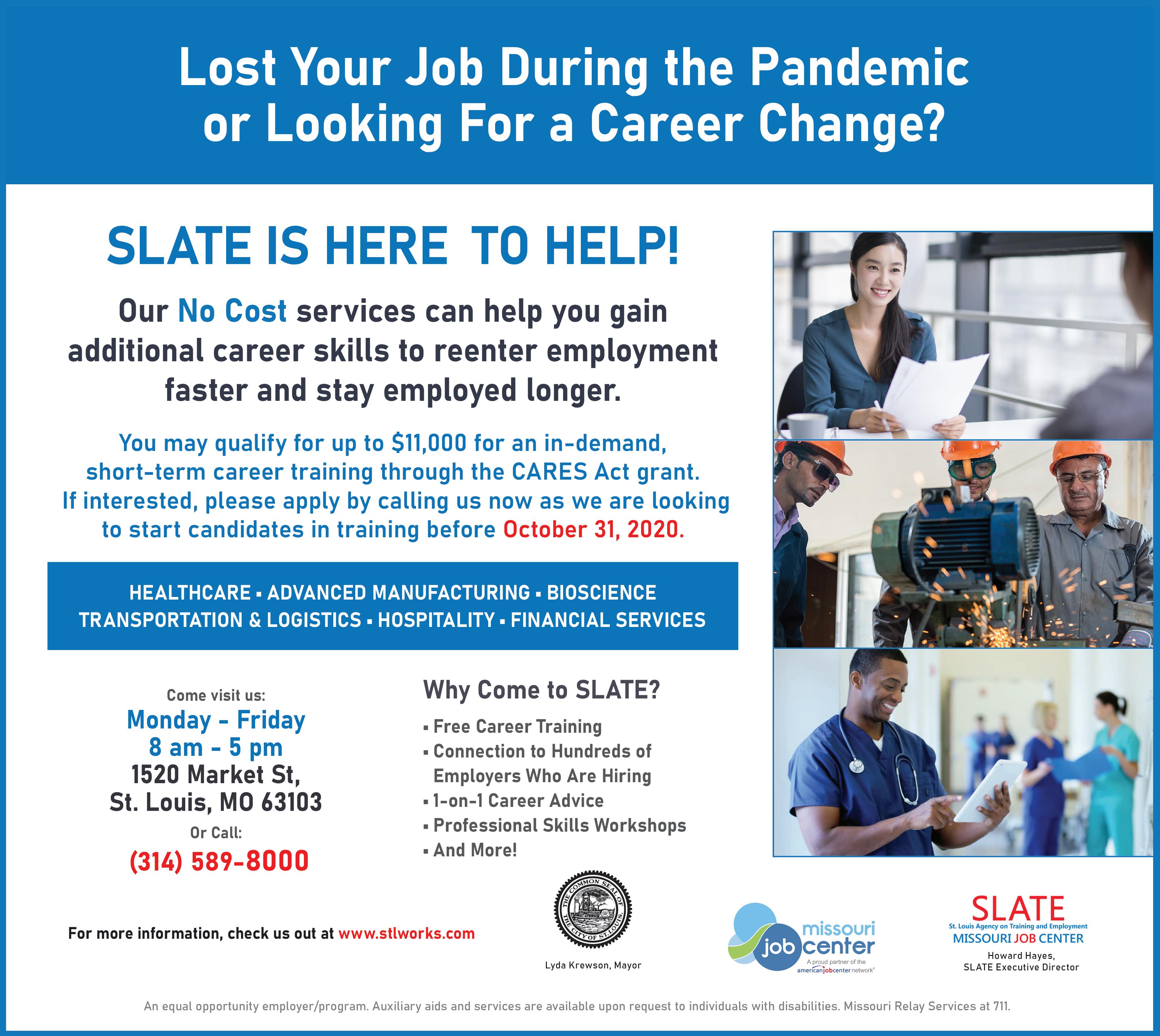
M. Suggs, publisher and executive editor of The St. Louis American.
Webster University began awarding two of these scholarships annually in 2013.
“We know these students are engaged and talented and will become leaders on campus,” said Chancellor Elizabeth Stroble. “We look forward to their contributions in the classroom and in the community during their time at Webster. We have confidence they will make their mark in their world when they leave us.”
Stroble said she met Suggs in 2009 when he was a member of Webster University’s Board of Trustees.
“I soon learned to tap into his wisdom, expertise and knowledge of the area to help me be a more effective leader,” Stroble said.
While Suggs is no longer a member of the board, Stroble considers him a mentor and advisor — one of the main reasons the scholarship was named after Suggs.
“He helped me to understand that we are living in a community with many challenges and issues, and each of
Continued from A1
Shegog, an aircraft inspector and quality-control expert who ran unsuccessfully in 2018 for state representative of House District 86, said he’s optimistic about his demographic’s turnout despite the chaos of the coronavirus.
“I’m energized,” Shegog said. “Every voter registration event, every public discussion on policy issues and at every debate, I’ve seen more and more young people involved. It’s because they realize that politics are everywhere and in everything. Scores of young people have registered and are determined to vote because not only is Trump on the ballot but so is healthcare, immigration and so many other important issues.”
Shegog speaks a statistical truth. More than 15 million Americans who have turned 18 are eligible to vote in this election. Analysts say that voter registration for people 18-to-24 is already higher in many states than it was in November 2016.
Andrea Cain, 22, fits the profile. The UMSL student and Normandy resident said the
us has to find a way to make it better, to follow his example of how to make it better however you can, and this is our way to make a difference,” she said.
The 10 new Suggs Scholars join a cohort of five who are still on campus and have already met one another in an online meeting.
“To have such large number of scholarship students will enable them to build a supportive structure among themselves,” Stroble said. “Now they will be able to create a peer mentor structure.”
The 10 recipients of this year’s Suggs Scholarship are a varied group.
Bolanle Akinyemi is from O’Fallon, Missouri, and is pursuing a biological science major with an emphasis in health & medicine.
Macheala Brock is from O’Fallon, Missouri, and is pursuing an education major with an emphasis in elementary education.
Jessica Echols is from Hazelwood and is pursuing an Instrumental Performance major.
Julliette Ferch is from Arnold and is pursuing a film, television and video major.
Khalisah Habeebullah is from Saint Charles and is pursuing a biology major with an emphasis in health sciences.
coronavirus hasn’t deterred her from voting. In fact, she said it has inspired her to vote and encouraged her peers to do the same.
“COVID affected many college students because campuses had to shut down,” Cain said. “When it came to sending relief money to college students, money from the CARES Act helped very few of us. This became a primary motivation for me choosing to vote this year. After this election, I would like to see more support geared towards college students.”
Colin Evans, 20, is a Chicago native majoring in criminal justice at Harris-Stowe State University. Evans said he’s working to become more politically active. He volunteers with Shegog’s group and serves as vice president of Black male initiatives with his fraternity, Phi Beta Sigma Fraternity Inc., Gamma Eta Chapter of St. Louis.
Evans was only eight years old when Obama was elected. He said the former president set a standard that’s yet to be matched by Trump. He wouldn’t say who he’s voting for, but did indicate it will not be the man who bungled the country’s response to the pan-

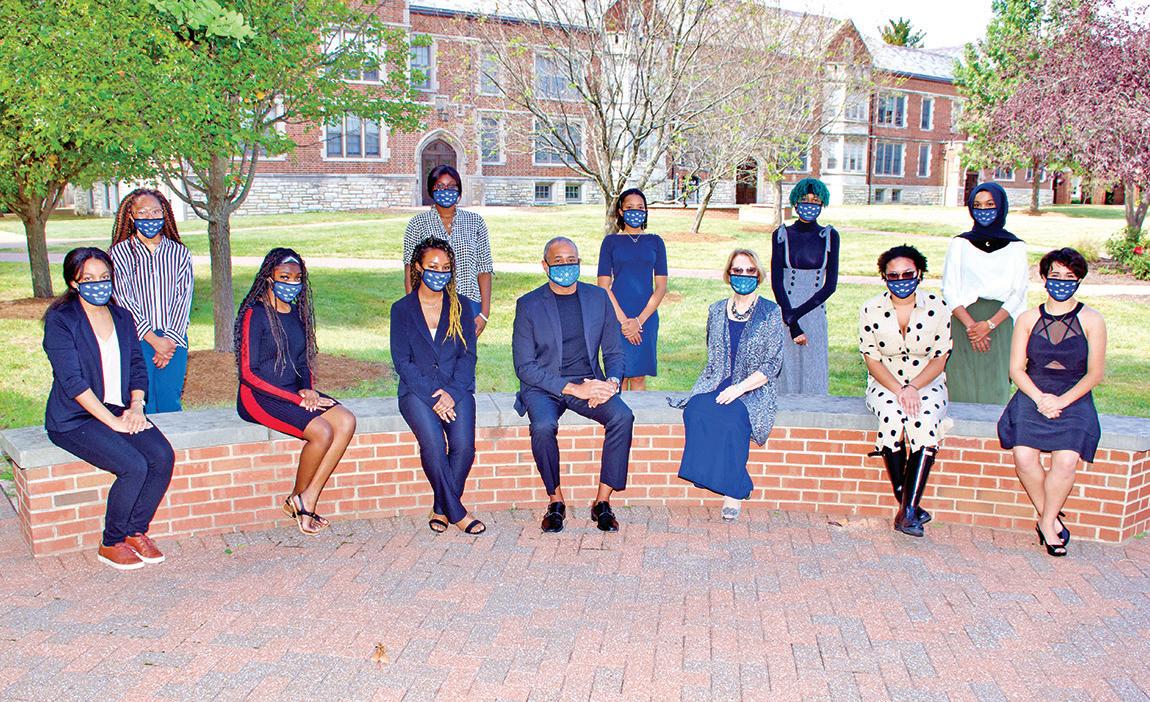
Joi Johnson is from Edwardsville, Illinois, and is pursuing an interactive digital design major.
Dashauna Mairidith is from St. Louis and is pursuing a biological science major with an emphasis in health and sciences.
Jalalah Muhammad is from St. Louis and is pursuing a biological science major with an emphasis in health & medicine
demic.
“This virus shouldn’t have made its way into our country the way it did,” Evans said. “It could have been prevented. I’m disappointed in the steps they made to get rid of the virus and get things back to normal.”
Jonetta Robinson, 27, a Ferguson resident and mother of an 8-year-old girl, said she’s voting because she simply doesn’t trust the government. She has been actively encouraging her family and friends to vote, get involved and change the face of politics.
“We need more Black faces in politics across the board,” Robinson said. “My goal is to get our people to understand the laws, what they’re trying to
Khyree Plair is from Black Jack and is pursuing a media communications major.
Naba Yasir is from Manchester and is pursuing a graphic design major.
This year’s recipients of the Suggs Scholarship not only represent diverse ethnic backgrounds but also diverse educational interests.
Naba Yasir, who is pursuing a graphic design major, was
pass and how they’re operating in this new world. We have to get involved. People have to research and not just vote but understand why they’re voting.”
Stiles said he’s voting for the return of stability in the White house. “Donald Trump has reduced the honor of the presidency,” Stiles said. “We’ve become a laughingstock to other nations. I want stability in our state government.”
Economic stability is another concern for Evans. “Our economy is capitalist-based,” Evans said. “The health of our people must be prioritized in order for us to buy things, purchase things. You can’t have a
all set to begin a degree in the medical field when she, at the last minute, decided to follow her heart instead.
“The finances of going to college has been a stressor for me throughout high school,” Yasir said. “Having a Suggs scholarship eliminated that stress, and I can now focus on my studies and career.”
Khyree Plair expressed similar concerns about paying
consumer-based economy with no consumers.”
Shegog said the combination of the coronavirus and police brutality has motivated young voters to make significant change with their votes.
“COVID-19 did not at all stop police oppression,” Shegog said. “George Floyd, Breonna Taylor and scores of other black men and women have been oppressed or killed during this pandemic. COVID just added more stress for our families and communities.”
for her education and was planning to begin her college career at a community college until she was offered the scholarship.
“I was at a loss for words, but extremely overjoyed,” Plair said. “This scholarship will be assisting me in becoming a profound African-American film director.”
Two Suggs Scholars –Olivia Perez and Joshua Tyler – have graduated from Webster University.
“The Donald M. Suggs Scholarship meant the world to me because I could pursue a college degree without constantly worrying about an extreme financial burden,” said Tyler. “I feel more confident about my dream to work in the video/film production field.” Tyler is now attending the American Film Institute in Los Angeles.
Perez was the first Suggs scholar in 2013 at Webster University and is now a professional dancer in Los Angeles.
“Had I not received the honor of the Suggs scholarship I probably would not have been able to finish school,” Perez said. “To this day, I look at it as a turning point in my life and a testimony as to how God can open doors for you that you couldn’t imagine.”
“COVID punched us in the gut,” Shegog said, “but it didn’t knock us down.”
Sylvester Brown Jr. is The St. Louis American’s inaugural Deaconess Fellow.
The upside of the virus, Shegog said, is that it forced young voters to pay more attention and note how Black people have suffered most during the pandemic. This activated group, he said, now realize that their issues and concerns are still on society’s back burner. His generation, born at the dawn of media technology, Shegog added, have mastered its use and have already inspired protests, uprisings and racial solidarity around the globe through social media. His “more radical, more exposed, more conscious” and more politically engaged generation, Shegog said, has not been deterred by the pandemic.

By Chris King Of The St. Louis American
The Lawyers’ Committee for Civil Rights Under Law has created a post-cannabis conviction toolkit to provide a comprehensive overview of three main approaches states can use to begin to repair the social, political and economic consequences of marijuanarelated criminal records. The toolkit also provides attorneys and advocates with resources to determine whether their states permit the expungement, sealing, or vacating of these records while also highlighting tools for advocates seeking local reform.
The War on Drugs has
disproportionately harmed Black Americans and other marginalized communities, and a prior marijuana conviction is a major barrier to accessing the much-needed opportunities and resources to advance their quality
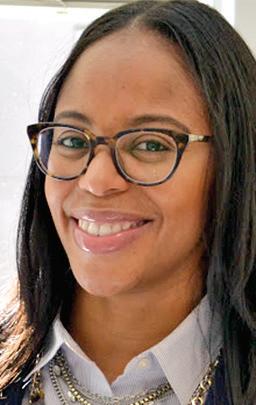

of life, leading to a continuous cycle of economic hardships. These individuals cannot receive public benefits, apply for student loans or secure a well-paying job.
The toolkit provides three plausible legal routes — expungement, sealing, and vacating — one can take to begin repairing the consequences of marijuana-related records on vulnerable communities. Varying state laws, immigration consequences, and the expense of record expungement are all things that must be considered when determining the best strategy for either expunging, sealing, or vacating records.
“Over the past few years, significant progress has been made to address the expungement of certain cannabis-related convictions. States like Delaware, Hawaii, Illinois, and Washington, among others, have voted to authorize record relief for cannabis offenses. New Jersey, Illinois, and New York have authorized automatic processes,” the Lawyers’ Committee noted.
“We encourage everyone to explore creative options within your own jurisdictions. We also encourage advocates to help uplift the importance of automatic expungement within states. The Expungement Now: A Post-Conviction Toolkit for Attorneys and Advocates, provides messaging tools, facts, sample tweets, and tips for writing and placing an op-ed in a local newspaper to assist local advocates who seek reform.”
Sample tweets include:
• People use cannabis at
roughly the same rate, yet
a Black person is almost 4x more likely than a white person to be arrested for possession of cannabis. This is why automatic expungement for those with cannabis-related charges is so important for communities of color.
#mjexpungementnow
• With a clean record, individuals have more access to housing, employment, education and other benefits to build and sustain a stable life.
#mjexpungementnow
n With a clean record, individuals have more access to housing, employment, education and other benefits to build and sustain a stable life.
• The negative ripple effects of a marijuana charge are insurmountable. A criminal record can hold someone back from housing, jobs, benefits, and more. That’s why automatic expungement must be included in all marijuana legalization efforts, to put communities ravaged by the War on Drugs first.
#mjexpungementnow
• Automatic marijuana expungement laws shift the burden from individuals to the state to determine who is eligible for expungement. Decriminalization is not enough; we must aim higher.
#mjexpungementnow
The tips for writing an op-ed are:
• Make the case for why your voice matters. Be sure to provide biographical information, relevant credentials and/or how the issue impacts you or your community.
• Be timely. For state and local newspapers, be sure to tie the op-ed to local information about cannabis expungement, including current laws and any efforts to change these laws.
• Structuring your op-ed: Frame the problem. Clearly state your thesis (main point). Try to use three pieces of supporting evidence; these can be anecdotes, statistics, and/or examples that resonate to best support the thesis. Acknowledge the main opposing arguments to ensure that you address any questions the reader may have. Provide the solution. Succinctly close the op-ed by reiterating your main point.
“Although marijuana has become decriminalized in a number of states, Black Americans still cannot acquire the benefits of post-conviction relief,” said Tianna Mays, an attorney with the Criminal Justice Project at the Lawyers’ Committee for Civil Rights Under Law.
“Those who have been previously convicted of cannabis-related crimes struggle to get jobs, find housing, and become licensed for professional vocations. With expungement becoming more accessible, we must ensure that Black Americans receive their fair share of conviction relief. The fight for racial justice and equality needs the support of attorneys and advocates.”
Read the tool kit at https:// tinyurl.com/Expunge-kit


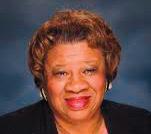
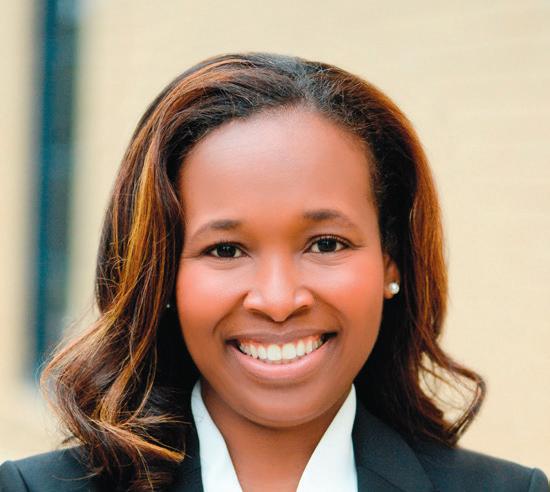
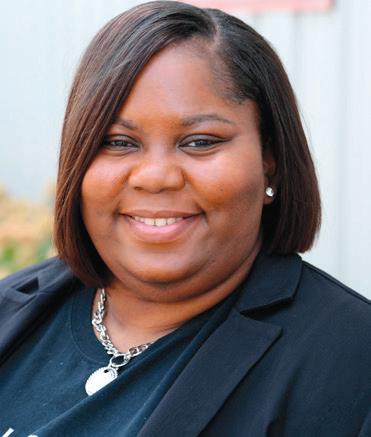


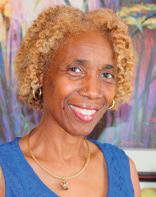


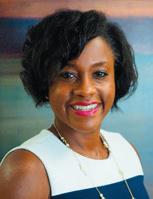


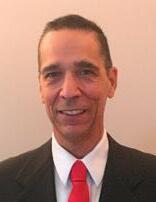


























St. Louis County Council members will not vote until next week on whether to accept a $2 million grant to ensure local election officials have enough staffing, training and equipment to administer the November 3 election.
The grant, funded by Chicago-based Center for Tech and Civic Life (CTCL), is one of several awarded to election boards in the area and throughout Missouri to help with extra costs the COVID-19 pandemic has created for the election. The CTCL received a $250 million donation from Mark Zuckerberg and his wife, Priscilla Chan, which is being re-granted to local election authorities throughout the country.
Fey said if the county exceeds the election budget, the board would ask the council to approve a supplemental appropriation. So he argues this $2,048,474 grant will help them avoid going to taxpayers for more money to run the election.
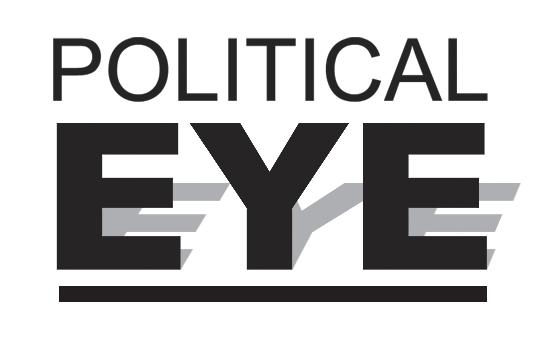
Democratic Director of Elections Eric Fey said the St. Louis County Board of Election Commissioners applied for the grant in early September in a bipartisan effort with Republican Director of Elections Rick Stream
“The main things we plan to use it for is the additional overtime costs, the additional cost of temporary employees we have hired and to give some additional hazard pay to the poll workers,” Fey said. “We also have had some pretty significant increases in our mailing costs because of the increase in mail ballots because this election was budgeted for back in 2019 prior to COVID … and we have some relatively large costs that we did not budget for this year.”
However, Republican council members and Democratic Councilwoman Rita Heard Days blocked a procedural vote to expedite the bill’s passage at last week’s council meeting. Many residents have expressed concerns in public comments about accepting the grant money due to perceived left-leaning views of the CTCL.
“I don’t see any evidence of that,” Fey said. “We’ve dealt with CTCL a number of times in the past in St. Louis County, a lot of Missouri counties have, and the information and services that they have provided to us and other Missouri counties seemed to be pretty nonpartisan.”
He noted the CTCL typically helps with the nuts and bolts of assisting an election administrator — setting up election websites, social media accounts and other similar services.
Numerous public comments at the October 6 St. Louis County Council meeting alleged the CTCL is a leftwing organization that harvests ballots and blamed St. Louis County Executive Dr. Sam Page for trying to rig the election in his favor.
Seventy-seven public comments came in Tuesday during

for an additional $2 million if they don’t accept the grant, there is potential the St. Louis County Election Board will need to ask for more money, possibly about a half-million dollars. He also noted the grant would allow the county to recoup election costs from as far back as June 2020, meaning money would essentially be returned to the county’s general revenue. In response to the public comment concerns about the grant money having an influence on the election, Councilman Ernie Trakas asked Stream and Fey if there was a deadline to accept the grant and if they could accept the money after the election and pay expenses after they’ve been incurred.
Fey said they would like to have the money as soon as possible to pay for the expenses and if they don’t get the money, they will have to ask the taxpayers to supply the funds.
a special meeting on the election board budget and CTCL grant, with almost all comments urging the county to reject the grant, with many citing concerns about ballot harvesting.
Both Fey and Stream said using this grant could not result in ballot harvesting and that the only strings attached to the grant money is it must be used for election expenses in this year. Stream also emphasized in Tuesday’s special meeting that the process has been a completely bipartisan effort.
On the CTCL’s website, several organizations are listed as contributing funders including Google, Facebook, Knight Foundation and the Democracy Fund.
“I unequivocally support this [grant],” Chairwoman Lisa Clancy said. “St. Louis County, like every jurisdic-
tion in this year’s election, has additional needs because of the challenges of the pandemic, and this is an opportunity to get some resources that we don’t have budgeted to help us implement a smooth election. And to make sure we are doing everything that we can so that our St. Louis County voters can vote without any issues.”
The CTCL’s website states it harnesses “the promise of technology to modernize the American voting experience” in an effort to develop such goals as high-performing election offices, increased public confidence and trust, and betterinformed voters.
The City of St. Louis has accepted a $1 million grant and the Missouri Secretary of State Office – run by Republican John “Jay” Ashcroft received $1.4 million from the organization.
Because where you get your mammogram makes a difference.
Trust starts with a dedicated team of Washington University radiologists and radiology technologists affiliated with the internationally recognized Mallinckrodt Institute of Radiology, who specialize in mammography and interpret more than 50,000 exams every year. That’s all they do, all day, everyday. They are mammography experts with the skill, expertise and experience only a national leader can deliver. In these uncertain times, be certain about your breast health and schedule your mammogram today. Call 800-600-3606 or visit SitemanMammogram.wustl.edu


“We should do everything possible to ensure elections are safe during a pandemic, protecting poll workers and voters,” Page said in a statement. “Other Missouri counties have accepted this grant, and we should too.”
Councilwoman Rita Heard Days emphasized in the special meeting Tuesday that there were Republican counties in Missouri who have accepted CTCL grants.
“To have this in a Democratic-Republican aura, I think is very misleading to a lot of people,” she said. “This money is going to come from somewhere because we are going to have to pay these people in order to work [at the polls]. We have confusion out there about who has to notarize their ballots and who doesn’t. And so, there is some educational component that is going to be need for this as well.”
Even so, this grant come at a time when several local governments are facing lawsuits after CTCL distributed grants to 385 election departments across Michigan and $6.3 million in grant money to five Wisconsin cities.
During the special meeting Tuesday, Councilman Tim Fitch asked Fey and Stream if the county in the past had accepted grants or other money from private entities. They said they could not remember a time when there was even an opportunity to do so.
“I don’t see conspiracies here — I don’t see it as a Republican or Democrat issue,” Fitch said during the meeting. “My only issue is private money coming in to fund our elections.”
Fey says that while they may not need to go to the council
“In order to incur some of these expenses, like extra employees and so forth, we’re just essentially having to do budget amendments to move money from other places in our budget,” Fey said. “And then, once, hopefully the grant is approved, we would then reimburse those things. So, at some point, probably before the election, we will kind of run out of money to move. So, we may come to a point where there are some expenses we can’t undertake because of that.”
Trakas emphasized the point that there is nothing legally preventing the board to accept the grant money, arguing it would ameliorate concerns about CTCL influence on the county’s election. Fey responded that logistically he did not view waiting to accept the money as a possibility.
Fey also noted he did not feel like the concerns about partisan influence and ballot harvesting presented by public commenters were reasonable.
In an email to council members earlier this month, Fey wrote that Clancy indicated a willingness to suspend the rules and expedite the legislation process of accepting the grant if the council is unanimously in favor of doing so. The council did not unanimously agree to that last week or this week.
On Tuesday, Councilwomen Clancy, Days, Rochelle Walton Gray and Kelli Dunaway voted to finalize the bill to authorize Page to accept the grant. Fitch and Trakas voted no. Councilman Mark Harder was absent.
The bill will be up for final passage at next week’s St. Louis County council meeting.
“This should not be a partisan issue,” Clancy said. “This is about our fundamental right to exercise our vote and to make sure that goes smoothly given the additional challenges the pandemic has presented for voting.”
– Reported by Dana Rieck

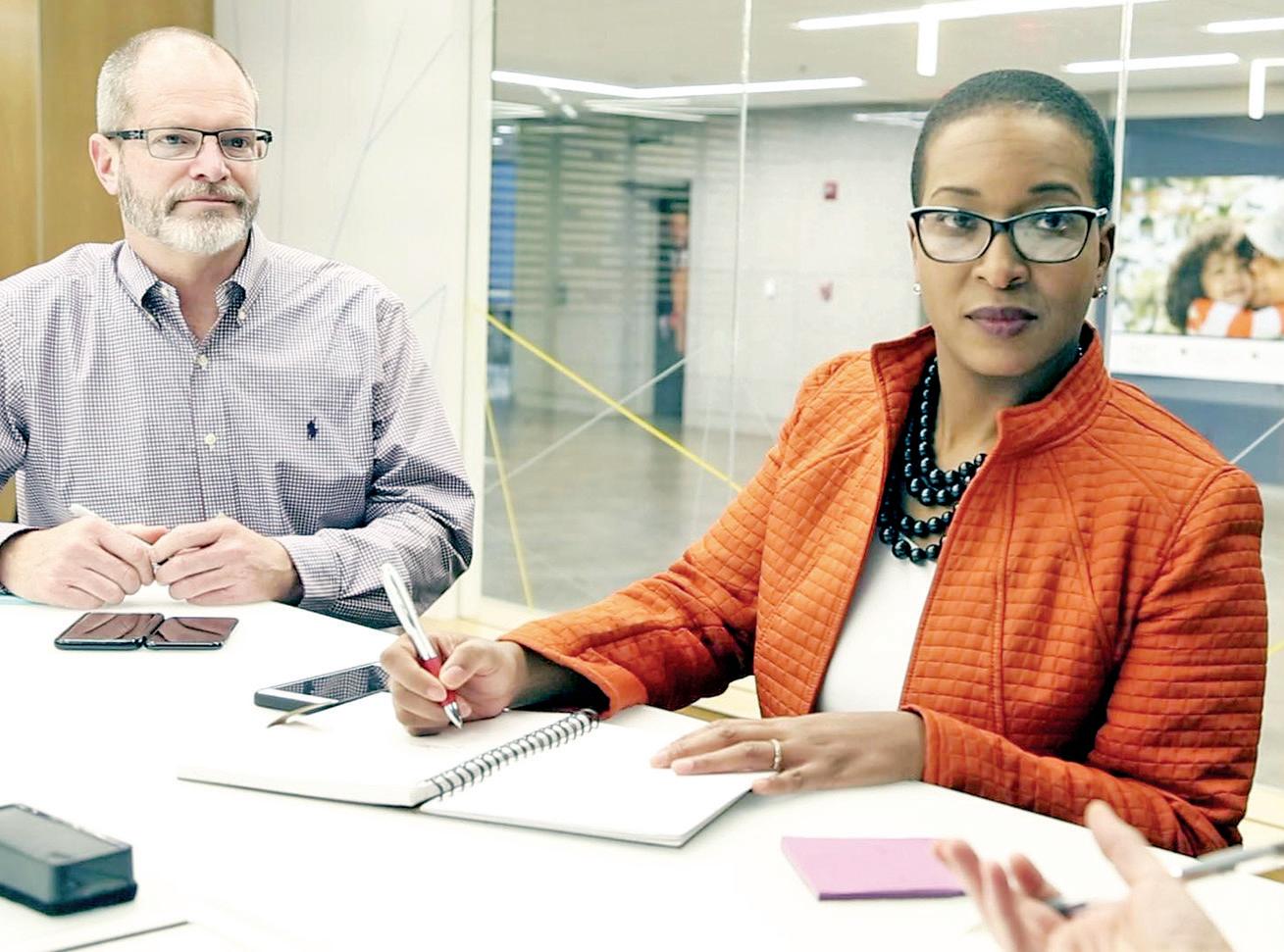
Regional Arts Commission is region’s largest public funder of the arts
By Chris King Of The St. Louis American
Vanessa Cooksey joined the Regional Arts Commission of St. Louis (RAC) as president and CEO, effective November 2. RAC is the largest public funder of the arts in the region.
“I’m excited to bring all of my professional expertise, experience and networks as well as my life-long love of the arts to an organization that envisions a full creative life for every St. Louisan,” said Cooksey.
n “I look forward to partnering with all of RAC’s stakeholders to overcome the present challenges facing the arts and culture community.”
– Vanessa Cooksey
“I look forward to partnering with all of RAC’s stakeholders to overcome the present challenges facing the arts and culture community. RAC has a very important role to play in building the capacity of our artists and arts organizations to support St. Louis’ long-term recovery and sustainability.”
Cooksey brings to RAC more than 25 years of business and civic experience, with marketing, communications and philanthropy leadership positions across a variety of government, non-profit and for-profit organizations. Her previous experience includes roles with Wells Fargo, Anheuser-
Busch Inbev, The City of Atlanta Mayor’s Office and Cartoon Network. In her most recent position at Washington University, Cooksey was responsible for developing professional and continuing education outreach programs for University College.
“One of my personal prayers is ‘Lord, help me to not ever have my privilege outpace my humanity,’ so that I can be in any space and connect authentically with people,” Cooksey told The St. Louis American in 2018 when she was recognized as the St. Louis American Foundation’s Corporate Executive of the Year. “Because what I really want is if someone’s had an interaction with me, that they feel better because I showed up.”
Cooksey was then senior vice president of Community Relations and Corporate Responsibility at Wells Fargo.
“Vanessa has a reputation as a strategic grantmaker, team builder and widely respected leader throughout our community,” said Mont Levy, chairman of RAC’s Board of Commissioners. “She brings her high-energy
Child care facilities impacted by COVID-19 must apply by Nov. 15 for reimbursement from a $10 million state emergency relief fund. Costs associated with necessary COVID-19 expenditures between March 1 to December of this year can be reimbursed. This includes personal protective equipment, additional staffing, overtime and hazard pay, or for loss of revenue associated with business interruption. Child care providers impacted by COVID-19 must submit their requests for reimbursement and they must be approved by the Division of Regulation and Licensure within the Department of Health and Senior Services. Qualified providers will receive instructions from DHSS on how to apply for these funds. Applications must be submitted for reimbursement by Nov. 15. To find out more about the state’s reimbursement process, including FAQs and an instructional video, visit https://tinyurl.com/MO-Child-CARES.

By Chris King Of The St.
Louis American
Steven Player will take on the newly created role of vice president of diversity, equity and inclusion for BJC HealthCare on November 1. The role was created to advance BJC’s mission to provide equitable, culturally aware care for all patients and ensure a diverse, culturally competent workforce.
Player currently serves as executive director of diversity, inclusion and community engagement for BarnesJewish Hospital, where he oversees diversity and inclusion education, extensive language services and works to ensure that BJC’s exceptional care is equitable for all.
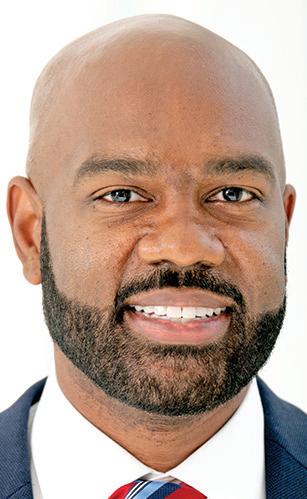
n “When you look at ethnic and cultural diversity in STEMbased professions, it’s not there.”
– Steven Player in 2017
Player’s background is as a pharmacist. He originally joined BarnesJewish hospital in 1995 as a pharmacy intern and worked his way up to inpatient pharmacy manager. In that role, he created the Barnes-Jewish Hospital-Xavier University College of Pharmacy collaboration and co-founded the BJH, Express Scripts and St. Louis College of Pharmacy (BESt) Pharmacy Summer Institute, serve as a diverse workforce pipelines into the health care field.
“The needle has not moved much in terms of ethnic minorities,” Player told The American in 2017 when BESt celebrated its tenth anniversary. “When you look at ethnic and cultural diversity, it’s not there. We just all happened to be in pharmacy, the pro-
PLAYER, A12
By Judy Mae Bingman University of Illinois Extension
The Donald Danforth Plant Science Center is providing STEM and agricultural curriculum with research experiences for K-12 students in genetics, molecular biology, image analytics at the Jackie JoynerKersee Center in East St. Louis and offering internships for high school at its innovative research facility in St. Louis.
“We are creating a handson STEM education and work force development pipeline from kindergarten to adult that provides opportunities for people to develop marketable skills in urban agriculture, innovation, and entrepreneurship while learning about the importance of food production and improving their own communities’ access to nutrition,” said Kristine Callis-Duehl, the Sally and Derick Driemeyer director of education research and outreach at the Danforth Center.
The partnership aligns with outreach efforts launched in 2019 by University of Illinois College of Agricultural, Consumer and Environmental Sciences (ACES). Working through the local Illinois Extension office, ACES efforts focus on youth engagement, health and nutrition, and economic expansion through metropolitan food production and community education.
“Working closely with our partners at the JJK Center and Danforth Plant Science Center, this project positions youth in the East St. Louis area for successful career pathways to address economic development
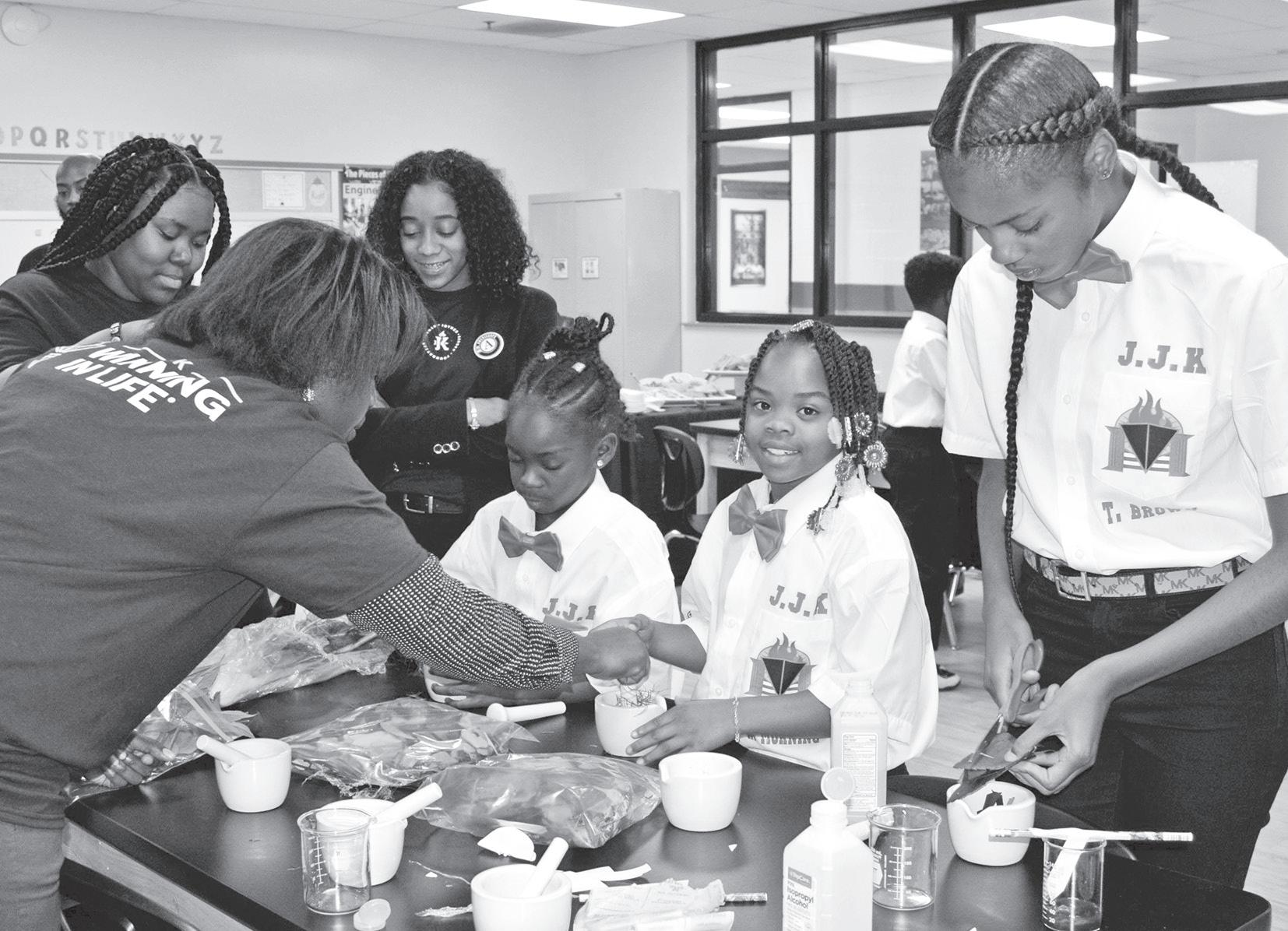
and food access issues that too often plague inner cities,” College of ACES Dean Kim Kidwell said.
“From planting the first seed to harvesting nutritious food at JJK and experiencing hands-on learning at
Danforth, we hope this program inspires young people to graduate from college with a degree in plant sciences or a related field and then return home to make a difference in their communities.”
Amy Cope, Illinois

Extension county director for Madison, Monroe, and St. Clair counties, said, “Each partner believes in dedicating resources to the underserved families of East St. Louis. By joining together, the impact is endless. The collaboration strives to provide community education and hands-on instruction in community-supported agriculture programs by establishing community gardens, vertical
Continued from A11
gram directors for BESt, but that’s universal for pre-med, physicians, nursing, for all of our STEM-based professions. So, this is another conscious effort to hopefully take a stab at that.”
Player earned his doctor of pharmacy degree from Xavier University of Louisiana College of Pharmacy in New Orleans, his master’s in business administration degree from Webster University in St. Louis, and a certificate in
Continued from A11
farming sites, and a commercial test kitchen for food innovation.”
Researchers from the Danforth Center will open new avenues for youth in the areas of agriculture, food, STEM, and college and career readiness.
The Danforth Center offers time, expertise, energy, and facilities in the partnership as they challenge students to
diversity management in health care from the Institute for Diversity and Health Equity and Georgetown University. He served as adjunct faculty to Xavier University of Louisiana College of Pharmacy (XUCOP) and the St. Louis College of Pharmacy.
He remains a member of the XUCOP’s Dean’s Advisory Board, Urban League of Metropolitan St. Louis board, and the Girls Inc. St. Louis board. He has participated in several prestigious leadership programs including the FOCUS Impact Fellow, FOCUS St. Louis/
personality with the skills RAC needs to build partnerships, facilitate collaboration, and be an effective convener. During this unprecedented time of pandemics, we are confident she is the right leader when the urgency of social justice also demands RAC’s unwavering efforts to address diversity, equity and inclusion in our community.”

n “We are creating a hands-on STEM education and work force development pipeline from kindergarten to adult that provides opportunities for people to develop marketable skills.”
– Kristine Callis-Duehl, Danforth Center
connect the food on their plate to the plants that produce the food they eat. Research at the Danforth Center drives innovation to improve the human condition through better understanding of plant science.
“Research conducted by the student interns will contribute to advancing our scientific research projects,” said Ruth Kaggwa, Danforth Center STEM education and outreach manager. “As high school interns gain new skills, they earn expertise badges, mimicking workforce development practices in real world careers.” Infrastructure development is required to support the goals of the collaboration, and efforts are well underway, Cope said. The expanded site will be located at the Jackie JoynerKersee Center and will include additional classrooms, demonstration areas, greenhouses, community gardens, and a commercial test kitchen, all which will contribute to experiential learning methodology and community engagement.
Learn more about the outreach efforts and ways to support the project by contacting Cope at amycope@illinois. edu or 618-939-3434.
Leadership St. Louis, and the St. Louis Business Diversity Initiative Fellow programs.
“Look at the changing demographics of our country, and look at some of the opportunities we have to improve not just the health outcome of our community, but our families and our friends,” Player told The American in 2017.
“Do you want to play an active role in that? And if healthcare and math and science are things you enjoy doing and are strong at, I would strongly encourage you to consider a career in healthcare or in another STEM profession.”
Cooksey will succeed Celia Hosler, who served as the interim executive director, and will be responsible for the dayto-day operations and leading RAC’s strategy as the organization continues to execute its five-year strategic plan released earlier this year. The title change from executive director to president and CEO was determined during the search process to strengthen the pool of candidates and organizational benefits. With the assistance of Isaacson Miller, a national executive search firm, RAC’s search committee was led by Cheryl D.S. Walker, RAC Vice Chair of the board of commissioners, with assistance from other board members including Levy, Rosalind Johnson, Vin Ko, Cynthia Kohlbry, Andrea Purnell and John Russell. Cooksey earned her bachelor’s degree in RadioTelevision-Film from the University of Texas at Austin and a master’s degree in Business Administration from Webster University. She currently serves on the Board of Directors for several local and national nonprofit organizations including the SIFMA Foundation for Investor Education, Harris-Stowe State University and The Deaconess Foundation. She was the recipient of the 2016 Eisenhower Fellowship and studied in Japan and Rwanda. For more information about RAC, visit racstl.org
By Barrington M. Salmon
For The St. Louis American
The fear and concern the prospect of a reentry facility coming into one’s neighborhood elicits is understandable and normal. Safety is a primary consideration. The idea that someone who was recently behind bars may be living next door can be jarring and unnerving. Our minds often go to the worst-case scenario whether what we’re stewing on is real or imagined. Another key factor to consider is economic.
Resistance to housing for exoffenders, recovering addicts and others is a pervasive problem despite research documenting favorable outcomes for individuals living in recovery residences. A key to breaking down that resistance is to replace fear with facts, invite neighbors to see the reentry space, familiarize them with the facility’s operations and develop open communications and transparency.
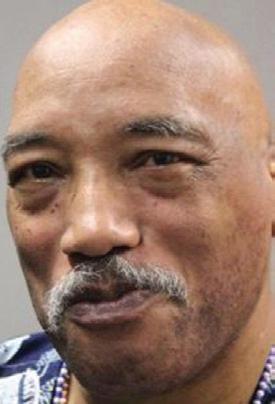
For example, there is an abiding belief that placing a reentry center in Washington, D.C.’s Ward 7 will have an adverse economic impact on property values and the ward’s economic well-being.
Actually, there are several studies which show just the opposite of this line of thinking. The facts are clear, as demonstrated by decades of research: facilities like reentry centers that provide support to underserved populations do not decrease property values.
In one study, researchers reviewed the impact of a leading recovery home provider that offers drug and alcohol support services at 154 locations throughout the U.S. The study found that “no evidence of property devaluation was found” and that “community members … actually saw an increase in property value over an average of 3 years.”
The study, titled, “Counteracting ‘Not in My Backyard,’” is found in the Journal of Community Psychology
Another way to engender community confidence is to partner with trusted stakeholders, advocacy groups and individuals who can vouch for the operators of the home and calm residents’ fears about safety and other issues.
Researchers in the journal article argue convincingly, too, that disseminating research findings in forums outside of professional and academic spheres to a broad array of stakeholders is critical.
n Facilities like reentry centers that provide support to underserved populations do not decrease property values.
Including policymakers, service providers, professionals, researchers, consumers, and the general public is a critical tool to influence policy, they say.
Circulating studies that illustrate the measurable improvements recovery home residents make – such as reducing substance use; finding and staying employed; not getting rearrested; and restoring and improving relationships with family members – will go a long way towards eroding resistance to the presence of these homes in different communities and neighborhoods.
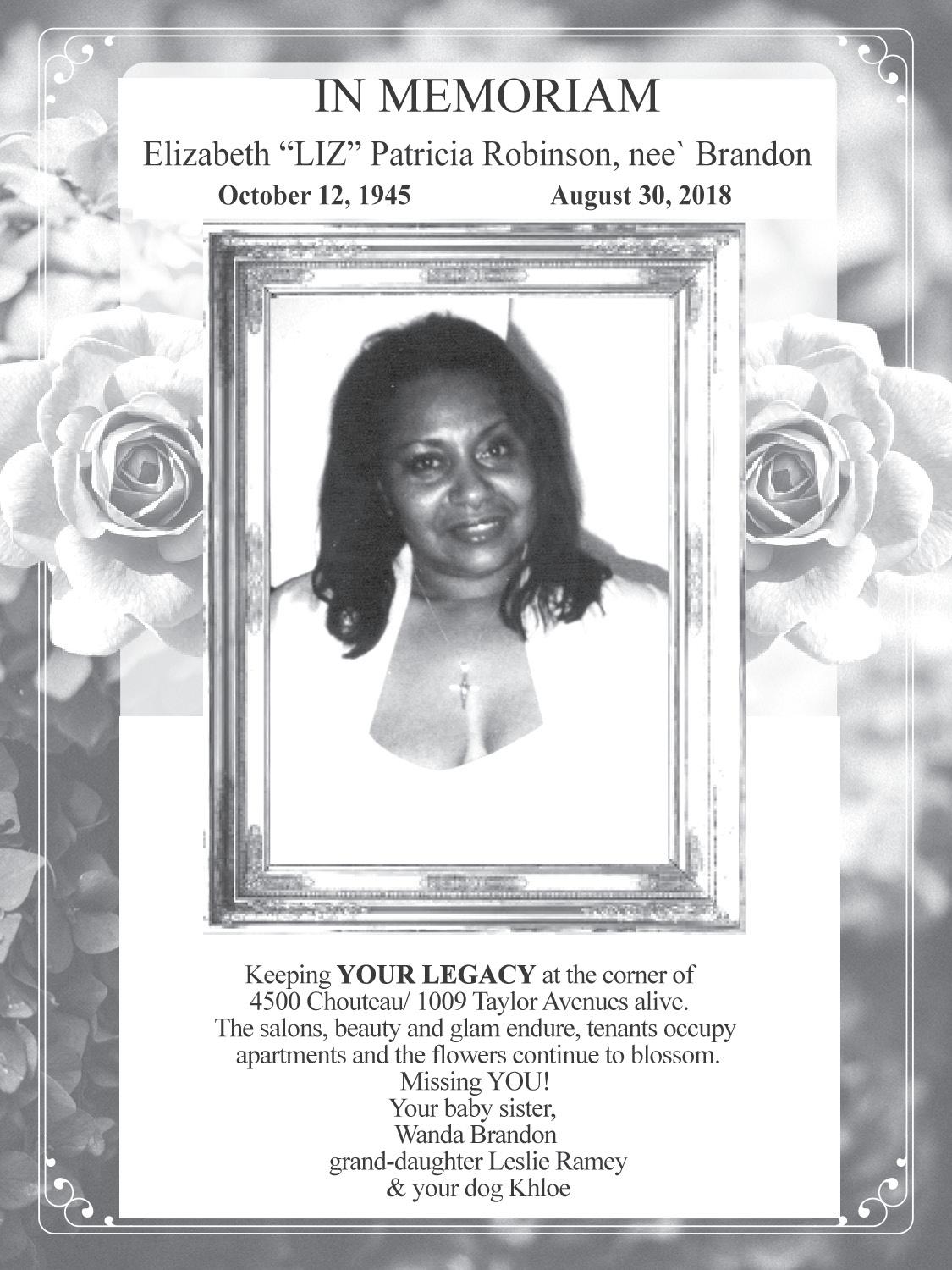

In 2016, there were about 2.3 million people incarcerated in federal, state and local prisons and jails across the U.S. policies and laws in the 1970s led to an explosion of prison populations by 500% over 40 years. And changes in sentencing laws played a major role in these increases, particularly drug-related offenses.
According to a 2015 report produced by The Sentencing Project, between 1980 and 2014, the number of people imprisoned for drug offenses in federal, state, and local penal institutions increased from 40,900 to 488,400.
Such draconian policies have given the U.S. the unenviable reputation as the country with less than 5% of the world’s population but 25% of the global prison population.
There is a growing realization that these unbending laws, the War on Drugs and maximum-minimum sentences hasn’t worked. In recent years, politicians, lawmakers, policymakers and others have realized the folly of such policies.
There is an ever-evolving reevaluation of the methods and approaches used to fight crime, which in turn, is making residents in communities more amenable to welcoming reentry homes into their neighborhoods.
Forward-thinking advocates are finding ways to lift the barriers barring returning citizens, who on release from prisons and jails, face obstacles barring them from housing, employment, social and other services and education. They understand that to do otherwise would be to invite greater crime and increased recidivism.
Reentry facilities have gotten a bad rap. Residents of these spaces can be good neighbors. All they need is a chance, a second chance.
Barrington M. Salmon is a liberation journalist based in Washington, D.C.
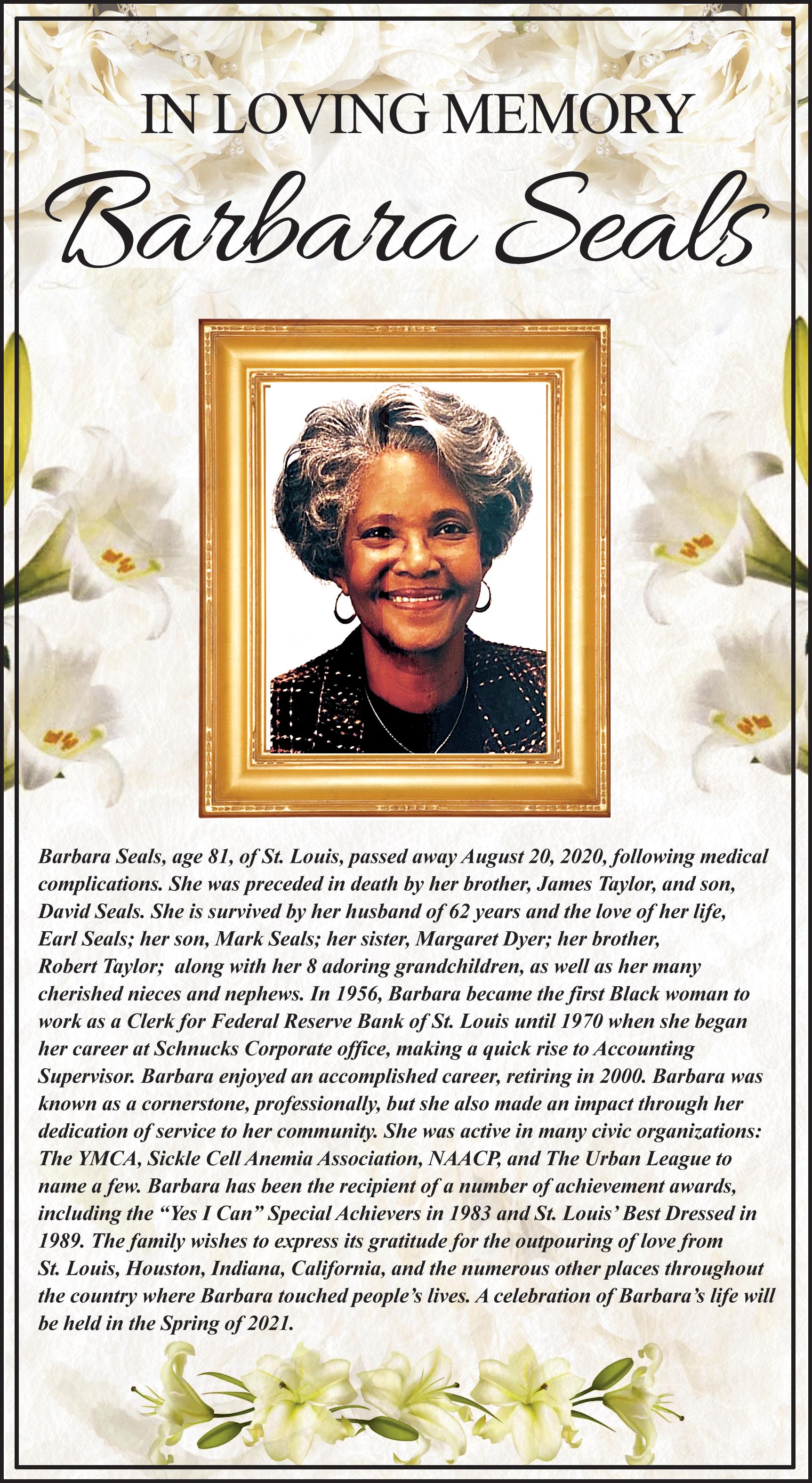
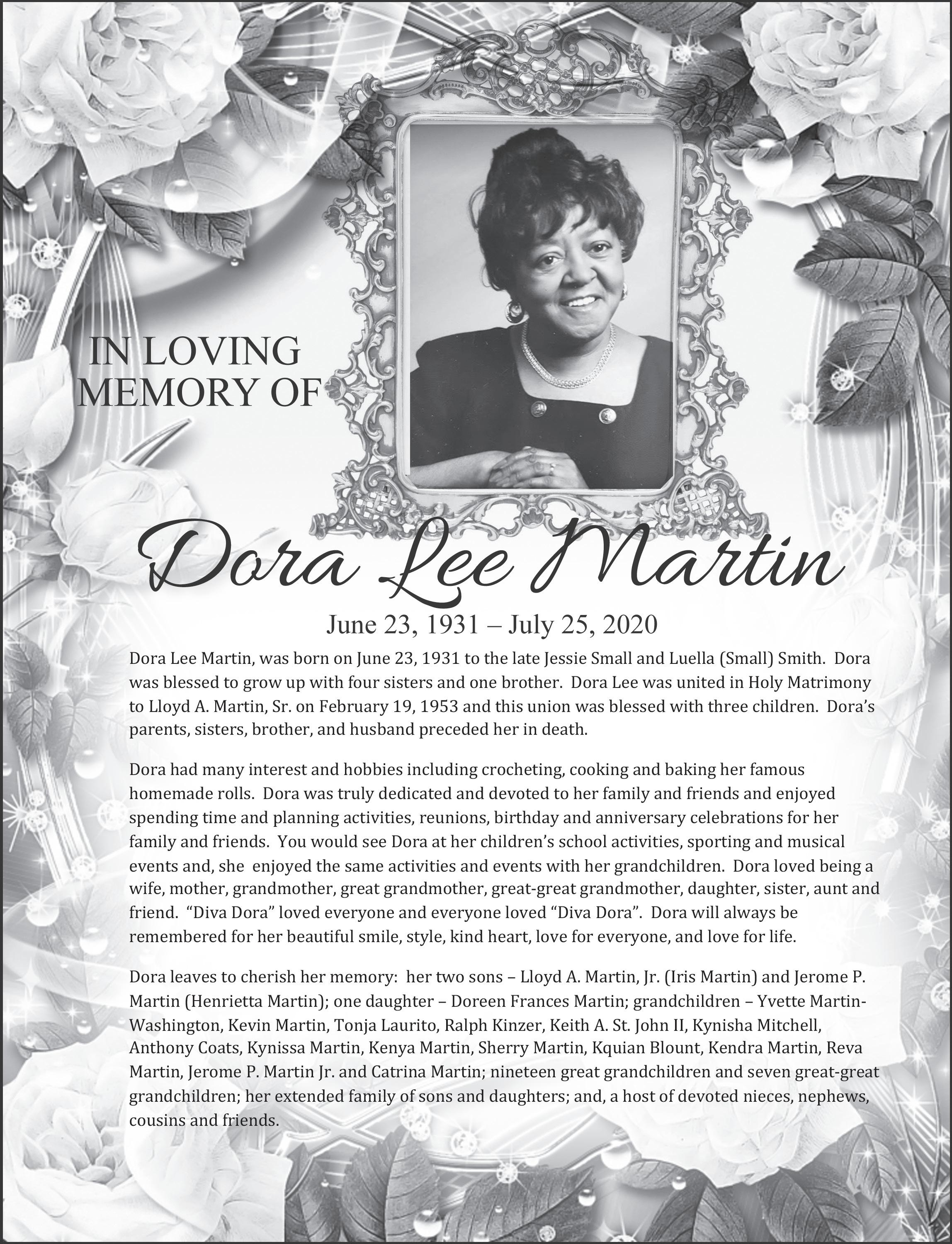

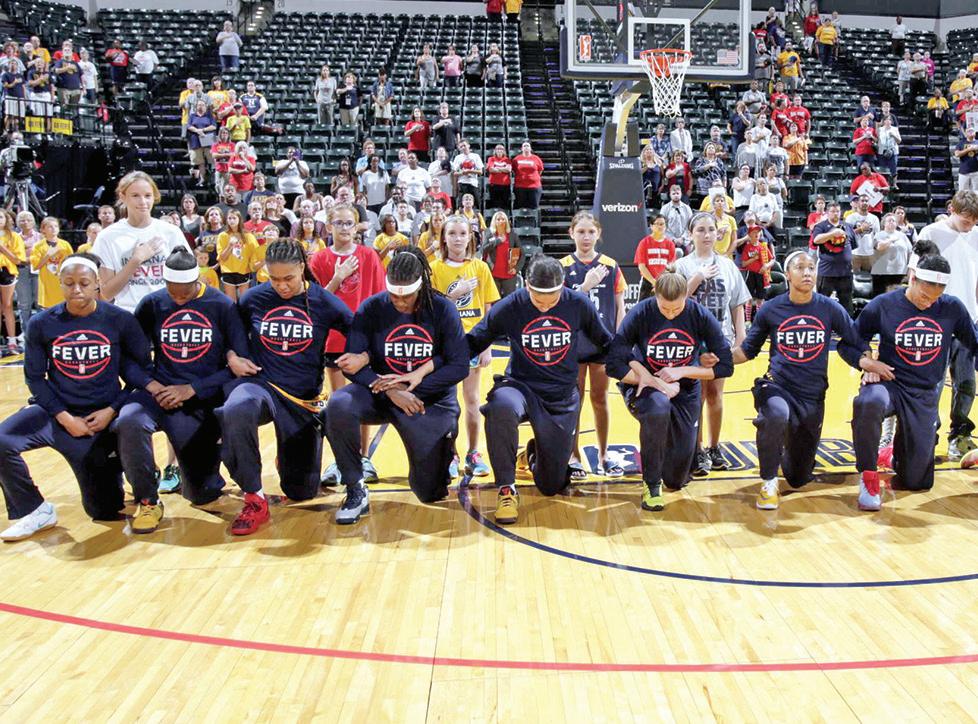
Our dear sisters in the WNBA, As a group of intergenerational Black women who have organized around the affirmation #winwithblackwomen, we stand in solidarity with each of you. While we respect and admire your exceptional athletic prowess, in this letter we lift up the stance you continue to take in the on-going struggle for justice and equality in our nation. That struggle, dating back 401 years to when our African ancestors were first enslaved, has yet to be

won. And in recent months since the brutal killings of George Floyd and Breonna Taylor, followed by more and more senseless killings of Black people, we are with you in saying: Enough is enough! And we are with you in saying that white Americans who are driven by systemic racism must get their knees off of the necks of Black people.
Dear sisters, we are also with you in decrying the divisive rhetoric that is coming from the highest offices in our land, including the racist and misogynist language being used about Black women, including vice president candidate Senator Kamala Harris. As our shero Shirley Chisholm once said: “The emotional, sexual and psychological stereotyping of females begins when the doctor says: It’s a girl.” And as Black women, we continue to strug-
n As you know, and in the words of the well-known Black lesbian writer and activist Audre Lorde: “Your silence will not protect you.”
gle with the double jeopardy that comes from being Black and women. Indeed, the struggle continues. As the late Congressman John Lewis said: “Our struggle is not the struggle of a day, a week, a month, or a year; it is the struggle of a lifetime. Never, ever be afraid to make some noise and get in good trouble, necessary trouble.” We recognize that is what you have been doing: getting in good trouble. For example, when you wore those 2016 T-shirts that said: “Change Starts with Us: Justice & Accountability. “And since then, your “good trouble” has grown into a unified and consistent voice in the call for equality and justice in our country. What is equally admirable is that many of you are making your voices heard off the court as well. There are countless examples of you engaging in protests in your own communities and working to effect positive change. Indeed, you have set an example for other sports leagues of what can happen when players are united and committed to effect social change. As an Ethiopian proverb states, “When spiders unite, they can tie up a lion.” You have heard the calls from some in our nation that say you should “leave politics out of sports.” As Laura Ingraham disrespectfully said to LeBron James: “shut up and dribble.” However, as you know, and in the words of the well-known Black lesbian writer and activist Audre
Lorde: “Your silence will not protect you.” Protests by Black athletes in our country certainly did not begin with Colin Kaepernick taking a knee during performances of the National anthem. And the world needs to remember that a few weeks after he took a knee, center Kelsey Bone was the first of multiple WNBA players who joined him in protest. History and herstory are filled with stories of Black women and men who, as athletes protest racial injustice and speak truth to power. The names of the Black men athletes are well known. But we insist on lifting up just a few of the names of sister-athletes who have also protested racial and gender inequality in America: Wilma Rudolph, Serena and Venus Williams, Earlene Brown, Erosenna Robinson, and Wyomia Tyus. How well we remember that in 2016, after the police murders of Alton Sterling and Philando Castile, it was WNBA players who lead the way by wearing Black Lives Matter shirts and holding media blackouts where you refused to talk about basketball and would only talk about police violence. You continue to add your voices to the national call for an end to racial injustice and you turn a deaf ear to those who accuse you of being disruptive to the WNBA. or indeed, you agree with our sister Alicia Garza, one of the cofounders of the Black Lives Matter movement: “Every successful social movement in this country’s history has used disruption as a strategy to fight for social change. Whether it was the Boston Tea Party or the sitins at lunch counters throughout the South, no change has been won without disruptive action.”
We bring closure to this letter in the same spirit in which we opened it, and that is by stating unequivocally that we stand in solidarity with you. In sisterhood, Black Women United / #winwithblackwomen Network
This statement was signed by more than 200 Black women, including Dawn Staley, former WNBA; Jerika Richardson: Senior Vice President of Equitable Justice & Strategic Initiatives, National Urban League; Dr. Johnnetta Betsch Cole: President & Chair of the Board, National Council of Negro Women; Karen Boykin-Towns: Vice Chairman NAACP National Board of Directors, NAACP; Lisa Cortés: President, Cortés Films; Porsha White: Vice President of Voting Rights & State Organizing, Let America Vote/ End Citizens United; Tamika Mallory: Co-Founder, Until Freedom; and Rev. Traci Blackmon: Associate General Minister, United Church of Christ.
Strode: ‘These steps are both long overdue and woefully inadequate’
By Chris King Of The St. Louis American
Missouri’s Peace Officer Standards and Training (POST) Commission has voted to require annual training in de-escalation techniques and recognizing implicit bias for all Missouri law enforcement officers. Starting in 2022, Missouri officers will take a one-hour course in each area as part of their required 24-hours of annual continuing education training.
Advocates for police accountability and reform received the news with skepticism and, not surprisingly, suggestions for much more sweeping reform.
“An hour isn’t enough,” said Heather Taylor, president of the Ethical Society of Police (ESOP).
“These courses should have been mandatory before this. Also, they should be given before the recruits enter the police academy to try to weed some of them out before they become sworn officers. They receive this training in the academy, but it must be given before, during, and after with the option of removal when they exhibit red flags.”
Blake A. Strode, executive director of ArchCity Defenders, agreed with Taylor.
“These steps are both long overdue and woefully inadequate,” Strode said. “The idea that our policing problems can be solved with two hours of training is absurd.”
John Chasnoff, co-chair of the Coalition Against Police Crimes and Repression (CAPCR), put the proposed changes in the context of the tone set nationally by President Trump.
“These changes come at time when the president of the United States is saying that exploration of implicit bias is un-American. His comments encourage officers to ignore such trainings, and I doubt they will have much impact,” Chasnoff said.
“De-escalation training needs to be more than an hour training per year. Instead, it needs to be an integral part of drastically revised use-of-force continuums that put the public’s safety first.”
Governor Mike Parson, a
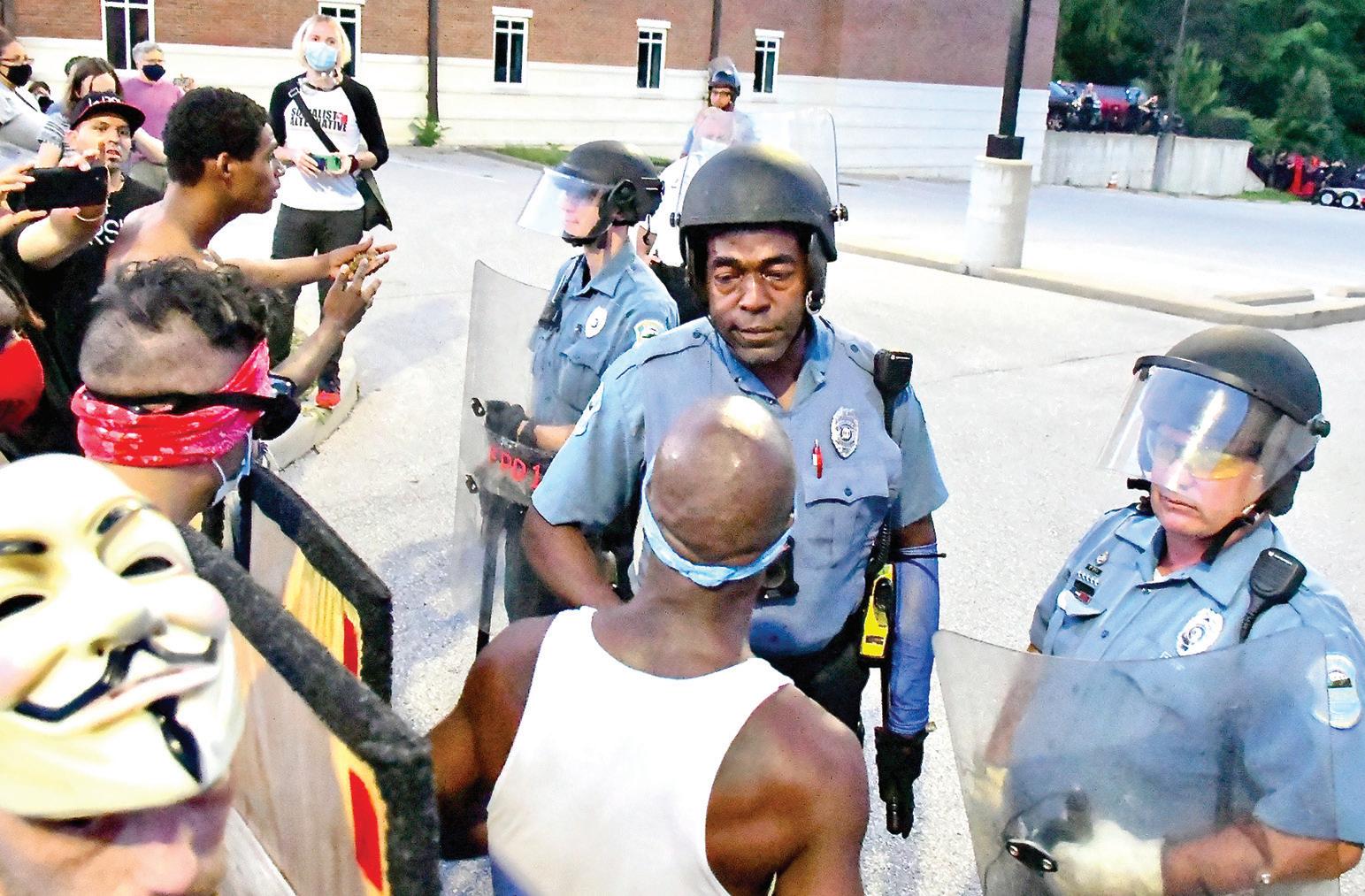
former sheriff, took credit for the reforms by saying the commission responded to a challenge he had issued “to take a leading role in advancing the training Missouri provides its officers and equip them to improve relations with the public.”
The governor appoints members to the commission. Of the 11 slots, three are currently vacant. Only one of the 11 slots is dedicated to a member of the public who is not affiliated with law enforcement. That sole public representative, Emanuel Cleaver III, is one of only two African Americans on the commission. The other is Lincoln University Police Chief Gary Hill.
The commission currently is chaired by Platte County Sheriff Mark Owen. The population of Platte County is 85.7% white, according to U.S. Census estimates.
The commission also voted unanimously to grant preliminary approval for
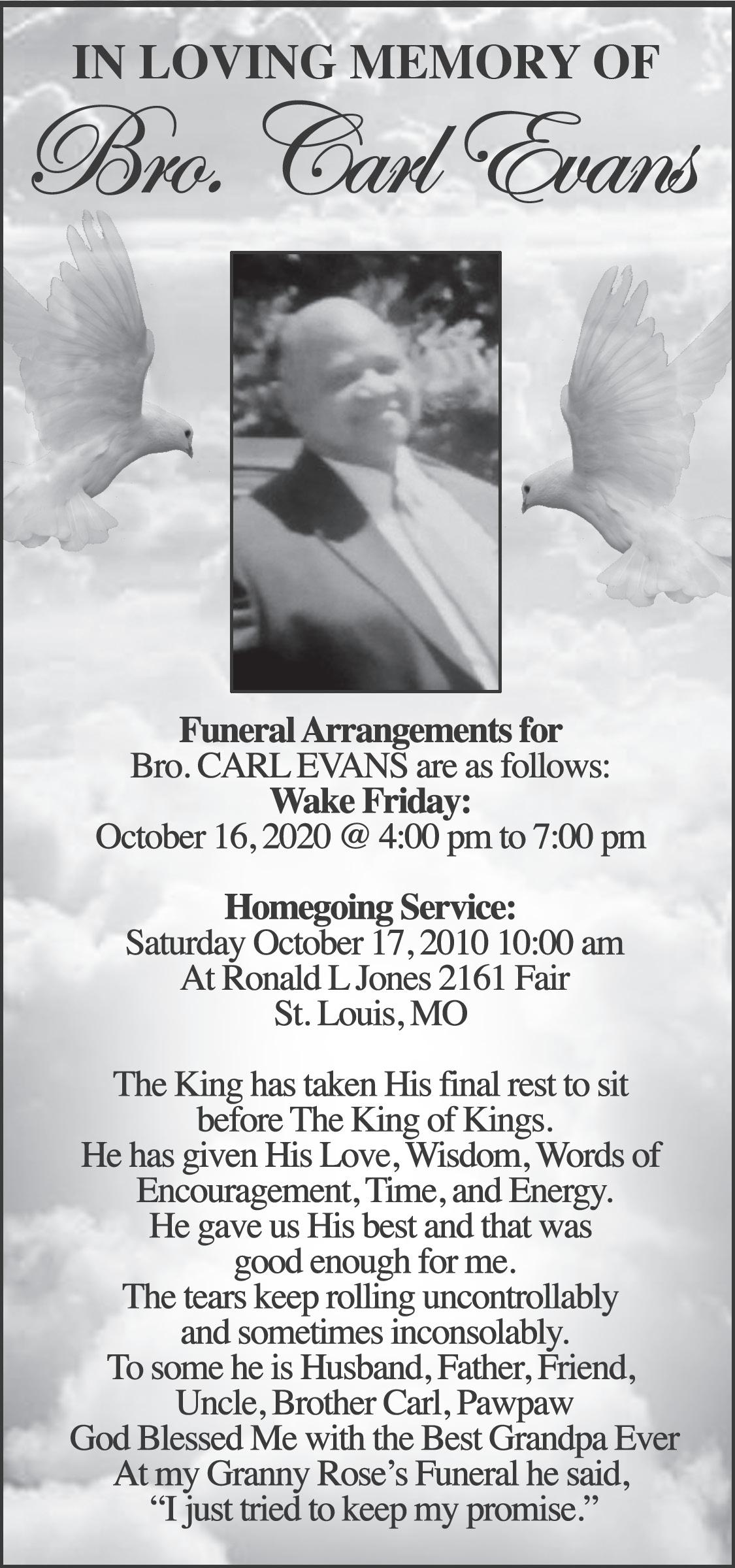
Lincoln University’s proposal to establish a law enforcement basic training academy. (Chief Hill of Lincoln University abstained from the vote.) The proposed training academy would be the nation’s first at a Historically Black College and University. Lincoln University said the academy could have a far-reaching impact as it seeks to attract minority law enforcement recruits to a residential program at an academic institution.
Licensing of a Lincoln University academy by the Missouri Department of Public Safety (DPS) could come only after a site visit and review of planned policies and procedures, proposed courses, lesson plans, instructor qualifications, and the academy’s advisory board. The POST Commission would then make a final recommendation to DPS on whether to grant the license. Police accountability and reform advocates found fault
and limitations with this proposal as well.
“Minority recruitment isn’t a problem in St. Louis city,” said Taylor of ESOP, who recently retired from the St. Louis Metropolitan Police Department. “The majority of all applications are Black St. Louis city residents. Black applicants face overwhelming odds with hiring. A lot of it is bias. Furthermore, recruiters aren’t even trained in explicit/ implicit biases with hiring.”
Strode of ArchCity Defenders said that “hiring a few more Black officers into a structurally racist system” won’t solve the problems the governor and commission claim to be addressing.
“What we need is a commitment to real consequences for routine police abuse and disparate treatment,” Strode said, “and a major reallocation of funds away from police departments and into community-based services and resources so that we can reduce the role of policing in our lives.”
The POST Commission also appointed two committees to work on two other proposals: developing a course of instruction for Missouri’s basic training academies on the history of policing and minority community relations, including the origins of policing in the United States; and exploring ways to require law enforcement agencies to check with Missouri’s POST program on an applicant’s past history as an officer before hiring experienced officers. The commission tentatively scheduled a special meeting on December 15 to review the committees’ work.
As required by state statute, the new POST rules will be filed with the Missouri Secretary of State and the Joint Committee on Administrative Rules and subject to a public comment period. The rule-making process generally takes at least six months to complete. The new training requirement will apply to officers in 2022. Chasnoff of CAPCR is not exactly waiting hopefully. “These are examples of ineffective reforms,” he said, “that strengthen our resolve to defund the police.”


July 29, 1972 - OctOber 10, 2020
Hasan Kenyatta Lake loved being a father, a brother, a son, a barber and a rapper. He has worked at several barber shops in St. Louis over the past 15 years, and as a rapper he called himself HA-C-E.

He recorded a rap CD entitled “Laclede Town Survivor” in 2001 on his brother Gene Lake’s record label. Hasan was a creative artist in both of his fields of endeavor, barbering and rapping. He was also a very dedicated father to his only son Khalil. Hasan loved his family, and he would always say, “Love unconditionally” and “family first.” He would often call his siblings just to say, “I love you.”
n Hasan grew up in the Laclede Town development in downtown St. Louis. This vibrant community played a large part in shaping Hasan’s loving personality.
Hasan grew up in the Laclede Town development in downtown St. Louis. This vibrant community played a large part in shaping Hasan’s loving personality. He was inspired to dedicate his CD to his Laclede Town memories. His love for animals was also one of his defining characteristics. Hasan was a unique thinker (that’s an understatement) and loved a lively discussion. He could make you laugh and also make you say, “What did he just say?!” Hasan is survived by his son, Khalil Lake, and six siblings – Kim Lake, Africa Lake, Maya Lake, Yvette Savage, Gene Lake, Jahi Lake –and father Oliver Lake. Hasan’s mother, Joyce Lake, passed away four years ago. We will miss you more than words can express.
Ten of the nation’s most progressive Black publishers in the nation have come together to launch a news collaborative unlike any in the industry. The group, called Word in Black, is focused on solutions “by us and for us”when it comes to racial inequities in America. On October 20th, the 10 publishers in the Word in Black collaborative (including The St. Louis American) welcome seven esteemed Black leaders for an evening of conversation on voting with purpose. The event is an interactive informational broadcast that will focus on the importance of all voters participating in the upcoming election. The seven leaders are: Bakari T. Sellers, political commentator at CNN; Susan Smith Richardson, CEO for the Center of Public Integrity; Dr. Benjamin Chavis, President & CEO, NNPA; Kristen Clarke, President & Executive Director of the Lawyers’
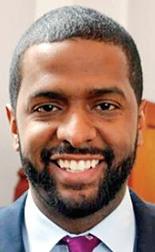
Bakari T. Sellers
Committee for Civil Rights Under Law; Wes Moore, CEO of Robin Hood Foundation; Leigh Chapman, Director, Voting Rights Program; and Rev. Nolan Williams, Jr., musicologist, theologian, songwriter and producer. The guests will share research, insights, and experiences that highlight why exercising one’s right to vote is crucial this — and every — election. The event is hosted by Chris Bennett, publisher of Seattle Medium, and Dr. Frances Toni Draper, CEO and publisher of the AFRO American, and is moderated by Elinor Tatum, publisher and editor in chief of the New York Amsterdam News, and Larry Lee, publisher of the Sacramento Observer. Meet the guests participating in the hour-long event Tuesday, Oct. 20 at 6 p.m. ET — streaming at WordinBlack.com.


By Barry Draper Of Explore
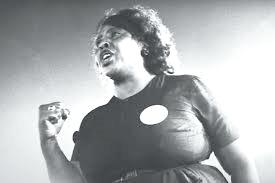
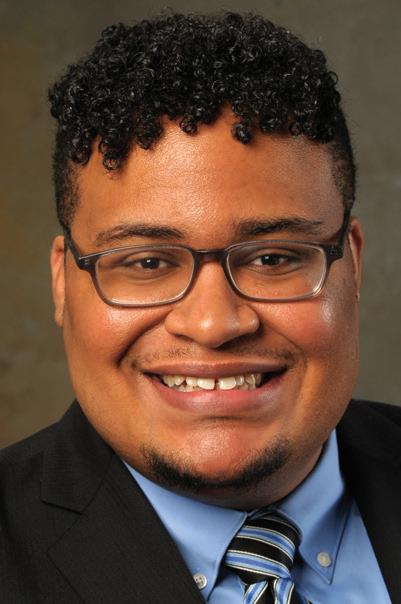
New this year, all aboard Halloween at St. Louis Union Station. Haunted trains, a wicked wheel, scary sea creatures, and a spooky maze of boo-riffic activities await. Wear your costumes and take home a personal pumpkin to decorate. There’s plenty of fun to be had on the St. Louis Wheel Plaza but don’t skip the fright light shows on the Union Station lake – they are fang-tastic! Get ready for science thrills at the Saint Louis Science Center’s Annual Science Spooktacular. Free to attend and plenty of fun! Navigate your way through the different galleries where you’ll learn about real, everyday monsters and why they play an important role in our ecosystem, life, and more. Celebrate bugs, butterflies, and plants that are wonderfully wicked at the Missouri Botanical Garden’s BOOterfly House. Meet new frightful friends in the Creepy Crawly Cave, watch out for Botanicals Gone Mad in the Conservatory, and spy on spectacular spiders with the Muffet Family. Find the magic (not the witch’s kind) at The Magic House’s 2020 Not-So-Haunted House. You’ll love their new outdoor experiences including the Trick-Or-Treat-Town with socially distanced trick-or-treating featuring candy-free treats, a pumpkin maze, scavenger hunt, and more. Remember, whether you’re visiting a St. Louis attraction or trick-or-treating in your neighborhood, please do so responsibly.

St. Louis City and St. Louis County have introduced several health and safety protocols for trick-or-treating and Halloween-related activities. Only persons who live in the same household should trick or treat together. Please always maintain 6-feet social distance from other trick or treaters.
Everyone must always be masked.
Homes wanting to participate in trick-ortreating can leave individually wrapped candy or treats at the front of their lawns or driveways, preferably on a table spread out.
Those passing out candy are free to enjoy the trick or treaters from at least 6 feet away and masked.
Children should be instructed not to eat any candy until they’ve arrived home and washed their hands with soap and water.
For areas where homes do not have driveways/lawns, local areas are encouraged to schedule community trick or treating with staggered entry times throughout the day in different parts of the community either with drive-through or trunk or treating. These aren’t your only options for Halloween. Check out www.explorestlouis.com today for a full list of holiday activities and information on our hotels, restaurants, attractions, and more!
Barry Draper is director of Partnership Services for Explore St. Louis.
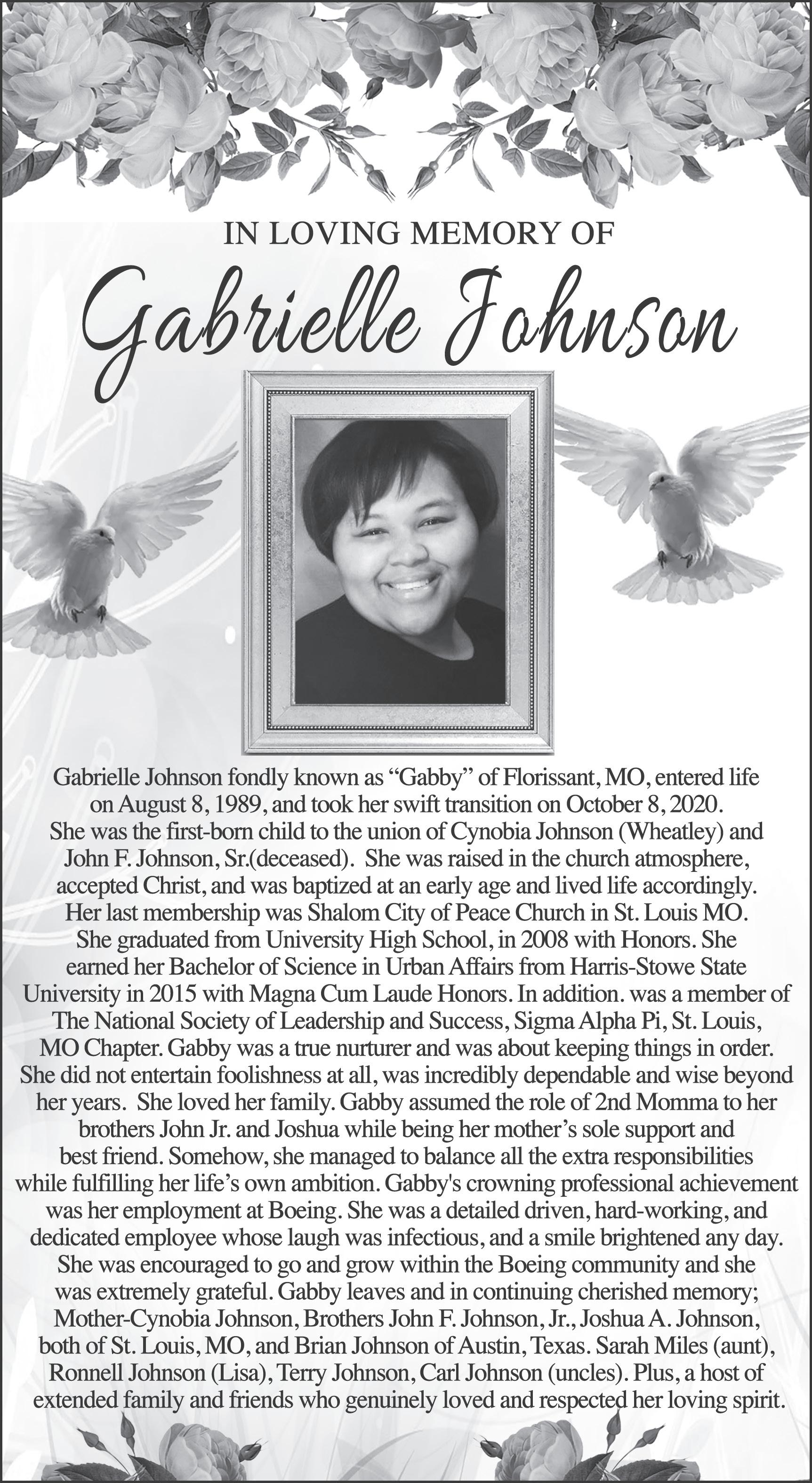




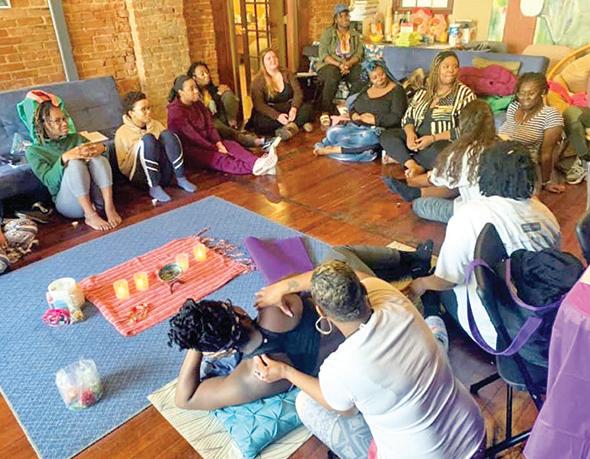
Doulas provide support to pregnent woman during labor childbirth
By Sandra Jordan
Louis American
Of The St.
Jamaa Birth Village in Ferguson recently announced scholarships awarded to nine women who will be trained to become doulas.
A birth doula is a trained companion who provides continuous support to pregnant women during labor and childbirth. This most recent cohort will become among more than 150 doulas trained by Jamaa’s midwife and doula team over the past five years.
“The first requirement is they had to be a woman of color. The second requirement is
low incomes or having been financially impacted by COVID, if you were a middle-income person – maybe lesser hours, lesser income,” said Midwife, Doula and Jamaa Birth Village founder and Executive Director Brittany “Tru” Kellman.
“All in all, you absolutely could not afford to pay for the training on your own. The third requirement was to have a dedicated passion to serve and support women in their communities.”
Each woman also completed an application, with questions and an essay portion.
The scholarships were paid for by
community donations to its Doula Training Scholarship fund.
“We have a tremendous amount of people who visit our website, and they donate to the Doula Care Scholarship Fund by selecting that option,” she said.
Receiving full $900 scholarships are Tabitha Murugi, Maria Elena Jones, Kabria Johnson and Sharneice Haskin. Partial $500 scholarship recipients are Danielle Moore, Dashia Marr, Sarah Martin, Aesha Foster and Aja Montgomery.
See DOULA, A19
By Angela Fleming Brown For The St. Louis American
When you think of public health issues, you might consider disease prevention or wellness programs. Perhaps you reflect on social issues, like access to healthy food or safe housing. But do you think of social justice issues and our political system?
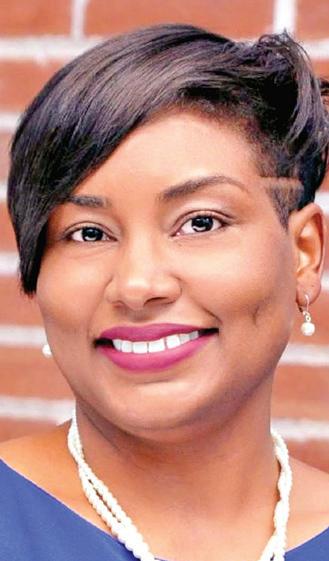
Angela Fleming Brown
n If passed, Amendment 3 would be harmful to all communities in Missouri, especially communities of color.
The public health landscape is constantly changing and expanding. The more we learn, the more we understand that factors indirectly related to health – like voting policies – are critical in building a healthy society. Therefore, as a public health leader in St. Louis, I strongly oppose Amendment 3, which would hurt our democracy and put policies that promote health and healthy equity at risk. In 2018, Missourians overwhelmingly passed Amendment 1, “Clean Missouri,” by a 2-1 margin in a ballot initiative. The people of Missouri, including democrats, republicans, and independents all across the state, voted for a fairer political system. Amendment 1 implemented changes that democratized our elections and redistricting process – the way maps are drawn that decide for whom and what we can vote. The maps earned non-partisan endorsements and support from influential community-based organizations, such as the NAACP Missouri State Conference and Deaconess Foundation. But, there’s a new amendment on this year’s ballot – Amendment 3 – that would reverse the significant gains Missouri has made. The issue runs deeper than reversing good, fair policy. To have a well-functioning democracy, the vote of the people should matter and inform policy. Amendment 3 jeopardizes this principle. Reversing Amendment 1 could put other ballot initiatives, like Medicaid expansion, at risk. We spent the last several months campaigning to expand a program that would improve health care access and the health outcomes of our state. The ballot measure for Medicaid expansion won when Missourians demanded change and voted in August.
Eye Thrive will be at selected St. Louis County Library locations
Eye Thrive is providing free eye exams and glasses for children ages 4-18 who need them when their mobile vision clinic visits selected St. Louis County Library locations over the next few weeks. All services are provided free of charge. A parental consent form must be completed prior to the eye exam.
The eye clinic will be at the Lewis & Clark branch, located at 9909 Lewis-Clark, Blvd., St. Louis Mo., 63136, October 12-14. It moves to the Indian Trails branch, located at 8400 Delport Drive, St. Louis, Mo., 63114, October 19-21. The eye clinic will be at the Florissant Valley branch, located at195 S. New Florissant Rd., Florissant, Mo., 63031, October 26-28. The Eye Thrive mobile vision clinic rounds out its fall schedule at the Jamestown Bluffs branch, located at 4153 N. Hwy 67, Florissant, Mo., 63034, November 2 and November 4. (No eye exams on Election Day).
n The eye clinic will be at the Lewis & Clark branch, located at 9909 Lewis-Clark, Blvd., October 12-14.
Capacity is limited to 15 eye exams per day. Line numbers will be assigned based on the order of arrival. All children must pass a COVID-19 screening prior to vision screening and eye exam. Vision screenings will take place outside the library under a tent. Any child who passes the COVID-19 screening and See EYE EXAMS, A19
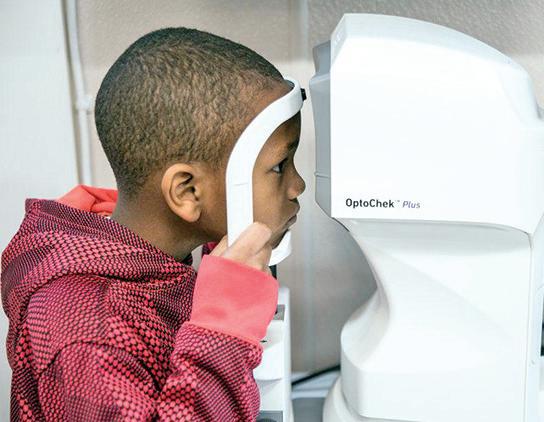
Eye Thrive is providing free eye exams and glasses for children ages 4-18 who need them.

“Taking
By Chris King Of The
St. Louis American
An estimated 6.5%, or 95,000, Missouri children were uninsured last year, according to a new report released by the Georgetown University Center for Children and Families. That number has increased by more than onethird since 2016.
“After successfully reducing the child uninsured rate in our state, we are now seeing a growing number of Missouri’s children going without health coverage,” said Lindsey Baker, Research director at Missouri Budget Project.
“This damaging trend will have long-term consequences
for children and communities across Missouri because without health coverage, children cannot access the care they need to grow and thrive.”
Research shows children with health coverage are more likely to graduate from high school, attend college and grow up to be healthier and more productive adults.
“This data proves that it’s more important than ever to implement the recently passed Medicaid expansion as decided by the voters, and on schedule, to make it easier for more parents to get affordable access to health care,” said Baker. “We know that when parents are covered, kids are more likely to be covered too.”
The number of children enrolled in Medicaid in
Missouri has increased substantially since steps were taken to protect coverage during the COVID-19 public health emergency, adding over 77,000 children to the Medicaid rolls. This comes after Missouri recorded one of the steepest children’s Medicaid enrollment declines between 2016 and 2018, likely a major contributing factor to the increase in uninsured children.
Legal Services of Eastern Missouri played a critical role in alerting the media and public to that emerging crisis. Sandra Jordan of The American won Best Breaking News Story for large weeklies in Missouri from the Missouri Press Association for her reporting on Legal Services and its clients.
“Through the pandemic,
Missouri’s Medicaid officials have exercised several flexibilities to ensure that children and families can get and stayed enrolled in coverage, including 12-month continuous eligibility for children,” said Casey Hanson, director of Outreach and Engagement for Kids Win Missouri.
“Policymakers and administration should continue supporting policies that streamline eligibility and enrollment to ensure eligible kids can get and stay covered – so fewer kids in Missouri go uninsured.”
According to the Georgetown University report, Missouri’s experience is part of a national trend that left an estimated 726,000 more children without health coverage nationwide since our coun-
try achieved an historic low number of uninsured children. Much of the coverage gain of the Affordable Care Act for children has now been eliminated.
“For decades, children’s health coverage had been a national success story that we could point to with pride, but the data shows the trend is now going in the wrong direction,” said Georgetown University Center for Children and Families Executive Director Joan Alker.
“What’s worse, the number of children losing coverage accelerated from 2018 to 2019 during a time when unemployment was very low. The situation is likely worse today.” The increase in the number and rate of uninsured children
occurred prior to the pandemic and associated economic downturn is attributable to losses of public coverage –primarily Medicaid and the Children’s Health Insurance Program. The situation has most likely deteriorated in 2020 for children as their parents lost their jobs and health coverage this year, but there is still no reliable data to estimate the extent of these coverage losses.
The Georgetown University report analyzes single-year estimates of summary data from the U.S. Census Bureau’s American Community Survey (ACS) from 2016 through 2019. For more information about the report, visit ccf. georgetown.edu
Doula training at Jamaa is 32 hours, in four eighthour sessions. The upcoming session is in November. Local training combines virtual and small group hands on training –with accommodations for COVID-19 safety precautions.
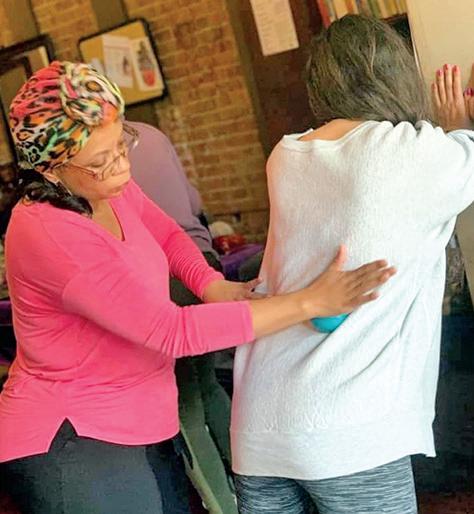
Continued from A18
Eight of the nine are from the St. Louis area. Murugi will receive virtual training at her home village in Kenya. She found out about the training opportunity on Jamaa’s social media, which led to the village to village effort.
“And next year, depending on COVID, if it cooperates with us, I plan to travel there with one of my team members so that we can train multiple other people in her particular village to become doulas to assist in their maternal health crisis,” said Kellman. “Her being already trained and being a part of a village is going to help to facilitate that a lot easier, so she can continue to assist them.”
distancing and make sure that we practice guidelines to keep everyone safe while training everyone properly.
“Alternatively, doula students who don’t feel comfortable even meeting in a small group of four people, they can choose a family member or a friend of their choice to practice the hands-on activities to make them feel safer or if they are compromised.” Kellman said these women are being trained to become doulas and to become entrepreneurs.
n Doula training at Jamaa is 32 hours, in four eighthour sessions. The upcoming session is in November.
Doula training at Jamaa is 32 hours, in four eight-hour sessions. The upcoming session is in November. Local training combines virtual and small group hands on training – with accommodations for COVID19 safety precautions.
“For people who feel comfortable, we’ll be meeting in person. We’ll have small groups that will meet together on the last day of training, so that we can go over the in-person, hands-on activities that are really essential,” Kellman said. “We will practice social
SSM Health is offering free, drive-through flu vaccination clinics across the St. Louis region Saturday, October 17 beginning at 8 a.m. and are open while supplies last. The clinics are for those age 9 and above and vaccinations are available by injection only. All vaccinations will be preservative-free and the highdose option is not available. If you require a high-dose vaccination, you should make an appointment with your primary care physician. Pregnant women are advised to obtain a flu shot from their primary care physician. No appointments are necessary. Participants should wear loose-fit clothing and a mask. Flu shots will be given
Continued from A18
Passing Amendment 3 would establish a risky precedent, where ballot initiatives and the will of the people can be overturned. If passed, Amendment 3 would be harmful to all communities in Missouri, especially communities of color. The policy would change the redistricting criteria and not count chil-
dren and non-citizens (including immigrants and those under probation and parole) in the population. Currently, all other states count everyone in their maps. The changes in redistricting criteria would lead to a loss of representation for children and weakened protections for voters of color. The amendment would lead to a drop in representation for White communities by 21%, Black communities by 28%, and Latinx and Asian American communities by 54%.
on a first-come, first-served basis and are available while supplies last.
Locations of the free SSM Health flu clinics on October 17, 8 a.m. – 12 p.m., are listed below.
• DePaul Hospital, Parking Lot 1, 12303 DePaul Drive
At the St. Louis Regional Health Commission, we work towards health equity – a world in which your skin color does not predict your ability to obtain health care access or good health outcomes. Policies that further disenfranchise communities of color make it harder to enact laws and elect politicians that represent our entire community and achieve health equity. Vote no on Amendment 3, and encourage your friends, family members, and neigh-
• Discovery Elementary School, 500 Discovery Path Lane, St. Charles
• St. Joseph Hospital – Lake Saint Louis, 100 Medical Plaza
• Ronnie’s Plaza, Behind SSM Health Medical Group Office, 30 Ronnie’s Plaza
bors to do the same. If you are a leader of a non-profit, health care organization, or business committed to social justice and racial equity – I encourage you to come out against Amendment 3. This legislation would reverse the will of the people and disproportionately harm communities of color. We cannot stand idly by when the health of our democracy and community is at stake.
Angela Fleming Brown is
“I’m excited about this because they have the opportunity to have their own businesses,” she said, “to become black woman entrepreneurs and run their own doula business. On the fourth day, we go over all of that information so that they are prepared to start.” Doula care services are currently not covered by Medicaid in Missouri, Kellman said. “This is another barrier for women who are low income and marginalized and need additional support,” she said, “so supporting the Doula Care Fund or supporting teaching doulas who can assist low income women can really, really help to make a difference.” For more information about Jamaa Birth Village or the St. Louis Doulas of Color Collective, visit JamaaBirthVillage.org.
According to the Centers for Disease Control, an annual seasonal flu vaccination is the best way to reduce chances of being diagnosed with influenza or spreading it to others. It’s even more important this year with the COVID-19 virus spreading in the community. While the flu vaccine does not protect you from COVID-19, both viruses affect the respiratory system and can be deadly. For those unable to attend the clinics, visit http://www. ssmhealth.com/access/ now/ to schedule a visit with a physician’s office, urgent care or SSM Health Express Clinic at Walgreens.
the chief executive officer of the St. Louis Regional Health Commission (RHC). For more information about how to vote safely this election, visit the RHC’s website at https:// tinyurl.com/RHC-vote-safe.
Continued from A18 for an eye exam. The Mobile Vision Clinic is limited to one child at a time; no family is allowed. Social distancing (6 feet apart) is required at all times, and Eye Thrive will provide masks for children during vision screenings and eye exams. Find out more about Eye Thrive at http://eyethrive.org/ For more information and to print out the parental consent form, visit https://www.slcl. org/eyecare
fails the vision screening will receive an appointment time

For years kids were taught the proper variety of different categories of food by the use of a “Food Pyramid.” The tip of the pyramid represented the small amount of fats a child should consume and that was followed by the five food groups (Milk/Cheese, Meat, Vegetables, Fruits and Grains/Breads). Now, the more common image is a plate divided into portions, showing how much room vegetables, fruit, meats and breads should fill.
A fun way to run around, get your heart rate up and have fun is to play good old-fashioned tag. One person is “it” and they must tag someone else who is now the chaser. This game has many variations including:
Flag Tag
To create flags, each player will use two long socks. They should tuck them into their two back pockets. All of the players start in a different corner of the yard and when the game starts, you try to grab one sock from an-
The image also includes a side of milk.
Seeing the different kinds of foods on a plate can help you see how much of each type of food you should eat. Notice that the fruits/vegetables portion fills half of your plate. And remember to include whole grains in the “bread” section of your plate.
For more information visit: http://kidshealth. org/kid/stay_healthy/food/pyramid.html.
Learning Standards: HPE 2, NH 1, NH 5
other player. Once a player has no more socks, they sit down in the yard. The winner is the last player with a sock.
Pool Noodle Tag
Each player has a soft, foam pool noodle. One person is “it” and uses the noodle to gently “tag” another person, who then becomes “it.”
Most of our childhood we are taught to share. But there are some things that should never be shared! These include eating utensils such as forks, spoons, straws and even napkins. But some other items to keep to yourself are your brush, comb, toothbrush, headbands and make-up. Germs, allergens and even living organisms (such as lice) can be passed through sharing these items. What are some other things that should not be shared?
Flashlight Tag
Instead of tagging other players, “it” must simply shine a flashlight on another player, who then becomes “it.” What are some other ways to play tag? Share your ideas with your friends and family.
Learning Standards: HPE 2, HPE 3, HPE 5, NH 1, NH 5
Ingredients: 1/3 Cp No-sugar-added fruit preserves (any flavor) 1 Tsp Cornstarch
Directions: Mix the fruit preserves with the cornstarch until dissolved. Spread into a 12-inch by 2-inch rectangle onto greased parchment paper. Bake at 225 degrees for 45 minutes and cool. Cut around the rectangle and roll up.
Leslie McCrary-Etuk, MD
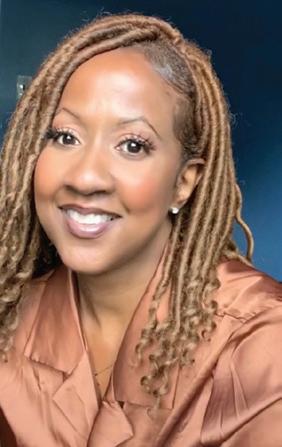
Where do you work? I am a family medicine physician at CareSTL Health.
Where did you go to school? I graduated from Cardinal Ritter College Prep High School. I attended Universidad Autonoma de Guadalajara, and I then earned a Doctor of Medicine degree from New York Medical College, Valhalla, New York.
What does a family medicine physician do?
I am committed to providing preventative care for our patients. In the morning before patients arrive, our team reviews the patient’s medical record and reason for their visit, which allows me to spend more time getting to know them. We perform physicals, sports participation exams, behavioral evaluations and more.
Why did you choose this career? As a child, I marveled at the thought of curing people who were ill. I remember when I was five years old, my mother told me that she was not feeling well and had a headache. I decided that if I kept talking to her, she would feel better. When she felt better in the morning, I was sure it was my talking that cured her.
What is your favorite part of the job you have? I truly enjoy seeing the smiling faces of both my children and adult patients as they come in for a visit. It is like they are an extension of my personal family.
Learning Standards: HPE6, NH3
“Questions or comments? Contact Cathy Sewell csewell@stlamerican.com or 618-910-9551


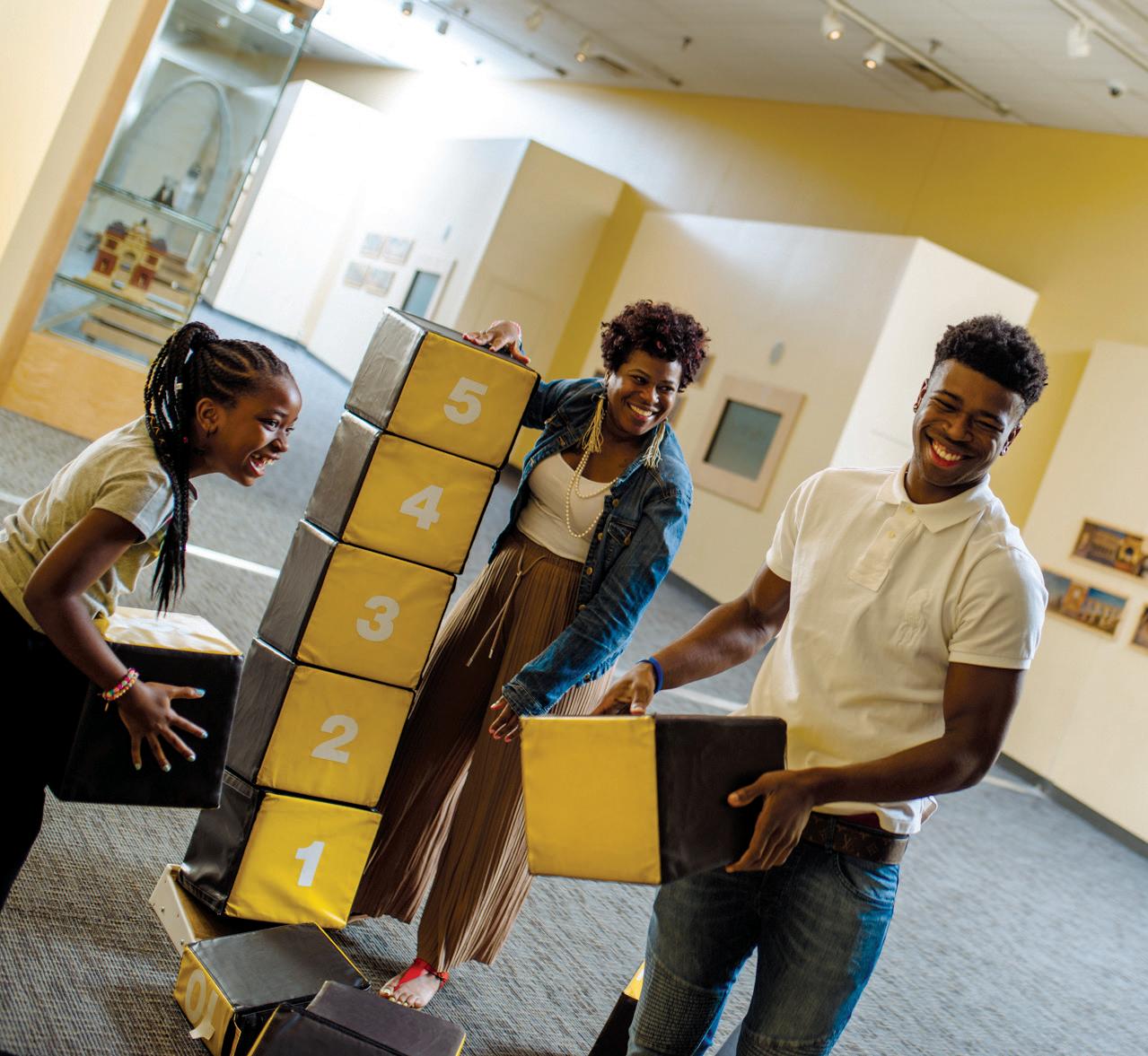






The St. Louis American’s award winning NIE program provides newspapers and resources to more than 8,000 teachers and students each week throughout the school year, at no charge.
Questions or comments? Contact Cathy Sewell csewell@stlamerican.com or 618-910-9551

Students in Ms. Bower’s and Ms. Sharp’s STEM Club at Westview Middle School use their computers as a resource for science research and lessons.
Westview Middle School is part of the Riverview Gardens School District.
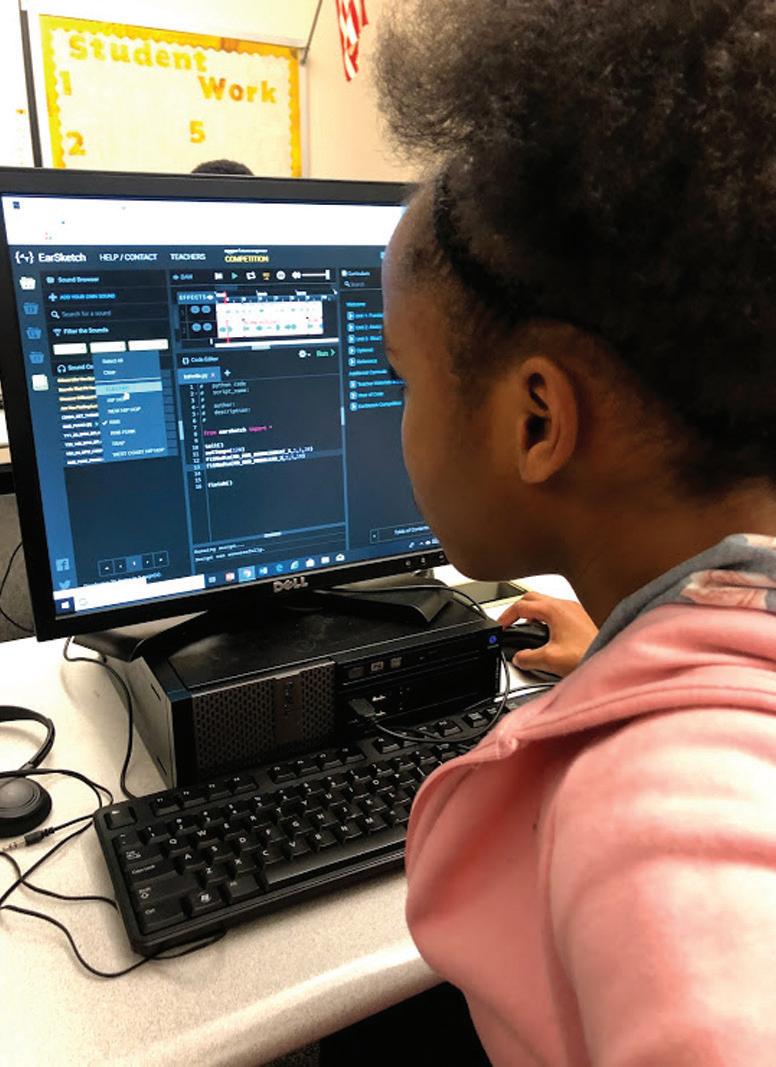

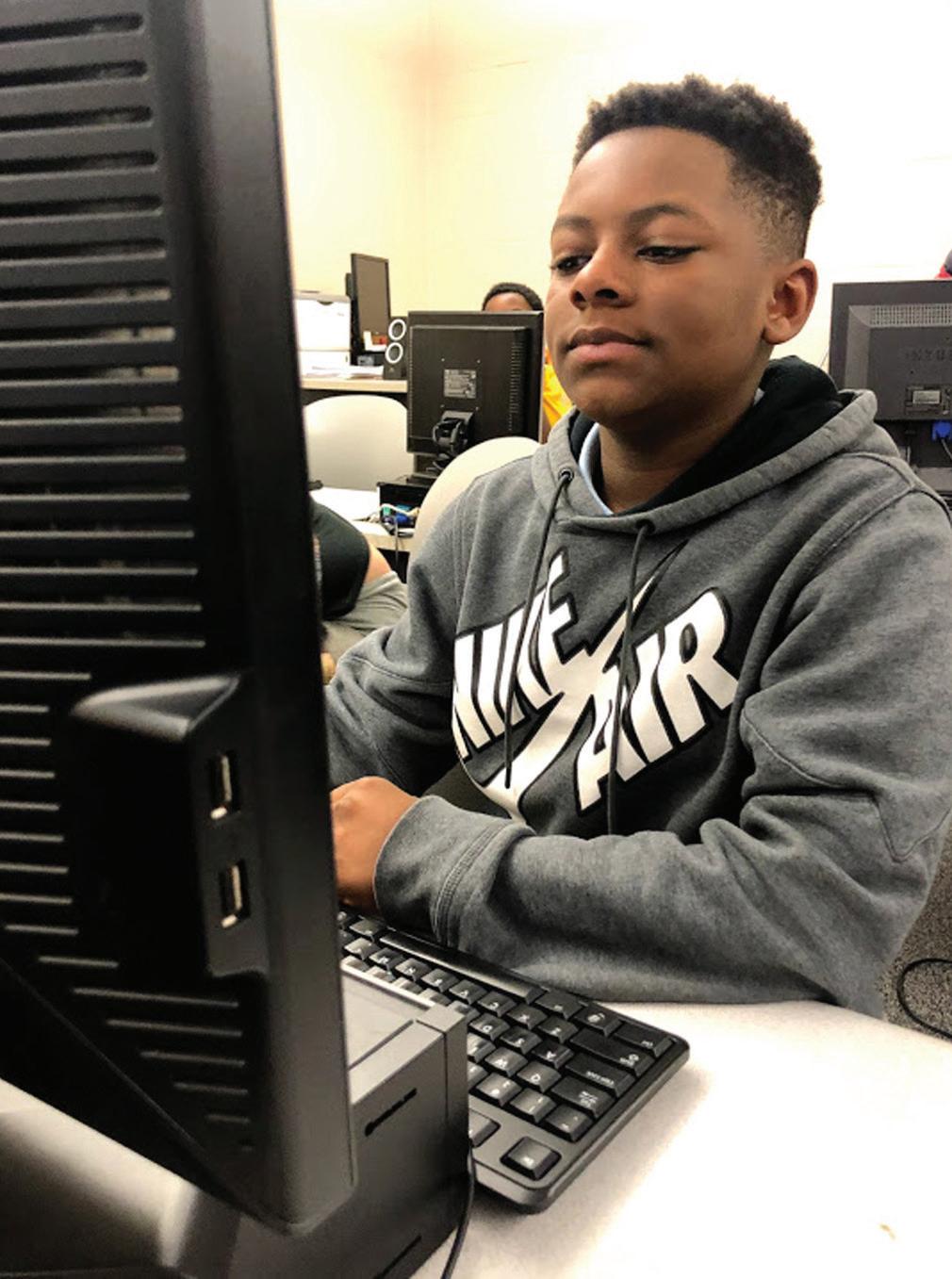
Meteorology is the study of the atmosphere, weather, and weather predictions. A meteorologist is a person who studies meteorology. There are many different types of tools used to predict the weather. A thermometer will give information about the temperature. A barometer measures air pressure. A hygrometer measures humidity, which is the amount of water vapor in the air. Technology, in the form of satellites, radars, and computers, are also used. When meteorologists make weather predictions, they look at temperature, humidity, dew

In this experiment, you will witness how a thermometer works.
Materials Needed:
• Clear, plastic bottle (empty water bottles work perfectly) • Water • Rubbing Alcohol
• Clear Plastic Drinking Straw
• Modeling Clay • Food Coloring
Procedure:
q Fill about 1/4 of the bottle full with equal parts of water and rubbing alcohol.
w Add a few drops of food coloring.
e Put the straw in the bottle, but don’t let it touch the bottom.
MATH CONNECTION

Flex those brain muscles as you answer these word problems!
z After the temperature had risen 16°F, the temperature was 9°F. Write and solve an addition equation to find the starting temperature. ______
x Each yard in the neighborhood had 3 trees. The hurricane blew 1/2 of them down. There are 26 yards in the neighborhood. How many trees are left standing? ______

Hilo, Hawaii, is the wettest city in the United States with an average annual precipitation of 128 inches.
point, air mass, and fronts. They look at the sky to see if it is clear, and they study types of clouds. Meteorologists make observations and predictions based on these facts and on previous weather trends.
For a list of vocabulary terms associated with weather prediction, visit: http:// www.weatherwizkids.com/weather-words.htm.
Learning Standards: I can read nonfiction text for main idea and supporting details. I can make text-to-text connections.
r Use the modeling clay to seal the neck of the bottle to secure the straw in place. (Make sure the straw does not touch the bottom of the bottle.)
t Hold your hands on the bottom of the bottle and watch the mixture move up through the straw.
Reflection: When the mixtures in a thermometer get warm, they expand. Your hands provided the heat in this experiment.
Learning Standards: I can follow sequential directions to complete an experiment. I can draw conclusions and analyze results. I can make text-to-world connections.
c An average of 3 1/8 inches of rain fell each month from April-October. What is the total amount of inches that fell during that time period? ______
v If it is -2°F in Alaska and it is 75°F in Honolulu, what is the temperature difference between the two cities?
b In Buffalo, New York, the temperature was -4°F in the morning.
If the temperature dropped 7°F, what is the temperature now? ______
n The daily temperatures for the past week were 71°, 82°, 66°, 58°, 67°, 75°, and 63° degrees Fahrenheit. What was the average temperature? ______
Learning Standards: I can add, subtract, multiply, and divide to solve a problem.
Prospect Creek, Alaska, holds the U.S. temperature record for the coldest temperature, minus 80 degrees Fahrenheit. Death Valley, California holds the U.S. temperature record for the hottest temperature, 134 degrees Fahrenheit.

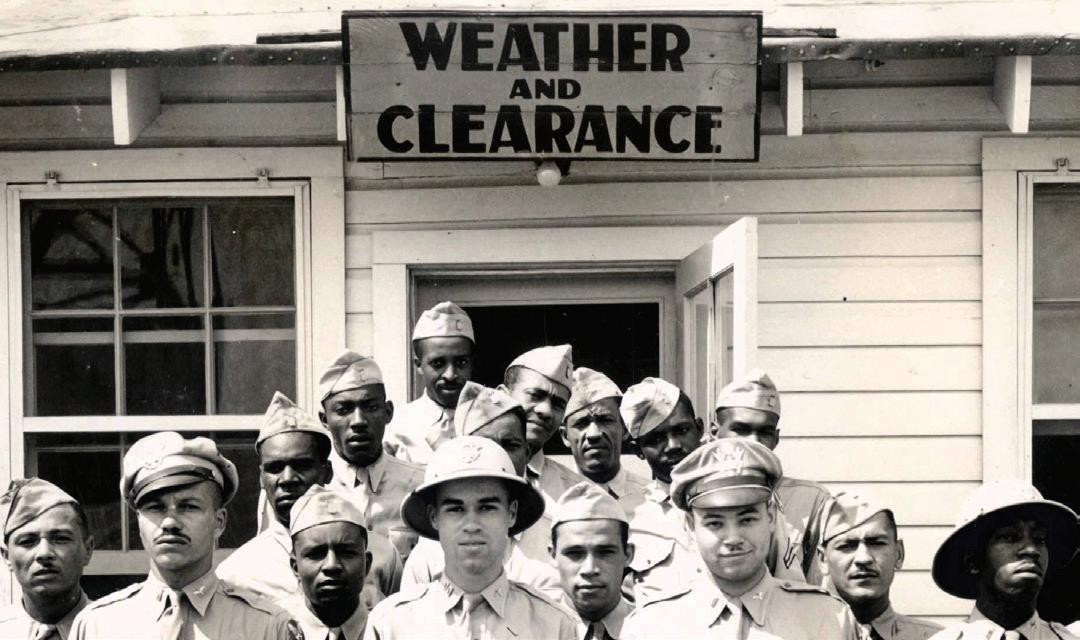
During World War I, there were a lot of developments in aviation. Therefore, there was a need for military meteorology so the pilots could be safe while they were in flight. In that time period, many African Americans were not active in the field of aviation because their financial background limited their resources. Also, Jim Crow laws made it difficult for African Americans to enter the military at that time.
In 1938, Mary McLeod Bethune was an African-American activist and was elected to President Roosevelt’s “black cabinet.” The black cabinet was a group of public policy advisors for the president. Bethune persuaded Roosevelt to implement pilot training programs at black universities, such as Tuskegee. The Tuskegee airmen were the African-American military aviators in the US Army in World War II. They were called “red tails” because of the red tails in the airplanes they flew.
The Tuskegee weathermen were formed on March 21, 1942. They were part of the Tuskegee Army Flying School and they supported the Tuskegee pilots. These weathermen had to pass very difficult tests and challenging classes to qualify for this program. These meteorologists had to gather data, and apply mathematical and physical principles to this data.
After the war, retaining these trained meteorologists in the field helped with the expansion of the American Meterological Service (AMS). Some of the Tuskegee weather officers pioneered in meteorology after the war. The first African-American weather cadet, Wallace Reed, became the first African-American meteorologist in the Weather Bureau. John Willis went into weather technology development at Air Force Cambridge Research Laboratory. And Charles Anderson went on to be the first African American to earn a Ph.D. in the field and taught for many years as a professor at the University of Wisconsin and North Carolina State University.
As of 2015, only two percent of AMS members are African Americans.
Learning Standards: a development in the fields of science, technology, engineering, or math.

Enjoy these activities that help you get to know your St. Louis American newspaper.
Activities —
Weather Headlines: Select a weather headline like. Write a poem using the line of the poem.


Weather Prep: Write an editorial to persuade newspaper readers to get prepared for severe weather emergencies.
Learning Standards: I can use the newspaper to locate information. I can write for a specific purpose and audience. I can make text-to-text connections.
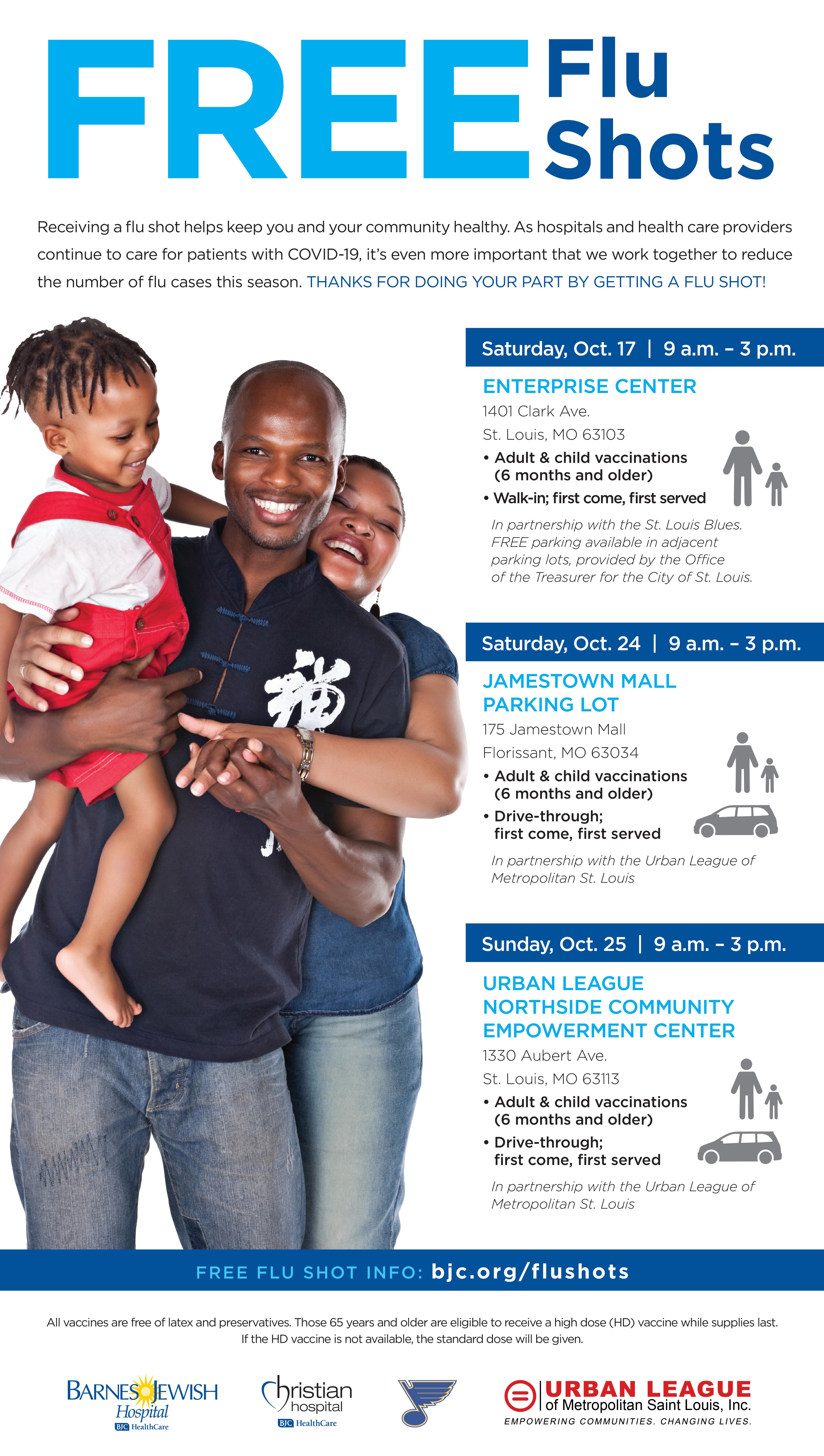
Down at the barbershop with Nicole Galloway
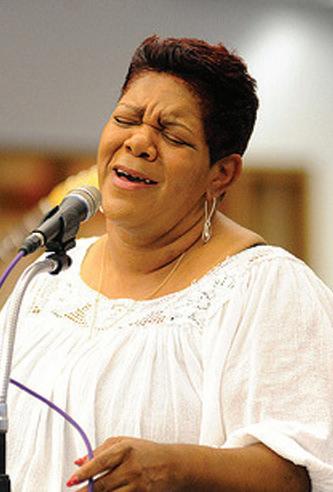
October
By Kenya Vaughn
Of The St. Louis American
More than just household name among the St. Louis music scene, Kim Massie was proof that living the life you dreamed for yourself is possible from right where you are. Massie passed away Monday night after battling several health challenges in recent years – including thyroid cancer.
“Words cannot express what this amazing soul meant to me and my family,” cousin Wende Wilson said via Facebook. “Although we are saddened by the loss, we are rejoicing that she is turning the heavens out with that angelic voice that has blessed this world!”
Born in the Metro East, Massie lived a large portion of her life in Lorain, Ohio.
“I spent 33 years there, and I decided to move back to St. Louis in 1999,” Massie told The St. Louis Beacon in 2013. “It was absolutely the best thing I ever did!”
The beginning of her love of music begins like many – in the Black church. She started singing gospel at nine years old. But she put her passion on the back burner to carve out a life for herself and her children. In the early 1990s she discovered karaoke. In less than a decade, she had become a karaoke master – which earned her countless prizes, including cash and a few cruises. Soon after returning to St. Louis, she decided that she would earn a living with her voice. It was a bold move for a middle-aged grandmother with no professional experience, but the St. Louis entertainment industry will be forever grateful for her decision.
“We’ve lost a library – a repository of culture in song and music – and someone in a community like St. Louis whose work and artistry crossed all boundaries, borders,” said Ron Himes, founder and producing director of the St. Louis Black Repertory Company. “She was just a beloved person of this community.”
Massie introduced herself to the music scene by sitting in at venues such as BB’s Jazz, Blues & Soups. When she crossed paths with St. Louis music legend Oliver Sain at the popular downtown spot, she asked him if she could sit in with his band during a performance. After that performance, Sain did the asking. Joining him on stage at BB’s became a regular thing. She went on to record a song with Sain entitled, “High Heel Sneakers.”
Bud Jostes saw Massie singing with Sain while in the process of scouting talent for his new venue, The Beale on Broadway.
The Beale on Broadway’s resident diva
Her name soon became synonymous with the live music spot, thanks to an 18-year run. Jostes aided Massie in putting together a band, the Solid Senders. The band featured Matt Murdick and Tom Maloney.
Massie developed a cult following from her
See Massie, B3
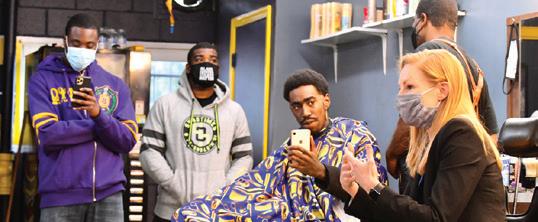

Phil Long is the winemaker at Longevity Wines in Livermore, California and president of the Association of
American Vintners.
Phil Long tries to grow the Association of African American Vintners – and smoke-free grapes
By Chris King Of The St. Louis American
When thinking of wine, we tend to think of red wine and white wine. Phil Long, however, makes it his mission to get people thinking about – and drinking – Black wine.
Long is president of the Association of African American Vintners (AAAV). Of its 21 members, two-thirds make wine in California. Long is one of them; his Longevity Wines is based in Livermore, which is equidistant from San Jose and San Francisco. No Black wine is being made in Missouri professionally. The closest AAAV members to St. Louis are Jenny Dawn Cellars in Wichita, Running Tigers Wines in Atlanta, and Stover Oaks Winery in Cleveland.
n “In the first two weeks of June, due to Black Lives Matter, we saw more online wine sales than we saw in all of 2019. It’s been a rollercoaster ride for us.” – Phil Long
You can, however, buy Long’s delicious wines in St. Louis. Priced at $16 per bottle, his Longevity Chardonnay and Longevity Cabernet Sauvignon are stocked by Intoxicology (4321 Manchester Ave. in the Grove), Southside Wine & Spirits (5017 Hampton Ave. in South St. Louis) and Total Wine & More (in Ballwin and Chesterfield). Longevity is distributed by Bronco Wine Company in Ceres, near Modesto, where Long also is making these new wines in batches big enough for national distribution. His distributor notes that stocking Longevity wines will help retailers meet supplier diversity goals. These carefully made wines come with another bonus, in addition to buying Black: they are stoppered with the innovative Helix cork from Amorim and Owen-Illinois, a cork that screws in and out of the bottle without need for
Suspense thriller
‘Black Box’ is telling of African American male support systems
By Kenya Vaughn Of The St. Louis American
With his directorial debut “Black Box,” Emmanuel Osei-Kuffour Jr. effectively inserts himself among the fresh voices in film that are actively broadening the spectrum of contemporary black cinema. The psychological thriller was among a collection of horror flicks presented by the Blumehouse Productions banner that landed on Amazon Prime throughout the month – just in time for the Halloween season. “Black Box” premiered on October 6.
“Who Am I?” is the question that Nolan Wright is faced with over the course of the film. Not in a rhetorical sense, but an actual one. In “Black Box,” Wright is forced move through a traumatic experience without the basic fundamentals that instill the fortitude that one leans upon for resilience while in the midst of unspeakable tragedy. Though his body
a corkscrew.
Long launched Longevity nationally on March 1 – just before states and cities across the nation began issuing stay-at-home orders and ordering businesses, including businesses that sell wines, to close in order to limit the spread of COVID-19. “The first quarter was horrendous,” Long said. The pandemic’s impact on winemakers has been complex. “People were staying home and drinking more,” Long said. “However, there is a really, really interesting dynamic surrounding this. The wines people were drinking were in the grocery store, already on the shelf. Retailers were hesitant to take on new brands. They were more worried about making sure they had toilet paper.” So, new national brands like Longevity did not move onto store shelves. Meanwhile, Long said, “On-premise sales at restaurants and hotels
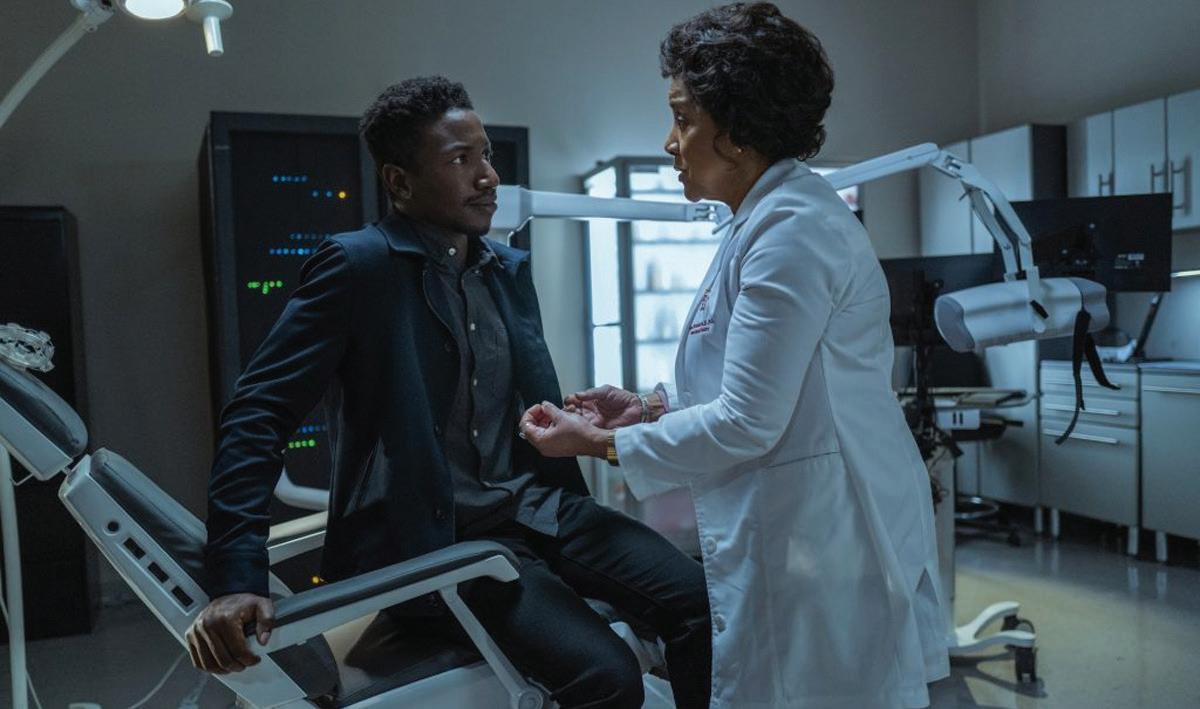
residency at The Beale on Broadway. Her fans followed her wherever the music took her. While keeping her gig at the Beale on Broadway, she pursued other offers and opportunities. Himes was introduced to Massie by his future wife Heather Beal and instantly became a fan. He and Beal would meet each Thursday at The Beale to watch her perform. He invited Massie to make her stage debut as part of the ensemble for the St. Louis Black Repertory Company’s
production of “Ain’t Nothin’ But The Blues” in 2003. She also performed in that year’s season finale musical, “Damn Yankees.”
“It was just beautiful to see her expand and share her gift another way and be willing to try something new – and to always be working and growing as a performer,” said Himes. Massie opened for several major national acts that came to town. Very quickly she grew into a St. Louis celebrity in her own right.
“I can’t even begin to tell you how blessed I am,” Massie told The American back in 2004. “I get to provide for my family doing what I love and what I have been gifted to do. It’s a feeling I hope everyone gets to experience in their lives – even
specific to a certain socio-economic status.
experiential treatment at the hands of a pioneering neurologist. In the process he becomes a mad scientist’s unwitting guinea pig.
The film isn’t as unpredictable or terrifying as one would hope for from a sci-fi horror flick. But what it lacks in fear factor “Black Box” makes up for in the lingering slow burn of questions it poses to the audience as they imagine life from Nolan’s vantage point. “How would you function if the life you worked to build was suddenly stripped away – from the inside out?” “How reliable is your support system?” “What is the next right step when you can’t look back?”
“Black Box” also deserves props for its dismantling of Black male stereotypes – both with respect to fatherhood and the level of commitment in which Black men show up to support each other in times of need on all fronts. The film also reminds viewers that toxic behavior and actions aren’t
The film stars relative newcomer Mamoudou Athie as Nolan Wright. He is the latest among the fresh faces that come to the big and small screen courtesy of the Yale School of Drama. Among them include recent Emmy Award winner Yahya Abdul-Mateen
if it’s just for a little while.”
A favorite among St. Louis music fans
Back then she was just getting warmed up. In the past 20 years she was a guaranteed good time on stage with the nerve to cover just about any tune –from crooning Aretha Franklin to rapping the bridge on Montel Jordan’s “This Is How We Do It.” But Massie’s true legacy will be how she inspired others and committed herself to providing an unfiltered exchange of joy with every performance. Twilight Tuesdays, Blues At The Arch, LouFest she was a sure thing crowd pleaser whenever and wherever she was called to the microphone. She received several awards –
including being named a 2005 Visionary Awards honoree. Her appearances are too many to name. She recorded several CDs, the first being 2001’s “A Diva’s Survival Guide.”
When The Beale at Broadway closed last year, she was the final act to grace the stage.
“The Beale was where I developed the stamina; it was where I honed the craft,” Massie told St. Louis Magazine in 2019. “I had a place. I had a home. It was technically a blues bar, but after Bud saw what I could do, he allowed me to do whatever – blues, jazz, rock and roll, country western, R&B.”
The freedom to cross genres came in handy, as she often covered songs and was presented to audiences outside the traditional Blues and R&B
the film requires of them. As daughter Ava Wright, Amanda Christine teeters between tenderness and frustration with agility as she adapts to her new normal of an elementary school student suddenly thrust in the role of head of household because of her father’s impediments. Tosin Morohunfola provides support for Nolan in every way imaginable as Dr. Gary Yeboah. He proves faithful to his friendship as an ally in Nolan’s family, his emotional well-being and his health. The chemistry is authentic as the multifaceted bond between he and Nolan is presented –which is not atypical for Black men, but a rarity to be displayed in full on screen with such richness and depth.
II, “Lovecraft Country” star Jonathan Majors and Oscar winner Lupita Nyong’o. Phylicia Rashad, who portrays neurologist Dr. Lillian Brooks, is the lone veteran in the small ensemble of fresh faces that rise to film what


True to form, Rashad is delightful as Dr. Brooks. As she descents into immoral medical practices for her own secret agenda, there is tinge of sadness that she wasn’t afforded the opportunity to be a fullfledged film star – both before and after her career defining role on “The Cosby Show” as Claire Huxtable.”
“Black Box” can be viewed on Amazon Prime. The film has a running time of 100 minutes.

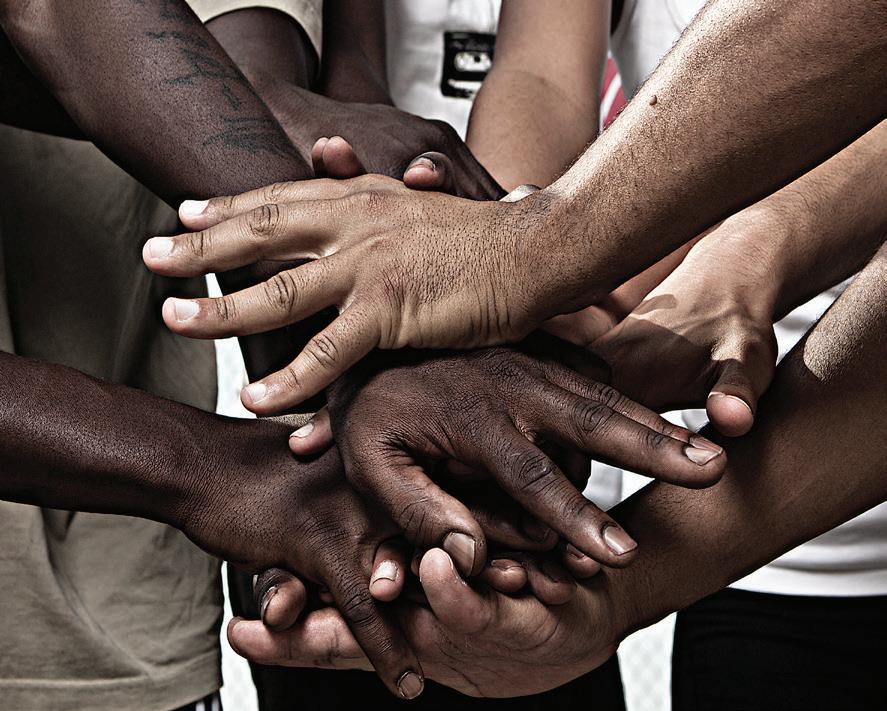
disappeared, they vanished, they went away.”
Longevity closed its tasting room in Livermore the second week of March, before California’s statewide stayat-home order was issued on March 19. Long did not reopen his outdoors tasting room until Labor Day – when the public had to brave temperatures over 100 degrees to drink his wine outdoors. Between stay-at-home and swelter-outdoors, Long’s business and life endured two more stunning jolts.
On May 25, George Floyd was killed by Minneapolis police officers, and the nation erupted in protests. These Black Lives Matter protests were met with an unusual degree of mainstream solidarity. The new calls to Buy Black made a difference to AAAV members.
“In the first two weeks of June, due to Black Lives Matter, we saw more online sales than we saw in all of 2019,” Long said. “It’s been a rollercoaster ride
scene. Her fan base was as wide-ranging as her set list. The entire music scene – from hip-hop and soul to country and the blues have are expressing their condolences and speaking on what an inspiration she was to the scene – on both sides of the stage.
Singer Justin Hoskin shared a touching tribute of the impact Massie had on him as a performer.
“One night I was so nervous at a show, unsure of the crowd and what they wanted. I was on a bill with some heavy hitters, and I wanted to make a good impression,” Hoskin said. “In walks Ms. Massie, and says, ‘You singing tonight?’”
She told him she was going to get a seat because she was expecting to hear some “good
for us.”
Three months later, the rollercoaster caught fire.
Longevity’s second weekend being reopened to the public in September, you couldn’t breathe outside for all of the smoke from wildfires. The fires and smoke have now subsided, but they left doubts in vintners. Not only people, but grapes were breathing in that smoke.
“We didn’t lose any grapes to the fire, but we have to be careful of the smoke taint to grapes,” Long said. “Smoke taint is not something you understand or detect until after the must has fermented. We’re having to take extra precautions because of the fruit.”
It’s been a long year for Phil Long and all of us, and Long took over as president of the AAAV on January 1. He sees the peak of his rollercoaster year in the surging mainstream support of Black lives and institutions as most critical to his plans for the association.
“I had my own set of ideas about growing the organization. I wanted to really rekindle the scholarships program to get young African Americans into the industry. But then I pivoted,” Long said.
singing.” “I knew who she was, but I had no idea she had ever heard of me,” Hoskin said. She gave me a standing ovation herself. I don’t need a nod from nobody, I got a co-sign from Kim Massie!”
Her influence reached beyond the circle of music.
“A St. Louis icon has passed away,” St. Louis Board of Aldermen President Lewis Reed said via Twitter. Through her non-conventional path, Massie wanted to give license for others to live out loud.
“I hope when my grandbabies – and everybody else – see me on stage, they know that they can go wherever their gifts lead them,” Massie said.
“With the larger public role of Black Lives Matter in June and the tremendous surge in support of scholarship partnerships and revenue, I went from president of an organization trying to grow the organization in general to being a spokesperson for African Americans in the wine industry overnight.” Long suggested that Black folks interested in a career in the wine industry check out the AAAV website. You can learn about African-American winemakers, sign up for the association newsletter and buy some Black wines if you are old enough. There is also a public information event coming up with AAAV and Wine Enthusiast at 2 p.m. CST Wednesday, October 28 featuring three Black winemakers talking about their diverse paths to owning their own winery. Spencer Christian will moderate the event. Sign up at https://tinyurl. com/AAAV-Black-wine. For more information on the Association of African American Vintners, visit https:// www.aaavintners.org. For Longevity wines, visit https:// www.longevitywines.com. Thanks to Gail Appleson.





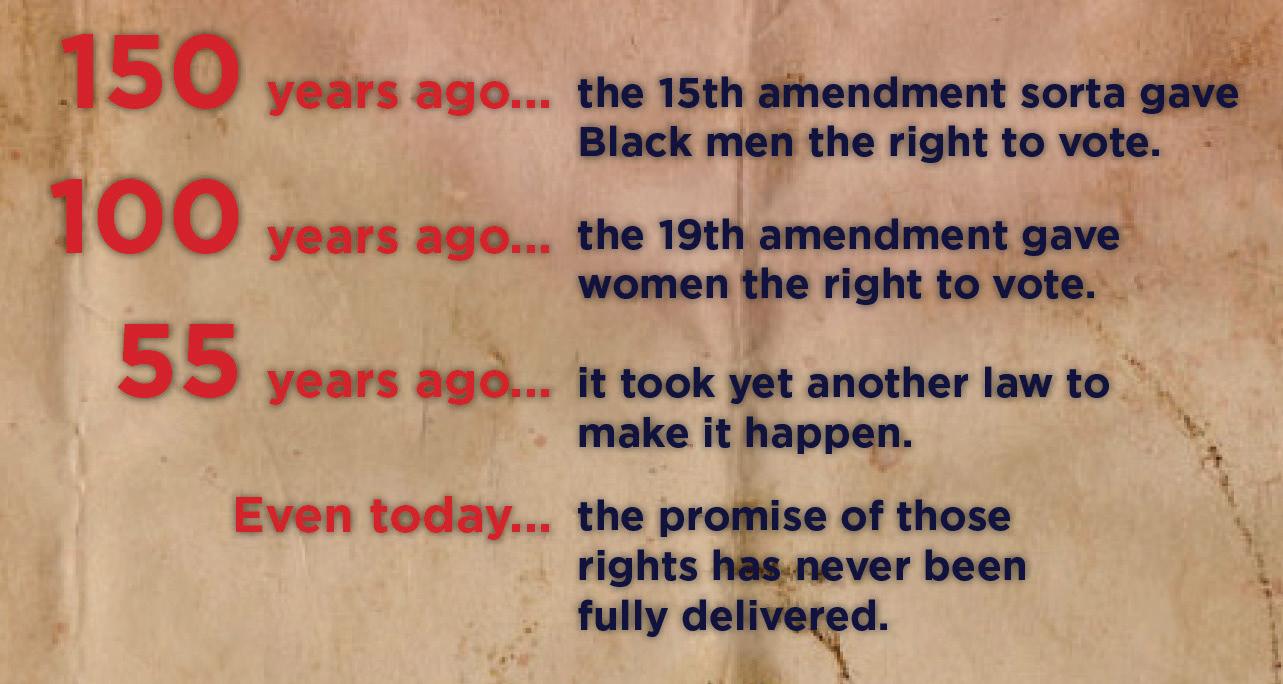



By Ellen Kunkelmann
Missouri Historical Society
The history of women’s activism in St. Louis began long before 1920, when Missouri ratified the 19th Amendment and gave women the right to vote. A new book from the Missouri Historical Society Press, Groundbreakers, Rule-breakers & Rebels: 50 Unstoppable St. Louis Women, tells the stories of 50 female pioneers with ties to St. Louis, from early settlers like MarieThérèse Bourgeois Chouteau to entrepreneur Annie Turnbo Malone and renowned activist poet Maya Angelou.
The book is a companion to Beyond the Ballot: St. Louis and Suffrage, open now through March 20, 2022, at the Missouri History Museum. This is the second collaboration for author Katie J. Moon and St. Louis artist Rori!, who worked together as content lead and illustrator, respectively, on Beyond the Ballot. Moon, an exhibits manager at MHS, emphasizes that this book is unique in its specific focus on St. Louis women.
“When we decided to highlight individual women in the Beyond the Ballot exhibit at the Museum, it seemed like a natural step to create a book that included most of those women as well as 25 more. Too many of the histories of St. Louis overlook the impact and contributions of individual women to the growth of the city. Hopefully this book is the first of many that highlight those stories and brings them to the attention of the general public.”
“With both the exhibit and the book, I expected that my biggest challenge would be finding enough women to highlight,” she says. “Much to my surprise (and delight), the number of women who deserve to be included is in the hundreds. The true challenge was determining which 50 made it in. These stories really are just a small representation of the countless ways that women created change in St. Louis. My goal was to include both wellknown and largely unknown women from all walks of life, and to tell as much of their complex stories as possible. It might be less than scientific, but I often thought about who I would most like to chat with over a cup of coffee.”
By taking a closer look at decades of St. Louis women from every race, class, and creed, a richer picture of the entire city’s history begins to emerge. One third of the St. Louis women profiled are
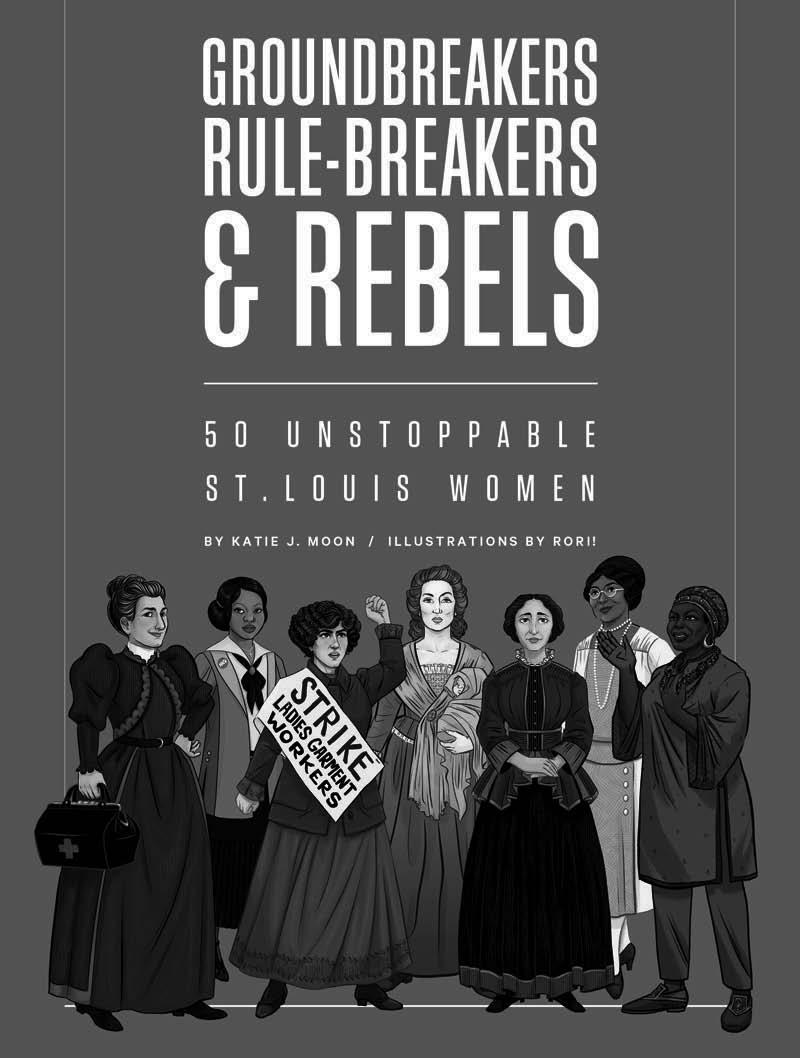
By Chris King Of The St. Louis American
Brittany Packnett Cunningham will be hosting a new weekly podcast for The Meteor called “Undistracted.” The podcast will dive into the news of the day with an unapologetically woman-centered point of view. “Undistracted” will consider the biggest stories through the lens of gender, race, ability, and more while featuring actionable takeaways for audience engagement.
Packnett Cunningham and The Meteor – a collective of activists, journalists, and creators building a new platform focused on modern feminist work – are producing the podcast in partnership with Pineapple Street Studios, award-winning producers of “Wind of Change,” “The Catch and Kill Podcast with Ronan Farrow,” and “Back Issue.”
“It will require radical imagination, joy and power to design the fully just world we all deserve,” said Packnett Cunningham, a St. Louis native. “Together at ‘Undistracted,’ we’ll do exactly that, because we have no time to waste.”
She said it was her responsibility to use her access to shift the demographics by giving others a seat at the table – to “kick the door open so wide and drag in 10 people who look like you so that the room looks completely different when you’re done.”
Cunningham said part of making that room look different is grooming girls to be leaders.
“We help young girls internalize the wrong messages very early when they exhibit those type of skills,” Packnett Cunningham said. “We tell them that they are bossy and that nobody likes someone who is bossy. That’s not true. We like people who are bossy, as long as they are men. We don’t have a problem with little boys telling everybody what to do on the playground. But as soon as a girl exhibits those skills, we try to redirect her to a much more quiet existence.”
She is a former elementary teacher and education executive. She has held top roles at Teach For America and was a Congressional policy advisor. She served on President Obama’s 21st Century Policing Task Force and the Ferguson Commission, helping lead the country and her community through change during times of tumult.

Black. Moon explains, “The more I read and research St. Louis history, the more I’m blown away by the strength and resilience of Black women in this city. They’ve consistently been ignored, mistreated, and underestimated, and yet we have women like Esther, Priscilla Henry, Annie Malone, Julia Davis, Maya Angelou, and more, who broke so many barriers and paved the way for future generations.”
Additional Black women who are featured in Groundbreakers, Rule-breakers & Rebels include educator and Underground Railroad liberator Mary Meachum; dressmaker and author Elizabeth Keckly; clubwoman and teacher Arsania Williams; singers Willie Mae Ford Smith, Josephine Baker, and Fontella Bass; dancer Katherine Dunham, attorneys Frankie Muse Freeman and Margaret Bush Wilson, and Harriet Scott and Ethel Shelley, who took their civil rights cases to the US Supreme Court. Each of the trailblazing women in this book faced a host of specific obstacles and restrictions in their chosen fields that existed solely because of their gender. Their victories were all hard won and well earned. Groundbreakers, Rule-breakers & Rebels not
only expands the story of women’s suffrage beyond the fight to win the right to vote, but also reveals how generations of fearless female fighters can be found throughout American history, in any city where you might look.
“I hope that readers will be surprised, challenged, and inspired by the lives of the women they read about. We need to know the names of more women in St. Louis history—and their specific contributions. Even if readers remember just one woman and her story from the book, I’ll count it as a success and a huge step in the right direction,” Moon concludes.
On Thursday, November 5, at 7 p.m., meet Katie J. Moon, author of Groundbreakers, Rule-breakers & Rebels: 50 Unstoppable St. Louis Women, at a virtual author event presented by St. Louis County Library and HEC Media. Visit slcl.org/content/upcoming-authors for more information. Books can be purchased for $14.95 at the Missouri History Museum Shop at (314) 4543172 or mohistory.org; on Amazon.com; and at area bookstores.
Packnett Cunningham – an MSNBC contributor, 2020 Fellow at Harvard’s Institute of Politics, and former co-host of “Pod Save the People” – came to national prominence during the Ferguson unrest and co-founded Campaign Zero, leveraging her management, communications, policy and equity skillset on broad justice issues from public education to criminal justice.
“Being an executive director, in a seat that is well respected in the community, meant that there were folks in the room who didn’t know anybody who was marching in the streets of Ferguson except for me,” Packnett Cunningham said at the She Leads conference at Washington University last October. “There were so many times where I knew my job was to help translate the frustration and justified anger, the wants and desires of the people on the street that I had audience with.
Packnett Cunningham graced the September 2020 cover of British Vogue and a previous cover of Essence Magazine, been listed as one of Time’s 12 New Faces of Black Leadership, and has been honored by BET, Politico Magazine, Marie Claire, The Trayvon Martin Foundation, Higher Heights and more. She serves on the Gucci Changemakers Council and the Sephora Equity Advisors Board. She and her husband live in Washington, DC.
The Meteor also announced “30 Days Till Tomorrow,” a daily Instagram series focused on voting rights and voter suppression in the lives of women, girls and nonbinary people in the 30-day run-up to Election Day. The series is a mix of documentary-style film, personal storytelling, animation, and art, bringing alive the interaction of race, gender, and a historic election. Throughout the month, the series will include daily calls to action, conversations, and workshops to connect storytelling with solutions, shared widely on The Meteor’s collective members’ platforms. Download “Undistracted” at https://tinyurl. com/Undistracted-pod. Follow The Meteor on Instagram and at WeAreTheMeteor.com.
Jeannine and Bria

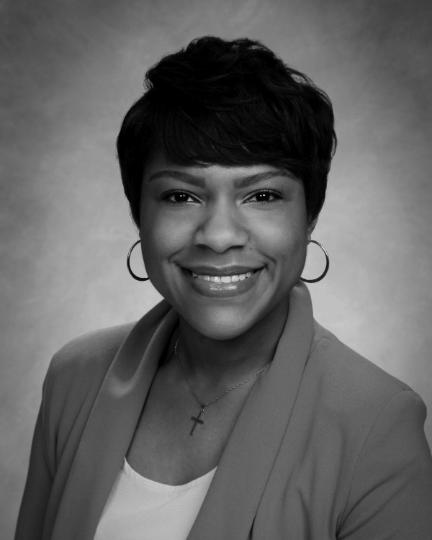

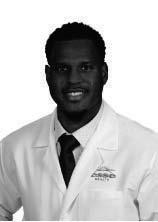
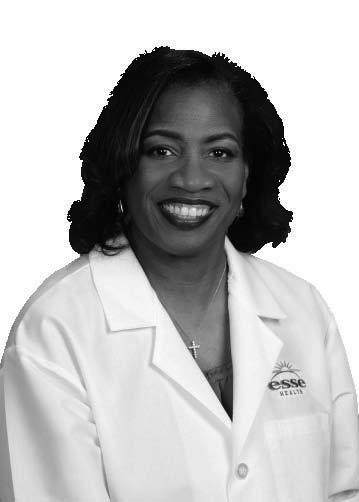

15th – December 7th! Office of Jerome Williams, M.D. 3409 Union Blvd. St. Louis, MO 63115 (314) 261-4834
American staff
EXPO-MO (EX-incarcerated People Organizing-MO) is staging an action to support persons incarcerated in Missouri’s prisons and detention centers on Thursday, October 15, at 10 a.m. in the rotunda of the State Capitol, 201 West Capital Ave. in Jefferson City. The action comes in response to the spread of COVID-19 throughout the facilities of the Missouri Department of Corrections.
EXPO-MO is a part of Metropolitan Congregations United (MCU) and Our Lives Matter.
“We have friends and family locked up with COVID-19,” said Tracy Stanton, EXPO/ MCU team leader. “Some of them are actively infected, very sick and only being isolated. No one is being treated with humanity, simply as expendable.”
Earlier in the year, both organizations wrote to officials at the Missouri Department of Corrections and to Governor Parson requesting that persons who could be reasonably released, should be. Those included persons over the age of 65, those already suffering from debilitating diseases, those scheduled for release in the next few months, and others. Those letters can be found at https://tinyurl.com/ MCU-Parson.
“Our people are not able to fight for themselves; therefore, we have a responsibility to expose the injustices that are taking place inside of MDOC,” said Stanton. “We have called, written letters, and filed grievances, yet neither the director of MDOC nor the prison authorities have deemed it necessary to release anyone or protect the lives of those incarcerated or even those working at the facility.”
A death at the Farmington facility has left leaders of both groups with questions. Though Earl Miller’s death has not officially been linked with COVID-19, there are inconsistencies between what officials are reporting and what inmates are experiencing.
“We need to bring attention to all the centers and all the neglect,” said Maria Miller, founder and director of Our Lives Matter. “There has also been death in Pacific and major riots in Bonne Terre and Pacific because of the conditions. Now Moberly has the virus spreading like wildfire. The riots are a result of the way staff are treating those incarcerated and suffering after testing positive. We need to address all the issues in all the prisons!”
As of September 28, the
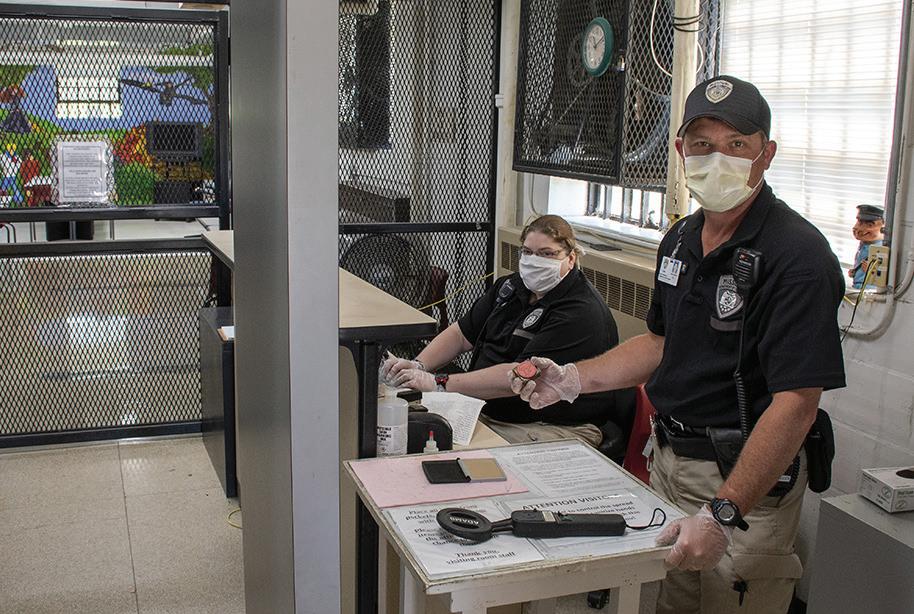
n “We have friends and family locked up with COVID-19,” said Tracy Stanton of EXPO/MCU. “Some of them are actively infected, very sick and only being isolated. No one is being treated with humanity.”
total number of cases listed by the Missouri Department of Corrections were 753 active inmate cases and 207 active staff cases. The hardest-hit facilities were Farmington (287 active cases with 158 recovered

cases), Vandalia (203 active cases with 103 recovered cases), Bonne Terre (48 active cases with 302 recovered cases) and Chillicothe (253 recovered cases)
“Our Lives Matter and Expo
ST. Louis’ concerns are that we have heard from several Inmates that the isolation protocols of MDOC are not being followed, that the isolated still attend meals with the general population,” said Miller.
“Inmates state that the staff do not take the virus seriously. Our Lives Matter has also heard that once isolated, the inmates’ tablets are taken away and thus communications with the outside is being cut off.
Inmates also state that others are afraid to admit that they have symptoms out of fear of
isolation. We have been told that inmates are not receiving the supplies to keep the area sanitary. Inmates state that they have limited access to showers.”
Our Lives Matter and EXPOSt. Louis also question the ability of MDOC to isolate positive cases because of prison overpopulation. Our Lives Matter is asking why MDOC lags behind other states when it comes to releasing inmates that are near their out dates.
EXPO/MCU and Our Lives Matter are asking that:
• The Missouri Health Department inspect the prison to make sure that proper COVID19 safety protocols are being followed including accurate and timely testing
• Inmates have P.P.E.
• MDOC release the chronically ill.
• MDOC release those with an out date within 6 months
• Regular visitation be resumed with safety protocols or video visitation be provided.
• Those who have been denied parole in the last five years on an inadequate parole board new hearing.
EXPO/MCU and Our Lives Matter invite all persons with family and friends impacted by COVID-19 and incarcerated to be a part of this action. Contact Maria Miller at 314-467-8341 or MCU-Expo@mcustl.com.
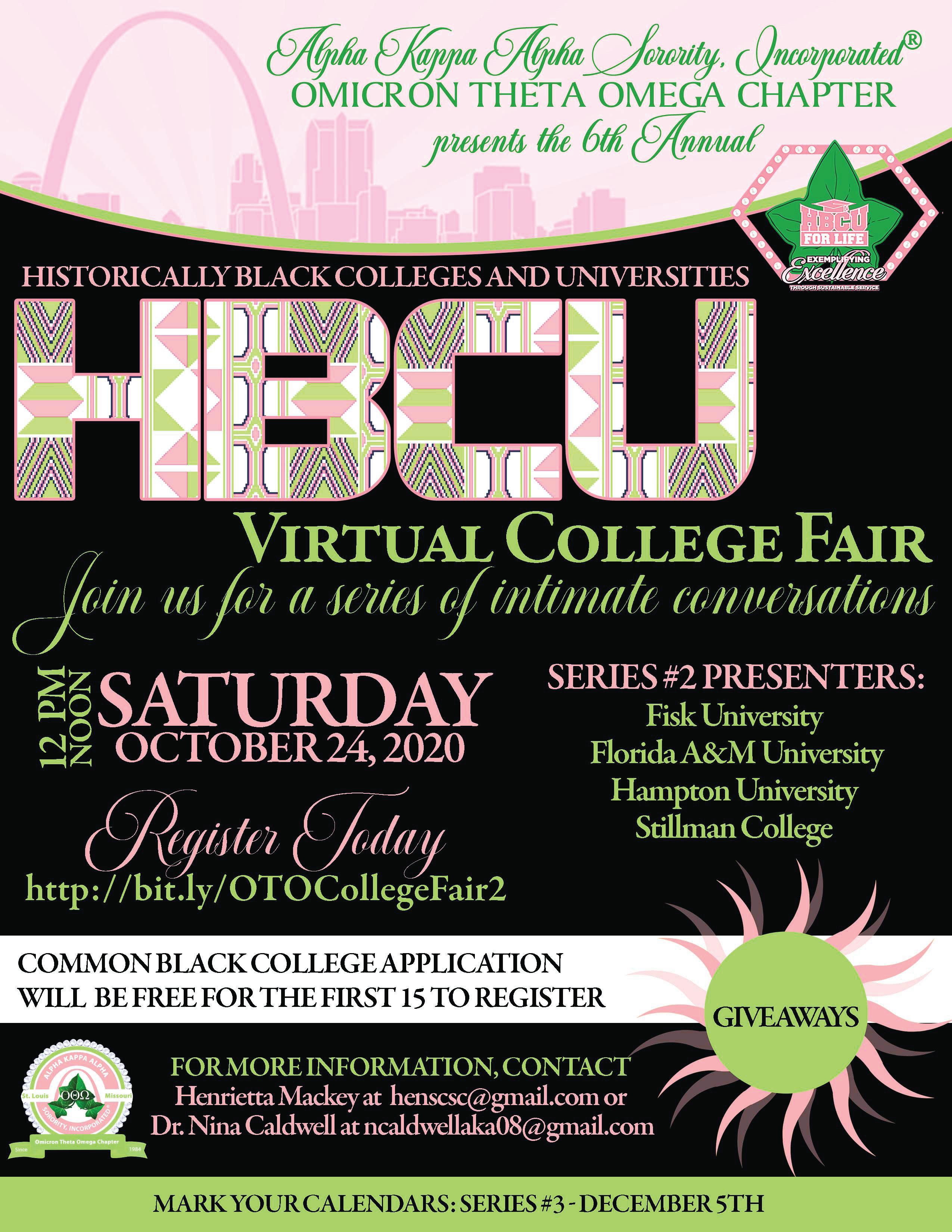
For the first time in a long time I went to a church service last Sunday afternoon.
It was outdoors on the parking lot of Kirkwood United Methodist Church where I attend and, whew, it was hot. But I felt so much better about the nation, the world and myself as I walked back to my car. I was renewed with the simple thought of “Alvin, there’s hope.” Less than an hour later I’m sitting at a friend’s house and Dallas Cowboys quarterback Dak Prescott is sitting on motorized cart in tears waving goodbye to teammates, fans and the 2020 season.
A few minutes earlier his foot was at a 90-degree angle from his ankle. He suffered a compound fracture and dislocation. If you saw it, you know it was ugly. Man, you talk about a gut punch after a spiritually rich event.
Yet, by Sunday night my thought was that this wasn’t the complete disaster that so many NFL talking heads were spinning it as.
that got him would certainly not balk at delivering him a contract of desired length and financial reward. The Chicago Bears, Indianapolis Colts, Jacksonville Jaguars and even the Detroit Lions could be looking for a special quarterback come 2021.
Cowboys Executive Vice President Stephen Jones said Monday the team still considers Prescott the “quarterback of the future.” That and $3 will get you a cup of coffee at Starbucks.
Prescott’s surgery reportedly went well and he was released from the hospital less than 24 hours after his injury. He’ll get better. He’ll also get his money. Even if it is with another NFL franchise.
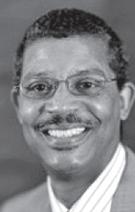
Prescott’s recovery time is an estimated four-to-six months. He won’t be running anywhere for a while, but he’ll probably be throwing a football before Thanksgiving. He should be 100 percent good-to-go by mid-summer when training camps are about to kickoff.
Through the first five games of the season, Prescott was on pace to have the best season ever by a quarterback in total passing yards. While his team has floundered, Prescott was smack dab in the middle of the MVP race.
While he was a franchise tag player without a long-term contract, he is making $31.4 million this year. Barring an alarming setback, Prescott will be ready to play next year, even if owner Jerry Jones is not willing to pay him what he wants.
Prescott could get the franchise tag again in 2021, which would raise his salary about 20 percent to almost $38 million. That’s still a lot of dough. He would then get an even larger raise as a free agent following the 2021 season. Given the opportunity, Prescott will test the open market and say goodbye to all the doubters in Dallas – including Jones. The Cowboys could also trade Prescott, and the team
A rosy trade for Rays Minutes after the St. Louis Cardinals dispatched of the Atlanta Braves early last October, outfielder Randy Arozarena live-streamed manager Mike Shildt’s profanity laced tirade against his vanquished opponent. That did not go over well with management.
Three months later, Arozarena was part of a trade that sent him, Jose Martinez and draft pick compensation to the Tampa Bay Rays in exchange for lefthanded pitching prospect Matthew Liberatore and catcher Edgardo Rodriguez We don’t know if Arozarena’s clubhouse antics led to his trade, but we do know that he became a sensation for the Rays in 2020 and is having an MVP-worthy postseason.
After Tuesday night’s game, Arozarena’s Rays led the Houston Astros three games to zero in the best of seven American League Championship Series.
Arozarena was as hot as lava when the postseason began, going 12-for-20 in the Rays’ first five postseason games. He hit home runs in each of the first three games against the New York Yankees in the ALDS, a hard-fought series which the Rays won three games to two. He blasted another home run in the Rays’ 2-1 opening game win against the Astros in ALCS.
His baseball journey began in his native Cuba. He left

his nation one night on a boat destined for Mexico’s Yucatan Peninsula. He would sign with a Mexican League team and the Cardinals wisely signed the prospect for $1.5 million.
He put up solid number during his minor league years for St. Louis. But the Cardinal let him go, keeping the likes of Harrison Bader and Tyler O’Neill. Both had disappointing seasons.
Arozarena missed the first month of the season after dealing with COVID-19, but in 68 at-bats he hit .281 with seven home runs, 11 RBI, scored 15 runs and stole four bases.
In his first nine post season games, he hit an astonishing .429 with four home runs and five RBIs.
“I’ve always considered myself a pretty good player and also a pretty good hitter,”
Arozarena said during the Yankees series.
Too bad the Cardinals didn’t
feel the same way. Of course, maybe the team did until the live stream.
Tony and Tim together?
The Chicago White Sox and former manager Rick Renteria reportedly mutually decided to part ways on Monday – which means he was fired.
The young, talented White Sox finished the season 35-25 before dropping a best-of-three Wild Card Series against the Oakland A’s.
Reportedly, former Oakland A’s and St. Louis Cardinals manager Tony La Russa is a top choice for the job.
La Russa is 76 and a member of the Baseball Hall of Fame. Why would he want to return to managing?
Jerry Reinsdorf, White Sox chairman, remains close friends with La Russa from his day way back as manager of the team. La Russa managed
With Earl Austin Jr.
the White Sox from 1979 to mid-season in ‘86 when he was fired. The White Sox won 99 games and the AL West title in 1983 and La Russa was named AL Manager of the Year.
The White Sox also have All-Star shortstop Tim Anderson, who won the AL batting title in 2019 with a .335 batting average. He hit .322 during the 60-game season and got an astonishing nine hits in 14 at-bats (.643) in the ALDS against Oakland.
The roster also includes ace Lucas Giolito (who threw a no-hitter this year) and young, everyday players Yoan Moncada, Eloy Jimenez and Luis Robert. There is a problem. Anderson is a bat-flipping, energetic chatterbox on the field. Many of his teammates play hard, but with a flair and style that might rub the oldschool La Russa the wrong way.
It could work out for La Russa and the White Sox if he changes his ways. I doubt he would do that, so this could be a stormy romance.
The Reid Roundup
Another Black baseball superstar has left us. Hall of Famer Joe Morgan, who starred for the Cincinnati Reds and won two World Series titles with them after a trade from Houston, died this week at 74. Suddenly, there are five Black head coaches in the NFL. Two carry the interim head coach tag, but for now it counts. Romeo Crennel took over for the fired Bill O’Brien last week and led the Houston Texans to a dominant win over the Jacksonville Jaguars, the team’s first win of the year. After falling to 0-5, the Atlanta Falcons fired Dan Quinn and named defensive coordinator and former Tampa Bay head coach Raheem Morris as interim head coach. They join Miami’s Brian Flores, L.A. Chargers Anthony Lynn and Pittsburgh’s Mike Tomlin Texans quarterback Deshaun Watson has reportedly made it clear that he wants Kansas City Chiefs offensive coordinator Eric Bieniemy as his next head coach – and shared his thoughts with owner Cal McNair. Bieniemy’s name is also being linked with the Falcons opening. If the Chargers fire Lynn, which some Chargers fans want, Bieniemy would be a great fit to work with talented rookie QB Justin Herbert If the New York Jets fire Adam Gase, which could happen at any moment, and they have the first pick in the 2021 draft, Bieniemy could select Clemson quarterback Trevor Lawrence Hall of Fame former NFL head coach Tony Dungy rarely says the wrong thing, but he blundered when on Sunday night he said, “As tough as this is for Dak Prescott, it might be a blessing in disguise for the Cowboys.” He would clarify on Twitter. “Blessing in disguise was a poor choice of words by me, It’s not a blessing for Dak. What I meant is that for the Cowboys the season is not over.” He noted that Dallas has veteran quarterback Andy Dalton now starting and “this might cause them to get back to their old formula (of being a dominant running team).”
A pair of famous 35-yearold Black athletes reached special milestones last weekend in the professional sports where they have been dominant figures. Basketball legend LeBron James led the Los Angeles Lakers to the National Basketball Association championship, which is the 17th championship in the history of the storied franchise.
James became the first player in NBA history to lead three different franchises to NBA titles and be selected as the Most Valuable Player in the Finals for three different teams. He also joined a very exclusive list of players who have won
four championships and four Finals MVPs. While James was making history in Orlando, Florida, Formula One race car driver Lewis Hamilton was also making history in another part of the world.
Hamilton won the Eifel Grand Prix in Nurburgring, Germany. It was Hamilton’s 91st victory, which tied the record for Formula One wins with the legendary Michael Schumacher, who held the record since 2006. As a show of tribute, Hamilton was presented with one of Schumacher’s racing helmets by his son Mick Schumacher. Hamilton is a
six-time Formula One world champion.
Luther Burden commits to Oklahoma
Standout junior wide
receiver Luther Burden of Cardinal Ritter College Prep has given a verbal commitment to Oklahoma University.
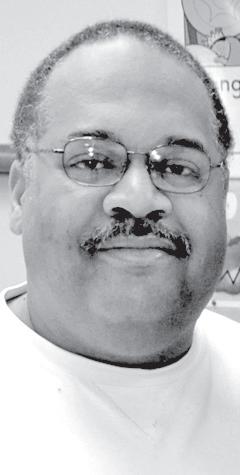
The 6’2 205-pound Burden is a five-star prospect who is one of the top junior prospects in the nation. Burden had received scholarship offers from more than two dozen major college programs around the country. He even-
tually chose Oklahoma over Missouri, Alabama, Ohio State and Georgia, who were his other final schools. As a freshman, Burden caught 48 passes for 1,191 yards and 14 touchdowns in helping lead the Lions to a berth in the Class 3 state championship game. He added 855 yards receiving and 14 more touchdowns as a sophomore.
Top performances
Running back Toriano Pride of Lutheran North has rushed for 118 yards and three touch-
downs, including a 77-yard score in the Crusaders 34-7 victory over Trinity.
Sophomore Antwon Hayden of Duchesne rushed for 171 yards on 15 carries and three touchdowns in the Pioneers 35-13 victory over Westminster.
Senior Christopher Keshon of Marquette rushed for 212 yards on 50 carries and three touchdowns in the Mustangs come from behind 35-34 victory over Kirkwood. Sophomore Steve Hall of MICDS scores three rushing touchdowns in the Rams 49-14 victory over Lutheran South.
Quarterback Duncan Cloniger of John Burroughs
completed 27 of 32 passes for 352 yards and five touchdowns in the Bombers’ 48-21 victory over Priory.
Quarterback Michael Hoffman passed for 266 yards and three touchdowns and rushed for 138 yards and one TD in the Lancers 44-38 victory over Ladue.
On tap this weekend
• St. Mary’s at Lutheran North, Friday, 7 p.m.
• DeSmet at SLUH, Friday, 7 p.m.
• CBC at Vianney, Friday, 7 p.m.
• MICDS at St. Dominic, Friday, 7 p.m.

CLEAN-TECH COMPANY IS INTERVIEWING FOR VARIOUS LOCATIONS!
Interviews on the spot! Every Thursday 1 PM – 4 PM! 211 South Jefferson Avenue, St. Louis, MO
JOBS AVAILABLE!
WE ARE HIRING! Apply online www.cleantechcompany.com/ careers
Join a great team with an Employees First approach that’s helped make St. Peters one of the best places to live in America! Various FT and PT positions with competitive pay at multiple city facilities including St. Peters Rec-Plex, Water’s Edge Banquet Center and St. Peters Golf Club. To view all current openings and to apply, please visit www.stpetersmo.net/Jobs AA/EOE
Vintech Solutions Inc has openings for the position Software Developer with Master’s degree in Computer/ Digital Science,Engineering any,Technology or related to design, develop, implement, maintain and test business functions and web applications using a variety of languages, tools, methodologies and technologies. Develop, create and modify general computer applications software or specialized utility programs. Analyze user needs and develop software solutions. Design software or customize software for client use with the aim of optimizing operational efficiency. Work location is Olivette,MO with required travel to client locations throughout the USA.Please mail resumes to 9715 Olive Blvd, Floor 2,Olivette, MO 63132 (OR) e-mail: legal@vintech.com
FULL-TIME MECHANIC
The City of Clayton is hiring for a full-time Mechanic. Apply by 10/16/20: https://claytonmo. applicantpro.com/jobs/ EOE
Skill in performing on-site housing inspections of Section 8 Units administered by the Housing Authority. 2 years at an accredited college or university and/or 1 year experience and/or training in Building/Housing Inspection. Good communications skills and ability to deal with the public. Salary $36,855 Annually. Apply or send resume to: St. Louis Housing Authority, HR Division, 3520 Page Blvd., St. Louis, MO 63106 on or before 5:00pm Monday, October 28, 2020 via our website www.slha.org or email athomas@slha.org. A Drug Free Work Place/EOE.
The City of Maplewood is seeking a qualified person for the position of maintenance worker. Position is responsible for maintaining streets, parks, sewers, swimming pool and city buildings. Must be available for occasional evening and weekend work. The city offers a comparative salary and benefits package. Starting salary is negotiable based on qualifications and experience. For application, contact the Public Works Department at (314) 646-3640 or visit www.cityofmaplewood.com Applications accepted until October 26, 2020. Equal Opportunity Employer.


Fontbonne University has an opening for a full-time Housekeeper. Applicant must have general housekeeping experience and the ability to work with little supervision. The incumbent will be assigned to a particular area of campus, and will be responsible for sweeping, mopping, dusting, trash removal and other housekeeping duties. Hours are M-F from 7:00 a.m. to 3:30 p.m. with occasional weekend rotation. High school education preferred along with recent experience. Believing that diversity contributes to academic excellence and to rich and rewarding communities, Fontbonne University is committed to recruiting and retaining a diverse faculty, staff and student body. Candidates from historically under-represented groups, whose work furthers our diversity and inclusion efforts and who bring to campus varied life experiences, perspectives and backgrounds are especially encouraged to apply. If interested, please apply online at www.Fontbonne.edu/employment. Please submit an application and three references for consideration. EOE
The International Institute of St. Louis is seeking its next President & CEO. For further information and to apply, click here: https://bit.ly/34W8t0b
HANDYMAN NEEDED for Apt Complex $12 - 15 hour depending on exper. Call Tim 314-319-8597
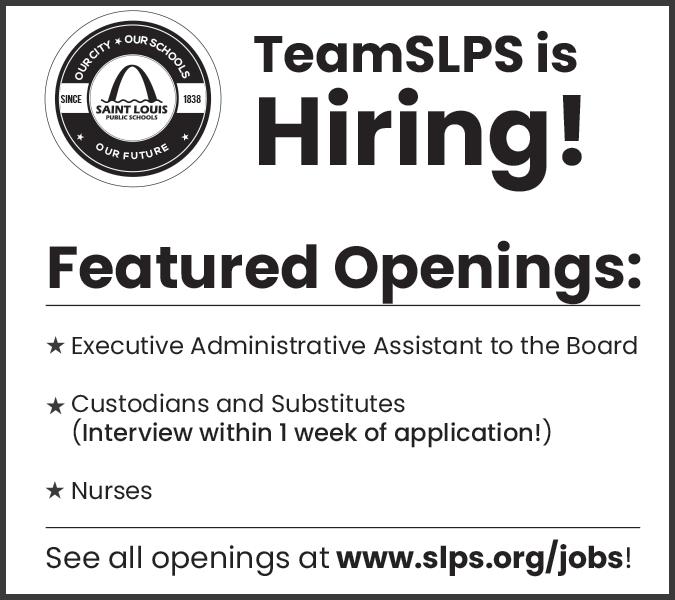
Ferguson Public Library has a job opening for a Circulation Lead. See http://fergusonlibrary. net/employment for information and application instructions.
Washington University in St. Louis offers rewarding opportunities in various fields at all levels, with positions in engineering, nursing and health care, research, administration, technology, security and more.
Public Safety Officer - Protective Services – 49105: Position assists with enforcement of university policy/procedures, patrolling facilities and responding to situations as directed by a Communications Officer or Supervisor. The ideal candidate will have the following required qualifications: High School diploma or equivalent High School certification. GED candidates must also have completed some college course work to illustrate a continuing desire for advancement.
TrialCare Project Manager - Center for Clinical Studies – 48962: POSITION SUMMARY -The responsibility of the Project Manager is to direct and coordinate all aspects of multi-center clinical research trials, which include tactical management, administration and leadership of project teams in order to ensure the project proceeds on time and within budget parameters. To accomplish this, the Project Manager will collaborate closely with the clinical trial principal investigator, external site investigators and staff, and other Washington University team members including those at Trial Care, the Center for Clinical Studies, and the Institute for Clinical and Translational Sciences. REQUIRED QUALIFICATIONS: Bachelor of Science in Nursing (BSN) degree plus a minimum of five years direct experience in research related activities. REQUIRED LICENSURE/CERTIFICATION and REGISTRATION: Current Missouri Nursing License.
Special Program Administrator - Institute for Informatics SP– 48961:
POSITION SUMMARY - This position will work in close coordination with the new Office of Health Information and Data Sciences (OHIDS) with a range of academic units and strategic partners, including the Institute for Informatics, the Division of Biostatistics, Bernard Becker Medical Library, Office of the Chief Research Information Officer, the Division of Biology and Biomedical Sciences, and the Office of Medical Education. The above represents an alignment of critical units across the School of Medicine that are integral in a top-tier academic medical institution. This position will report to the Assistant Director, Education and Strategic Initiatives. The Special Programs Administrator will be responsible for directing, developing, implementing and evaluating recruitment strategies for OHIDS education and degree programs and will oversee special programs such as the Clinical Informatics Fellowship and the Biomedical Informatics and Data Science Summer Internship Program (BIDS@I2). This position will manage recruitment processes; cultivate relationships with students during admission processes; manage special programs, and develop processes for alumni tracking. REQUIRED QUALIFICATIONS: Bachelor’s degree and five years of experience. Senior Compliance Specialist - Office of the Vice Chancellor for Research – 48831: POSITION SUMMARY: A Senior Research Compliance Specialist provides programmatic support for the University’s research ethics and compliance programs. This person implements and monitors research compliance review activities in accordance with the University’s policies, and federal and sponsoring agencies regulations, with minimal supervision; interprets applicable policies and regulations to resolve complex research and regulatory issues; provides expert advice and training to faculty, non-faculty, and committee members; interacts directly with external funding agencies and other academic institutions regarding the University’s adherence to policies and regulations; serves as lead person in the absence of a manager or director. REQUIRED QUALIFICATIONS: Bachelor’s degree in a related field plus five years of related work experience, preferably in a research intensive university or hospital setting, or equivalent combination of experience and education. Demonstrated understanding of a research environment, and ability to interpret regulations, policy and legal documents. General familiarity with the scientific process.
For a full description of these positions and other career opportunities, please visit https://jobs.wustl.edu/ to apply. Click search jobs and enter the job ID number. We seek people from diverse backgrounds to join us in a supportive
METROPOLITAN ST. LOUIS SEWER DISTRICT
Notice is hereby given that the Metropolitan St. Louis Sewer District Requests for Quotes, Bids and Proposals are posted online for public download. Please navigate to www.msdprojectclear.org > Doing Business With Us > View Non-Capital Bids (commodities and services) or >Visit Planroom (capital construction bids)
Metropolitan St. Louis Sewer District is an Equal Opportunity Employer.
2020
The Saint Louis Zoo seeks bids from qualified contractors to upgrade/ install the current studio hardware and software, as well as provide service as needed. Bid documents are available as of 10/14/2020 on the Saint Louis Zoo website: stlzoo.org/vendor
Sealed bids for the 2020 Advance Sidewalk Work Program, St. Louis County Project No. AR/CR-1811, will be received electronically thru the County’s Vendor Self Service portal at https://stlouisco.munisselfservice. com/Vendors/default.aspx, until 11:00 a.m. on November 18, 2020.
Plans and specifications will be available on October 12, 2020 from the St. Louis County Web Site (www. stlouiscountymo.gov) or by contacting Cross Rhodes Print & Technologies, 2731 South Jefferson Avenue, St. Louis, MO 63118 (314) 678-0087.
DIRECTOR OF PROCUREMENT AND ADMINISTRATIVE SERVICES
ST. LOUIS, COUNTY
CITY OF ST. LOUIS
ST. LOUIS LAMBERT INTERNATIONAL AIRPORT
Solicitation For Bids (SFB) for CHAIR UPHOLSTERY SERVICES
Bids Wanted
Bid documents may be obtained at St. Louis Lambert International Airport, Airport Properties Division, Monday through Friday between 8:30 a.m. and 5:00 p.m., or by calling (314) 890-1802. This SFB may also be obtained by visiting our website at www.flystl.com/business/ contract-opportunites
Robert Salarano Airport Properties Division Manager
CITY OF ST. LOUIS
ST. LOUIS LAMBERT INTERNATIONAL AIRPORT
Solicitation For Bids (SFB) for Elevator, Escalator, and Power Walk Services Bids Wanted
Bid documents may be obtained at St. Louis Lambert International Airport, Airport Properties Division, Monday through Friday between 8:30 a.m. and 5:00 p.m., or by calling (314) 890-1802. This SFB may also be obtained by visiting our website at www.flystl.com/business/ contract-opportunites
Robert Salarano Airport Properties Division Manager
MSD’s virtual pre bid conference will take place via MS Teams on October 13, 2020 at 2 p.m., cst. The meeting link and call-in information is located in the Instructions to Bidders, Article 6 Pre-Bid Conference. A site visit will be held on October 14, 2020 at 2 p.m. at the Bissell Point WWTF located at 10 E Grand Ave., St. Louis MO 63147. No more than two representatives from each company will be allowed.
Tarlton will hold its virtual prebid via Teams on October 16, 2020 at 10 a.m. Interested parties should contact Steve Cronin at SGCronin@tarltoncorp.com or 314.633.3300. Meeting link and call-in information is show below: Join Microsoft Teams Meeting +1 213-458-7822 United States, Los Angeles (Toll) Conference ID: 428 600 986# Link to Microsoft teams meeting can also be accessed thru the link to BuildingConnected shown below. Please note that MSD has established a subcontracting MBE (African American) goal of 17% utilization for Non-Building Construction contracts in the amount of $50,000 or more. Subcontractors should be certified by at least one or more of the following agencies or before the date of the bid opening: 1) Missouri State Office of Equal Opportunity and /or 2) City of St. Louis (only MBE and WBE Certifications).
It is our desire to provide meaningful opportunities for minority-owned (MBE) and women-owned (WBE) businesses to participate in the construction projects we complete for our clients. Firms that do not have MBE/WBE status are strongly encouraged to include MBE/WBE firms in their contracting and purchasing plans. Additionally, we work to enhance diversity through the workforce, or “boots on the ground” which serves to increase the representation of women and minorities, and apprentices. To view this invitation: https://app.buildingconnected.com/public/55b2997ad17b3807006f2618 Tarlton is an equal opportunity employer.
Sealed bids for the Spanish Pond Road
ADA Improvements, St. Louis County Project No. CR-1676, will be received electronically thru the County’s Vendor Self Service portal at https://self-service.stlouisco.com/ MSS/Vendors, until 11:00 a.m. on October 28, 2020
Plans and specifications will be available on September 28, 2020 from the St. Louis County Web Site (www. stlouiscountymo.gov) or by contacting Cross Rhodes Print & Technologies, 2731 South Jefferson Avenue, St. Louis, MO 63118 (314) 678-0087.
Sealed bids for the Longview Drive Bridge No. 511-C and Partridge Farm Estates Concrete Replacement, St. Louis County Project Nos. CR-1511/ CR-1832, will be received electronically thru the County’s Vendor Self Service portal at https://self-service.stlouisco.com/ MSS/Vendors, until 11:00 a.m. on October 28, 2020
Plans and specifications will be available on September 28, 2020 from the St. Louis County Web Site (www. stlouiscountymo.gov) or by contacting Cross Rhodes Print & Technologies, 2731 South Jefferson Avenue, St. Louis, MO 63118 (314) 678-0087.
REQUEST FOR PROPOSALS
Vanstar has been selected as the GC for the historic renovation of 1800 Washington Ave. The project consists of a 5 story renovation creating 72 apartments. We are requesting proposals for design/ build HVAC, Plumbing, Electric, and Fire sprinklers by 10/20/2020 at 10 a.m. Other scopes will be bidding at a later time when construction documents are complete. This project will have business and workforce participation requirements per Ordinances 70767 and 71094. All prospective bidders, must register with Erin Hugeback ehugeback@vanstarconstruction.com to receive prequalification form and drawings.
The City of St. Louis Department of Public Safety is seeking proposals from qualified third party Emergency Medical Service Billing Providers to conduct all billing activities associated with emergency medical services provided by the St. Louis Fire Department. To obtain a copy of the RFP, please visit https://www.stlouis-mo.gov/ government/procurement.cfm
The RFP will be listed under “Local Government Services.” Proposals must be received by 4:00 p.m. CDT on Thursday, November 5 , 2020.
Bids for Upgrade HVAC and BAS at Kennett and Poplar
Bluff Department of Corrections
C o m m u n i t y S u p e r v i s i o n
Centers, Project Nos. C191001 and C191101 respectively, will be received by FMDC, State of MO, UNTIL 1 : 3 0 P M , 10/20/2020 via MissouriBUYS. Bidders must be registered to bid. For specific project information and ordering plans, go to: http://oa.mo. gov/facilities
ADVERTISE YOUR REAL ESTATE, RENTALS, FOR SALES, PUBLIC NOTICES, JOB FAIRS JOBS & MORE
The St. Louis Economic Development Partnership requests proposals from a qualified firm or firms to facilitate a strategic planning process and to assist the Partnership to develop a new comprehensive strategic plan. A copy of the complete RFP is available at https://stlpartnership.com/ rfp-rfq/. To be considered, proposals must be received no later than 3:00 PM CST on Thursday, November 5, 2020.
Great Rivers Greenway is seeking qualified consultants to conduct database and asset management services. Go to www.greatriversgreenway.org/ jobs-bids/ and submit by November 16, 2020.
Carondelet Leadership Academy Charter, a Missouri non-profit corporation, has filed Articles of Dissolution with the Missouri Secretary of State. Any person holding a claim against the corporation must submit their claim in writing within two years after the date of publication of this notice; otherwise, the claim will be barred. All claims must be sent to: Joe Jacobson, Esq., Jacobson Press P.C., 222 S. Central Ave., Suite 550, Clayton, MO 63105. The claim must include the following information: (1) the amount claimed; (2) the legal basis for the claim; and (3) contact information for the claimant, including email and mailing addresses. The claim must also include a copy of any documents on which the claimant relies in support of their claim
The Metropolitan Zoological Park and Museum District Board has authorized its management to secure proposals for banking services. The deadline for response is October 28, 2020 at 4:30 p.m. For more information or to secure a detailed proposal package, please contact: J. Patrick Dougherty, Executive Director Metropolitan Zoological Park and Museum District 314 862 4222 pdougherty@zmdstl.org
CITY OF ST. LOUIS ST. LOUIS LAMBERT INTERNATIONAL AIRPORT
Solicitation For Bids (SFB) for PEST & RODENT
Robert Salarano Airport Properties Division Manager
CITY OF ST. LOUIS ST. LOUIS LAMBERT INTERNATIONAL AIRPORT
Request For Proposals (RFP) for GOVERNMENT RELATIONS SERVICES
Proposals Wanted
Proposal documents may be obtained at St. Louis Lambert International Airport, Airport
contract-opportunites.
Salarano Airport Properties Division Manager
2021 Annual Action Plan Draft & Public Hearing Notice
The draft 2021 Annual Action Plan will be available on October 14, 2020, for review and comment by any interested person for a period of 30 days. The plan is available for review at CDA’s office located at 1520 Market Street, Suite 2000. The plan will also be available at the Central Branch of the St. Louis Public Library, located at 1301 Olive Street and on the City of St. Louis Community Development Administration website: https://www.stlouis-mo.gov/government/departments/community-development/
The views of citizens, public agencies and other interested parties are encouraged, and comments or questions with respect to the proposed Annual Action Plan should be directed via email at CDBG@stlouis-mo.gov.
A virtual public hearing is scheduled to review the proposed 2021 Annual Action Plan for the Community Development Block Grant (CDBG), HOME Investment Partnership (HOME), Emergency Solutions Grant (ESG), and Housing Opportunities for Persons with AIDS (HOPWA) programs. The hearing will be held at 1:00 p.m. on November 6, 2020.
Instructions for attending the Virtual Public Hearing are available on the website: https://www.stlouis-mo.gov/cda/
CDA is an equal opportunity agency (employer). Minority participation is encouraged.

Advertised herein is subject to the Federal Fair Housing Act, which makes it illegal to advertise any preference, imitation, or discrimination because of race, color, religion, sex, handicap, familial\status, or national origin, or intention to make any such preference, limitation, or discrimination.“We will not knowingly accept any advertising for real estate which is in violation of the law. All persons are hereby informed that all dwellings advertised are available on an equal opportunity basis.”
Call Angelita Houston at 314-289-5430 or email ahouston@stlamerican.com to place your rental/real estate
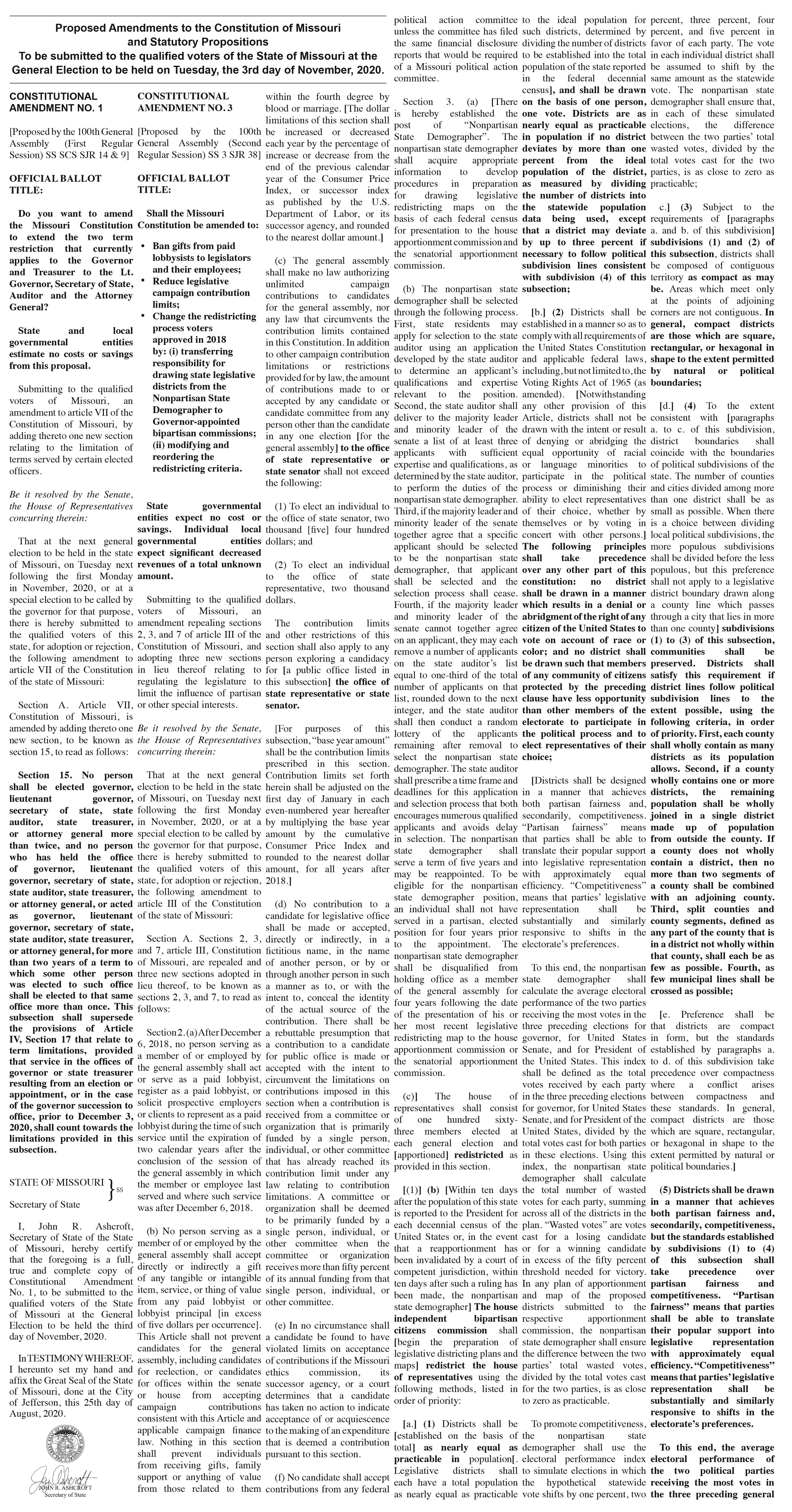
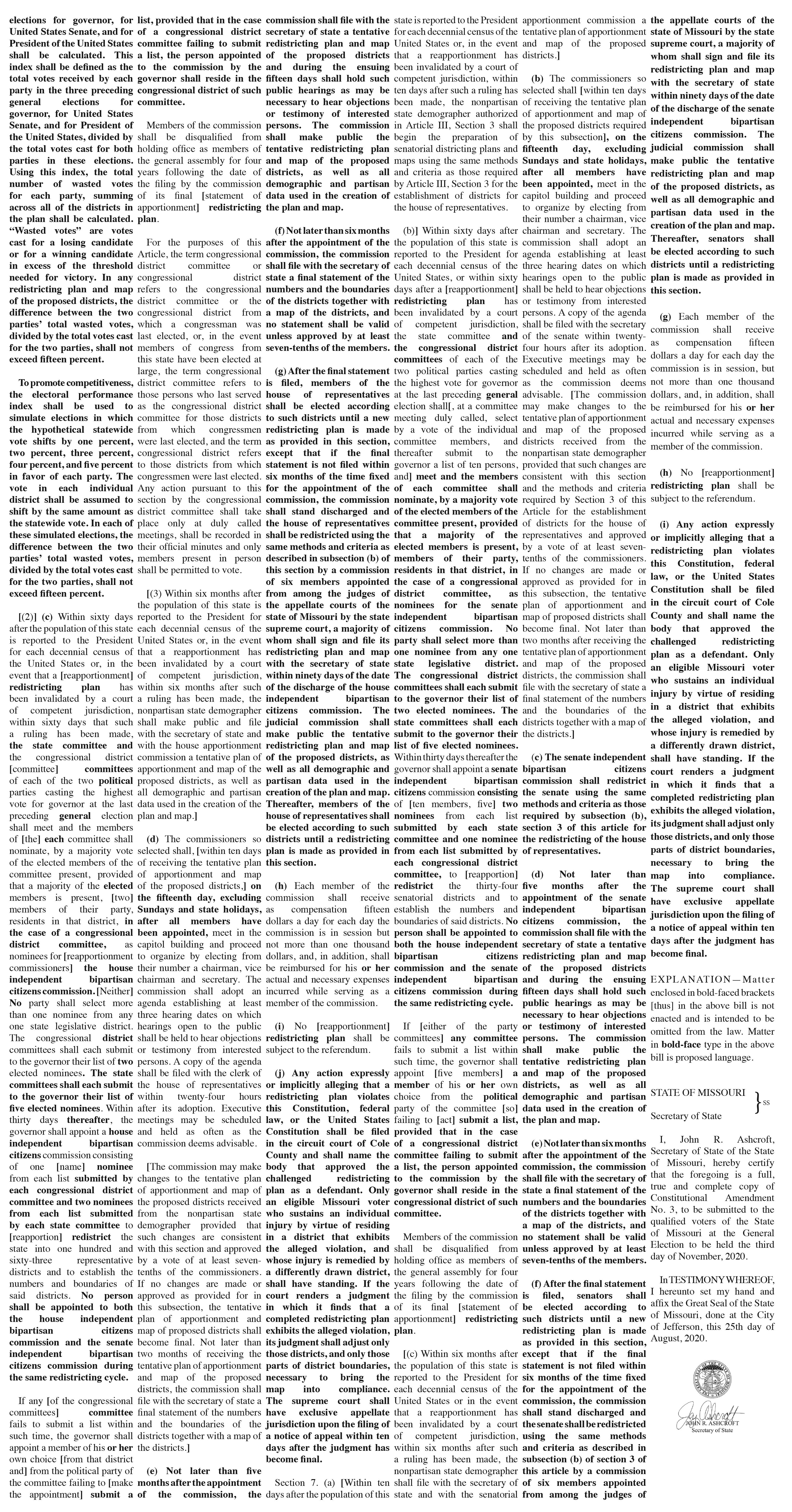
The Democratic nominee for governor talks systemic racism and criminal justice reform
By Dana Rieck For The St. Louis American
St. Louis American: Can you tell us a little about your trip to a few North County barbershops including why you went and what you learned while there?
Nicole Galloway: So, we went to the Premiere Palace and Hair Pros barber shops.
I’ve done a lot of visits on this campaign, and those visits were probably some of my favorite things that we have done on this campaign because it was really an opportunity for me to listen — listen to the experiences of small business owners, listen to the experiences of entrepreneurs and the challenges that they faced before this pandemic but now especially during this current crisis. And the folks there were very candid and open with me, which meant a lot to me, that they were willing to share their own personal experiences and what they wanted to see changed in their community locally, but also what they wanted to see changed out of their government in Jefferson City. And I know that barbershops are also part of a community fabric, bringing together folks who talk very openly about their opinions about politics and government.
St. Louis American: Is there anything in particular that stands out to you or was surprising to you during those visits?
Nicole Galloway: Nothing really caught me off guard. What I really appreciated was how candid folks were with me, and as gentlemen were walking in and out of the barbershop, they started sharing with me and asking me questions.
I do remember a gentleman talking about his kids. He has four boys, and he said he tells his four sons that they can do anything, right? If they work hard, if they do things right, that they have every opportu-
nity in this world. But he said in his mind there’s a bit of an asterisk on that comment because he knows that may not really be true because there’s just inequalities built into our system, built into our institutions. And he hopes that can change, but he has his asterisks in his mind when he talks to his young sons and what their future can be. And that really stuck to me personally because I have three boys and you do hope that their future can be anything they wanted to. But you also know that there are barriers to that. And how candid he was — I think that conversation will probably stick with me forever.
St. Louis American: What have been your strategies for engaging the black vote and, at this point, do you have any evidence about how those strategies are working out?
Nicole Galloway: We will find out in three weeks, but I know what you’re asking. And, look, I have been engaged in the minority community throughout my public service career because I think it’s important to get outside of the bubble of Jefferson City and understand how the decisions that are made in government impact people in their daily lives. It’s a focus that I’ve had as state auditor, and it’s a focus that I’m bringing into this campaign and every vote matters and people’s voices matter. And, so, what I see is that voters are energized, and we know this race is getting close. We are neck and neck in the polls. This race is incredibly close, and we’re working hard to push it over the finish line over the next three weeks.
I think, though, it’s important to recognize that if I have the honor of serving Missouri as the next governor, I intend to stay engaged. You know what’s most important? Staying connected after the election and, again, getting outside of the bubble of Jefferson City and understanding how those
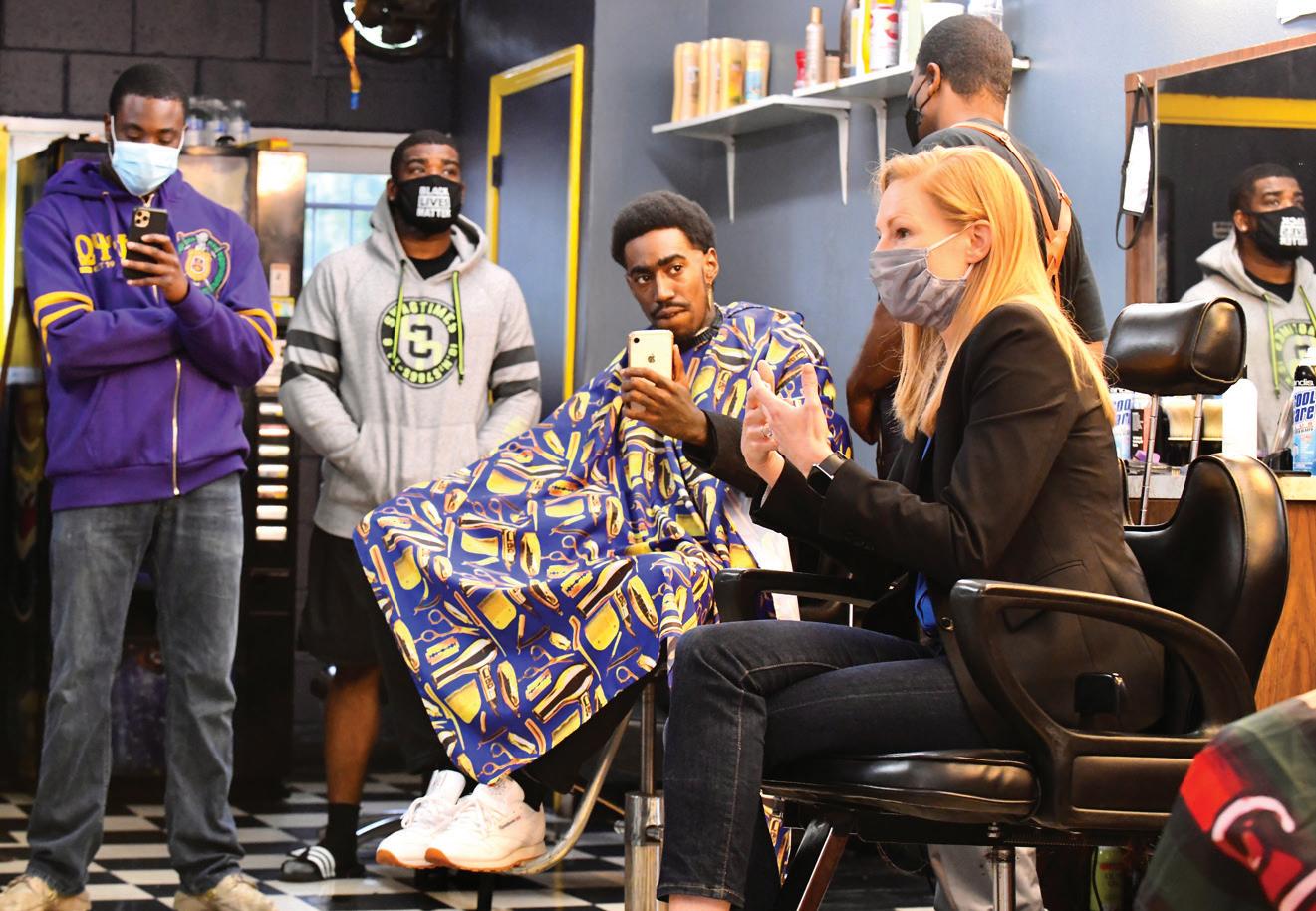
that this is a zero-sum game where we’re either funding law enforcement or funding mental health care or educational services or affordable housing. I see a path where we can do both. So, law enforcement can focus on their mission of keeping our community safe, which people want — people want to live in safe communities — and addressing these issues that don’t deserve just a quick resolution but a solution to the complexity of how disinvestment has been impacting people in their lives.
St. Louis American: What should the POST commission be doing differently?
policy decisions that are made are impacting folks, impacting their opportunity, and what it means for them in their day-today lives.
St. Louis American: Why should Black voters vote for you and not Gov. Parson?
Nicole Galloway: You probably have seen that I have put out an Opportunity Agenda for Black Missourians, and it’s one of the first policy agendas that I put out in this campaign. I’m the only candidate for governor that has put forward an agenda specifically focused on creating real opportunities for Black Missourians to succeed in our state. Gov. Parson has no agenda, he has no vision. After the killing of George Floyd, I approached this agenda with humility from folks that have been working on these issues, working on creating opportunities for a long time, and they have not had a partner in Jefferson City to get this done. So, Governor Parson can list the meetings he’s had with Black leaders, but to him, meet-






ing is the policy. I think people are tired of that. They want to see action. They want to know what the plan is. And I’m currently working with legislators to make this agenda a reality.
People are frustrated when they see other states, including so-called red states, making criminal justice reforms or policing reforms, making progress while Missouri just keeps going along the same path that we’ve always been on. And I deeply believe that the status quo is not good enough, that we can’t just go back to where we were on the eve of this crisis and call that a success. Not only should people demand more, but they should just expect more.
St. Louis American: What, if you had to choose, is the one aspect of that agenda that you think is most important for people to know about?
Nicole Galloway: Systemic inequalities exist within health care, within education, within our criminal justice system, even within having access to the ballot and voting. And I recognize that racism is real and it does exist and that it influences people’s lives multiple ways.
I do believe these ways are interconnected. If someone does not have access to a good education or educational opportunities, it hurts their ability for economic success in the future. And if you don’t have access to health care, that also hurts your economic opportunity and success in the future. And if there are inequalities in our criminal justice system, which there are, then you know that is going to hurt your future economic opportunity, right? And, so, I view all of these things as inter-
connected, which is why this agenda has multiple parts. So, it’s hard to pick just one.
St. Louis American: What are your ideas for criminal justice reform within Missouri?
Nicole Galloway: I’ve laid out some very specific policy recommendations, including a statewide accountability board that has subpoena power to take serious investigations out of the local political apparatus and have investigations that are free from bias.
Specifically, better implicit bias training, more training around the de-escalation tactics and around legal force, body cameras and required body cameras, and then consequences if body cameras are turned off when they should be on during an interaction.
I also believe in local control and oversight. I believe that we need to rebuild trust between law enforcement and the communities they serve, and that starts with accountability and oversight.
St. Louis American: What is your stance on defunding the police? Would that be part of your criminal justice reform plan?
Nicole Galloway: I do not support defunding the police. I do believe in reform, and I recognize that our law enforcement officers are called in to deal with situations that need immediate resolution. And, so, our law enforcement officers end up being the front lines of someone with a mental health issue or homelessness or situations of domestic violence or drug abuse. And that is not a public safety mission.
And, so, I don’t believe
Nicole Galloway: Implicit bias training is very important. Missouri has an annual Vehicle Stops Report, and we know that from that that vehicle stops are racially disparate in our state. And so implicit bias training is very important. De-escalation training is important, as I said. And Gov. Parson apparently agreed with me on this recommendation because I made this recommendation several months ago and, after I recommended it, his POST commissioners adopted it just last week. The next step is to understand, now that the POST commission has adopted these recommendations, what does that look like in practice? And that’s where the next step of addressing these changes with the POST commission look like.
St. Louis American: What’s your response to President Trump saying implicit bias and racial sensitivity training are un-American and should be stopped?
Nicole Galloway: No, I don’t believe that should be stopped. You cannot change what you do not recognize. If you’re not willing to acknowledge that racism does exist, that inequalities do exist, if you’re not willing to acknowledge that, then how can you even put forward a plan to address it? And so, here in Missouri, I recognize that that’s part of our reality, and that’s why I have a plan to address it.
St. Louis American: As the governor, would you do anything to disrupt state executions?
Nicole Galloway: I am not seeking changes to our laws when it comes to capital punishment or capital murder sentencing laws. What I would do is get to work on clearing the backlog of clemency requests. You might know that we have over 3,000 clemency applications sitting on the governor’s desk, and Gov. Parson is on track to act on one of those in more than two years. So that would be my focus. This interview was edited slightly for clarity and compression.
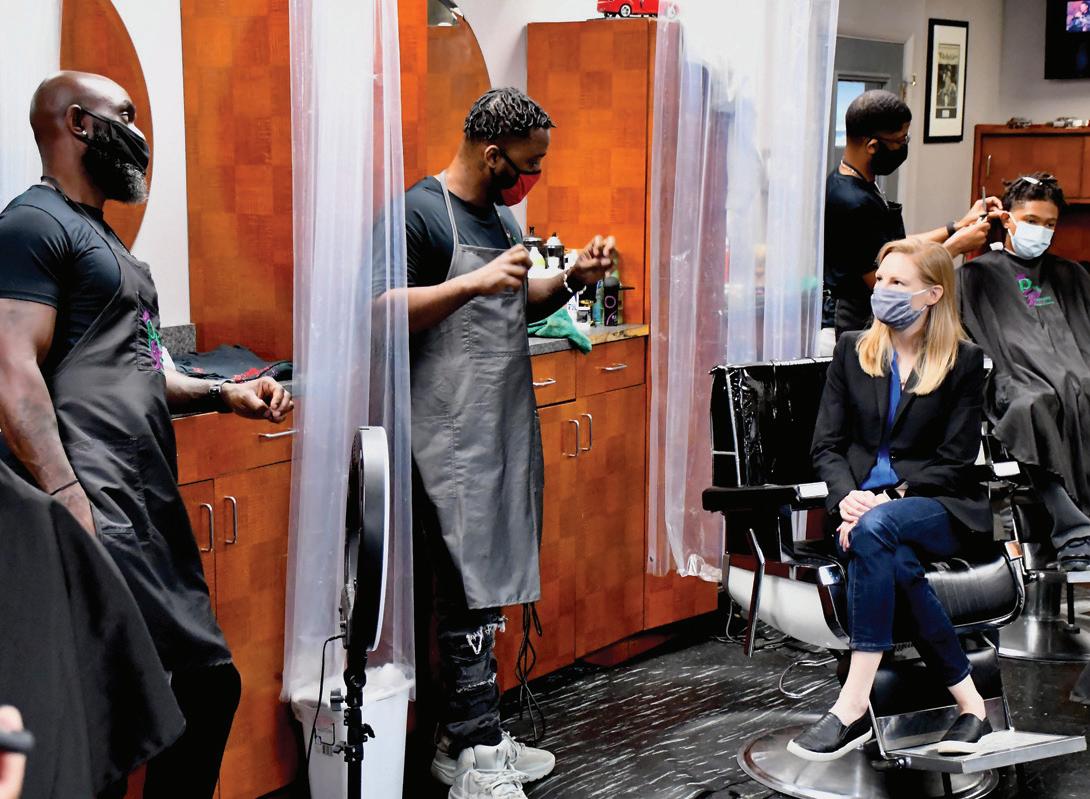



By Z. K. Whitfield and Keiko Hilmo
For the St. Louis American
“It’s all about access,” said Kimberly Kendle Roberson, head of school and teacher for the primary program. “Our goal is to bring Montessori to as many families that we can who traditionally have been unable to access it for various reasons.”
As the new school year gets underway, Baden Montessori is making
ST. LOUIS – Providing access to a quality, early childhood educational program. That is the goal of one small school located in St. Louis. In addition to high quality and fidelity, the school seeks to bring a program that is affordable to many families, and one that has a proven track record of educational success –a Montessori education.
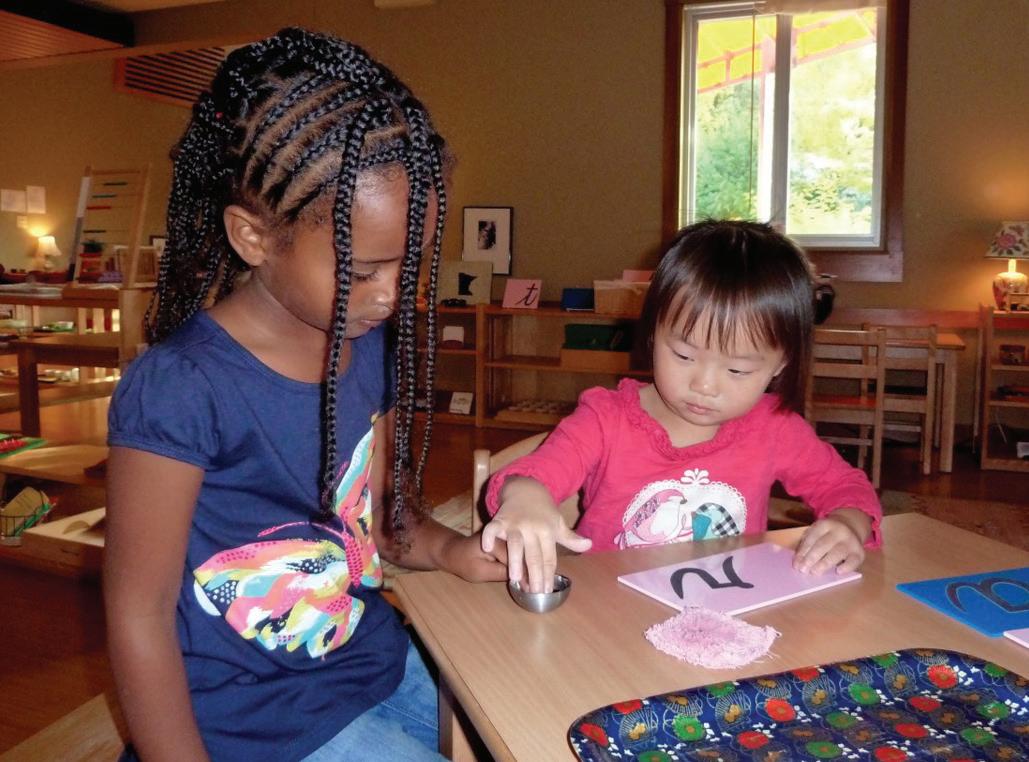
final preparations for welcoming its first class of students, ages 2 ½ to 6. The school is a nonprofit organization
By Hopey Fink and Amanda J. Schneider
For The St. Louis American
Whether your school district is still entirely online or moving toward a hybrid or in-person plan, a lot has changed in St. Louis region’s education landscape due to COVID-19. But some things have not changed: if you are a student or a parent or guardian, you have rights from federal and state laws that remain no matter your schooling environment. At Legal Services of Eastern Missouri’s Education Justice Program, we work to ensure that all students in Missouri receive a quality education by targeting the root causes of education inequity and advancing systemic change. Here, we offer a few tips for parents and students to advocate for yourselves as you navigate this unprecedented school year and identify issues that may need legal intervention.
Access to technology
For many families, accessing vital distance-learning technology and Internet connectivity is the first step
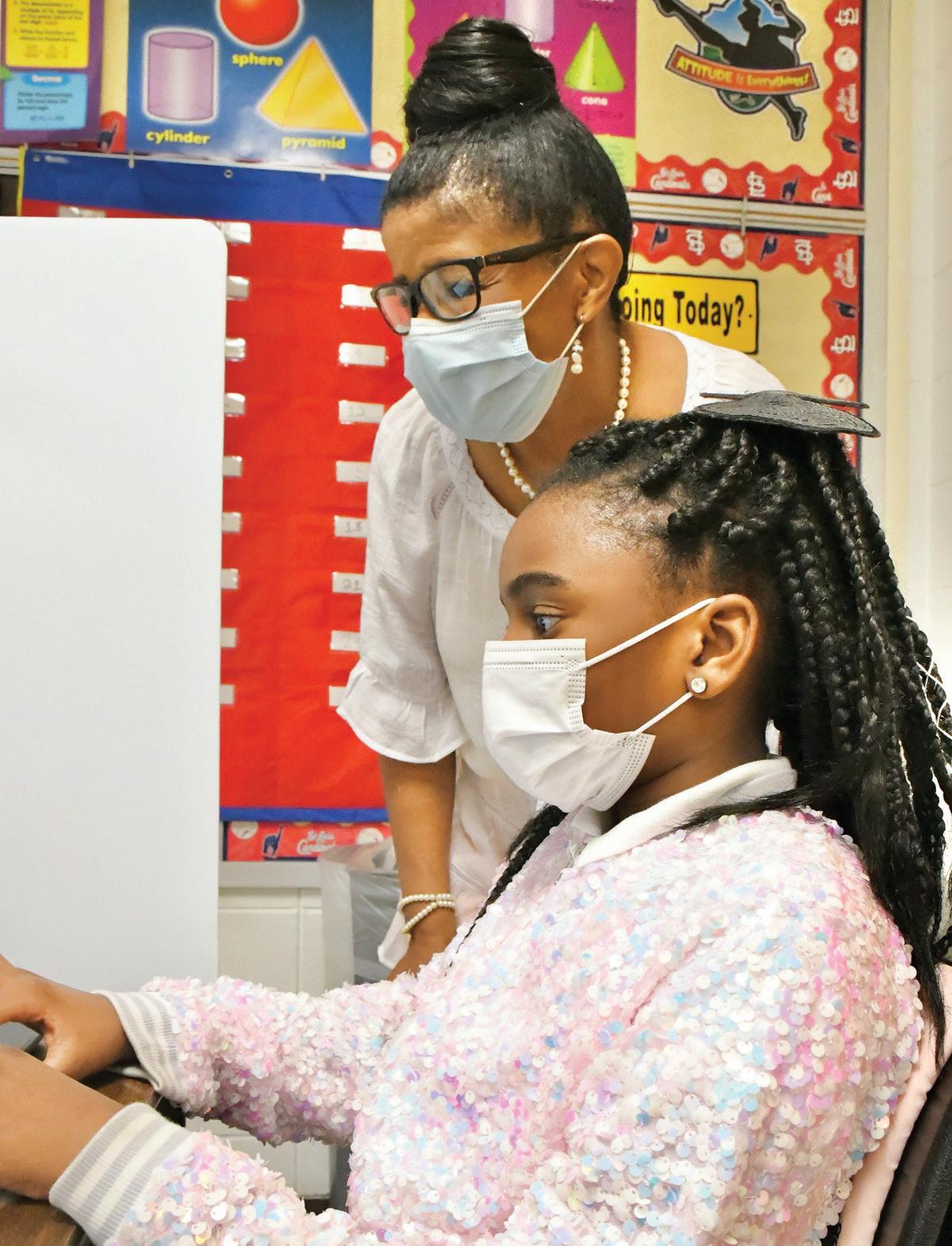
in adapting to new learning environments. If schools require the use of a school-issued device for your student’s education, then they cannot
located in the Baden neighborhood.
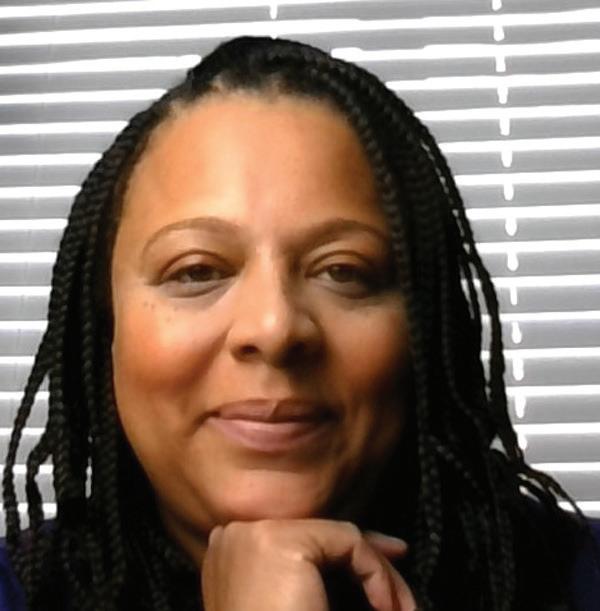
Dr. Alice Prince, the Diversity & Inclusion consultant for the Federation of Catholic Schools, will help carry forward implementation of the collaborative and individual plans that have been established.
Federation of Catholic Schools
n Each school and parish has a Core Team for Diversity & Inclusion that has been reviewing surveys, focus group notes, and the needs of their specific community.
Catholic schools and parishes in North St. Louis County continue to connect and collaborate as a Federation in the 2020-21 school year to remain strong and serve the community with excellent academic and faith formation opportunities. Principals and teachers worked tirelessly over the summer to address the many challenges presented by the coronavirus pandemic, and each school opened safely for in-person learning in August. Many schools also continue to provide a distance learning option for families, as needed.
By Alice Dickherber
For The St. Louis American
What a year to be thinking about choosing a college! A year of change has led to many adjustments in the typical ways that high school students determine which college is the best fit, and college counseling offices at high schools across the country are adapting to serve students and families. Villa Duchesne and Oak Hill School’s Director of College Counseling, Danny Tejada, is ready to support his students as they navigate the college admissions process during the
global pandemic.
Here are Mr. Tejada’s tips for finding the college that is the best fit for you in 2020: Take advantage of alternatives to campus visits
Colleges and universities have quickly pivoted to expand the virtual options for connecting with students. Check college websites to take virtual tours, chat with admissions professionals, and get a
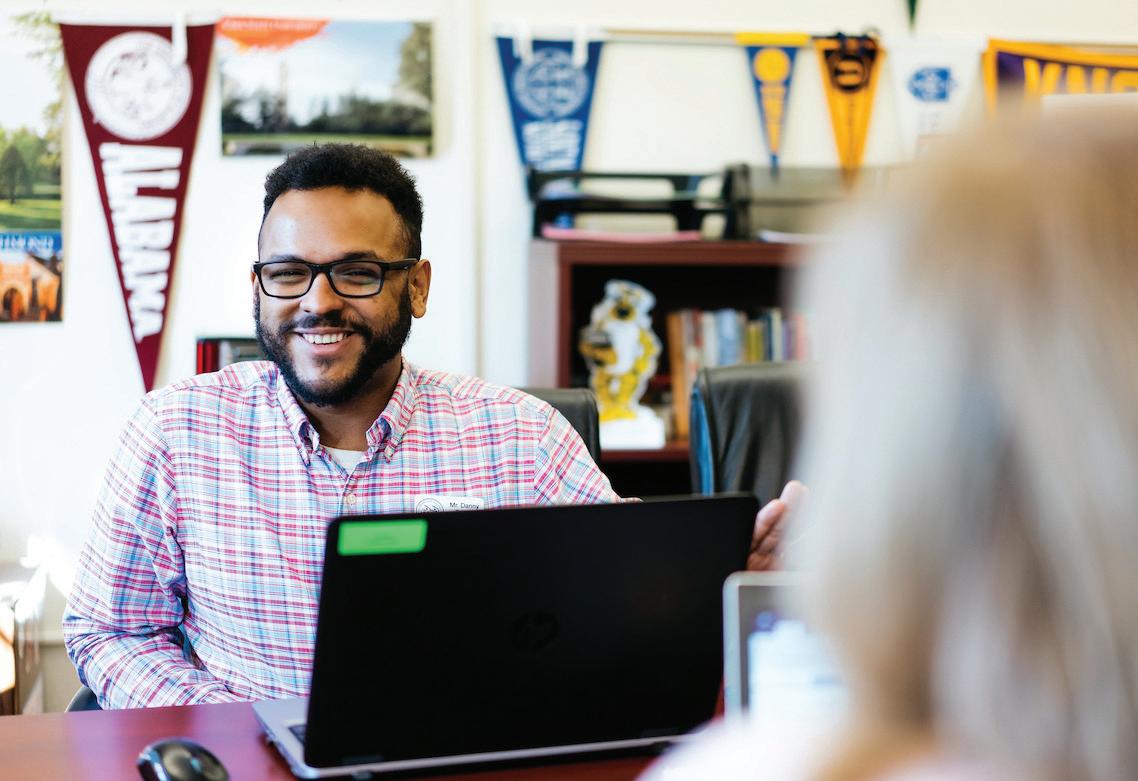
St. Joseph’s Academy proudly welcomes Ms. Deanna Williams to the SJA community as their Diversity Outreach Coordinator. After graduating from the University of Missouri-St. Louis with her Masters in Higher Education Administration and working at the collegiate level as an advocate for underrepresented
Continued from C1
The Federation of Catholic Schools remains focused on two important initiatives: Diversity & Inclusion and Sharing Technology. In 201920, a $50,000 Beyond Sunday Transformational Innovation Grant helped to fund the work of a Diversity & Inclusion Consultant to support our leaders in the development of a plan to foster diversity, inclusion, equity and belonging for all who encounter our schools. The Archdiocese of St. Louis recognizes the importance of this work and provided funding to continue the Diversity & Inclusion consultant position for the 2020-21 school year.
Dr. Alice Prince will continue in this role and help carry forward implementation of the collaborative and individual plans that have been established. She will also provide support to principals and teachers in the area of SocialEmotional Learning, which is
students, she joins the SJA Admissions Team to continue her work in diversity, equity and inclusion. She shares, “I am excited to join the SJA community! I want girls from every background to see themselves thriving and growing at the academy, and I am committed to the work of diversity, equity and inclusion.”
On October 15 at 7 p.m., she will host a virtual “Diversity Outreach Night” for prospective families. Email dwilliams@sja1840.org or call 314394-4328 for more information.
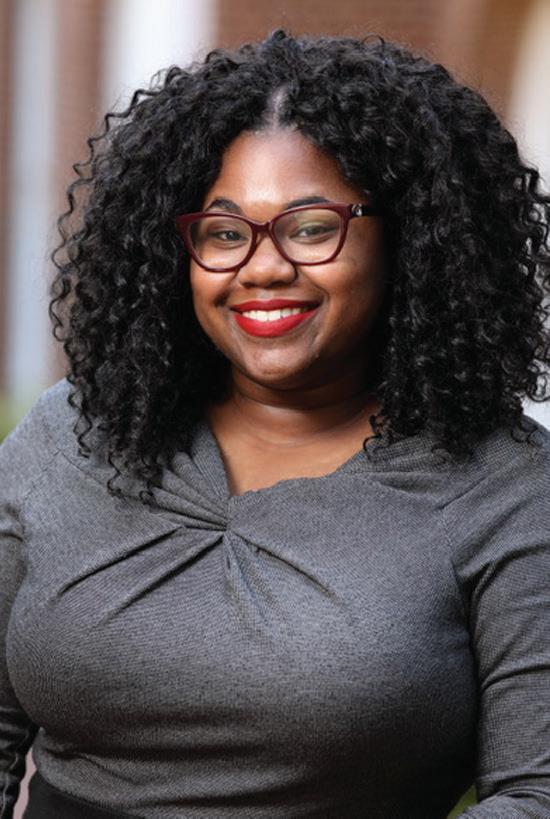
essential for the well-being of our students, some of whom are learning in-person and others who are connected virtually for now, due to the coronavirus pandemic.
Each school and parish has a Core Team for Diversity & Inclusion that has been reviewing surveys, focus group notes, and the needs of their specific community. In the spring, each Core Team submitted a set of goals, which the principals will be working to implement in the coming year with support from Dr. Prince. Learn more about the Diversity & Inclusion work and resources at http://www. federationofcatholicschools.org/ programs/diversity-inclusion
Another $50,000 Beyond Sunday grant, received for 2020-21, is funding the establishment of a Shared Technology Library that includes technology tools that support the curriculum shift from students as “users” of technology to “designers and creators.” Teachers and students will now have access to programmable robots, STEM kits, coding programs, 3D cam-
eras, Virtual Reality Goggles, 3D Printers and much more. By using a shared library approach, each school has access to many more resources than their individual school budgets would accommodate, expanding the possibilities for students to learn and engage with new technologies. In addition, the newly renovated STEAM Lab at Trinity Catholic High School will be accessible to the middle school students through field trips. What is the Federation of Catholic Schools?
Since 2010, the parishes and schools of the North County Deanery in the Archdiocese of St. Louis have been collaborating on Catholic education and formation as the Federation of Catholic Schools. Visit http:// www.federationofcatholicschools.org/achievements for a list of Federation members and a quick summary of the core values and achievements.
See www. FederationofCatholicSchools. org.
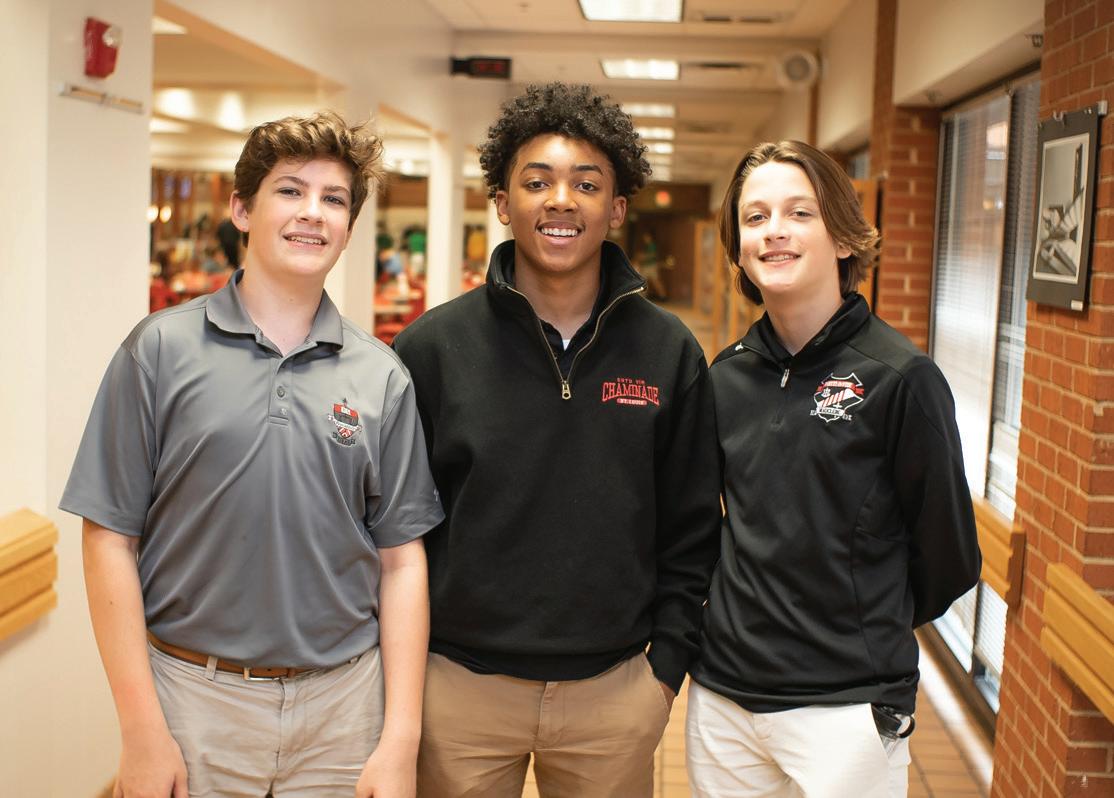
By Chaminade Preparatory School
Chaminade Preparatory School educates young men, grades 6-12, in the Catholic Marianist tradition. Chaminade’s intention is to ensure that every young man that passes through our doors is able to achieve the balance between school life and play. Our school motto is ESTO VIR, “Be a Man” and it is a true journey from boyhood to manhood that includes spiritual, educational and social development.
Our mission is accomplished through emphasis on the Five Characteristics of Catholic Marianist Education: Educating for Formation in Faith Providing an Integral, Quality Education Educating in Family Spirit Educating for Service, Justice, Peace, and the Integrity of Creation Educating for Adaptation and Change We prepare students to learn, lead, and serve in our diverse and everchanging world.
be challenging. You will spend countless hours reading, writing (and rewriting), studying, thinking, collaborating, conversing, and creating. You will see your hard work pay off when you leave Chaminade with the ability to comprehend difficult material, grasp new concepts, connect with peers and teachers all while maintaining a school/ life balance.
Our motto “Esto Vir” is translated from Latin and means “Be a Man.”



Whether your journey begins with us in middle school or in high school, you will never forget the time you spent at Chaminade. You will be challenged in the classroom, surrounded by teachers who care, and grow to expand your possibilities. When you graduate, you will be ready to meet the demands of college and an ever-changing world.
The academic road you embark on at Chaminade will
Our motto “Esto Vir” is translated from Latin and means “Be a Man.” It reminds us that the purpose of a Marianist Education is to identify and develop the full range of gifts and talents that God has placed in each person. Although achieving high academic standards and test scores is important, the focus is on developing our students to become the men the world needs them to be. We believe education should celebrate the creative, physical, and spiritual side as much as the intellectual. As such, Chaminade has 18 different athletic programs with over 70 teams. We offer more than 40 clubs and activities. Our awardwinning band program has a variety of options for every level of musician. Our drama department offers four main stage productions each year. Our Visual Arts Department offers students the opportunity to explore their creative side in a variety of different mediums including painting, drawing, sculpting, sketching, and photography.
We are experts at teaching boys. “Boys do not care what you know until they know you care” is the foundation of our educational philosophy at Chaminade. We realize how important it is to maintain a comfortable, understanding environment for young men. We consider it a great privilege to educate the gentlemen of Chaminade and we are uniquely organized to educate them. An overall emphasis is placed on developing real life, executive functioning skills such as: how to plan, how to organize, how to study, and how to manage one’s day-to-day tasks. The strength of a man’s character comes from the integrity of his foundation. Ours is built on faith. As a Catholic, Marianist school, we welcome young men of all faiths and backgrounds. All students enroll in Theology class, attend Mass and retreats, and participate in service work. Gathering as a community and giving students time for reflection is an essential part of spiritual life. Our goal is to help students develop their own sense of integrity. We want our students to listen to that small voice within them and have the openness to grow. Come see for yourself what is so special about Chaminade. Chaminade College Preparatory School is located at 425 S. Lindbergh Blvd. St. Louis, MO 63131. Email admissions@ chaminade-stl.org or call 314692-6650.

Imagine a school where children love to learn, a teacher loves to guide those children towards their learning and together, they grow and inspire one another.

Imagine a school that desires to make a transformative impact by providing children a fully implemented, core Montessori education taught in an environment that values, actively seeks and practices socioeconomic and racial diversity, equity and inclusion; social and restorative justice; community support and restoration; and entrepreneurial thinking. That day is coming.

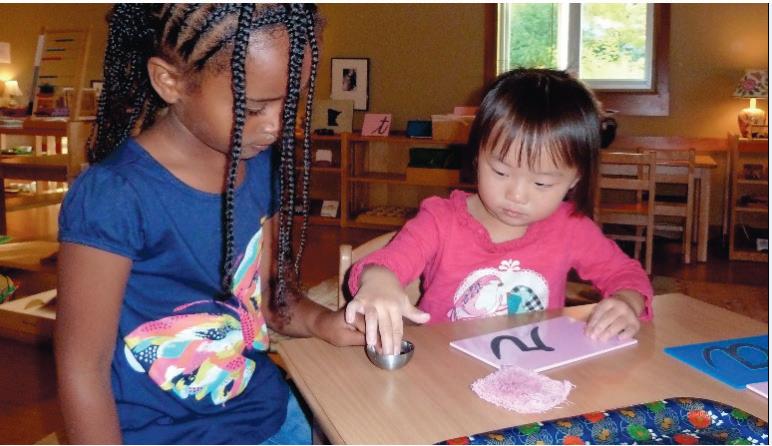
The Sandpaper Letters lesson allows children to learn letter sounds and formation in cursive.

info@badenmontessori.org
We are a small, Montessori school.
We plan to serve students ages 3-6, 8:30 a.m. to 3:30 p.m., Monday-Friday, with a rolling admissions policy. We plan to accept the state subsidy for those who qualify.

For more information, contact Kim Roberson, Head of School, at 314-266-8176 or info@badenmontessori.org
Come Grow With Us.
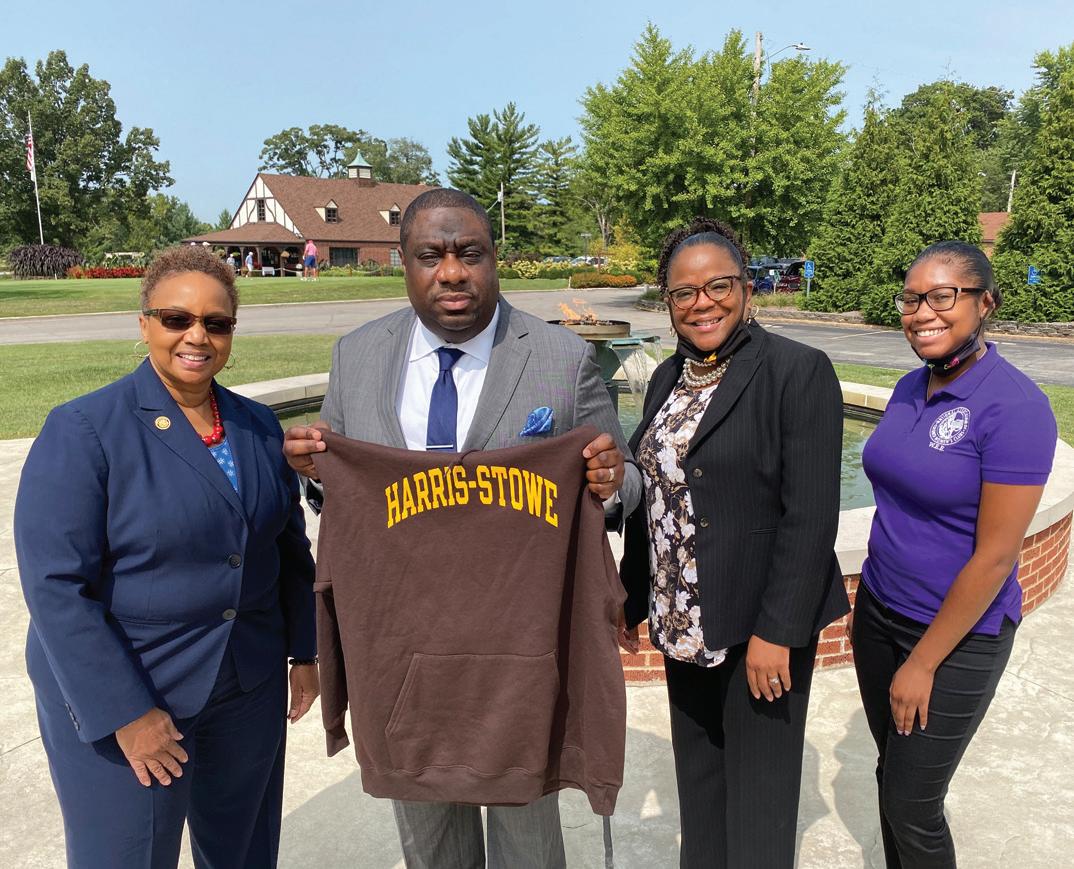
Harris-Stowe State University and the Normandy Schools Collaborative have entered into a partnership to provide college scholarships through the new HSSU Top 100 Scholars Program. To earn the scholarships, the high-achieving Viking graduates must meet certain criteria and choose to continue their education at HSSU in the fall of 2021 and 2022. Two Presidential and two Board of Regents scholarships will be awarded to eight deserving Normandy graduates over the next two years. Shown here celebrating this new partnership are Manicia J. Finch, HSSU dean of Enrollment Management; Marcus C. Robinson, Normandy superintendent of schools; Aline Phillips, director of the HSSU Educational Center, and Ahnnyshia Hibler, HSSU graduate assistant.
Continued from C1
sense of the student experience. Check out youvisit.com, a pioneer in the virtual visit space even before the pandemic, to see virtual tours of institutions across the country. Register for and attend a virtual college fair, and follow colleges on social media. Social media platforms really give students a view of what life is like and often are a great way to hear student voices and experiences. Colleges and universities are investing in countless ways for you to learn about them! It’s easier and cheaper than ever to expand your search. Once you apply, email your admissions representative at the college or university to check in, introduce yourself, and show demonstrated interest!
Research test free and test optional policies so you understand how college admissions offices are making decisions; build your habits and focus on your studies!
The pandemic has impacted the ability of students to prepare for and take standardized tests like the ACT and SAT. Colleges understand students; testing struggles, and the admissions process is changing nationwide as more colleges and universities adopt test free and test optional policies. According to FairTest, more than 60% of colleges and universities recognized by the U.S. Department of Education have chosen to institute a test optional policy. Studies show that policies like these increase the diversity of college campuses. Don’t give into the hype that you hear about how important standardized testing is. Prioritize your health, build good habits, and focus on your studies. Your high school grades matter now more than ever. Use the resources you have to create the conditions for you to present yourself in
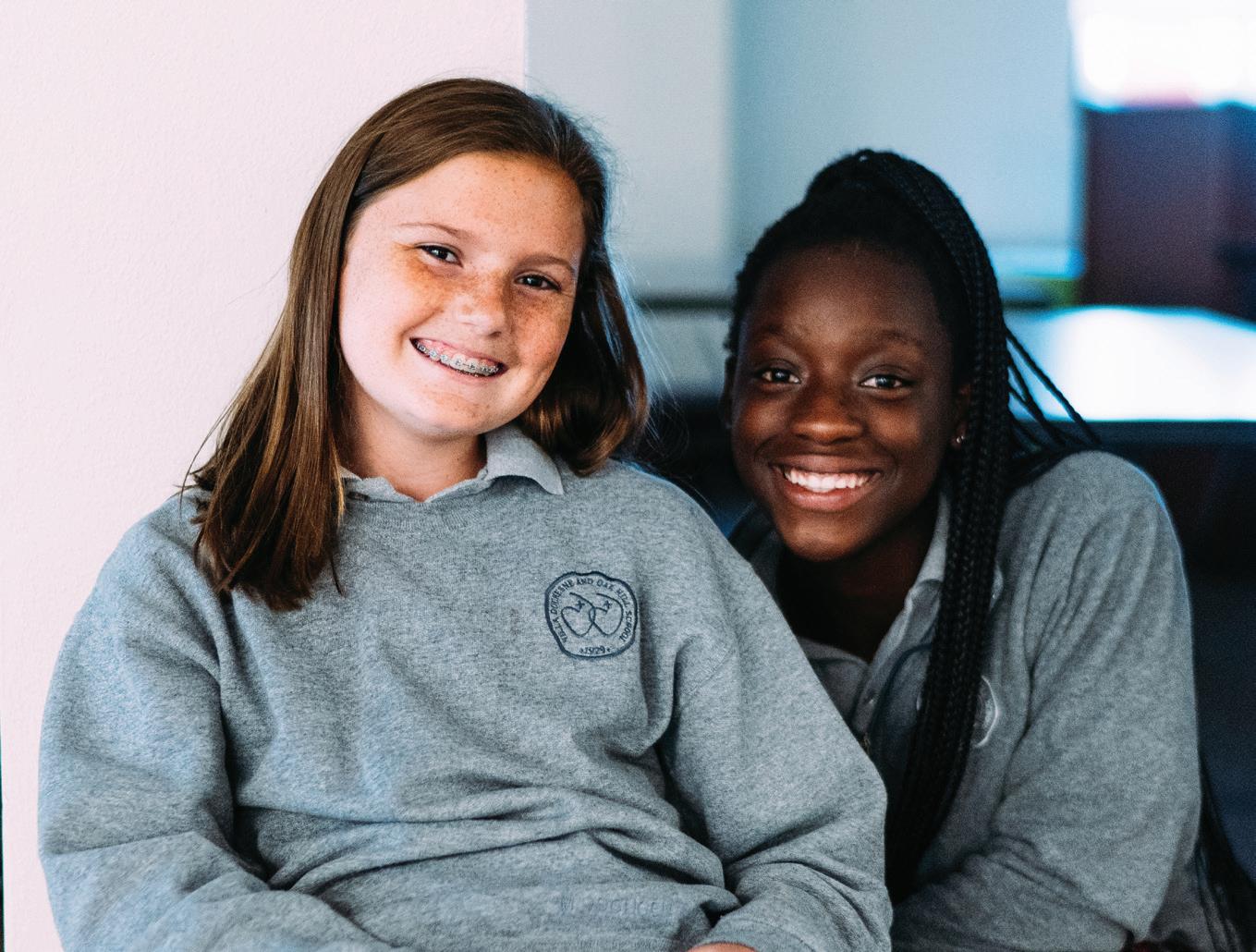

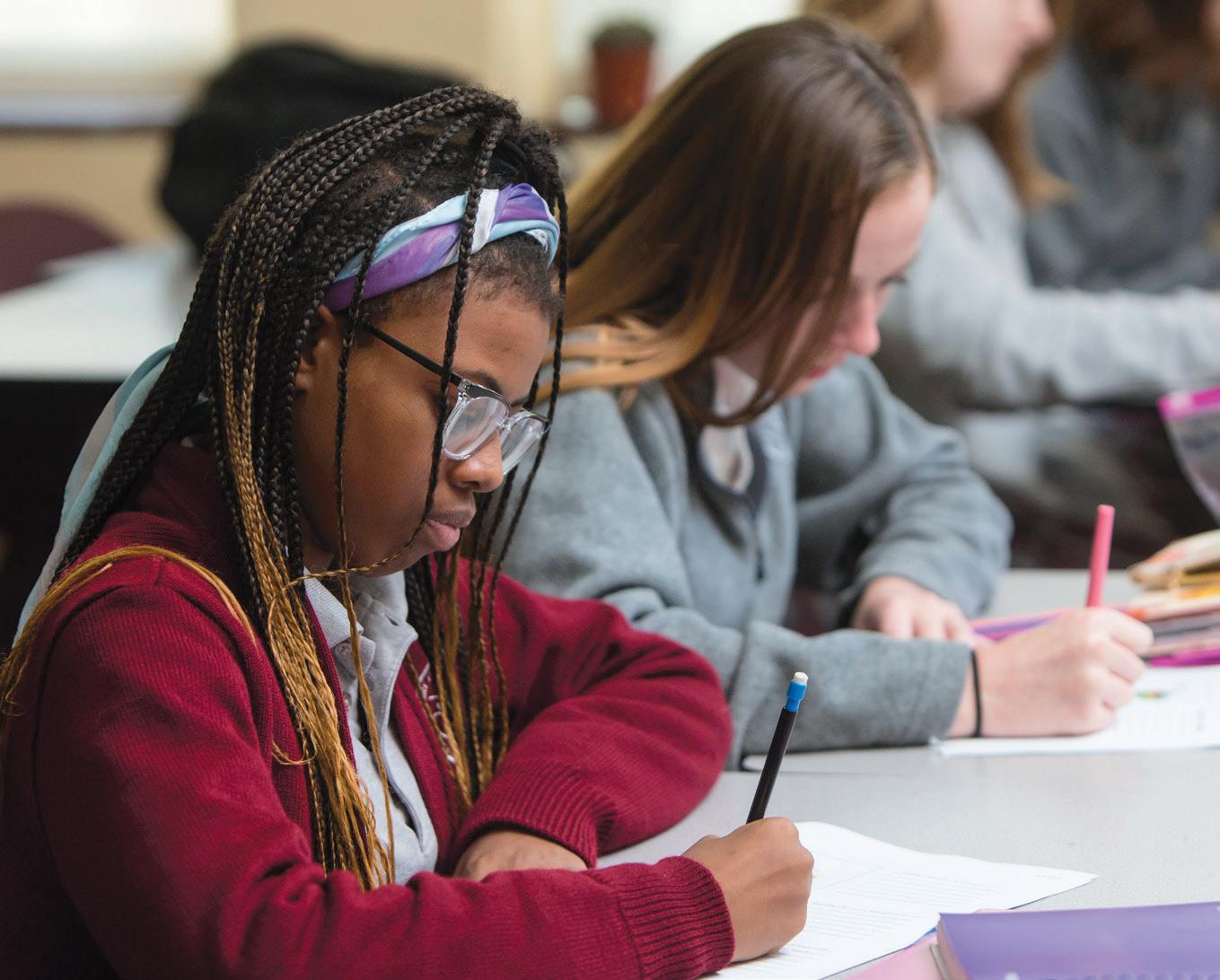

the best way possible to admissions committees. There is a growing recognition that a standardized test score is just a snapshot of how a student performed on one particular day, while your grades and your contributions to your high school community show how a student can be successful over time. In 2014, an extensive study on students at test optional colleges comparing those who did and did not submit test scores found there was “virtually no difference in academic performance” between them.
To have a strong transition into college, students must be
n Members of Villa’s Class of 2020 were admitted to 14 colleges that rank among the top 50 and an additional 27 colleges that rank among the top 100 (according to US News and World Report).
able to advocate for themselves and take advantage of the resources on campus. A student’s daily skills, habits, and actions indicate how successful they will be in the college environment.
Start early in planning for the financial aspect of college
The earlier you start planning for covering tuition and expenses during college, the better. College counselors can offer support in planning. Most institutions offer a net price calculator feature on their websites. Fill this out to inform your plan. Visit websites of the schools you apply to and learn about how scholarship and financial aid determinations are made. In general, families focus too much on the aid they can get and ignore outside scholarship opportunities that may
be available to them. Finding scholarships and applying to them takes time and effort. If you want to graduate with little or no debt, you need to plan early and put in the work. There is so much opportunity out there for students who go after it!
Build strong relationships at your high school
Finally, younger students should begin to build strong relationships and connections with teachers and adults at their high school. Trust in your counselors and teachers. We want you to be happy and successful in the college application process, and that is why we are here – for you! At Villa, our student-to-teacher ratio is low. The relationships between teachers and students are very strong, and as a result, each member of our senior class has several teachers who know them well and can write positive letters of recommendation for them.
Mr. Tejada believes that a Villa Duchesne education prepares students for what college life will be like. Here, students are encouraged to continuously challenge themselves and practice self-advocacy so that the transition to the independence of college is as smooth as possible. Each year, Mr. Tejada works with students and families, meeting every two weeks throughout the college application process. Members of Villa’s Class of 2020 were admitted to 14 colleges that rank among the top 50 and an additional 27 colleges that rank among the top 100 (according to US News and World Report). The class received more than 2.8 million dollars in scholarships per year of college. Visit www.vdoh.org/ admissions/welcome to learn more about Villa Duchesne! Alice Dickherber is director of Marketing and Communications for Villa Duchesne and Oak Hill School.



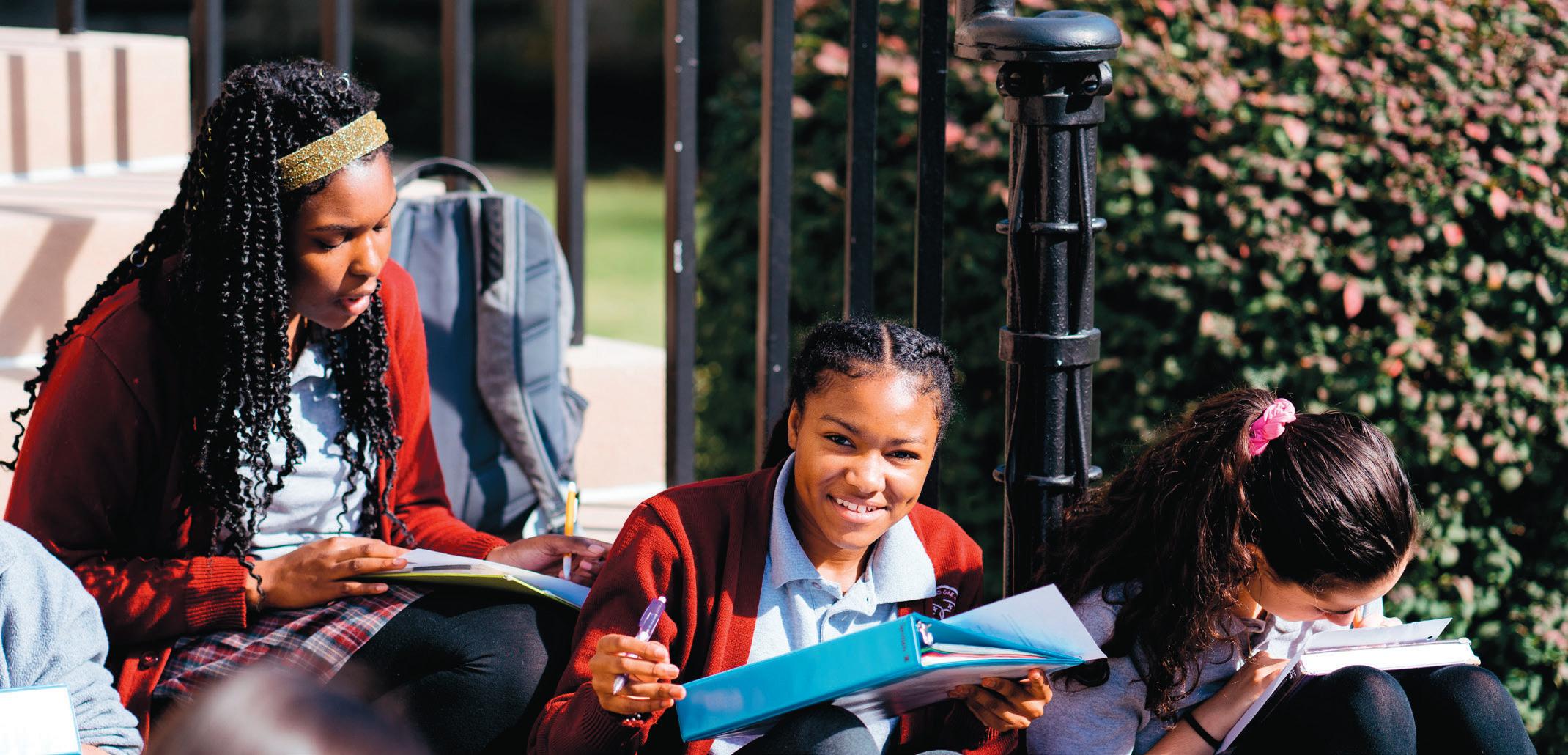

Applications are still being accepted.
“We plan to have a rollingadmissions policy until we meet full capacity, which will be no more than 10 students this year,” Roberson said. “This small cohort of students was intentional, even before the pandemic, as we wanted to ensure quality over quantity, in a warm, welcoming environment designed around the needs of the child.”
In the United States, Montessori is experiencing growth. Today, there are about 4,500 Montessori schools, according to the North American Montessori Teachers’ Association. The Montessori Method, as it is often referred to, was founded and developed by Dr. Maria Montessori in 1907.
“We now have studies that show Montessori levels the playing field for low-income students and students of color in closing the opportunity/ achievement gap,” Roberson said. “To get there, families have to have a way to access that education.”
To do that, tuition will be based on a sliding scale, with no tuition charged for families at or below the poverty level.
To help subsidize the cost, tuition will be paid via state subsidy for those who qualify, along with funds raised from public and private donations, Roberson said.
But what exactly is Montessori?
“I get asked that question a lot,” Roberson said. “Basically, a Montessori education involves having scientifically made materials in a prepared classroom environment that is specifically designed to satisfy the developmental needs of the child. Because the materials are designed for them, children are able to explore and learn independently, as well as in groups.”
In a fully implemented Montessori program, children learn within their appropriate mixed-age groups: 3-6; 6-9; 9-12, adolescent, or middle school, and high school. The teachers are called guides, as they are guiding the children towards their own academic growth and independence, Roberson added.
“The lessons start out in a very concrete manner that develops the child’s senses during what Maria Montessori called the ‘sensitive periods’,” Roberson said. “Gradually, those lessons evolve into more abstract concepts, and those concepts get reintroduced in more broader and deeper forms as the child moves from primary to elementary to adolescent ages, if they continue Montessori into elementary and middle or high school.”
With the school currently poised to open within the next month, Baden faces the extra hurdle of finishing preparations in the midst of a pandemic. A part of this challenge involves extra thought being given in how to create a safe learning environment and monitor the well being of students and families.
“I plan to check in with not only the students, but also their families about their health and general wellbeing. The school
will be a safe space for students and a resource for families,” Roberson said. Health and hygiene will be emphasized in the classroom. Roberson said she also plans to provide interactive lessons on hygiene, information on Covid-19 that is easy for kids to understand, and immune system-boosting healthy snacks.
In general, there is a serious lack of funding for quality early childhood education in the United States, and the pandemic has highlighted this problem even more so, Roberson said.
“Most states, Missouri included, do not provide enough funding for early childhood education, even though studies show that the investment pays for itself,” Roberson said. “This lack of funding prevents many families, particularly families of the global majority and those with low incomes, from accessing any early childhood education program.
“And now with the pandemic, it’s more important than ever for all families to have safe, affordable access to high quality, early childhood education in the communities where they live and work,” Roberson said. “Our school’s mission seeks to change that by making Montessori financially feasible, while giving parents a peace of mind as they continue to work outside the home or as they return to working in person. We owe it to ourselves and to the next generation to make our world better than we found it. A Montessori education helps achieve that.”
For more information, contact Kim Roberson, head of school, at 314-266-8176.

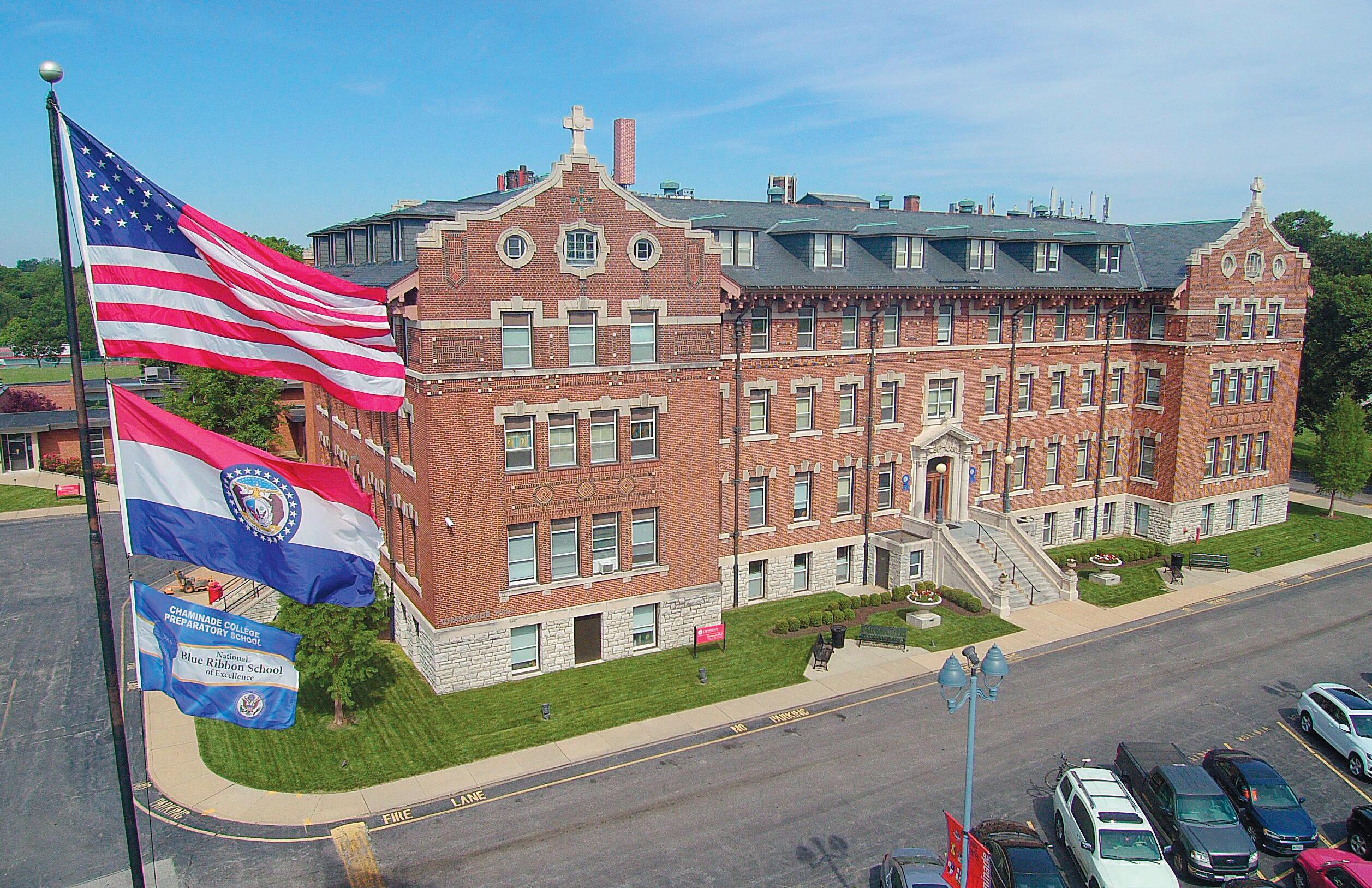
reminds us that the purpose of a Marianist Education is to identify and develop the full range of gifts and talents that God has placed in each person. Although achieving high academic standards and test scores is important, the focus is on developing our students to become the men the world needs them to be.
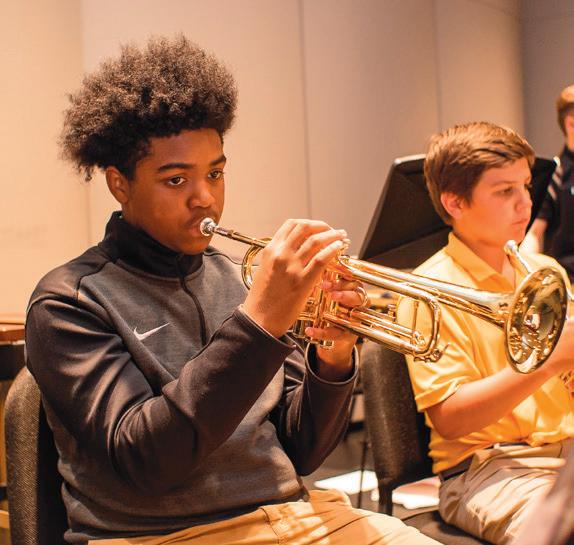
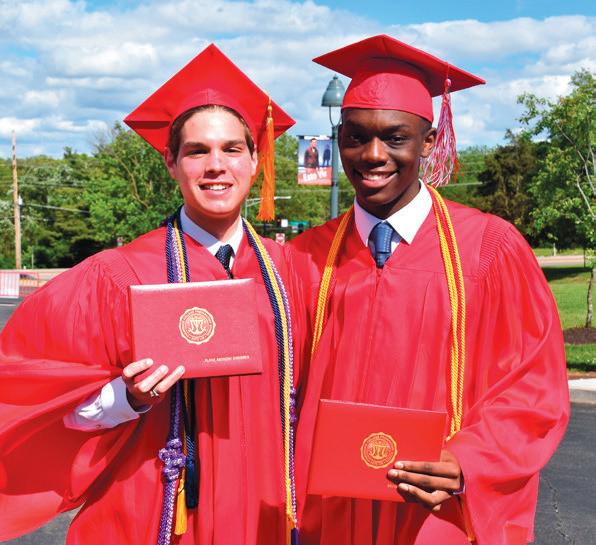
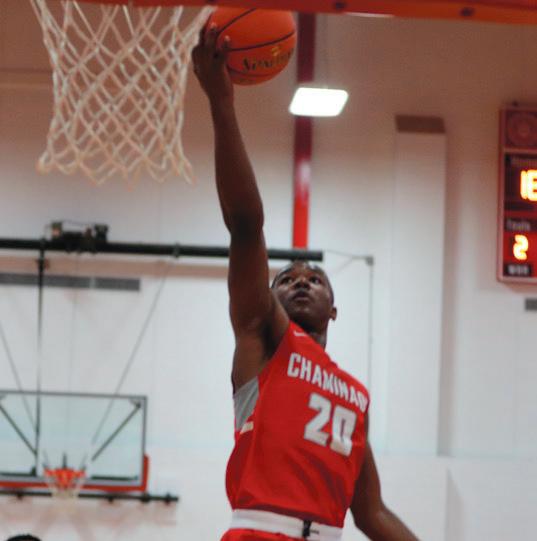
Continued from C1
Be proactive and communicate with your school to address any problems with a schoolissued device. If you do not have transportation to pick up a device or bring it in for repairs, ask the school to accommodate you if possible.
The McKinney-Vento Act is a federal law protecting students who lack a fixed, regular, and adequate nighttime residence. This could include those living in shared housing due to loss of housing, economic hardship, or a similar reason; those living in motels, hotels, trailer parks, or camping grounds due to no other options; and those living in substandard housing. The law requires schools to immediately enroll eligible students without requiring documentation, set up transportation without delay, ensure equal access to education, and remove barriers to enrollment and retention of students experiencing homelessness. Schools’ obligations under this law have not changed during the pandemic.
If you believe your family qualifies as homeless, ask for the homeless liaison at either your school of origin, in the district where you were last permanently housed or enrolled, or at your school of residency, in the district where you lay your head at night. If you disagree with the school’s decision about enrollment, whether your family qualifies or not for services, transportation, or school selection, the school must provide dispute resolution procedures, which include immediate enrollment in the school of your choosing and transportation while the dispute is worked out.
Liaisons should stay in contact via regular check-ins to ensure connection to instruction and other school-based
supports. Students eligible for McKinney-Vento must receive the same access to technology, PPE, and other necessary resources as other students.
In Missouri, local school boards are responsible for establishing written discipline policies, often called codes of conduct, that govern which behaviors result in suspension or expulsion. Few districts in the St. Louis area have made formal changes to their discipline practices as they adapt to remote or hybrid learning or attempt to implement social distancing in their buildings, but check your school code of conduct and announcements to stay updated.
If your student is suspended for any amount of time, thy must be given oral or written notice and should be told why they are being suspended with an opportunity to share their side of the story. Longterm suspensions (between 11 and 180 days) and expulsions (which are permanent, for more than 180 days) require additional due process, which usually means that schools will provide a more formal proceeding in addition to notice. You have a right to appeal a short-term suspension, a long-term suspension, or an expulsion.
For students with disabilities, there are additional special protections in disciplinary proceedings that have not been waived during COVID-19. Any student who has been removed long-term from the general classroom for disciplinary reasons has a right to receive an alternative education, paid for by the school district.
The Individuals with Disabilities Education Act (IDEA) ensures that students with qualifying disabilities have the right to a Free Appropriate Public Education (FAPE) from birth to age 21. For these students, school districts must offer an Individualized
Education Program (IEP) “reasonably calculated to enable a child to make progress appropriate in light of the child’s circumstances.” Schools have been given some flexibility during COVID-19, but some requirements still must be met. If a school district provides distance learning during school closures, the district must continue providing services and meeting timelines listed in a student’s IEP “to the greatest extent possible.” If you and the school agree, IEP meetings may be held via phone or video conference. Evaluation timelines may be extended, but initial special education requests and referrals must still be accepted. Document the services provided to your student during remote learning and communicate with school staff about what is working and not working. Use email and text when possible and take notes after a phone call.
Be sure to read all correspondence from your school and district, including emails and mail. If possible, check your school district’s website often, since many are updated frequently, and consider joining a virtual parent group for news and support. If you need additional resources or assistance with technology, food, or childcare, you should explain your situation to school support staff to brainstorm options and consider reaching out to local churches, libraries, and community centers. All families are encouraged to take the Education Justice Program’s survey at https://www.surveymonkey. com/r/9MCLJKK, which will be used to help us better understand the education issues facing students during this crisis. If you have concerns about your student’s access to education during COVID-19, please call our hotline at 314-2568789.





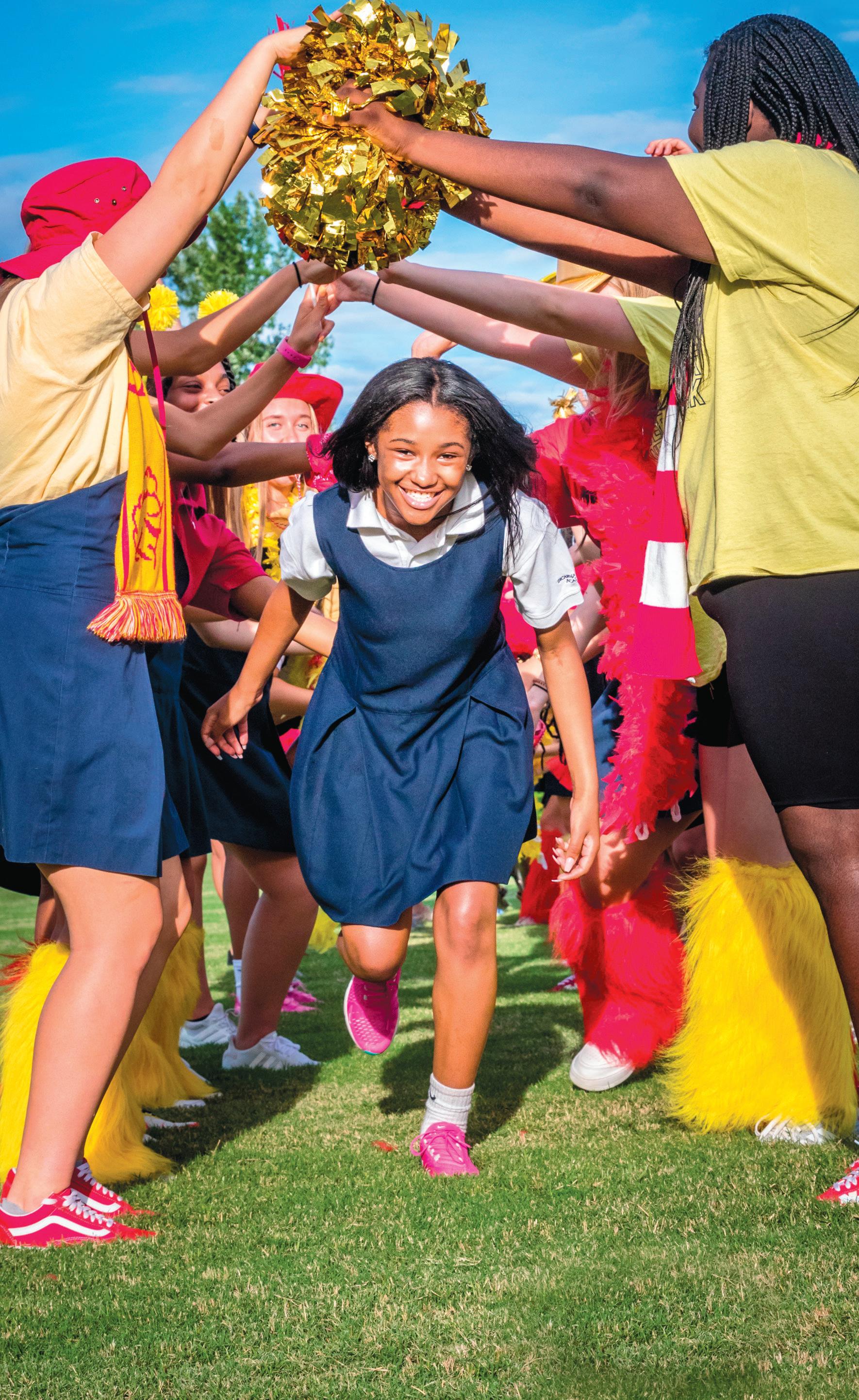

By Diamond Curtis
For The St. Louis American
My name is Diamond Curtis, and I am a student at the illustrious Cardinal Ritter College Prep High School. On our first day of school this year, we had the pleasure of meeting Cori Bush, a former student at Ritter who is running for U.S. Congress in Missouri’s 1st District. She talked to us about all of the obstacles she has overcome and why she works so hard and never gives up. She encouraged us to use our voices and power to bring about change in our community. She said God is the reason why she is where she is today. That resonated with me because without God’s love and guidance, I don’t know where any of us would be. God wants all of his children to prosper, and no matter how hard times get He will always make a way for us.
My overall takeaways from her speech was that we should never give up and that we should always stand up for what we believe in, even if we’re standing alone. It motivated me to hear her tell us about all the hardships she faced and how she didn’t allow those obstacles to stop her. Something else that stuck with me was her telling us: “The sky is not your limit.” Cori’s words opened up my eyes and showed me that I can
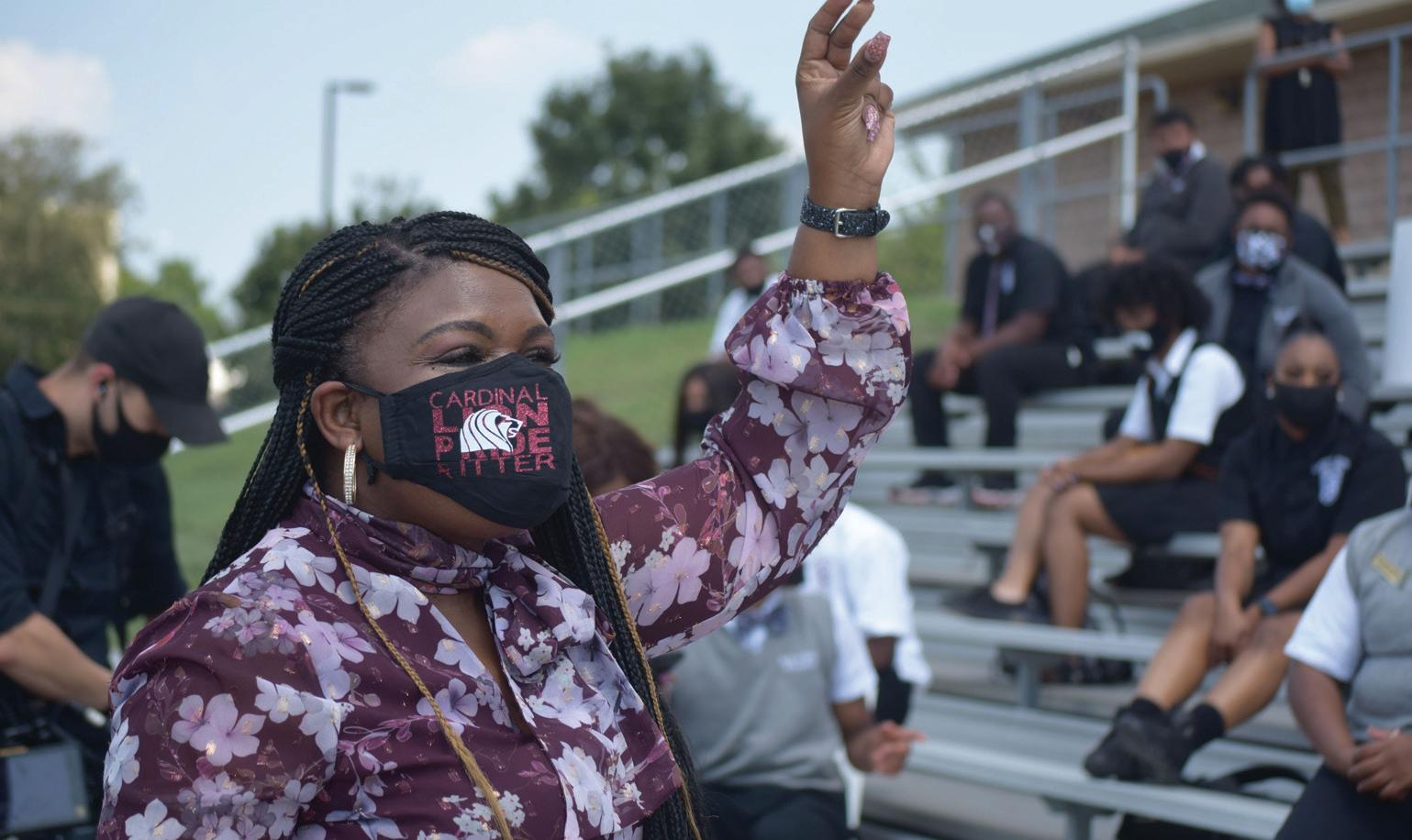
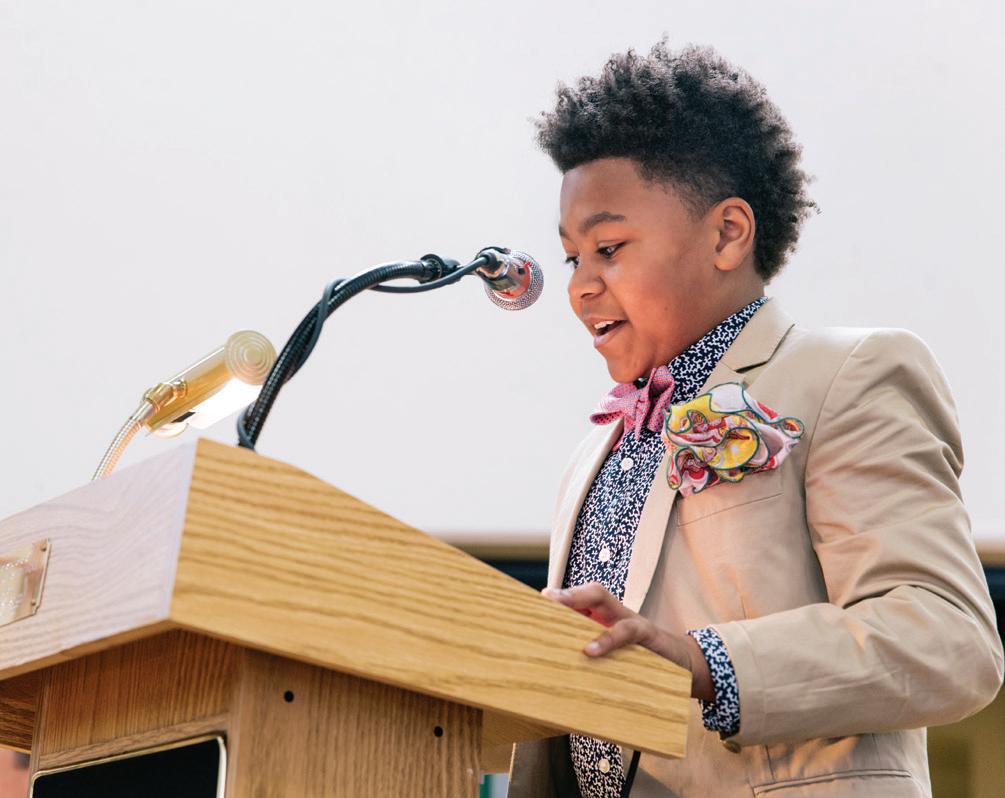
make a change right here in my community.
At Cardinal Ritter College Prep, we work diligently to come together and make a difference. After hearing those inspiring words from Cori Bush, the students and faculty got together into breakout groups to brainstorm what needs to be changed in our community, and we came up with an Action Plan. Our Action Plan consists of five main categories: businesses, community, education, health care, and justice. Regarding businesses, we voiced that we need more job opportunities, as well as small business funding, higher minimum wage, and more Blackowned businesses in the inner city. As far as our community, we
need more recreational centers/ clubs for the youth, community events, road work and restored vacant homes.
In the area of education, we believe there is a need for better resources in public schools, more after-school programs, equal funding for education, and more scholarships for minorities.
Health care also plays a key role in the well-being of our community, and a lot of people in our area don’t have proper resources. Things like mental health services, free clinics, rehabilitation centers for those who have committed minor offenses, urgent care clinics, mental health facilities, and more Black-owned nursing homes, would help improve health care in our area. Lastly, to improve, we
believe that we must have a better justice system. Improved police training, felon forgiveness programs that help people better themselves, prison reform, crime prevention initiatives, and de-escalation programs would play a key role in bettering our community. These changes would make a big difference and help unite us as one. They may not happen overnight, but I know we can work hard to make an impact. Martin Luther King Jr. once said, “Change does not roll in on the wheels of inevitability, but comes through continuous struggle.” As Cardinal Ritter students, we will continue to strive for positive change within our community and outside of our community.


By Earl Austin Jr.
Of The St. Louis American
There have been many athletes in the St. Louis area who have been thriving at the various private schools around the area. Many have gone on to achieve success at the collegiate and professional levels after leaving the St. Louis area. Most prominent among the private school products who are hitting it big in the professional ranks are basketball players Bradley Beal, Jayson Tatum and Napheesa Collier. Beal and Tatum were McDonald’s All-Americans and National Player of the Year award winners from Chaminade College Prep. Both are now stars in the National Basketball Association. Beal is a star guard for the Washington Wizards while Tatum is one of the league’s top young up and coming stars with the Boston Celtics.
Collier was also a
McDonald’s All-American after a stellar prep career at Incarnate Word Academy. After a stellar collegiate career at Connecticut, she is now a young star in the WNBA with the Minnesota Lynx. She was the Rookie of the Year in the WNBA in 2019.
There are several other great student-athletes who are currently making their mark in the private schools around the St. Louis area. He is a look at
some of those top athletes. Luther Burden III (Cardinal Ritter): Luther is one of the area’s most talented two-sport athletes as a football and basketball standout for the Lions. His main sport is football, where he is rated as one of the top wide receivers in the country in the Class of 2022. He has been recruited from coast to coast with offers from schools such as Alabama, Ohio State, Georgia, Oklahoma and Missouri. As a freshman, he led the Lions to a berth in the Class 3 state championship game. On the basketball court, he is a fearless shooting guard who plays great defense. He was a big part of the Lions’ run to the Class 3 state championship last season.
Johnny Gates (John Burroughs): One of the area’s top soccer players, Gates has been a top scoring threat for the Bombers since he entered the program as a freshman four years ago. Entering his senior season, Gates has scored 49 goals and registered 40 assists in his career. As a sophomore, he scored 16 goals and nine assists in leading the Bombers to a state championship. As a junior in 2020, Gates had 25 goals, 18 assists and seven game winning goals in leading Burroughs to a 22-2-1 record and a third-place finish in the state tournament. Gates has already given a commitment to
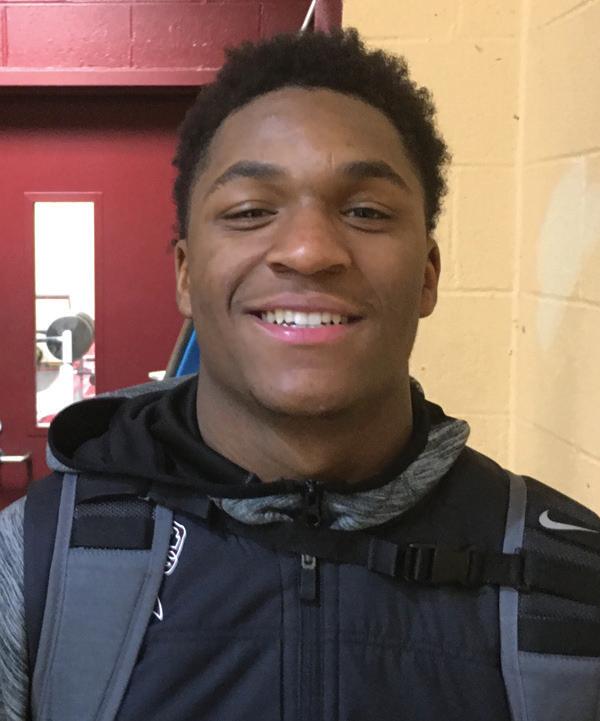
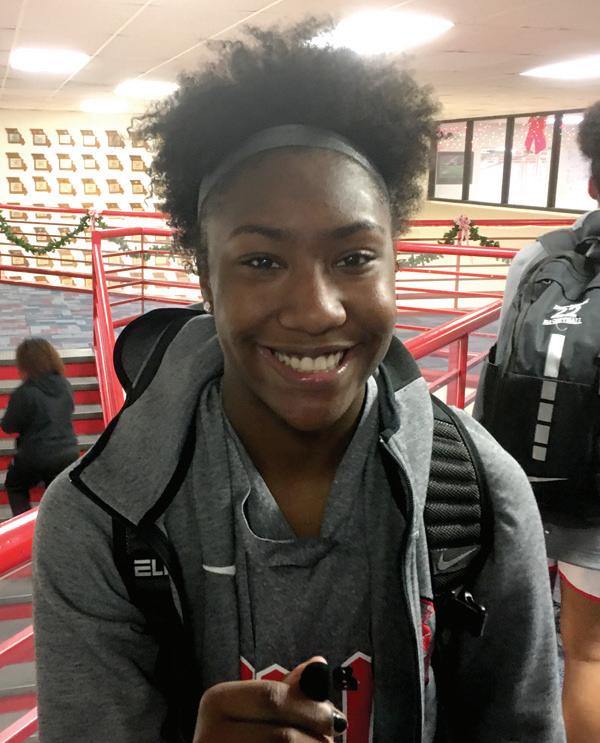
Loyola of Chicago on a soccer scholarship.
Sydney Juszczyk (Trinity Catholic): The talented senior girls’ track and field standout has reached the status as the top high school javelin thrower in the country. She has dominated the event since entering the high school ranks as she won back to back state championships in 2018 and 2019. As a freshman, she threw the javelin 142 feet 3 inches at the state meet and followed up with a throw of 152 feet 1 inch as a sophomore for the state title. In July, she won the javelin event at the Hammerman AllThrowers League Meet in Aurora, IL with a throw of 164
feet 7 inches, which was the top mark in the country. She was also a big part in the Titans winning the Class 3 state championship as a team in 2019.
Christopher Little (CBC):
An outstanding senior baseball player who is one of the top young pitching prospects in the country. Little entered his senior year as the No. 5 prospect in the Class of 2021 by the baseball scouting service, Perfect Game. He committed to a powerhouse Vanderbilt program when he was a freshman. He will be skipping his senior year of competition at CBC to graduate early and enroll at Vanderbilt in the spring. The talented right hander is
a top-level prospect who is expected to be one of the top players drafted into the Major League Baseball ranks when he becomes eligible for the Draft.

Tarris Reed, Jr. (Chaminade): The junior basketball standout is currently the top prospect in his class in the state of Missouri. As a sophomore, the 6’8” power forward led the Red Devils in scoring and rebounding as they advanced to the Final Four of the Class 4 state tournament. Reed has already attracted scholarship offers from several Division I schools nationally, which include Florida, Missouri, Saint Louis U., Kansas State, Michigan State and many others. Saniah Tyler (Incarnate Word Academy): A tremendous girls basketball player who is the latest in the line of great players in the powerhouse Red Knights program that has produced state championships and top talent. She is an elite point guard who led the Red Knights to a Final Four berth in the Class 4 state tournament a year ago. She has rated the top Class of 2021 prospect in the state of Missouri and she has several scholarship offers from several top Division I programs around the country.
Journee White (MICDS): The junior girls’ tennis standout has been

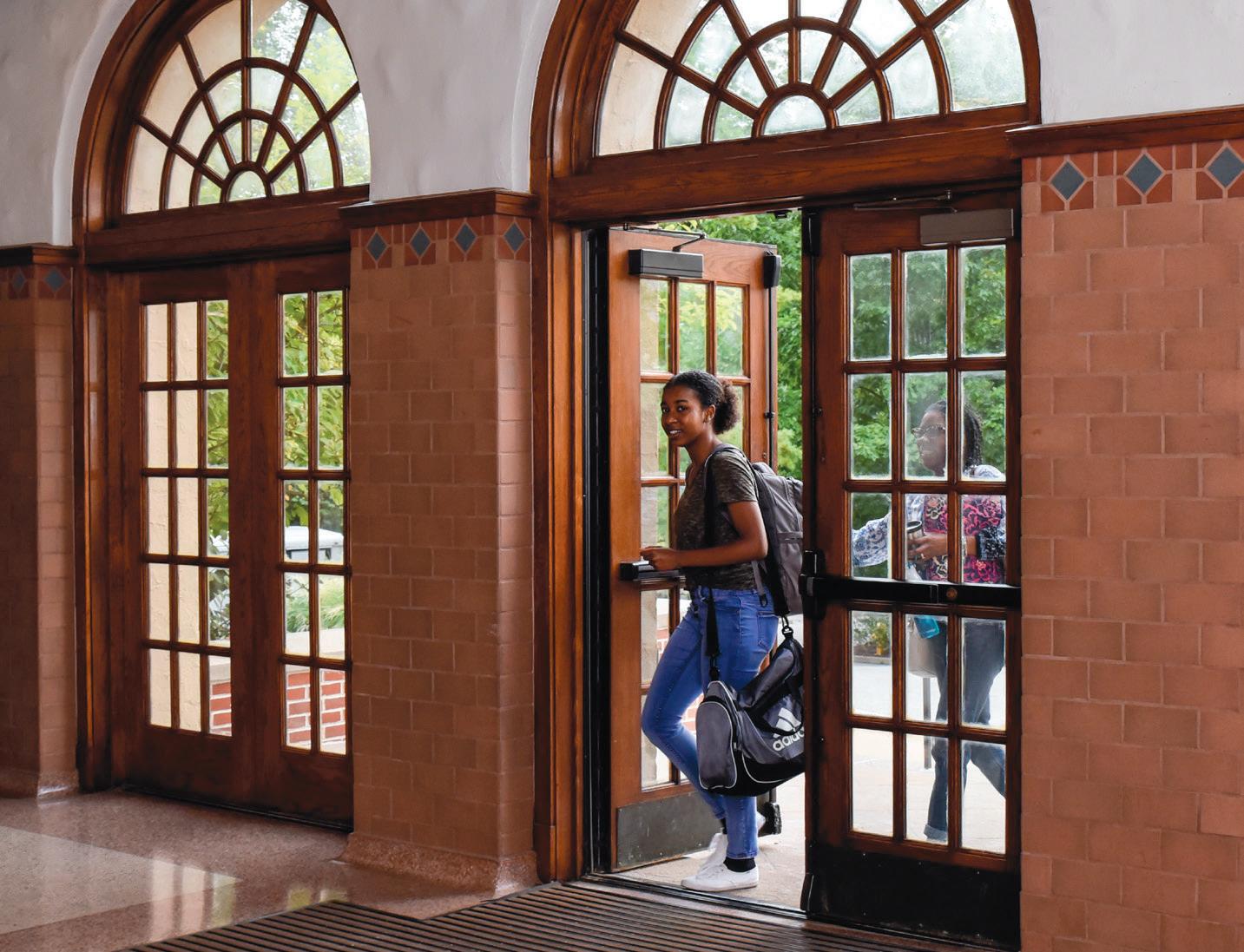
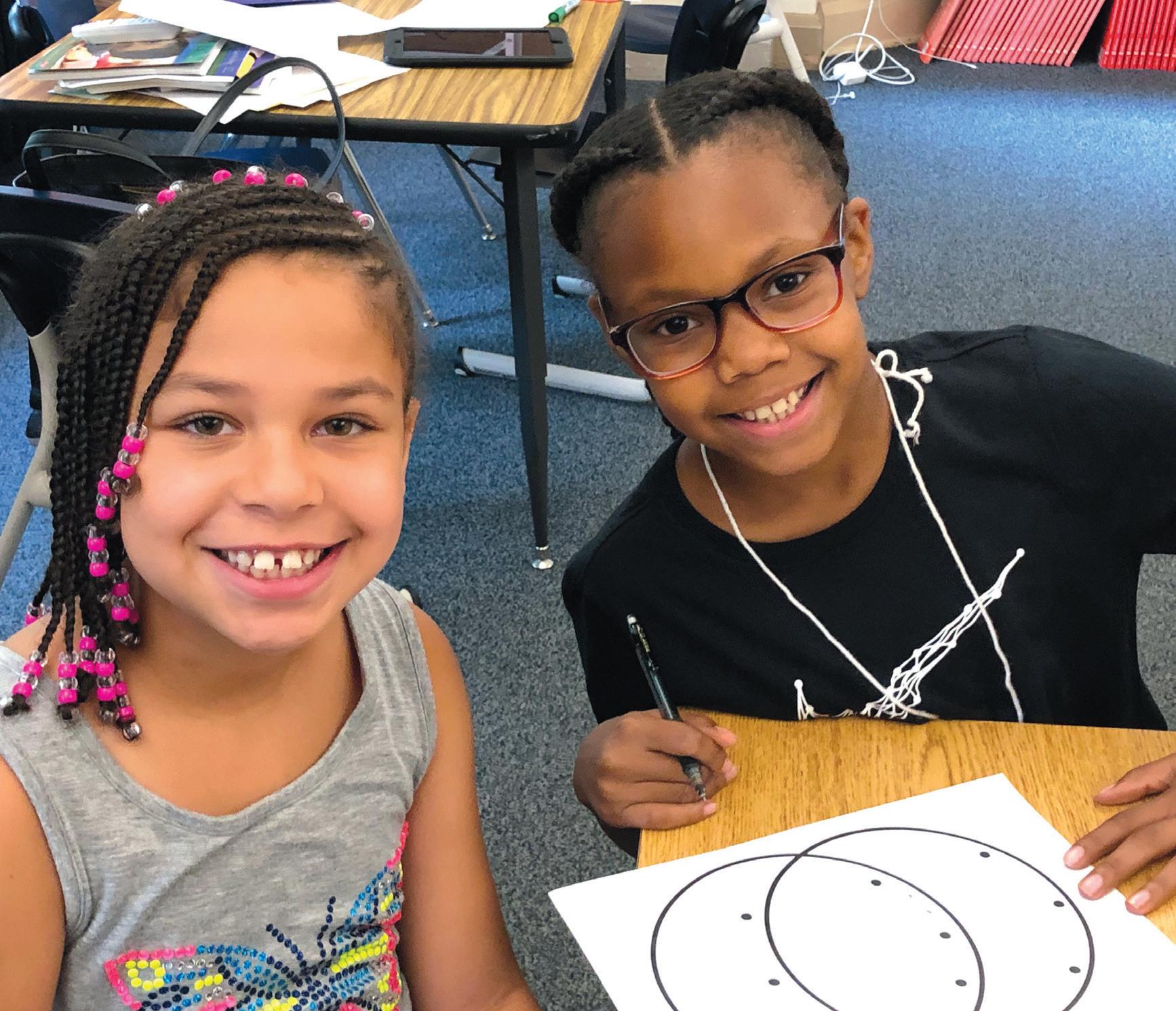
American staff
As part of a company-wide commitment to launch a series of initiatives that support racial and socioeconomic equity and inclusion in and through education, K12 Inc. – a provider of online and blended education— is sponsoring its inaugural We Stand Together Scholarship.
Designed to increase the number of underserved students of color at K12 Private Academy, the scholarship will provide up to 60 students in kindergarten through 12th grade with tuition-free full-time enrollment at the online school for the 2020-2021 academic year.
The We Stand Together Scholarship is open to new students who identify as Black or African American, maintain a 2.0 GPA (or equivalent) or greater, and can demonstrate financial need
“Education has an immeasurable impact on a child’s life and the way they see themselves in the world,” said Nate Davis, CEO and Chairman of the Board of Directors at K12.
“By showing more Black children that their education matters and that there is a place for them in the online learning community, we will open endless possibilities for their future. Along the way, we are exposing all students to diverse experiences and helping them realize their own learning
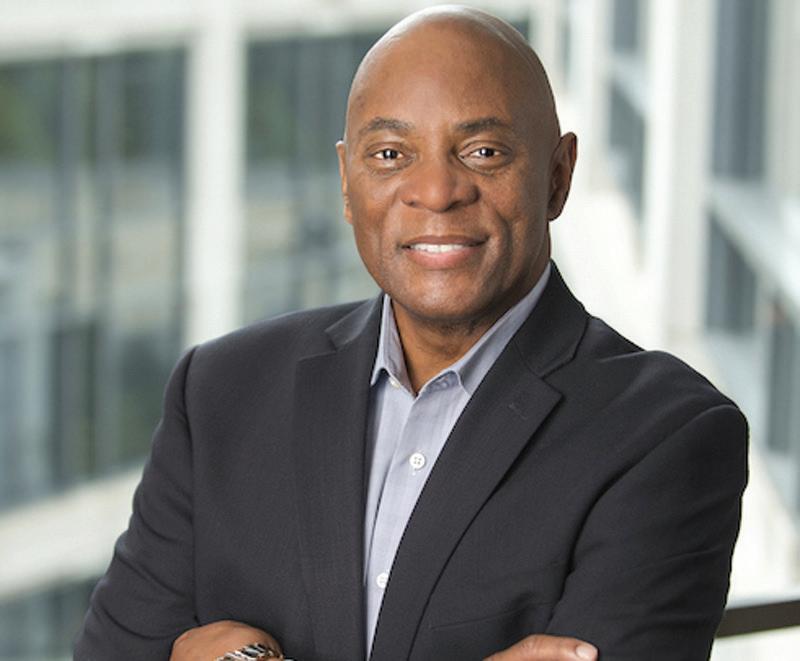
“By showing more Black children that their education matters and that there is a place for them in the online learning community, we will open endless possibilities for their future,” said Nate Davis, CEO and Chairman of the Board of Directors at K12.
potential and the potential of others.”
Eligible students are invited to apply by submitting a personal statement explaining their educational and life goals. To emphasize the inclusivity of the scholarship, these personal statements may take the form of a personal essay, an illustration, a poem, or a letter of reference endorsing the student’s achievements and future goals.
K12 Private Academy’s curriculum is delivered through live online classes with licensed teachers who share a passion for meeting the personalized needs of students. Students in kindergarten through 12th grade study the core subjects of math, science, English/language arts, and history. Courses are offered at a variety of levels, including credit recovery, honors, and Advanced Placement
options. Of the 60 scholarships to be awarded this school year, five will be designated for enrollment at K12 Private Academy’s Destinations Career Academy. Through Destinations, students in grades six through twelve can get a head start on future college and career paths with specialized counseling support and courses in a variety of in-demand fields, such as business, health and human services, and information technology. The deadline to apply for the We Stand Together Scholarship is October 15, 2020 at 11:59 PM ET. For more information on eligibility and application, visit https://tinyurl. com/K12A-scholarship or email scholarshipcommittee@ K12.com.


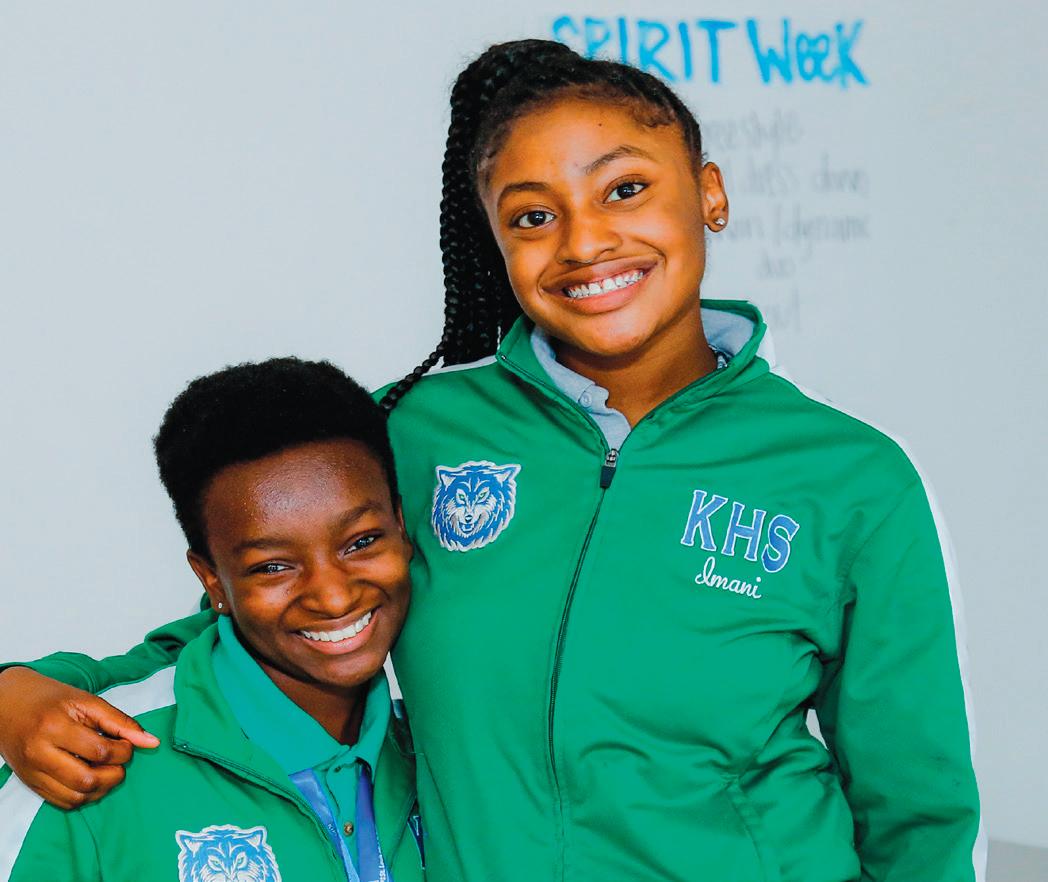
The typical routine a school year brings has been lost this year, as students adjust to hybrid or fully remote learning models and ever-changing reopening plans. According to McKinsey, 75% of the 50 largest school districts in the country have decided to start remotely, and the UN estimates that 94% of the world’s student population has been impacted.
While the disruption the coronavirus has caused the educational system is clear, the long-term impact on students’ mental health is even greater cause for concern.
Research recently published in the Journal of the American Academy of Child and Adolescent Psychiatry found that young people who are lonely are up to three times more likely to develop depression, creating mental health issues that could last nearly a decade. The study found that more than one-third of adolescents reported a high level of loneliness during lockdown. While these findings are alarming, utilizing service-learning to supplement traditional curriculum can give students a sense of purpose and connection, helping mitigate loneliness in a digital environment.
One program that has shown success in fostering social and emotional learning is the Lead4Change Student Leadership Program, which encompasses digital lessons in leadership, as well as creating and implementing team projects to meet a need in the community.

“What I want people to take away from our project is that even through isolation, you can still find ways to help out in your community,” said Genesis Morgane, a student from Garner, N.C. who created the “Corona Relief Crew” through the program, distributing kits with essential food and supplies to the homeless and those in nursing homes who have been severely impacted by the pandemic.
While the pandemic meant that students had to rapidly
adjust to physical distancing guidelines, they were successful in completing their project and building meaningful relationships in a remote environment.
“The most amazing part of their efforts was that everything was done virtually,” said Dr. Cleopatra Lacewell, the teacher overseeing the Corona
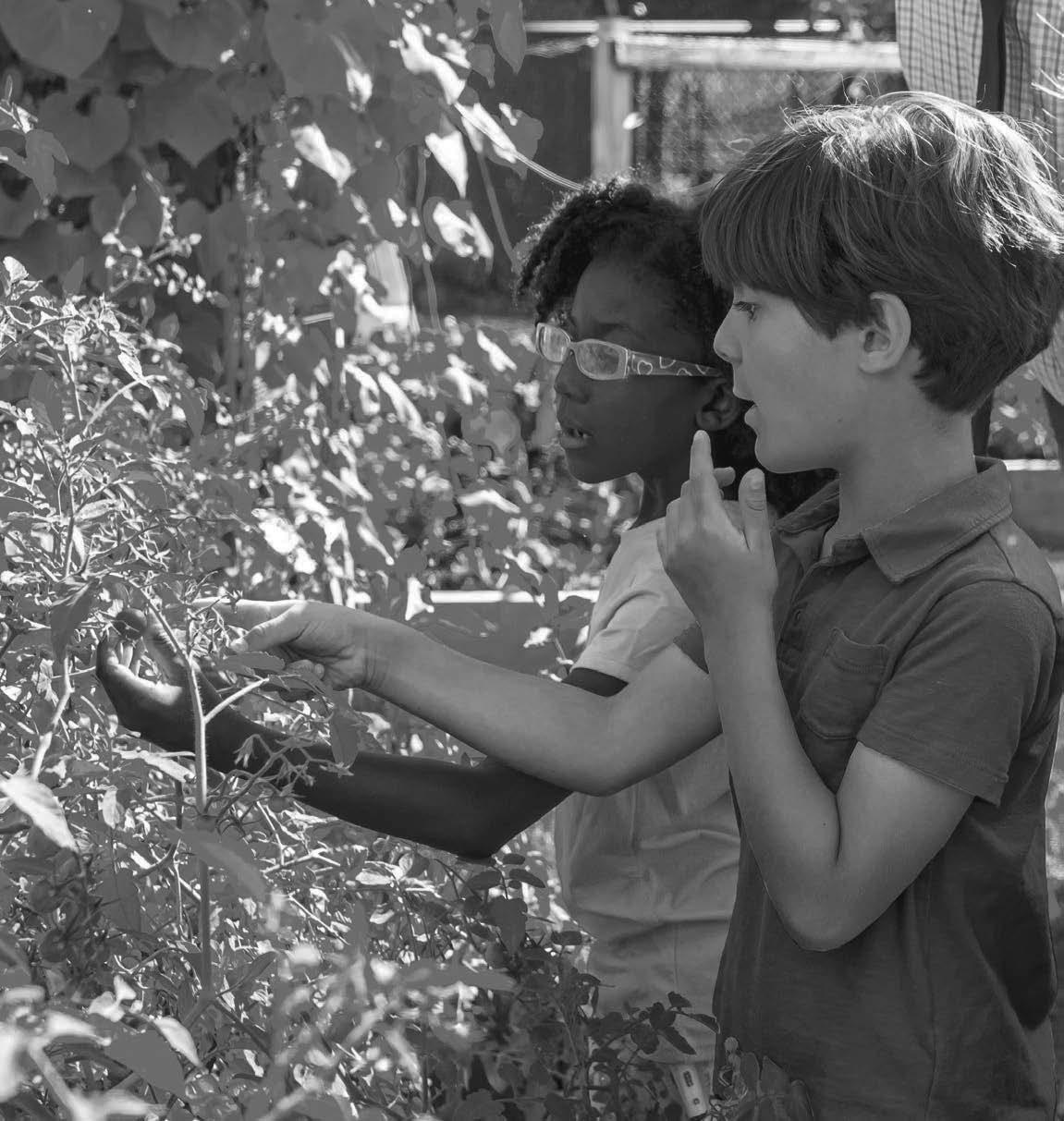

Relief Crew. “The youth had to engage one another through emails, texts and a computer screen, which is often a challenge for me as an adult.”
The Corona Relief Crew was honored by Lead4Change with a $10,000 grant for the nonprofit of their choice, but an equally rewarding outcome of
the project was instilling in its participants a sense of meaning in connection in their community.
“We decided that everyone is at home, alone, having to stay in quarantine and distance themselves from everyone else,” says Morgane. “We said, ‘Why don’t we think about them and let them know that we have not forgotten about them.’”
The disruption students face due to the pandemic is widespread, but not evenly distributed. The UN’s research found that groups that are already
vulnerable when it comes to receiving education—those living in poor or rural areas, girls, refugees, and persons with disabilities—experience the greatest impact. The good news is that many digital programs like Lead4Change, which is a free program for all participants, only require enthusiasm and investment of time from students and their teachers.
For more information about the Lead4Change Student Leadership Program and accompanying Challenge, visit lead4change.org.





Yoli Alovor joined Rosemont College in Rosemont, Pennsylvania as its first chief of staff and vice president for Diversity and Belonging. Founded in 1921 by the Society of the Holy Child Jesus, Rosemont College is a private, coeducational Catholic institution.
Since 2013, Alovor has served as a professor at the University of Missouri at Saint Louis teaching graduate level teacher education and social justice courses dealing with diversity and inclusion.
“I want to create tangible and measurable outcomes that lead to the implementation of effective diversity trainings and programs. I hope to develop campus events and create systems that ensure that our faculty and staff members have access to resources that emphasize the importance of inclusive diversity efforts,” Alovor said.
“My focus will be to create an environment that conveys a sense of belonging that reaches across the entire campus. While there is an emergence of diversity offices in higher education, I want to ensure that Rosemont’s diversity office is more than a symbolic appeasement. I intend to do so by exhibiting a culture that
infuses diversity into our every essence and fosters efforts to conceptualize, define, nurture, and cultivate this belief.”
She joins the Rosemont College community after serving as a project manager for the Centene Corporation, a diversified, multi-national healthcare enterprise that has operated government-sponsored healthcare programs for more than 30 years.

Prior to her role at Centene, Alovor led a large-scale multiteam research project in coordination with the dean of the University of Wisconsin School of Business and the Washington University Brain Sciences Research team that studied behavioral concepts such as social belonging theory, proximal learning, concept-building, and multiple intelligence. Alovor earned her PhD in Educational Research in May of 2016 from the University of Missouri at Saint Louis.
“A seasoned administrator, Dr. Alovor has experience in leading complex projects and teams in both the higher education and the for-profit sectors,” college President Jayson Boyers wrote to the college community.
“She has the ability to motivate others while creating and implementing practices that champion staff development and diversity. Dr. Alovor shares my enthusiasm for Rosemont, particularly for our mission and our spirit of community. She is excited to build on both to
create a more well-run, diverse, and inclusive College that will drive innovation.”
Boyers stated in his message to the community that the decision to create the new position of chief of staff and vice president of Diversity and Belonging was informed by the conversations he had with students, faculty, staff, and alumni during his first 100 days in office, and was determined by his own analysis of what changes will drive success at the College.
He also pointed to the important role that Alovor will play in enhancing collegewide systems and the synergy between the college’s Board of Trustees and the campus community in her capacity as chief of staff, and of the critical focus on diversity and inclusion that Alovor will bring to the college’s hiring practices to better mirror its student body in her capacity as vice president for Diversity and Belonging.
Boyers’ message stated that his decision has the full support of the college’s Board of Trustees.
“The college’s Board of Trustees elected me as president with the full knowledge and understanding I would build on the efforts of the college’s past presidents and leadership, but that my work would include changing the ways in which Rosemont operates as an organization, investing in its talent and infrastructure, and enhancing its culture,” Boyers wrote.
“The board acknowledged in hiring me that enrollment growth and financial stability depend on these changes.”
For more information, visit www.rosemont.edu.
American staff
Navigate STL Schools, a St. Louis nonprofit organization, is helping families gain equitable access to timely, accurate school-finding information, resources and support at NavigateSTLSchools. org. The resource, started by school families and enhanced by Navigate STL Schools, was redesigned over the last two years with input from more than 200 city parents through focus groups, one-on-one meetings, and user testing.
“Navigate STL Schools helps families determine what quality education means to them and provides timely support and services for finding the best fit school for your child,” said Anna-Stacia Allen, executive director, Navigate STL Schools.
“The enhanced website provides impartial information about St. Louis city schools – private, public, magnet and charter – to empower families to find local schools and improve the chances of a successful enrollment.”
NavigateSTLSchools. org provides a mobile-friendly, easy-to-use website for families to search and collect current information such as available school types, test scores, enrollment and application

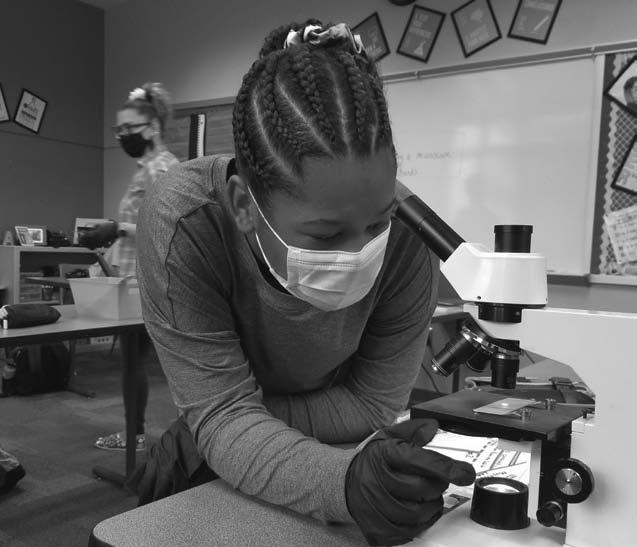
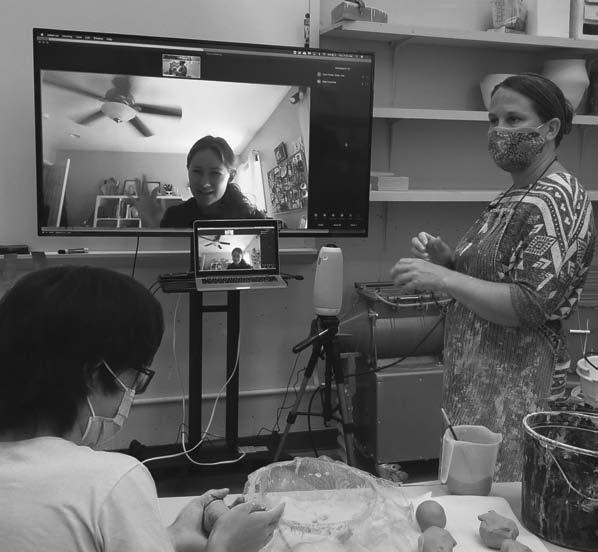
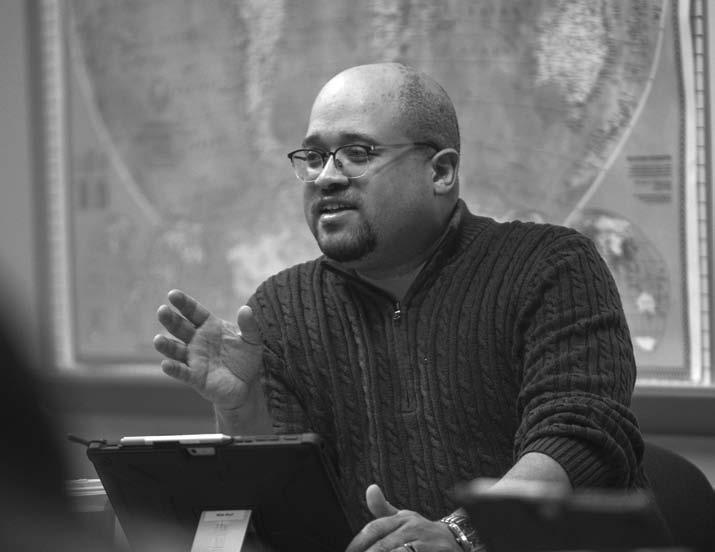
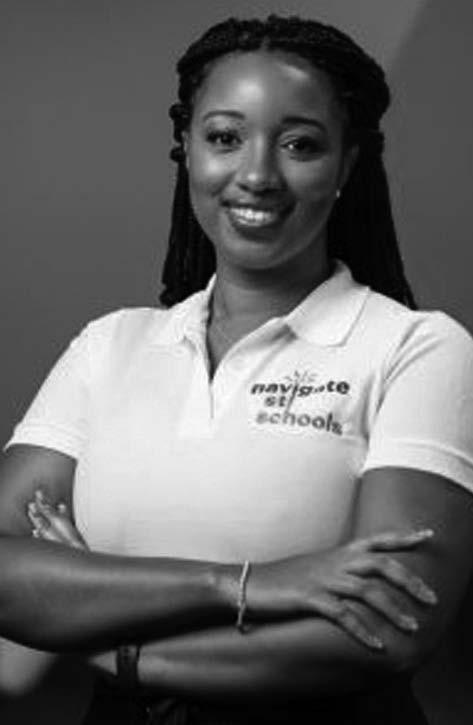
deadlines, and hours and special services to help families become more familiar with their local school options.
The free tool builds upon efforts started in 2014 by local St. Louis parents to provide an online school guide that eased the search process. Navigate STL Schools was formed three years later to provide more resources to the effort, working to reimagine the tool with parents, educators and community organizations.
“We know there are inequities to accessible information within the St. Louis educational system,” said Allen. “We believe by putting valuable information in the hands of city parents we can help level the playing field.”
Navigate STL Schools will provide additional support through one-on-one consultation, training and information on finding and comparing schools.
n “We know there are inequities to accessible information within the St. Louis educational system. We believe by putting valuable information in the hands of city parents we can help level the playing field.”
– Anna-Stacia Allen
“Navigate STL Schools is meeting a community need by providing a consolidated place to view verified information about local school options,” said Allen. “We will act with a sense of urgency knowing that children and families have different needs, and operate in service to our communities when helping to find the best fit school for your child.”
Founded in 2019, Navigate STL Schools is a St. Louis nonprofit organization that helps families learn about the local school system and the school options available to them. The organization advocates for equitable enrollment, sharing tools and transparent information about traditional, charter, and independent schools in St. Louis to help families make informed decisions about their school choices. To learn more, visit www. NavigateSTLSchools.org.
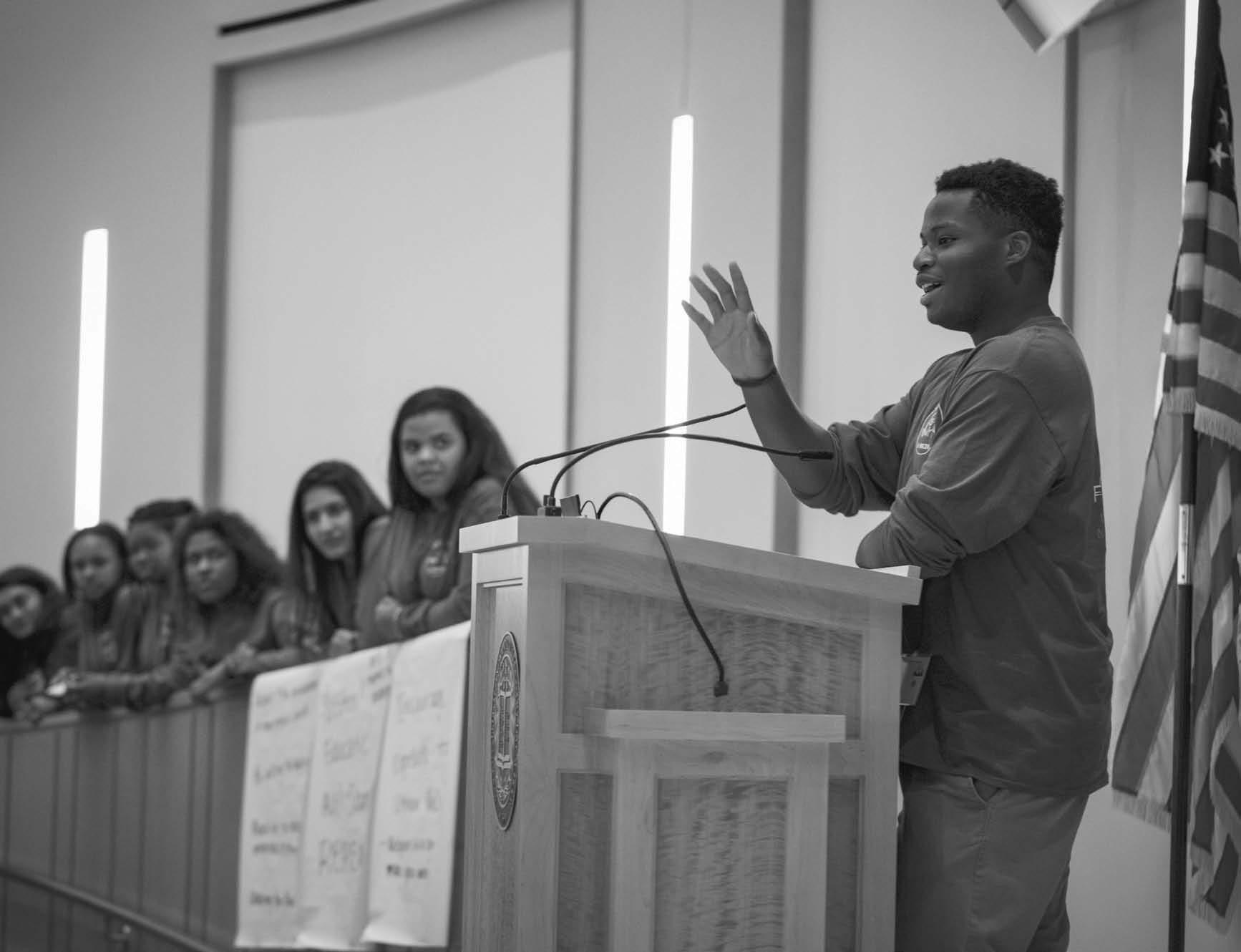




Math can be one of the toughest subjects to conquer, even in a typical school year. In today’s unusual learning environment, new challenges are presenting themselves to teachers and students alike. Here is how you can help your child make the grade in math, no matter where their learning is taking place:
1. Use online resources: For distance-learners, (or students who would like to reinforce math concepts at home) free online educational resources can supplement formal instruction. One unique site providing remote-learning support to educators, parents and teachers is Casio Cares. The site features free software, math lessons for K through 12 and live webinars, as well as provides a web-


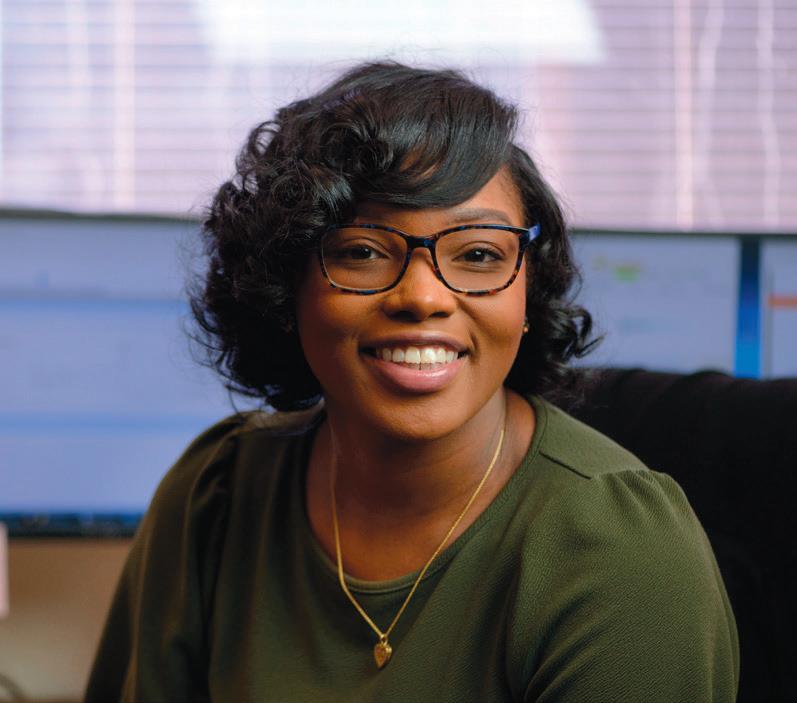


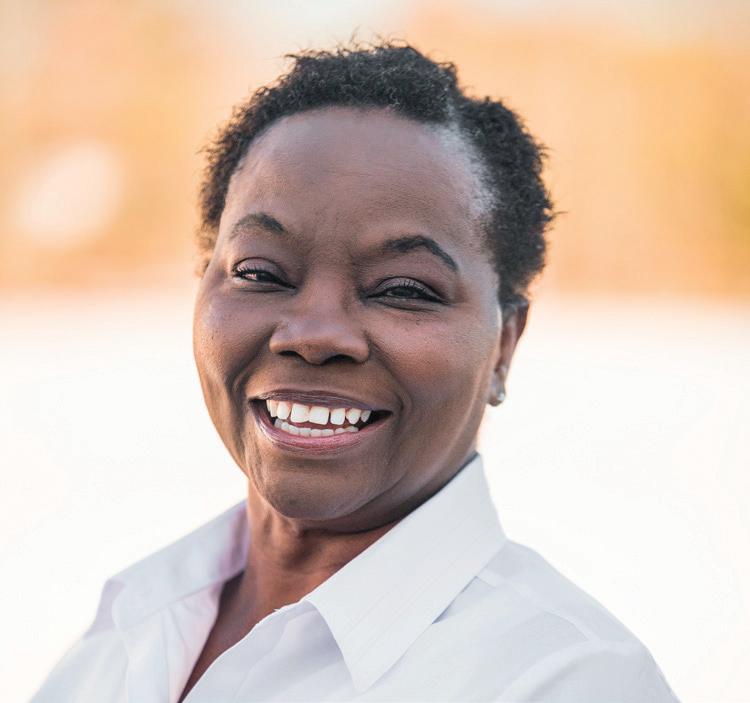


1/4 Filler
based calculation tool that supports the curriculum of grade levels 6 through college. Visit casioeducation.com to access these tools and learn more.
2. Encourage tailored learning: Leaning into the strengths of online learning can help your student make the most of this atypical school year. While online tools like webinars, instructional videos and activities may not provide the same type of interaction as an in-person classroom experience, they do have some clear advantages: such tools appeal to digital natives, can be tailored to individual needs, offer opportunities for self-pacing and can be revisited again and again as needed.
3. Get equipped: Be sure
your student is equipped with a calculator well-suited to the curriculum. The affordable scientific calculators and graphing calculators available from Casio feature hundreds of functions, as well as highdefinition, three dimensional displays, helping students visualize mathematical concepts for a better grasp of the material. Tutorials offering in-depth instructions for using different calculator features are available online and can expand your child’s capabilities.
Remote and hybrid learning come with different challenges than regular classroom learning, especially when it comes to math class. However, new tools can help make this school year a success.



By Danielle Brown Of The St. Louis American
Like many parents, Gloria Washington has come to grips with what many are calling the new normal due to the global COVID-19 pandemic. As of July, Hazelwood School District has operated in a 100% virtual school mode. Washington’s daughter Blake Washington is a first grader at Jana Elementary in the dis-
trict. The transition from traditional classes to online-only has its challenges for Gloria and Blake. The systems don’t always properly work, an internet connection isn’t always there, and Blake, whom Gloria describes as a social butterfly, genuinely misses her fellow classmates.
After voicing her frustrations via Facebook to other parents, Gloria decided to create The
Support Lounge Facebook Group and Like pages with her good friend Rhonda Couch. The group allows parents and teachers to join in discussions on how to adjust to virtual school and provide tips and resources.
“I started this group because I realized after talking to other parents that it wasn’t just me stressed about virtual school,” Gloria said.
Midwest Innocence Project partners with MacArthur Justice Center
By Chris King Of The St. Louis American
Two advocates for the wrongly accused in Missouri and throughout the Midwest are joining forces to expand efforts to overturn criminal wrongful convictions.
The Midwest Innocence Project (MIP) and the MacArthur Justice Center (MJC) are partners in the new Wrongful Conviction Project, a project of MJC’s Missouri Office with MIP attor-
neys as co-counsel. Megan Crane, who co-directs MJC’s Missouri Office with Amy Breihan, will lead the project.
Crane has served as co-director of the Center on Wrongful Convictions of Youth at Northwestern Pritzker School of Law, the first organization in the world to focus exclusively on wrongfully convicted children. Previously, she was a capital post-conviction attorney exclusive-


‘I’m definitely going to the polls’ COVID provides incentive rather than deterrence to
young
Black voters
By Sylvester Brown, Jr.
Louis American
Of The St.



“Oh, I’m definitely going to the polls.” When asked if he was going to allow the fear of contracting COVID-19 deter him from voting, Steward Stiles III, 29, of Ferguson emphatically answered, “No way!”
“Of course, I’ll do the social distancing, I’ll have my hand sanitizer, mask, and everything else needed to protect myself and others,” Stiles said. “But, yeah, I’m voting.” Stiles, a music teacher at KIPP Victory Academy, fits the demographic of Americans (ages 18 to 29) who responded to a recent Harvard Youth poll indicating that 63% of them will “definitely be voting” next month. The findings indicate that youth turnout is on track to match or exceed the 2008 election, which was a watershed year in terms of young voters for Barack Obama. Results of the survey also mirror the “favorability” ratings of 12 years ago. In 2008, 59% of young voters favored Obama. In the Harvard poll, 60% said Joe Biden is their chosen candidate.
Stiles is among many young people who insisted COVID-19 will not stop them from voting. All are members or volunteers with Young Voices with Action, Inc., a nonprofit founded by Farrakhan Shegog, 29, to mentor, educate and support young people ages 14 and older.
American staff
Webster University is investing over $1 million to offer 10 students a full-ride Dr. Donald M. Suggs Scholarship annually, even as schools still cope with the COVID-19 economic impact.
The school awards the scholarship to academically talented undergraduate students from ethnic groups that are under-represented in higher education. The scholarship is in the name of Donald
WEBSTER, A7


Tim Norman pleads not guilty in alleged murder hire plot against nephew
“Welcome to Sweetie Pie’s” reality show star James “Tim” Norman of Jackson, Mississippi pled not guilty on Tuesday in the U.S. District Court for Eastern Missouri to federal charges related to the 2016 St. Louis murder of his 21-year old nephew, Andre Montgomery. Prosecutors allege it was a murder for hire plot in a failed attempt to collect $450,000 in life insurance.
No decision yet on whether Norman will be released until his trial. At the detention hearing as KSDK reported, Magistrate Judge Nannette Baker said she would take Norman’s request to be allowed to post bond “under advisement.” An exotic dancer and an insurance agent were also arrested in connection with the case.
10/10/20 wedding for RHOA star
“Real Housewives of Atlanta” star Cynthia Bailey and Mike Hill tied the knot in grand fashion Saturday during a lavish ceremony
in front of 250 guests, as People reported. Costars Kandi Burruss, Kenya Moore and former castmate Eva Marcille served as bridesmaids. Bailey and Hill took precautions due to the ongoing coronavirus pandemic, including a deep clean of the venue, temperature checks, hand sanitizing stations, mask requirements and spacing according to social distancing guidelines. The newlyweds told People, “10/10/20 is and always will be our perfect date… We are not perfect, but we are perfect for each other. Love with the help of God conquers all.”
Bobbi Kristina Brown’s townhome is up for sale

The 2,600 square-foot Alpharetta, Georgia townhouse where Bobbi Kristina Brown was found comatose from a drug overdose and died in 2015, is on the market for $599,000. As People reported, the listing reads, “Once owned by the incredibly talented Whitney Houston, own a piece of history.” A judge ordered Bobbi Kristina’s boyfriend, Nick Gordon to pay her estate $36 million after being found liable for her heroin overdose death. Gordon died on New Year’s Day this year, also of a heroin overdose.
Bobbi Kristina was the daughter of singer Bobby Brown and Houston, who died in 2012 of an accidental drowning in a hotel bathtub in Beverly Hills, California, with heart disease
and cocaine use reported as contributing factors.
Scarface needs a kidney after surviving coronavirus
Geto Boys rapper Scarface (Brad Terrance Jordan) took to social media on Oct. 7 to spread the word that he is in need of a kidney, following his battle with COVID-19 that permanently damaged his kidneys and left him on dialysis. “I need a kidney y’all any volunteers? B+ blood type,” he posted on Twitter, prompting thousands of likes and retweets. In a later tweet, he posted, “Just found out blood type don’t mat ter if you are a donor they will match me with my kidney in exchange so anyone can be a donor, can’t thank yall enough.”
Splitsville again for RHOA Porsha Williams and fiancé
Real Housewives of Atlanta’s Porsha Williams is off again from former fiancé, Dennis McKinney. Page Six reports that in a now





deleted Instagram story, McKinney said he was “SINGLE ASFK” and Williams commented on IG that she has “been single.” They reportedly have also unfollowed each other on social media. A 13-carat ring proposal in 2018 was tarnished by a cheating scandal several months later. Efforts to put the relationship back together apparently were unsuccessful. Williams and McKinney share a two-year-old daughter.
Obamas, Netflix team for ‘Ada Twist, Scientist’

And because we love all things Barack Michelle Obama, their production company, Higher Grounds Productions, is developing a new animated Netflix series based on the bestselling book by Andrea Beaty, “Ada Twist, Scientist.” As Mother Jones described, the main character Ada Marie Twist “is a young Black girl with an unstoppable curiosity and an innate affinity for the scientific method.
Sources: BET, Hollywood Life, KSDK, Mississippi Business Journal, Mother Jones, Page Six, People






Marc H. Morial National Urban League
“Yet the harsh fact is that in many places in this country men and women are kept from voting simply because they are Negroes. Every device of which human ingenuity is capable has been used to deny this right,” President Lyndon Baines Johnson said in 1965.
“The Negro citizen may go to register only to be told that the day is wrong, or the hour is late, or the official in charge is absent. And if he persists, and if he manages to present himself to the registrar, he may be disqualified because he did not spell out his middle name or because he abbreviated a word on the application. And if he manages to fill out an application, he is given a test. The registrar is the sole judge of whether he passes this test. He may be asked to recite the entire Constitution, or explain the most complex provisions of State law. And even a college degree cannot be used to prove that he can read and write. For the fact is that the only way to pass these barriers is to show a white skin.” Deterrence: the action of discouraging an action or event through instilling doubt or fear of the consequences.

In 2016, the Trump campaign sorted millions of voters in 16 key battleground states into categories, also described as “audiences,” so they could
then be targeted with tailored ads on Facebook and other platforms. Black voters were sorted into a category titled “Deterrence.” These were the people the campaign wanted to keep from voting, according to Britain’s Channel 4 News. Facebook was flooded with negative ads, targeted specifically at Black audiences, designed to keep them at home on Election Day. Efforts to keep Black Americans from voting are nothing new, of course. For most of the century and a half since the Fifteenth Amendment declared the right to vote “shall not be denied on account of race,” the right to vote consistently has been denied on account of race. Nor is it breaking news that social media was a key tool used to suppress the Black vote in 2016. The largest part of Russia’s disinformation campaign was aimed at demoralizing and discouraging African Americans from voting, as the National Urban League’s State of Black American detailed last year. But the Channel 4 investigation revealed that overt contempt for Black voters was not just an undercurrent in the 2016 presidential race, but a key component of a one campaign’s official strategy. The revelation should impel every Black American to vote with might and main.

If you see intimidating behavior at the polls, report it (866-OUR-VOTE). Then vote.
“Deterrence” belongs on the same ash heap of history as the poll tax, literacy tests, and the “Southern Strategy,” along with other shameful voter suppression tactics still in use such as restrictive voter-ID laws, excessive purges of voter rolls, and the rampant shutdown of polling places in Black neighborhoods.
When President Trump urged his supporters during Tuesday’s debate “go into the polls and watch very carefully,” he was alluding to the expiration of a consent decree that has protected voters from intimidation at the polls since 1982. The decree was enacted after Democrats sued the Republican National Committee for send-
ing off-duty law enforcement officers as “ballot security” to New Jersey polling places in Black and Hispanic neighborhoods. A Trump campaign official was recorded last year saying the expiration of the consent decree was a “huge, huge, huge, huge deal” for the campaign’s election day operations in Wisconsin.
If you see intimidating behavior at the polls, report it (866-OUR-VOTE). Then vote. If you see a negative Facebook ad, research the truth. Then vote. Don’t allow any campaign to put you in a box marked “Deterrence.”
Marc H. Morial is president and CEO of the National Urban League

Joe Biden believes we cannot build back better without a major mobilization of effort and resources to advance racial equity across the American economy
Ensure all small business relief efforts are specifically designed to aid businesses owned by Black and Brown people.
Spur more than $150 billion in additional public-private venture capital and non-profit lending programs to minority- owned small businesses.
Reform Opportunity Zones to Fulfill Their Promise.
Ensure his housing plan makes bold investments in homeownership and access to affordable housing for minority families.
Boost retirement security and financial wealth for minority families.
The St. Louis American endorsed Nicole Galloway for Auditor in 2018 and declared that she may be the most competent and diligent auditor in the state’s history. We called her one of the most capable and accountable public officials we have ever observed in any statewide office in Missouri. Today, we stand by this belief.
In 2018, Galloway pulled off the only statewide Democratic victory in Missouri, running as an incumbent against a laughably incompetent Republican challenger. On November 3, she is running as a Democratic challenger against a laughably incompetent Republican incumbent. The latest polls that show the race is competitive. A strong turnout from the Democratic base – and a diminution of support for a demonstratively corrupt, indecent, inept and increasingly unhinged Donald J. Trump – could send Parson, a former sheriff and rancher, back to the cow pasture. St. Louis is at a crossroads. COVID-19 has devastated our community and exposed countless racial disparities in health and access to health care. Republican voter suppression efforts continue to restrain Missourians from participating in democracy. And the recent deaths of Breonna Taylor and George Floyd (among others) highlight the policing and criminal justice work that is left undone.
No one is going to be elected governor of Missouri running solely on an urban or Black Agenda, yet Galloway somewhat boldly has published an Opportunity Agenda for Black Missourians. It calls for executive and legislative bans on discrimination in Missouri. It mandates that 20% of the state’s Small Business Grants and other entrepreneurial investments go to minority-owned businesses, as well as for the formation of a state Department of Minority Business that will administer these investments. And it calls for an expansion of the pre-kindergarten grant program to disrupt the school-toprison pipeline from the beginning. She also would end the practice of asking job applicants about their criminal history.
Her Black Agenda also takes up the crucial issue of police reform. She calls for a statewide ban on chokeholds and the like, mandates for the use and activation of body cameras, limits on no-knock warrants in drug-related cases, and subpoena power for civilian oversight boards. She calls for an overhaul of the moribund Peace Officer Standards and Training (POST) Program that has allowed abuse of police power to continue unchecked in Missouri, with abusive officers drifting from department to department while keeping their licenses to abuse and kill with
impunity. Importantly, this would include the creation of an independent statewide Civil Rights Accountability Board with subpoena power to investigate and refer for prosecution violations of POST standards.
Even voters less focused on empowering Black people and protecting Black lives should embrace Galloway over the bumbling incumbent, who said the public does not “need government to tell them to wear a dang mask,” and then both he and his wife contracted COVID-19. Galloway’s record of protecting taxpayers and exposing fraud and her approach towards effective government – including wearing a mask in public and practicing social distancing as basic public health precautions that Parson foolishly flouted – offers the type of leadership we need in a governor.
Even before this global pandemic that is killing Black Missourians at a rate that is significantly higher than white Missourians, Parson kicked 100,000 kids off their state health insurance coverage, giving Missouri national headlines for endangering the health and welfare of children. Roughly a quarter-million working Missourians were already lacking health insurance, working jobs that don’t provide it, but earning too much to qualify for Medicaid. Because of challenges to health care access and affordability, Galloway supports Medicaid expansion. Parson does not. In August, voters had their say, but it matters dearly who is sitting in the governor’s office when it comes time to implement the program. And Parson’s support for overturning Clean Missouri by endorsing the reactionary Amendment 3 is a clear indication that he will not respect the will of voters. Having both a governor and a legislative majority aligned with a party willing to brazenly undo a ballot initiative passed by 60% of the voters shows the dangerous consequences of Republicans’ absolute political dominance in Jefferson City.
Galloway has been vocal on calling out disparaging voter suppression tactics that target Black voters, particularly the requirement that absentee voters get their ballot notarized. She also outlined a plan to make it easier for Missourians to actualize change through the ballot, with expanded vote-by-mail, early voting, and automatic voter registration. Unlike previous gubernatorial campaign we have witnessed in Missouri, Galloway not only says that “Black lives matter,” but has committed to a policy agenda that affirms it. We strongly endorse NICOLE GALLOWAY FOR MISSOURI GOVERNOR
By Ben Jealous For The St. Louis American
Millions of Americans have turned out in big cities and small towns to protest the killings of unarmed civilians— often Black people—at the hands of law enforcement.
If we want our demands for justice and accountability to lead to real policy change, we need to build on that activism by electing public officials with the commitment to reform law enforcement and the courage to act when police abuse the power of their badge.
In presidential election years, most of the energy and focus goes to the top of the ticket. And that’s essential this year. But we can’t ignore the fact that we have been through a spring and summer of traumatizing televised murders of Black people. We are still learning the truth about the deeply disappointing decisions not to indict police officers involved in shooting and killing Breonna Taylor in her own home. We need to make change at the local level, where those decisions are made.
People For the American Way has endorsed more than 100 young progressive candidates who have demonstrated dedication to creating public safety solutions that reflect the values of fairness, justice, and equal treatment under the law. The “Stop Police Killings” slate is designed to bring attention and support to candidates for local and state office who understand the impact of police killings on communities of color and who are passionate about pursuing justice.
Hundreds of applicants answered questions about personal
experiences that motivated them to stop police violence and their positions on policies and practices that limit unnecessary police contact, psychological screenings for police officers, removing problematic officers, recruiting good officers, reallocating police budgets, cultural competency and de-escalation training, and other issues.

We have identified great candidates in key metro areas across 25 states. They’re running to become mayors, district attorneys, city council members, county commissioners, and state legislators. We’re proud of the candidates who made it onto our slate. It includes people like Stephanie Morales, Commonwealth’s Attorney for Portsmouth, Virginia, who successfully prosecuted a police officer who killed an unarmed Black teenager. “Public servants have a responsibility to protect their communities,” she said at a recent event announcing the slate. “The charge to imagine what public safety looks like in our country is long overdue, and I’m pleased to join this roster of incredible candidates to hold violent police officers who violate the law criminally accountable for terrorizing Black and brown communities.”
Christian Menefee, a candidate for Harris County Attorney in Texas, calls this “a pivotal moment in our country,” adding that “we
By Derrick Johnson For The St. Louis American
The NAACP submitted a letter to the Senate Judiciary Committee strongly opposing the nomination of Amy Coney Barrett to the Supreme Court. Coming in the middle of a presidential election in which over seven million people have already voted, the Barrett nomination is as illegitimate as it is corrupt. Instead of forcing a nomination onto our highest court, the Senate should address the harms of the global pandemic raging across the country and disproportionately affecting the lives and livelihoods of African Americans.
Under the “advice and consent” clause of the Constitution, the Senate must rigorously and meticulously scrutinize a Supreme Court nomination. Weeks and even months are necessary to fulfill this solemn duty. The Senate’s timetable here is designed to fail. Fast-tracking this nomination—even as individual Senators have contracted coronavirus—will deprive the American people of the public, exacting review that should be afforded to a lifetime
appointment to the Court. The next president should decide who sits on the Court.

We have reviewed Amy Coney Barrett’s record on civil rights, including her writings as a law professor and her three years as an appellate court judge. On issue after issue, we have found her to be stunningly hostile to civil rights. Her aggressive view of when past decisions should be overruled, combined with her reactionary positions on what rights the Constitution protects, will jeopardize our hard-fought wins in the Court. Her scholarship questions even foundational principles such as whether the Fourteenth Amendment was properly adopted and whether Brown v. Board of Education remains viable authority. Her repeated endorsement of discrimination in the workplace—including the stunning conclusions that separate can be equal when it comes to race and that the
Trump’s wallet and us
Donald Trump’s tax returns show exactly why he has fought so hard to hide them. They paint a picture of a man who literally looks down at the working class from a golden penthouse at the top of his tower. Paying only $750 in federal income taxes while signing tax bills that double down and benefit the wealthy and corporations instead of working families shows exactly what Donald Trump cares about: his wallet.
cannot and should not sit on our hands waiting for the federal government to act. It’s time for local leaders to step up and protect Black and Brown communities.”
Brandon Scott, who is running to become mayor of Baltimore, says, “We can end police killings of unarmed civilians and begin to rebuild trust so that law enforcement is focused on doing the things necessary to keep all communities safe.”
Nakita Hemingway is running for the Georgia legislature to represent an area near to the spot where Ahmaud Arbery was killed. Her desire to make change has been influenced by her own interactions with the criminal justice system as a Black woman.
People For the American Way’s Next Up Victory Fund will support candidates in competitive races through donations, earned media support, social media, and engaging our members and activists.
I want to encourage everyone who wants to help bring an end to unjust police killings to take a look at our slate and find ways to support these candidates and others in their local communities who are committed to reimagining public safety.
We have changed the public conversation about policing and justice by taking to the streets. Now let’s change the laws and policies that are standing in the way of justice by taking the fight to the halls of power.
That’s what elections are for.
Ben Jealous serves as president of People For the American Way and People For the American Way Foundation.
By contrast, in 2018, the average Missourian paid nearly 7 times more in federal income taxes than the President of the United States did the year he was elected.
Joe Biden is running for president to help people, to help our country overcome a health and economic crisis made worse by Donald Trump lying to the American people in an attempt to save face. Americans deserve a president who is looking out for their best interests, not conning them.
Clem Smith, acting chair Missouri Democratic Party
Research the judges
Don’t forget to research the judges on the ballot. If we want a justice system that works for all the people, we must do the work. The ballot does not show their party affiliations. Get a sample ballot and look them up before you go to vote! Check out the library online or election office.
Roz Weathers St. Louis
True, but in a bad way
Mr. Trump threw out a carefully manicured barb during the debate that tells quite a story. The president accused Mr. Biden of being a do-nothing politician. His exact words were “I’ve done more in 47 months than you’ve done in 47 years.”
This may be true, but in a bad way.
Mr. Trump wakes up in the morning and after a few sips of coffee announces to his wife and the world that he will be issuing a new presidential decree.
use of racial epithets does not necessarily create a hostile work environment—mark a clear willingness to jettison longstanding civil rights precedents.
Sometimes it is difficult to discern the consequences of a confirmation from a nominee’s past writings and rulings, but not with Judge Barrett. And the stakes could not be higher. The rights of African Americans to fully participate in democracy and in every facet of social and economic life, on an equal basis, lie in the balance.
The NAACP has fought to protect the Supreme Court since 1930, when we helped to defeat a Herbert Hoover nominee to the Supreme Court. We will fight this illegitimate Trump nomination with everything we have because of the danger it poses to our civil rights and to the future of our democracy. At the same time, we emphatically encourage all Americans to vote. As the Supreme Court battle demonstrates, the consequences of this election could be not greater. Our voices must be heard.
Derrick Johnson is president and CEO of the NAACP.
Enacting laws is the job of the Congress, where more than 400 ladies and gentlemen have to debate and vote on them. Mr. Trump has taken over their job on his own initiative. Mr. Biden was in the Congress and in the Vice Presidency, so he had no ability to do anything singlehandedly during those 47 years.
The latest of Mr. Trump’s decree-laws is a program to send tens of millions of Medicare recipients a little cash right before the election to help them remember his name on voting day.
In 47 minutes of debate, I hope at least a few Americans decided Trump and his methods are not a good thing for the country.
Kimball Shinkoskey Woods Cross, Utah
Too much at stake
Justice Ginsburg was a champion for justice, equality, and health care for all. It’s unconscionable, and an insult to her legacy and our democracy, that President Trump, Senate Majority Leader Mitch
and
McConnell, and Senators Blunt and Hawley are trying to fasttrack a lifetime appointment to the Supreme Court while much needed COVID-19 relief continues to stall in Congress and as Missourians continue to suffer. Our rights, our health care, and our futures are on the line. Donald Trump has promised to only appoint justices to the Supreme Court who would overturn Roe v. Wade and will “do the right thing” on the Affordable Care Act by striking it down. We simply cannot trust Amy Coney Barrett, who has been an active and vocal threat to reproductive health care and openly critical of the ACA, to protect our health and rights.
Planned Parenthood Advocates in Missouri will do all we can to fight this nomination. There is simply too much at stake.
M’Evie Mead, director of Policy and
in Missouri




Scott Leonard of Glen
Illinois won the King of the Arch
in Madison, Illinois on Friday, October 2, during the all Mopar Express Lane NHRA Midwest Nationals for the Mello Yello Drag Racing Series. Leonard also is the track’s 2020 Motorcycle champion.
St. Louis County Library and the Miriam Learning Center partnered to provide free, in-person and virtual tutoring for children with special needs starting October 12 at five library branches. Free tutoring will be available to St. Louis County residents with special needs in grades pre-K–college through December 15. Students may receive a maximum of two 50-minute tutoring sessions each week.
Tutoring will be offered at the following locations, Monday through Friday, 9 a.m.-4 p.m.:
• Cliff Cave Branch 5430 Telegraph Rd.
• Daniel Boone Branch 300 Clarkson Rd.
• Florissant Valley Branch 195 New Florissant Rd.
• Headquarters 1640 S. Lindbergh Blvd.
• Rock Road Branch 10267 St. Charles Rock Rd. Tutoring also is available at Miriam Academy, 1138 Warson Rd. in Olivette, Tuesday and Thursday evenings, 5-7 p.m.; and Miriam School, 501 Bacon Ave. in Webster
Groves, Monday-Thursday 9 a.m.-8 p.m. and Fridays 9 a.m.4 p.m.’ The program is part of the Digital Equity Initiative, announced in July by St. Louis County Executive Dr. Sam Page and funded through the CARES Act. CARES dollars are limited and tutoring services are scheduled and provided on a first come, first serve basis until funding is expended.
“The pandemic has amplified the challenges faced by unique learners by making it harder for kids to interact in ways we know are important,” said Kristen Sorth, St. Louis County Library director. “This partnership will provide many families with the support they need in this challenging time.”
An intake form is available at http://bit.ly/ FreeMiriamTutoring. Individuals may also call 314-961-1500 to get more information or to register over the phone. Proof of income is required for participation.

By Michelle Tucker For The St. Louis American
Last week, I woke up laser-focused on introducing a new workout routine into my day. As a busy leader with minimal down time, I knew I had to quickly craft a step-by-step action plan to ensure my workout goals would be achieved. So that is exactly what I did. I had decided on weightlifting and boxing, so I reached out to an experienced personal trainer who operates out of a small, safe studio. His immediate reply overwhelmed me because the time commitment sounded impossible with my current schedule. It was now 8 a.m. My first work meeting of the day was about to begin. So much for executing my perfect workout strategy. I sunset the idea. My dreams of lifting and boxing were now in the rearview mirror.

That night I was a bit overcome by guilt and began replaying the morning in my head. In a moment of reflection, I decided to ideate further and began to view “lifting” through a totally different lens. I recognized I had already been accomplishing this since a very early stage in my life. Though obviously not the same literal definition, the lifting I reflected on was the intentional focus on lifting others daily – a commitment I could absolutely continue making and even champion. You see, we all can identify accessible ways to lift others during normal times, and especially during challenging times.
Here are a few easy ways to successfully incorporate lifting others into our daily routines resulting in significant return on our unique personal investments.
Send gratitude letters, a handwritten note, or a quick text to thank people for their presence in our lives or for a kind gesture of support they recently offered. It may be just what they needed to hear or see at that moment.
Form a mentoring relationship with a young professional that you can help develop. If your organization does not have a formal mentoring program, why not try spearheading an initiative? Developing diverse talent at your company is a great way to start.
Agree to coach or sponsor someone who does not have the access you do. Become an advocate that helps accelerate their path to success. This is an excellent way to help grow and position some of the underrecognized talent in the St. Louis region.
Consider donating to local nonprofit efforts to help neighbors experiencing hard times and unexpected challenges or those disproportionately impacted by systemic challenges in our community. Discover additional ways your talent and time can be maximized through immediate volunteer efforts. Your support is desperately needed during these extraordinarily unprecedented times.
While I still plan to connect with a trainer to put my new boxing gloves to good use once things are much safer after COVID-19, for now, I am perfectly content with how I have redefined “lifting” for myself. I hope these ideas inspire you to do the same.
Michelle D. Tucker is president and CEO of United Way of Greater St. Louis.

“After sharing my frustrations on Facebook, I came across a video with someone saying we need to stop complaining about virtual school and remain positive around the children. I agreed that it was important to stay positive in front of the children, but I still felt there was a need to vent. The next day I posted that I was starting a support group for parents dealing with the same stress and, boom, The Support Lounge was born.” The district offers its own Parent University program with similar support opportunities. It features workshops, videos, and resources aimed at helping parents deal with the impact the pandemic has had on education. The program places a premium on stress relief activities. More information can be found at www.hazelwoodschools.org
child, and Gloria can provide her with her undivided attention. Before the pandemic hit, Gloria decided to leave her former employer. She realized she made the right decision because once she did the cases started rolling in more for COVID-19. She didn’t feel comfortable with sending Blake to daycare, so she took matters into her own hands and became a stayat-home mother to help her full-time with school.
n “I started this group because I realized after talking to other parents that it wasn’t just me stressed about virtual school.”
– Gloria Washington
Some parents work full-time from home and must tend to their children while they attend virtual learning. It’s difficult to juggle both for some, especially those with multiple children. However, Blake is an only
Continued from A1
ly representing individuals on California’s death row.
“This new partnership will allow us to serve even more wrongfully convicted people and reduce the number of years individuals must spend waiting before they see justice,” said MIP Executive and Legal Director Tricia Rojo Bushnell.
In Missouri, 49 people have been exonerated to date. But advocates believe
The Washingtons’ schedule starts at 8 a.m. with breakfast, and then they login into the school system at 8:45 a.m. The day begins with the teacher allowing room for any questions and any other sidebar conversations before class starts. Class starts promptly at 9 a.m. with the Pledge of Allegiance and announcements. As the day continues, Blake participates in electives such as gym and music. She is only given two breaks and lunch between 11:30 a.m. to 12:30 p.m. Her day ends at 3:30 p.m. By the end of the day, Gloria and her 6-year-old daughter are usually exhausted.
“Blake is still trying to adjust to the fact that this is school and process that the breaks are for using the bath-
there could be hundreds more innocent Missourians currently incarcerated for crimes they did not commit. The process of overturning a wrongful conviction is long, difficult and expensive.
“We recognized the need for more resources on the ground in Missouri to do the critical, but labor- and resource-intensive, work of investigating and litigating a wrongfully convicted prisoner’s actual innocence,” said Breihan. “We receive countless letters from incarcerated Missourians with compelling evidence that they are innocent.”

many parents,
come to
with what
room, not a five-minute play break,” Gloria said. “Having schedules for kids and sticking to it is very important.”
Once school is dismissed, Gloria logs into The Support
are calling
Lounge pages and dedicates her time to checking in with the other members. Topics in the group range from daily checkins, updates, positive affirmations to say to the children,
n “We receive countless letters from incarcerated Missourians with compelling evidence that they are innocent.”
– Amy Breihan, MacArthur Justice Center
Crane said she particularly looks forward to expanding MIP’s capacity to investigate and litigate cases of Missouri youth wrongfully behind bars. “Youth are at heightened risk of wrongful conviction and extreme sentencing for a variety of troubling reasons,”
Crane said. MIP and MJC have already teamed up on the case of one Missourian who they claim was wrongfully convicted as a child: Michael Politte. Michael was 14 years old when he was wrongfully charged with murdering his own mother in
relatable memes and more.
“My main advice is to stay positive and appreciate that fact that your child is healthy,” Gloria Washington. “You are not alone; we are in this
Hopewell. He was convicted and sentenced to life in prison solely on the basis of now debunked “arson science” that allegedly tied Michael to the scene, as well as testimony by police who interpreted adolescent Michael’s traumatized reaction to his mother’s death as suspicious evidence of guilt. His habeas petition asserting his innocence is available at https://tinyurl.com/MichaelPolitte.
A recent study by the National Registry of Exonerations revealed that more than half of all wrongful convictions involved
together. Speak positive things to your child and around your child. We are here on your good days and bad days. It’s okay to have a bad day. It’s okay not to know.”
government misconduct. The rate of misconduct in wrongful conviction cases is even higher when the defendant is Black, and this disparity is at its peak when Black defendants are charged with murder (78% rate of official misconduct).
“As an organization, MacArthur is focused on holding the state accountable for state-sanctioned misconduct,” Crane said. “This mission was a key motivation for launching our Wrongful Conviction Project.”
For more information, visit https://www.macarthurjustice. org.

M. Suggs, publisher and executive editor of The St. Louis American.
Webster University began awarding two of these scholarships annually in 2013.
“We know these students are engaged and talented and will become leaders on campus,” said Chancellor Elizabeth Stroble. “We look forward to their contributions in the classroom and in the community during their time at Webster. We have confidence they will make their mark in their world when they leave us.”
Stroble said she met Suggs in 2009 when he was a member of Webster University’s Board of Trustees.
“I soon learned to tap into his wisdom, expertise and knowledge of the area to help me be a more effective leader,” Stroble said.
While Suggs is no longer a member of the board, Stroble considers him a mentor and advisor — one of the main reasons the scholarship was named after Suggs.
“He helped me to understand that we are living in a community with many challenges and issues, and each of
Continued from A1
Shegog, an aircraft inspector and quality-control expert who ran unsuccessfully in 2018 for state representative of House District 86, said he’s optimistic about his demographic’s turnout despite the chaos of the coronavirus.
“I’m energized,” Shegog said. “Every voter registration event, every public discussion on policy issues and at every debate, I’ve seen more and more young people involved. It’s because they realize that politics are everywhere and in everything. Scores of young people have registered and are determined to vote because not only is Trump on the ballot but so is healthcare, immigration and so many other important issues.”
Shegog speaks a statistical truth. More than 15 million Americans who have turned 18 are eligible to vote in this election. Analysts say that voter registration for people 18-to-24 is already higher in many states than it was in November 2016.
Andrea Cain, 22, fits the profile. The UMSL student and Normandy resident said the
us has to find a way to make it better, to follow his example of how to make it better however you can, and this is our way to make a difference,” she said.
The 10 new Suggs Scholars join a cohort of five who are still on campus and have already met one another in an online meeting.
“To have such large number of scholarship students will enable them to build a supportive structure among themselves,” Stroble said. “Now they will be able to create a peer mentor structure.”
The 10 recipients of this year’s Suggs Scholarship are a varied group.
Bolanle Akinyemi is from O’Fallon, Missouri, and is pursuing a biological science major with an emphasis in health & medicine.
Macheala Brock is from O’Fallon, Missouri, and is pursuing an education major with an emphasis in elementary education.
Jessica Echols is from Hazelwood and is pursuing an Instrumental Performance major.
Julliette Ferch is from Arnold and is pursuing a film, television and video major.
Khalisah Habeebullah is from Saint Charles and is pursuing a biology major with an emphasis in health sciences.
coronavirus hasn’t deterred her from voting. In fact, she said it has inspired her to vote and encouraged her peers to do the same.
“COVID affected many college students because campuses had to shut down,” Cain said. “When it came to sending relief money to college students, money from the CARES Act helped very few of us. This became a primary motivation for me choosing to vote this year. After this election, I would like to see more support geared towards college students.”
Colin Evans, 20, is a Chicago native majoring in criminal justice at Harris-Stowe State University. Evans said he’s working to become more politically active. He volunteers with Shegog’s group and serves as vice president of Black male initiatives with his fraternity, Phi Beta Sigma Fraternity Inc., Gamma Eta Chapter of St. Louis.
Evans was only eight years old when Obama was elected. He said the former president set a standard that’s yet to be matched by Trump. He wouldn’t say who he’s voting for, but did indicate it will not be the man who bungled the country’s response to the pan-


Joi Johnson is from Edwardsville, Illinois, and is pursuing an interactive digital design major.
Dashauna Mairidith is from St. Louis and is pursuing a biological science major with an emphasis in health and sciences.
Jalalah Muhammad is from St. Louis and is pursuing a biological science major with an emphasis in health & medicine
demic.
“This virus shouldn’t have made its way into our country the way it did,” Evans said. “It could have been prevented. I’m disappointed in the steps they made to get rid of the virus and get things back to normal.”
Jonetta Robinson, 27, a Ferguson resident and mother of an 8-year-old girl, said she’s voting because she simply doesn’t trust the government. She has been actively encouraging her family and friends to vote, get involved and change the face of politics.
“We need more Black faces in politics across the board,” Robinson said. “My goal is to get our people to understand the laws, what they’re trying to
Khyree Plair is from Black Jack and is pursuing a media communications major.
Naba Yasir is from Manchester and is pursuing a graphic design major.
This year’s recipients of the Suggs Scholarship not only represent diverse ethnic backgrounds but also diverse educational interests.
Naba Yasir, who is pursuing a graphic design major, was
pass and how they’re operating in this new world. We have to get involved. People have to research and not just vote but understand why they’re voting.”
Stiles said he’s voting for the return of stability in the White house. “Donald Trump has reduced the honor of the presidency,” Stiles said. “We’ve become a laughingstock to other nations. I want stability in our state government.”
Economic stability is another concern for Evans. “Our economy is capitalist-based,” Evans said. “The health of our people must be prioritized in order for us to buy things, purchase things. You can’t have a
all set to begin a degree in the medical field when she, at the last minute, decided to follow her heart instead.
“The finances of going to college has been a stressor for me throughout high school,” Yasir said. “Having a Suggs scholarship eliminated that stress, and I can now focus on my studies and career.”
Khyree Plair expressed similar concerns about paying
consumer-based economy with no consumers.”
Shegog said the combination of the coronavirus and police brutality has motivated young voters to make significant change with their votes.
“COVID-19 did not at all stop police oppression,” Shegog said. “George Floyd, Breonna Taylor and scores of other black men and women have been oppressed or killed during this pandemic. COVID just added more stress for our families and communities.”
for her education and was planning to begin her college career at a community college until she was offered the scholarship.
“I was at a loss for words, but extremely overjoyed,” Plair said. “This scholarship will be assisting me in becoming a profound African-American film director.”
Two Suggs Scholars –Olivia Perez and Joshua Tyler – have graduated from Webster University.
“The Donald M. Suggs Scholarship meant the world to me because I could pursue a college degree without constantly worrying about an extreme financial burden,” said Tyler. “I feel more confident about my dream to work in the video/film production field.” Tyler is now attending the American Film Institute in Los Angeles.
Perez was the first Suggs scholar in 2013 at Webster University and is now a professional dancer in Los Angeles.
“Had I not received the honor of the Suggs scholarship I probably would not have been able to finish school,” Perez said. “To this day, I look at it as a turning point in my life and a testimony as to how God can open doors for you that you couldn’t imagine.”
“COVID punched us in the gut,” Shegog said, “but it didn’t knock us down.”
Sylvester Brown Jr. is The St. Louis American’s inaugural Deaconess Fellow.
The upside of the virus, Shegog said, is that it forced young voters to pay more attention and note how Black people have suffered most during the pandemic. This activated group, he said, now realize that their issues and concerns are still on society’s back burner. His generation, born at the dawn of media technology, Shegog added, have mastered its use and have already inspired protests, uprisings and racial solidarity around the globe through social media. His “more radical, more exposed, more conscious” and more politically engaged generation, Shegog said, has not been deterred by the pandemic.

By Chris King Of The St. Louis American
The Lawyers’ Committee for Civil Rights Under Law has created a post-cannabis conviction toolkit to provide a comprehensive overview of three main approaches states can use to begin to repair the social, political and economic consequences of marijuanarelated criminal records. The toolkit also provides attorneys and advocates with resources to determine whether their states permit the expungement, sealing, or vacating of these records while also highlighting tools for advocates seeking local reform.
The War on Drugs has
disproportionately harmed Black Americans and other marginalized communities, and a prior marijuana conviction is a major barrier to accessing the much-needed opportunities and resources to advance their quality


of life, leading to a continuous cycle of economic hardships. These individuals cannot receive public benefits, apply for student loans or secure a well-paying job.
The toolkit provides three plausible legal routes — expungement, sealing, and vacating — one can take to begin repairing the consequences of marijuana-related records on vulnerable communities. Varying state laws, immigration consequences, and the expense of record expungement are all things that must be considered when determining the best strategy for either expunging, sealing, or vacating records.
“Over the past few years, significant progress has been made to address the expungement of certain cannabis-related convictions. States like Delaware, Hawaii, Illinois, and Washington, among others, have voted to authorize record relief for cannabis offenses. New Jersey, Illinois, and New York have authorized automatic processes,” the Lawyers’ Committee noted.
“We encourage everyone to explore creative options within your own jurisdictions. We also encourage advocates to help uplift the importance of automatic expungement within states. The Expungement Now: A Post-Conviction Toolkit for Attorneys and Advocates, provides messaging tools, facts, sample tweets, and tips for writing and placing an op-ed in a local newspaper to assist local advocates who seek reform.”
Sample tweets include:
• People use cannabis at
roughly the same rate, yet
a Black person is almost 4x more likely than a white person to be arrested for possession of cannabis. This is why automatic expungement for those with cannabis-related charges is so important for communities of color.
#mjexpungementnow
• With a clean record, individuals have more access to housing, employment, education and other benefits to build and sustain a stable life.
#mjexpungementnow
n With a clean record, individuals have more access to housing, employment, education and other benefits to build and sustain a stable life.
• The negative ripple effects of a marijuana charge are insurmountable. A criminal record can hold someone back from housing, jobs, benefits, and more. That’s why automatic expungement must be included in all marijuana legalization efforts, to put communities ravaged by the War on Drugs first.
#mjexpungementnow
• Automatic marijuana expungement laws shift the burden from individuals to the state to determine who is eligible for expungement. Decriminalization is not enough; we must aim higher.
#mjexpungementnow
The tips for writing an op-ed are:
• Make the case for why your voice matters. Be sure to provide biographical information, relevant credentials and/or how the issue impacts you or your community.
• Be timely. For state and local newspapers, be sure to tie the op-ed to local information about cannabis expungement, including current laws and any efforts to change these laws.
• Structuring your op-ed: Frame the problem. Clearly state your thesis (main point). Try to use three pieces of supporting evidence; these can be anecdotes, statistics, and/or examples that resonate to best support the thesis. Acknowledge the main opposing arguments to ensure that you address any questions the reader may have. Provide the solution. Succinctly close the op-ed by reiterating your main point.
“Although marijuana has become decriminalized in a number of states, Black Americans still cannot acquire the benefits of post-conviction relief,” said Tianna Mays, an attorney with the Criminal Justice Project at the Lawyers’ Committee for Civil Rights Under Law.
“Those who have been previously convicted of cannabis-related crimes struggle to get jobs, find housing, and become licensed for professional vocations. With expungement becoming more accessible, we must ensure that Black Americans receive their fair share of conviction relief. The fight for racial justice and equality needs the support of attorneys and advocates.”
Read the tool kit at https:// tinyurl.com/Expunge-kit








































St. Louis County Council members will not vote until next week on whether to accept a $2 million grant to ensure local election officials have enough staffing, training and equipment to administer the November 3 election.
The grant, funded by Chicago-based Center for Tech and Civic Life (CTCL), is one of several awarded to election boards in the area and throughout Missouri to help with extra costs the COVID-19 pandemic has created for the election. The CTCL received a $250 million donation from Mark Zuckerberg and his wife, Priscilla Chan, which is being re-granted to local election authorities throughout the country.
Fey said if the county exceeds the election budget, the board would ask the council to approve a supplemental appropriation. So he argues this $2,048,474 grant will help them avoid going to taxpayers for more money to run the election.

Democratic Director of Elections Eric Fey said the St. Louis County Board of Election Commissioners applied for the grant in early September in a bipartisan effort with Republican Director of Elections Rick Stream
“The main things we plan to use it for is the additional overtime costs, the additional cost of temporary employees we have hired and to give some additional hazard pay to the poll workers,” Fey said. “We also have had some pretty significant increases in our mailing costs because of the increase in mail ballots because this election was budgeted for back in 2019 prior to COVID … and we have some relatively large costs that we did not budget for this year.”
However, Republican council members and Democratic Councilwoman Rita Heard Days blocked a procedural vote to expedite the bill’s passage at last week’s council meeting. Many residents have expressed concerns in public comments about accepting the grant money due to perceived left-leaning views of the CTCL.
“I don’t see any evidence of that,” Fey said. “We’ve dealt with CTCL a number of times in the past in St. Louis County, a lot of Missouri counties have, and the information and services that they have provided to us and other Missouri counties seemed to be pretty nonpartisan.”
He noted the CTCL typically helps with the nuts and bolts of assisting an election administrator — setting up election websites, social media accounts and other similar services.
Numerous public comments at the October 6 St. Louis County Council meeting alleged the CTCL is a leftwing organization that harvests ballots and blamed St. Louis County Executive Dr. Sam Page for trying to rig the election in his favor.
Seventy-seven public comments came in Tuesday during

for an additional $2 million if they don’t accept the grant, there is potential the St. Louis County Election Board will need to ask for more money, possibly about a half-million dollars. He also noted the grant would allow the county to recoup election costs from as far back as June 2020, meaning money would essentially be returned to the county’s general revenue. In response to the public comment concerns about the grant money having an influence on the election, Councilman Ernie Trakas asked Stream and Fey if there was a deadline to accept the grant and if they could accept the money after the election and pay expenses after they’ve been incurred.
Fey said they would like to have the money as soon as possible to pay for the expenses and if they don’t get the money, they will have to ask the taxpayers to supply the funds.
a special meeting on the election board budget and CTCL grant, with almost all comments urging the county to reject the grant, with many citing concerns about ballot harvesting.
Both Fey and Stream said using this grant could not result in ballot harvesting and that the only strings attached to the grant money is it must be used for election expenses in this year. Stream also emphasized in Tuesday’s special meeting that the process has been a completely bipartisan effort.
On the CTCL’s website, several organizations are listed as contributing funders including Google, Facebook, Knight Foundation and the Democracy Fund.
“I unequivocally support this [grant],” Chairwoman Lisa Clancy said. “St. Louis County, like every jurisdic-
tion in this year’s election, has additional needs because of the challenges of the pandemic, and this is an opportunity to get some resources that we don’t have budgeted to help us implement a smooth election. And to make sure we are doing everything that we can so that our St. Louis County voters can vote without any issues.”
The CTCL’s website states it harnesses “the promise of technology to modernize the American voting experience” in an effort to develop such goals as high-performing election offices, increased public confidence and trust, and betterinformed voters.
The City of St. Louis has accepted a $1 million grant and the Missouri Secretary of State Office – run by Republican John “Jay” Ashcroft received $1.4 million from the organization.
Because where you get your mammogram makes a difference.
Trust starts with a dedicated team of Washington University radiologists and radiology technologists affiliated with the internationally recognized Mallinckrodt Institute of Radiology, who specialize in mammography and interpret more than 50,000 exams every year. That’s all they do, all day, everyday. They are mammography experts with the skill, expertise and experience only a national leader can deliver. In these uncertain times, be certain about your breast health and schedule your mammogram today. Call 800-600-3606 or visit SitemanMammogram.wustl.edu


“We should do everything possible to ensure elections are safe during a pandemic, protecting poll workers and voters,” Page said in a statement. “Other Missouri counties have accepted this grant, and we should too.”
Councilwoman Rita Heard Days emphasized in the special meeting Tuesday that there were Republican counties in Missouri who have accepted CTCL grants.
“To have this in a Democratic-Republican aura, I think is very misleading to a lot of people,” she said. “This money is going to come from somewhere because we are going to have to pay these people in order to work [at the polls]. We have confusion out there about who has to notarize their ballots and who doesn’t. And so, there is some educational component that is going to be need for this as well.”
Even so, this grant come at a time when several local governments are facing lawsuits after CTCL distributed grants to 385 election departments across Michigan and $6.3 million in grant money to five Wisconsin cities.
During the special meeting Tuesday, Councilman Tim Fitch asked Fey and Stream if the county in the past had accepted grants or other money from private entities. They said they could not remember a time when there was even an opportunity to do so.
“I don’t see conspiracies here — I don’t see it as a Republican or Democrat issue,” Fitch said during the meeting. “My only issue is private money coming in to fund our elections.”
Fey says that while they may not need to go to the council
“In order to incur some of these expenses, like extra employees and so forth, we’re just essentially having to do budget amendments to move money from other places in our budget,” Fey said. “And then, once, hopefully the grant is approved, we would then reimburse those things. So, at some point, probably before the election, we will kind of run out of money to move. So, we may come to a point where there are some expenses we can’t undertake because of that.”
Trakas emphasized the point that there is nothing legally preventing the board to accept the grant money, arguing it would ameliorate concerns about CTCL influence on the county’s election. Fey responded that logistically he did not view waiting to accept the money as a possibility.
Fey also noted he did not feel like the concerns about partisan influence and ballot harvesting presented by public commenters were reasonable.
In an email to council members earlier this month, Fey wrote that Clancy indicated a willingness to suspend the rules and expedite the legislation process of accepting the grant if the council is unanimously in favor of doing so. The council did not unanimously agree to that last week or this week.
On Tuesday, Councilwomen Clancy, Days, Rochelle Walton Gray and Kelli Dunaway voted to finalize the bill to authorize Page to accept the grant. Fitch and Trakas voted no. Councilman Mark Harder was absent.
The bill will be up for final passage at next week’s St. Louis County council meeting.
“This should not be a partisan issue,” Clancy said. “This is about our fundamental right to exercise our vote and to make sure that goes smoothly given the additional challenges the pandemic has presented for voting.”
– Reported by Dana Rieck


Regional Arts Commission is region’s largest public funder of the arts
By Chris King Of The St. Louis American
Vanessa Cooksey joined the Regional Arts Commission of St. Louis (RAC) as president and CEO, effective November 2. RAC is the largest public funder of the arts in the region.
“I’m excited to bring all of my professional expertise, experience and networks as well as my life-long love of the arts to an organization that envisions a full creative life for every St. Louisan,” said Cooksey.
n “I look forward to partnering with all of RAC’s stakeholders to overcome the present challenges facing the arts and culture community.”
– Vanessa Cooksey
“I look forward to partnering with all of RAC’s stakeholders to overcome the present challenges facing the arts and culture community. RAC has a very important role to play in building the capacity of our artists and arts organizations to support St. Louis’ long-term recovery and sustainability.”
Cooksey brings to RAC more than 25 years of business and civic experience, with marketing, communications and philanthropy leadership positions across a variety of government, non-profit and for-profit organizations. Her previous experience includes roles with Wells Fargo, Anheuser-
Busch Inbev, The City of Atlanta Mayor’s Office and Cartoon Network. In her most recent position at Washington University, Cooksey was responsible for developing professional and continuing education outreach programs for University College.
“One of my personal prayers is ‘Lord, help me to not ever have my privilege outpace my humanity,’ so that I can be in any space and connect authentically with people,” Cooksey told The St. Louis American in 2018 when she was recognized as the St. Louis American Foundation’s Corporate Executive of the Year. “Because what I really want is if someone’s had an interaction with me, that they feel better because I showed up.”
Cooksey was then senior vice president of Community Relations and Corporate Responsibility at Wells Fargo.
“Vanessa has a reputation as a strategic grantmaker, team builder and widely respected leader throughout our community,” said Mont Levy, chairman of RAC’s Board of Commissioners. “She brings her high-energy
Child care facilities impacted by COVID-19 must apply by Nov. 15 for reimbursement from a $10 million state emergency relief fund. Costs associated with necessary COVID-19 expenditures between March 1 to December of this year can be reimbursed. This includes personal protective equipment, additional staffing, overtime and hazard pay, or for loss of revenue associated with business interruption. Child care providers impacted by COVID-19 must submit their requests for reimbursement and they must be approved by the Division of Regulation and Licensure within the Department of Health and Senior Services. Qualified providers will receive instructions from DHSS on how to apply for these funds. Applications must be submitted for reimbursement by Nov. 15. To find out more about the state’s reimbursement process, including FAQs and an instructional video, visit https://tinyurl.com/MO-Child-CARES.

By Chris King Of The St.
Louis American
Steven Player will take on the newly created role of vice president of diversity, equity and inclusion for BJC HealthCare on November 1. The role was created to advance BJC’s mission to provide equitable, culturally aware care for all patients and ensure a diverse, culturally competent workforce.
Player currently serves as executive director of diversity, inclusion and community engagement for BarnesJewish Hospital, where he oversees diversity and inclusion education, extensive language services and works to ensure that BJC’s exceptional care is equitable for all.

n “When you look at ethnic and cultural diversity in STEMbased professions, it’s not there.”
– Steven Player in 2017
Player’s background is as a pharmacist. He originally joined BarnesJewish hospital in 1995 as a pharmacy intern and worked his way up to inpatient pharmacy manager. In that role, he created the Barnes-Jewish Hospital-Xavier University College of Pharmacy collaboration and co-founded the BJH, Express Scripts and St. Louis College of Pharmacy (BESt) Pharmacy Summer Institute, serve as a diverse workforce pipelines into the health care field.
“The needle has not moved much in terms of ethnic minorities,” Player told The American in 2017 when BESt celebrated its tenth anniversary. “When you look at ethnic and cultural diversity, it’s not there. We just all happened to be in pharmacy, the pro-
PLAYER, A12
By Judy Mae Bingman University of Illinois Extension
The Donald Danforth Plant Science Center is providing STEM and agricultural curriculum with research experiences for K-12 students in genetics, molecular biology, image analytics at the Jackie JoynerKersee Center in East St. Louis and offering internships for high school at its innovative research facility in St. Louis.
“We are creating a handson STEM education and work force development pipeline from kindergarten to adult that provides opportunities for people to develop marketable skills in urban agriculture, innovation, and entrepreneurship while learning about the importance of food production and improving their own communities’ access to nutrition,” said Kristine Callis-Duehl, the Sally and Derick Driemeyer director of education research and outreach at the Danforth Center.
The partnership aligns with outreach efforts launched in 2019 by University of Illinois College of Agricultural, Consumer and Environmental Sciences (ACES). Working through the local Illinois Extension office, ACES efforts focus on youth engagement, health and nutrition, and economic expansion through metropolitan food production and community education.
“Working closely with our partners at the JJK Center and Danforth Plant Science Center, this project positions youth in the East St. Louis area for successful career pathways to address economic development

and food access issues that too often plague inner cities,” College of ACES Dean Kim Kidwell said.
“From planting the first seed to harvesting nutritious food at JJK and experiencing hands-on learning at
Danforth, we hope this program inspires young people to graduate from college with a degree in plant sciences or a related field and then return home to make a difference in their communities.”
Amy Cope, Illinois

Extension county director for Madison, Monroe, and St. Clair counties, said, “Each partner believes in dedicating resources to the underserved families of East St. Louis. By joining together, the impact is endless. The collaboration strives to provide community education and hands-on instruction in community-supported agriculture programs by establishing community gardens, vertical
Continued from A11
gram directors for BESt, but that’s universal for pre-med, physicians, nursing, for all of our STEM-based professions. So, this is another conscious effort to hopefully take a stab at that.”
Player earned his doctor of pharmacy degree from Xavier University of Louisiana College of Pharmacy in New Orleans, his master’s in business administration degree from Webster University in St. Louis, and a certificate in
Continued from A11
farming sites, and a commercial test kitchen for food innovation.”
Researchers from the Danforth Center will open new avenues for youth in the areas of agriculture, food, STEM, and college and career readiness.
The Danforth Center offers time, expertise, energy, and facilities in the partnership as they challenge students to
diversity management in health care from the Institute for Diversity and Health Equity and Georgetown University. He served as adjunct faculty to Xavier University of Louisiana College of Pharmacy (XUCOP) and the St. Louis College of Pharmacy.
He remains a member of the XUCOP’s Dean’s Advisory Board, Urban League of Metropolitan St. Louis board, and the Girls Inc. St. Louis board. He has participated in several prestigious leadership programs including the FOCUS Impact Fellow, FOCUS St. Louis/
personality with the skills RAC needs to build partnerships, facilitate collaboration, and be an effective convener. During this unprecedented time of pandemics, we are confident she is the right leader when the urgency of social justice also demands RAC’s unwavering efforts to address diversity, equity and inclusion in our community.”

n “We are creating a hands-on STEM education and work force development pipeline from kindergarten to adult that provides opportunities for people to develop marketable skills.”
– Kristine Callis-Duehl, Danforth Center
connect the food on their plate to the plants that produce the food they eat. Research at the Danforth Center drives innovation to improve the human condition through better understanding of plant science.
“Research conducted by the student interns will contribute to advancing our scientific research projects,” said Ruth Kaggwa, Danforth Center STEM education and outreach manager. “As high school interns gain new skills, they earn expertise badges, mimicking workforce development practices in real world careers.” Infrastructure development is required to support the goals of the collaboration, and efforts are well underway, Cope said. The expanded site will be located at the Jackie JoynerKersee Center and will include additional classrooms, demonstration areas, greenhouses, community gardens, and a commercial test kitchen, all which will contribute to experiential learning methodology and community engagement.
Learn more about the outreach efforts and ways to support the project by contacting Cope at amycope@illinois. edu or 618-939-3434.
Leadership St. Louis, and the St. Louis Business Diversity Initiative Fellow programs.
“Look at the changing demographics of our country, and look at some of the opportunities we have to improve not just the health outcome of our community, but our families and our friends,” Player told The American in 2017.
“Do you want to play an active role in that? And if healthcare and math and science are things you enjoy doing and are strong at, I would strongly encourage you to consider a career in healthcare or in another STEM profession.”
Cooksey will succeed Celia Hosler, who served as the interim executive director, and will be responsible for the dayto-day operations and leading RAC’s strategy as the organization continues to execute its five-year strategic plan released earlier this year. The title change from executive director to president and CEO was determined during the search process to strengthen the pool of candidates and organizational benefits. With the assistance of Isaacson Miller, a national executive search firm, RAC’s search committee was led by Cheryl D.S. Walker, RAC Vice Chair of the board of commissioners, with assistance from other board members including Levy, Rosalind Johnson, Vin Ko, Cynthia Kohlbry, Andrea Purnell and John Russell. Cooksey earned her bachelor’s degree in RadioTelevision-Film from the University of Texas at Austin and a master’s degree in Business Administration from Webster University. She currently serves on the Board of Directors for several local and national nonprofit organizations including the SIFMA Foundation for Investor Education, Harris-Stowe State University and The Deaconess Foundation. She was the recipient of the 2016 Eisenhower Fellowship and studied in Japan and Rwanda. For more information about RAC, visit racstl.org
By Barrington M. Salmon
For The St. Louis American
The fear and concern the prospect of a reentry facility coming into one’s neighborhood elicits is understandable and normal. Safety is a primary consideration. The idea that someone who was recently behind bars may be living next door can be jarring and unnerving. Our minds often go to the worst-case scenario whether what we’re stewing on is real or imagined. Another key factor to consider is economic.
Resistance to housing for exoffenders, recovering addicts and others is a pervasive problem despite research documenting favorable outcomes for individuals living in recovery residences. A key to breaking down that resistance is to replace fear with facts, invite neighbors to see the reentry space, familiarize them with the facility’s operations and develop open communications and transparency.

For example, there is an abiding belief that placing a reentry center in Washington, D.C.’s Ward 7 will have an adverse economic impact on property values and the ward’s economic well-being.
Actually, there are several studies which show just the opposite of this line of thinking. The facts are clear, as demonstrated by decades of research: facilities like reentry centers that provide support to underserved populations do not decrease property values.
In one study, researchers reviewed the impact of a leading recovery home provider that offers drug and alcohol support services at 154 locations throughout the U.S. The study found that “no evidence of property devaluation was found” and that “community members … actually saw an increase in property value over an average of 3 years.”
The study, titled, “Counteracting ‘Not in My Backyard,’” is found in the Journal of Community Psychology
Another way to engender community confidence is to partner with trusted stakeholders, advocacy groups and individuals who can vouch for the operators of the home and calm residents’ fears about safety and other issues.
Researchers in the journal article argue convincingly, too, that disseminating research findings in forums outside of professional and academic spheres to a broad array of stakeholders is critical.
n Facilities like reentry centers that provide support to underserved populations do not decrease property values.
Including policymakers, service providers, professionals, researchers, consumers, and the general public is a critical tool to influence policy, they say.
Circulating studies that illustrate the measurable improvements recovery home residents make – such as reducing substance use; finding and staying employed; not getting rearrested; and restoring and improving relationships with family members – will go a long way towards eroding resistance to the presence of these homes in different communities and neighborhoods.


In 2016, there were about 2.3 million people incarcerated in federal, state and local prisons and jails across the U.S. policies and laws in the 1970s led to an explosion of prison populations by 500% over 40 years. And changes in sentencing laws played a major role in these increases, particularly drug-related offenses.
According to a 2015 report produced by The Sentencing Project, between 1980 and 2014, the number of people imprisoned for drug offenses in federal, state, and local penal institutions increased from 40,900 to 488,400.
Such draconian policies have given the U.S. the unenviable reputation as the country with less than 5% of the world’s population but 25% of the global prison population.
There is a growing realization that these unbending laws, the War on Drugs and maximum-minimum sentences hasn’t worked. In recent years, politicians, lawmakers, policymakers and others have realized the folly of such policies.
There is an ever-evolving reevaluation of the methods and approaches used to fight crime, which in turn, is making residents in communities more amenable to welcoming reentry homes into their neighborhoods.
Forward-thinking advocates are finding ways to lift the barriers barring returning citizens, who on release from prisons and jails, face obstacles barring them from housing, employment, social and other services and education. They understand that to do otherwise would be to invite greater crime and increased recidivism.
Reentry facilities have gotten a bad rap. Residents of these spaces can be good neighbors. All they need is a chance, a second chance.
Barrington M. Salmon is a liberation journalist based in Washington, D.C.




Our dear sisters in the WNBA, As a group of intergenerational Black women who have organized around the affirmation #winwithblackwomen, we stand in solidarity with each of you. While we respect and admire your exceptional athletic prowess, in this letter we lift up the stance you continue to take in the on-going struggle for justice and equality in our nation. That struggle, dating back 401 years to when our African ancestors were first enslaved, has yet to be

won. And in recent months since the brutal killings of George Floyd and Breonna Taylor, followed by more and more senseless killings of Black people, we are with you in saying: Enough is enough! And we are with you in saying that white Americans who are driven by systemic racism must get their knees off of the necks of Black people.
Dear sisters, we are also with you in decrying the divisive rhetoric that is coming from the highest offices in our land, including the racist and misogynist language being used about Black women, including vice president candidate Senator Kamala Harris. As our shero Shirley Chisholm once said: “The emotional, sexual and psychological stereotyping of females begins when the doctor says: It’s a girl.” And as Black women, we continue to strug-
n As you know, and in the words of the well-known Black lesbian writer and activist Audre Lorde: “Your silence will not protect you.”
gle with the double jeopardy that comes from being Black and women. Indeed, the struggle continues. As the late Congressman John Lewis said: “Our struggle is not the struggle of a day, a week, a month, or a year; it is the struggle of a lifetime. Never, ever be afraid to make some noise and get in good trouble, necessary trouble.” We recognize that is what you have been doing: getting in good trouble. For example, when you wore those 2016 T-shirts that said: “Change Starts with Us: Justice & Accountability. “And since then, your “good trouble” has grown into a unified and consistent voice in the call for equality and justice in our country. What is equally admirable is that many of you are making your voices heard off the court as well. There are countless examples of you engaging in protests in your own communities and working to effect positive change. Indeed, you have set an example for other sports leagues of what can happen when players are united and committed to effect social change. As an Ethiopian proverb states, “When spiders unite, they can tie up a lion.” You have heard the calls from some in our nation that say you should “leave politics out of sports.” As Laura Ingraham disrespectfully said to LeBron James: “shut up and dribble.” However, as you know, and in the words of the well-known Black lesbian writer and activist Audre
Lorde: “Your silence will not protect you.” Protests by Black athletes in our country certainly did not begin with Colin Kaepernick taking a knee during performances of the National anthem. And the world needs to remember that a few weeks after he took a knee, center Kelsey Bone was the first of multiple WNBA players who joined him in protest. History and herstory are filled with stories of Black women and men who, as athletes protest racial injustice and speak truth to power. The names of the Black men athletes are well known. But we insist on lifting up just a few of the names of sister-athletes who have also protested racial and gender inequality in America: Wilma Rudolph, Serena and Venus Williams, Earlene Brown, Erosenna Robinson, and Wyomia Tyus. How well we remember that in 2016, after the police murders of Alton Sterling and Philando Castile, it was WNBA players who lead the way by wearing Black Lives Matter shirts and holding media blackouts where you refused to talk about basketball and would only talk about police violence. You continue to add your voices to the national call for an end to racial injustice and you turn a deaf ear to those who accuse you of being disruptive to the WNBA. or indeed, you agree with our sister Alicia Garza, one of the cofounders of the Black Lives Matter movement: “Every successful social movement in this country’s history has used disruption as a strategy to fight for social change. Whether it was the Boston Tea Party or the sitins at lunch counters throughout the South, no change has been won without disruptive action.”
We bring closure to this letter in the same spirit in which we opened it, and that is by stating unequivocally that we stand in solidarity with you. In sisterhood, Black Women United / #winwithblackwomen Network
This statement was signed by more than 200 Black women, including Dawn Staley, former WNBA; Jerika Richardson: Senior Vice President of Equitable Justice & Strategic Initiatives, National Urban League; Dr. Johnnetta Betsch Cole: President & Chair of the Board, National Council of Negro Women; Karen Boykin-Towns: Vice Chairman NAACP National Board of Directors, NAACP; Lisa Cortés: President, Cortés Films; Porsha White: Vice President of Voting Rights & State Organizing, Let America Vote/ End Citizens United; Tamika Mallory: Co-Founder, Until Freedom; and Rev. Traci Blackmon: Associate General Minister, United Church of Christ.
Strode: ‘These steps are both long overdue and woefully inadequate’
By Chris King Of The St. Louis American
Missouri’s Peace Officer Standards and Training (POST) Commission has voted to require annual training in de-escalation techniques and recognizing implicit bias for all Missouri law enforcement officers. Starting in 2022, Missouri officers will take a one-hour course in each area as part of their required 24-hours of annual continuing education training.
Advocates for police accountability and reform received the news with skepticism and, not surprisingly, suggestions for much more sweeping reform.
“An hour isn’t enough,” said Heather Taylor, president of the Ethical Society of Police (ESOP).
“These courses should have been mandatory before this. Also, they should be given before the recruits enter the police academy to try to weed some of them out before they become sworn officers. They receive this training in the academy, but it must be given before, during, and after with the option of removal when they exhibit red flags.”
Blake A. Strode, executive director of ArchCity Defenders, agreed with Taylor.
“These steps are both long overdue and woefully inadequate,” Strode said. “The idea that our policing problems can be solved with two hours of training is absurd.”
John Chasnoff, co-chair of the Coalition Against Police Crimes and Repression (CAPCR), put the proposed changes in the context of the tone set nationally by President Trump.
“These changes come at time when the president of the United States is saying that exploration of implicit bias is un-American. His comments encourage officers to ignore such trainings, and I doubt they will have much impact,” Chasnoff said.
“De-escalation training needs to be more than an hour training per year. Instead, it needs to be an integral part of drastically revised use-of-force continuums that put the public’s safety first.”
Governor Mike Parson, a

former sheriff, took credit for the reforms by saying the commission responded to a challenge he had issued “to take a leading role in advancing the training Missouri provides its officers and equip them to improve relations with the public.”
The governor appoints members to the commission. Of the 11 slots, three are currently vacant. Only one of the 11 slots is dedicated to a member of the public who is not affiliated with law enforcement. That sole public representative, Emanuel Cleaver III, is one of only two African Americans on the commission. The other is Lincoln University Police Chief Gary Hill.
The commission currently is chaired by Platte County Sheriff Mark Owen. The population of Platte County is 85.7% white, according to U.S. Census estimates.
The commission also voted unanimously to grant preliminary approval for

Lincoln University’s proposal to establish a law enforcement basic training academy. (Chief Hill of Lincoln University abstained from the vote.) The proposed training academy would be the nation’s first at a Historically Black College and University. Lincoln University said the academy could have a far-reaching impact as it seeks to attract minority law enforcement recruits to a residential program at an academic institution.
Licensing of a Lincoln University academy by the Missouri Department of Public Safety (DPS) could come only after a site visit and review of planned policies and procedures, proposed courses, lesson plans, instructor qualifications, and the academy’s advisory board. The POST Commission would then make a final recommendation to DPS on whether to grant the license. Police accountability and reform advocates found fault
and limitations with this proposal as well.
“Minority recruitment isn’t a problem in St. Louis city,” said Taylor of ESOP, who recently retired from the St. Louis Metropolitan Police Department. “The majority of all applications are Black St. Louis city residents. Black applicants face overwhelming odds with hiring. A lot of it is bias. Furthermore, recruiters aren’t even trained in explicit/ implicit biases with hiring.”
Strode of ArchCity Defenders said that “hiring a few more Black officers into a structurally racist system” won’t solve the problems the governor and commission claim to be addressing.
“What we need is a commitment to real consequences for routine police abuse and disparate treatment,” Strode said, “and a major reallocation of funds away from police departments and into community-based services and resources so that we can reduce the role of policing in our lives.”
The POST Commission also appointed two committees to work on two other proposals: developing a course of instruction for Missouri’s basic training academies on the history of policing and minority community relations, including the origins of policing in the United States; and exploring ways to require law enforcement agencies to check with Missouri’s POST program on an applicant’s past history as an officer before hiring experienced officers. The commission tentatively scheduled a special meeting on December 15 to review the committees’ work.
As required by state statute, the new POST rules will be filed with the Missouri Secretary of State and the Joint Committee on Administrative Rules and subject to a public comment period. The rule-making process generally takes at least six months to complete. The new training requirement will apply to officers in 2022. Chasnoff of CAPCR is not exactly waiting hopefully. “These are examples of ineffective reforms,” he said, “that strengthen our resolve to defund the police.”


July 29, 1972 - OctOber 10, 2020
Hasan Kenyatta Lake loved being a father, a brother, a son, a barber and a rapper. He has worked at several barber shops in St. Louis over the past 15 years, and as a rapper he called himself HA-C-E.

He recorded a rap CD entitled “Laclede Town Survivor” in 2001 on his brother Gene Lake’s record label. Hasan was a creative artist in both of his fields of endeavor, barbering and rapping. He was also a very dedicated father to his only son Khalil. Hasan loved his family, and he would always say, “Love unconditionally” and “family first.” He would often call his siblings just to say, “I love you.”
n Hasan grew up in the Laclede Town development in downtown St. Louis. This vibrant community played a large part in shaping Hasan’s loving personality.
Hasan grew up in the Laclede Town development in downtown St. Louis. This vibrant community played a large part in shaping Hasan’s loving personality. He was inspired to dedicate his CD to his Laclede Town memories. His love for animals was also one of his defining characteristics. Hasan was a unique thinker (that’s an understatement) and loved a lively discussion. He could make you laugh and also make you say, “What did he just say?!” Hasan is survived by his son, Khalil Lake, and six siblings – Kim Lake, Africa Lake, Maya Lake, Yvette Savage, Gene Lake, Jahi Lake –and father Oliver Lake. Hasan’s mother, Joyce Lake, passed away four years ago. We will miss you more than words can express.
Ten of the nation’s most progressive Black publishers in the nation have come together to launch a news collaborative unlike any in the industry. The group, called Word in Black, is focused on solutions “by us and for us”when it comes to racial inequities in America. On October 20th, the 10 publishers in the Word in Black collaborative (including The St. Louis American) welcome seven esteemed Black leaders for an evening of conversation on voting with purpose. The event is an interactive informational broadcast that will focus on the importance of all voters participating in the upcoming election. The seven leaders are: Bakari T. Sellers, political commentator at CNN; Susan Smith Richardson, CEO for the Center of Public Integrity; Dr. Benjamin Chavis, President & CEO, NNPA; Kristen Clarke, President & Executive Director of the Lawyers’

Bakari T. Sellers
Committee for Civil Rights Under Law; Wes Moore, CEO of Robin Hood Foundation; Leigh Chapman, Director, Voting Rights Program; and Rev. Nolan Williams, Jr., musicologist, theologian, songwriter and producer. The guests will share research, insights, and experiences that highlight why exercising one’s right to vote is crucial this — and every — election. The event is hosted by Chris Bennett, publisher of Seattle Medium, and Dr. Frances Toni Draper, CEO and publisher of the AFRO American, and is moderated by Elinor Tatum, publisher and editor in chief of the New York Amsterdam News, and Larry Lee, publisher of the Sacramento Observer. Meet the guests participating in the hour-long event Tuesday, Oct. 20 at 6 p.m. ET — streaming at WordinBlack.com.


By Barry Draper Of Explore


New this year, all aboard Halloween at St. Louis Union Station. Haunted trains, a wicked wheel, scary sea creatures, and a spooky maze of boo-riffic activities await. Wear your costumes and take home a personal pumpkin to decorate. There’s plenty of fun to be had on the St. Louis Wheel Plaza but don’t skip the fright light shows on the Union Station lake – they are fang-tastic! Get ready for science thrills at the Saint Louis Science Center’s Annual Science Spooktacular. Free to attend and plenty of fun! Navigate your way through the different galleries where you’ll learn about real, everyday monsters and why they play an important role in our ecosystem, life, and more. Celebrate bugs, butterflies, and plants that are wonderfully wicked at the Missouri Botanical Garden’s BOOterfly House. Meet new frightful friends in the Creepy Crawly Cave, watch out for Botanicals Gone Mad in the Conservatory, and spy on spectacular spiders with the Muffet Family. Find the magic (not the witch’s kind) at The Magic House’s 2020 Not-So-Haunted House. You’ll love their new outdoor experiences including the Trick-Or-Treat-Town with socially distanced trick-or-treating featuring candy-free treats, a pumpkin maze, scavenger hunt, and more. Remember, whether you’re visiting a St. Louis attraction or trick-or-treating in your neighborhood, please do so responsibly.

St. Louis City and St. Louis County have introduced several health and safety protocols for trick-or-treating and Halloween-related activities. Only persons who live in the same household should trick or treat together. Please always maintain 6-feet social distance from other trick or treaters.
Everyone must always be masked.
Homes wanting to participate in trick-ortreating can leave individually wrapped candy or treats at the front of their lawns or driveways, preferably on a table spread out.
Those passing out candy are free to enjoy the trick or treaters from at least 6 feet away and masked.
Children should be instructed not to eat any candy until they’ve arrived home and washed their hands with soap and water.
For areas where homes do not have driveways/lawns, local areas are encouraged to schedule community trick or treating with staggered entry times throughout the day in different parts of the community either with drive-through or trunk or treating. These aren’t your only options for Halloween. Check out www.explorestlouis.com today for a full list of holiday activities and information on our hotels, restaurants, attractions, and more!
Barry Draper is director of Partnership Services for Explore St. Louis.






Doulas provide support to pregnent woman during labor childbirth
By Sandra Jordan
Louis American
Of The St.
Jamaa Birth Village in Ferguson recently announced scholarships awarded to nine women who will be trained to become doulas.
A birth doula is a trained companion who provides continuous support to pregnant women during labor and childbirth. This most recent cohort will become among more than 150 doulas trained by Jamaa’s midwife and doula team over the past five years.
“The first requirement is they had to be a woman of color. The second requirement is
low incomes or having been financially impacted by COVID, if you were a middle-income person – maybe lesser hours, lesser income,” said Midwife, Doula and Jamaa Birth Village founder and Executive Director Brittany “Tru” Kellman.
“All in all, you absolutely could not afford to pay for the training on your own. The third requirement was to have a dedicated passion to serve and support women in their communities.”
Each woman also completed an application, with questions and an essay portion.
The scholarships were paid for by
community donations to its Doula Training Scholarship fund.
“We have a tremendous amount of people who visit our website, and they donate to the Doula Care Scholarship Fund by selecting that option,” she said.
Receiving full $900 scholarships are Tabitha Murugi, Maria Elena Jones, Kabria Johnson and Sharneice Haskin. Partial $500 scholarship recipients are Danielle Moore, Dashia Marr, Sarah Martin, Aesha Foster and Aja Montgomery.
See DOULA, A19
By Angela Fleming Brown For The St. Louis American
When you think of public health issues, you might consider disease prevention or wellness programs. Perhaps you reflect on social issues, like access to healthy food or safe housing. But do you think of social justice issues and our political system?

Angela Fleming Brown
n If passed, Amendment 3 would be harmful to all communities in Missouri, especially communities of color.
The public health landscape is constantly changing and expanding. The more we learn, the more we understand that factors indirectly related to health – like voting policies – are critical in building a healthy society. Therefore, as a public health leader in St. Louis, I strongly oppose Amendment 3, which would hurt our democracy and put policies that promote health and healthy equity at risk. In 2018, Missourians overwhelmingly passed Amendment 1, “Clean Missouri,” by a 2-1 margin in a ballot initiative. The people of Missouri, including democrats, republicans, and independents all across the state, voted for a fairer political system. Amendment 1 implemented changes that democratized our elections and redistricting process – the way maps are drawn that decide for whom and what we can vote. The maps earned non-partisan endorsements and support from influential community-based organizations, such as the NAACP Missouri State Conference and Deaconess Foundation. But, there’s a new amendment on this year’s ballot – Amendment 3 – that would reverse the significant gains Missouri has made. The issue runs deeper than reversing good, fair policy. To have a well-functioning democracy, the vote of the people should matter and inform policy. Amendment 3 jeopardizes this principle. Reversing Amendment 1 could put other ballot initiatives, like Medicaid expansion, at risk. We spent the last several months campaigning to expand a program that would improve health care access and the health outcomes of our state. The ballot measure for Medicaid expansion won when Missourians demanded change and voted in August.
Eye Thrive will be at selected St. Louis County Library locations
Eye Thrive is providing free eye exams and glasses for children ages 4-18 who need them when their mobile vision clinic visits selected St. Louis County Library locations over the next few weeks. All services are provided free of charge. A parental consent form must be completed prior to the eye exam.
The eye clinic will be at the Lewis & Clark branch, located at 9909 Lewis-Clark, Blvd., St. Louis Mo., 63136, October 12-14. It moves to the Indian Trails branch, located at 8400 Delport Drive, St. Louis, Mo., 63114, October 19-21. The eye clinic will be at the Florissant Valley branch, located at195 S. New Florissant Rd., Florissant, Mo., 63031, October 26-28. The Eye Thrive mobile vision clinic rounds out its fall schedule at the Jamestown Bluffs branch, located at 4153 N. Hwy 67, Florissant, Mo., 63034, November 2 and November 4. (No eye exams on Election Day).
n The eye clinic will be at the Lewis & Clark branch, located at 9909 Lewis-Clark, Blvd., October 12-14.
Capacity is limited to 15 eye exams per day. Line numbers will be assigned based on the order of arrival. All children must pass a COVID-19 screening prior to vision screening and eye exam. Vision screenings will take place outside the library under a tent. Any child who passes the COVID-19 screening and See EYE EXAMS, A19

Eye Thrive is providing free eye exams and glasses for children ages 4-18 who need them.

“Taking
By Chris King Of The
St. Louis American
An estimated 6.5%, or 95,000, Missouri children were uninsured last year, according to a new report released by the Georgetown University Center for Children and Families. That number has increased by more than onethird since 2016.
“After successfully reducing the child uninsured rate in our state, we are now seeing a growing number of Missouri’s children going without health coverage,” said Lindsey Baker, Research director at Missouri Budget Project.
“This damaging trend will have long-term consequences
for children and communities across Missouri because without health coverage, children cannot access the care they need to grow and thrive.”
Research shows children with health coverage are more likely to graduate from high school, attend college and grow up to be healthier and more productive adults.
“This data proves that it’s more important than ever to implement the recently passed Medicaid expansion as decided by the voters, and on schedule, to make it easier for more parents to get affordable access to health care,” said Baker. “We know that when parents are covered, kids are more likely to be covered too.”
The number of children enrolled in Medicaid in
Missouri has increased substantially since steps were taken to protect coverage during the COVID-19 public health emergency, adding over 77,000 children to the Medicaid rolls. This comes after Missouri recorded one of the steepest children’s Medicaid enrollment declines between 2016 and 2018, likely a major contributing factor to the increase in uninsured children.
Legal Services of Eastern Missouri played a critical role in alerting the media and public to that emerging crisis. Sandra Jordan of The American won Best Breaking News Story for large weeklies in Missouri from the Missouri Press Association for her reporting on Legal Services and its clients.
“Through the pandemic,
Missouri’s Medicaid officials have exercised several flexibilities to ensure that children and families can get and stayed enrolled in coverage, including 12-month continuous eligibility for children,” said Casey Hanson, director of Outreach and Engagement for Kids Win Missouri.
“Policymakers and administration should continue supporting policies that streamline eligibility and enrollment to ensure eligible kids can get and stay covered – so fewer kids in Missouri go uninsured.”
According to the Georgetown University report, Missouri’s experience is part of a national trend that left an estimated 726,000 more children without health coverage nationwide since our coun-
try achieved an historic low number of uninsured children. Much of the coverage gain of the Affordable Care Act for children has now been eliminated.
“For decades, children’s health coverage had been a national success story that we could point to with pride, but the data shows the trend is now going in the wrong direction,” said Georgetown University Center for Children and Families Executive Director Joan Alker.
“What’s worse, the number of children losing coverage accelerated from 2018 to 2019 during a time when unemployment was very low. The situation is likely worse today.” The increase in the number and rate of uninsured children
occurred prior to the pandemic and associated economic downturn is attributable to losses of public coverage –primarily Medicaid and the Children’s Health Insurance Program. The situation has most likely deteriorated in 2020 for children as their parents lost their jobs and health coverage this year, but there is still no reliable data to estimate the extent of these coverage losses.
The Georgetown University report analyzes single-year estimates of summary data from the U.S. Census Bureau’s American Community Survey (ACS) from 2016 through 2019. For more information about the report, visit ccf. georgetown.edu
Doula training at Jamaa is 32 hours, in four eighthour sessions. The upcoming session is in November. Local training combines virtual and small group hands on training –with accommodations for COVID-19 safety precautions.

Continued from A18
Eight of the nine are from the St. Louis area. Murugi will receive virtual training at her home village in Kenya. She found out about the training opportunity on Jamaa’s social media, which led to the village to village effort.
“And next year, depending on COVID, if it cooperates with us, I plan to travel there with one of my team members so that we can train multiple other people in her particular village to become doulas to assist in their maternal health crisis,” said Kellman. “Her being already trained and being a part of a village is going to help to facilitate that a lot easier, so she can continue to assist them.”
distancing and make sure that we practice guidelines to keep everyone safe while training everyone properly.
“Alternatively, doula students who don’t feel comfortable even meeting in a small group of four people, they can choose a family member or a friend of their choice to practice the hands-on activities to make them feel safer or if they are compromised.” Kellman said these women are being trained to become doulas and to become entrepreneurs.
n Doula training at Jamaa is 32 hours, in four eighthour sessions. The upcoming session is in November.
Doula training at Jamaa is 32 hours, in four eight-hour sessions. The upcoming session is in November. Local training combines virtual and small group hands on training – with accommodations for COVID19 safety precautions.
“For people who feel comfortable, we’ll be meeting in person. We’ll have small groups that will meet together on the last day of training, so that we can go over the in-person, hands-on activities that are really essential,” Kellman said. “We will practice social
SSM Health is offering free, drive-through flu vaccination clinics across the St. Louis region Saturday, October 17 beginning at 8 a.m. and are open while supplies last. The clinics are for those age 9 and above and vaccinations are available by injection only. All vaccinations will be preservative-free and the highdose option is not available. If you require a high-dose vaccination, you should make an appointment with your primary care physician. Pregnant women are advised to obtain a flu shot from their primary care physician. No appointments are necessary. Participants should wear loose-fit clothing and a mask. Flu shots will be given
Continued from A18
Passing Amendment 3 would establish a risky precedent, where ballot initiatives and the will of the people can be overturned. If passed, Amendment 3 would be harmful to all communities in Missouri, especially communities of color. The policy would change the redistricting criteria and not count chil-
dren and non-citizens (including immigrants and those under probation and parole) in the population. Currently, all other states count everyone in their maps. The changes in redistricting criteria would lead to a loss of representation for children and weakened protections for voters of color. The amendment would lead to a drop in representation for White communities by 21%, Black communities by 28%, and Latinx and Asian American communities by 54%.
on a first-come, first-served basis and are available while supplies last.
Locations of the free SSM Health flu clinics on October 17, 8 a.m. – 12 p.m., are listed below.
• DePaul Hospital, Parking Lot 1, 12303 DePaul Drive
At the St. Louis Regional Health Commission, we work towards health equity – a world in which your skin color does not predict your ability to obtain health care access or good health outcomes. Policies that further disenfranchise communities of color make it harder to enact laws and elect politicians that represent our entire community and achieve health equity. Vote no on Amendment 3, and encourage your friends, family members, and neigh-
• Discovery Elementary School, 500 Discovery Path Lane, St. Charles
• St. Joseph Hospital – Lake Saint Louis, 100 Medical Plaza
• Ronnie’s Plaza, Behind SSM Health Medical Group Office, 30 Ronnie’s Plaza
bors to do the same. If you are a leader of a non-profit, health care organization, or business committed to social justice and racial equity – I encourage you to come out against Amendment 3. This legislation would reverse the will of the people and disproportionately harm communities of color. We cannot stand idly by when the health of our democracy and community is at stake.
Angela Fleming Brown is
“I’m excited about this because they have the opportunity to have their own businesses,” she said, “to become black woman entrepreneurs and run their own doula business. On the fourth day, we go over all of that information so that they are prepared to start.” Doula care services are currently not covered by Medicaid in Missouri, Kellman said. “This is another barrier for women who are low income and marginalized and need additional support,” she said, “so supporting the Doula Care Fund or supporting teaching doulas who can assist low income women can really, really help to make a difference.” For more information about Jamaa Birth Village or the St. Louis Doulas of Color Collective, visit JamaaBirthVillage.org.
According to the Centers for Disease Control, an annual seasonal flu vaccination is the best way to reduce chances of being diagnosed with influenza or spreading it to others. It’s even more important this year with the COVID-19 virus spreading in the community. While the flu vaccine does not protect you from COVID-19, both viruses affect the respiratory system and can be deadly. For those unable to attend the clinics, visit http://www. ssmhealth.com/access/ now/ to schedule a visit with a physician’s office, urgent care or SSM Health Express Clinic at Walgreens.
the chief executive officer of the St. Louis Regional Health Commission (RHC). For more information about how to vote safely this election, visit the RHC’s website at https:// tinyurl.com/RHC-vote-safe.
Continued from A18 for an eye exam. The Mobile Vision Clinic is limited to one child at a time; no family is allowed. Social distancing (6 feet apart) is required at all times, and Eye Thrive will provide masks for children during vision screenings and eye exams. Find out more about Eye Thrive at http://eyethrive.org/ For more information and to print out the parental consent form, visit https://www.slcl. org/eyecare
fails the vision screening will receive an appointment time

For years kids were taught the proper variety of different categories of food by the use of a “Food Pyramid.” The tip of the pyramid represented the small amount of fats a child should consume and that was followed by the five food groups (Milk/Cheese, Meat, Vegetables, Fruits and Grains/Breads). Now, the more common image is a plate divided into portions, showing how much room vegetables, fruit, meats and breads should fill.
A fun way to run around, get your heart rate up and have fun is to play good old-fashioned tag. One person is “it” and they must tag someone else who is now the chaser. This game has many variations including:
Flag Tag
To create flags, each player will use two long socks. They should tuck them into their two back pockets. All of the players start in a different corner of the yard and when the game starts, you try to grab one sock from an-
The image also includes a side of milk.
Seeing the different kinds of foods on a plate can help you see how much of each type of food you should eat. Notice that the fruits/vegetables portion fills half of your plate. And remember to include whole grains in the “bread” section of your plate.
For more information visit: http://kidshealth. org/kid/stay_healthy/food/pyramid.html.
Learning Standards: HPE 2, NH 1, NH 5
other player. Once a player has no more socks, they sit down in the yard. The winner is the last player with a sock.
Pool Noodle Tag
Each player has a soft, foam pool noodle. One person is “it” and uses the noodle to gently “tag” another person, who then becomes “it.”
Most of our childhood we are taught to share. But there are some things that should never be shared! These include eating utensils such as forks, spoons, straws and even napkins. But some other items to keep to yourself are your brush, comb, toothbrush, headbands and make-up. Germs, allergens and even living organisms (such as lice) can be passed through sharing these items. What are some other things that should not be shared?
Flashlight Tag
Instead of tagging other players, “it” must simply shine a flashlight on another player, who then becomes “it.” What are some other ways to play tag? Share your ideas with your friends and family.
Learning Standards: HPE 2, HPE 3, HPE 5, NH 1, NH 5
Ingredients: 1/3 Cp No-sugar-added fruit preserves (any flavor) 1 Tsp Cornstarch
Directions: Mix the fruit preserves with the cornstarch until dissolved. Spread into a 12-inch by 2-inch rectangle onto greased parchment paper. Bake at 225 degrees for 45 minutes and cool. Cut around the rectangle and roll up.
Leslie McCrary-Etuk, MD

Where do you work? I am a family medicine physician at CareSTL Health.
Where did you go to school? I graduated from Cardinal Ritter College Prep High School. I attended Universidad Autonoma de Guadalajara, and I then earned a Doctor of Medicine degree from New York Medical College, Valhalla, New York.
What does a family medicine physician do?
I am committed to providing preventative care for our patients. In the morning before patients arrive, our team reviews the patient’s medical record and reason for their visit, which allows me to spend more time getting to know them. We perform physicals, sports participation exams, behavioral evaluations and more.
Why did you choose this career? As a child, I marveled at the thought of curing people who were ill. I remember when I was five years old, my mother told me that she was not feeling well and had a headache. I decided that if I kept talking to her, she would feel better. When she felt better in the morning, I was sure it was my talking that cured her.
What is your favorite part of the job you have? I truly enjoy seeing the smiling faces of both my children and adult patients as they come in for a visit. It is like they are an extension of my personal family.
Learning Standards: HPE6, NH3
“Questions or comments? Contact Cathy Sewell csewell@stlamerican.com or 618-910-9551









The St. Louis American’s award winning NIE program provides newspapers and resources to more than 8,000 teachers and students each week throughout the school year, at no charge.
Questions or comments? Contact Cathy Sewell csewell@stlamerican.com or 618-910-9551

Students in Ms. Bower’s and Ms. Sharp’s STEM Club at Westview Middle School use their computers as a resource for science research and lessons.
Westview Middle School is part of the Riverview Gardens School District.



Meteorology is the study of the atmosphere, weather, and weather predictions. A meteorologist is a person who studies meteorology. There are many different types of tools used to predict the weather. A thermometer will give information about the temperature. A barometer measures air pressure. A hygrometer measures humidity, which is the amount of water vapor in the air. Technology, in the form of satellites, radars, and computers, are also used. When meteorologists make weather predictions, they look at temperature, humidity, dew

In this experiment, you will witness how a thermometer works.
Materials Needed:
• Clear, plastic bottle (empty water bottles work perfectly) • Water • Rubbing Alcohol
• Clear Plastic Drinking Straw
• Modeling Clay • Food Coloring
Procedure:
q Fill about 1/4 of the bottle full with equal parts of water and rubbing alcohol.
w Add a few drops of food coloring.
e Put the straw in the bottle, but don’t let it touch the bottom.
MATH CONNECTION

Flex those brain muscles as you answer these word problems!
z After the temperature had risen 16°F, the temperature was 9°F. Write and solve an addition equation to find the starting temperature. ______
x Each yard in the neighborhood had 3 trees. The hurricane blew 1/2 of them down. There are 26 yards in the neighborhood. How many trees are left standing? ______

Hilo, Hawaii, is the wettest city in the United States with an average annual precipitation of 128 inches.
point, air mass, and fronts. They look at the sky to see if it is clear, and they study types of clouds. Meteorologists make observations and predictions based on these facts and on previous weather trends.
For a list of vocabulary terms associated with weather prediction, visit: http:// www.weatherwizkids.com/weather-words.htm.
Learning Standards: I can read nonfiction text for main idea and supporting details. I can make text-to-text connections.
r Use the modeling clay to seal the neck of the bottle to secure the straw in place. (Make sure the straw does not touch the bottom of the bottle.)
t Hold your hands on the bottom of the bottle and watch the mixture move up through the straw.
Reflection: When the mixtures in a thermometer get warm, they expand. Your hands provided the heat in this experiment.
Learning Standards: I can follow sequential directions to complete an experiment. I can draw conclusions and analyze results. I can make text-to-world connections.
c An average of 3 1/8 inches of rain fell each month from April-October. What is the total amount of inches that fell during that time period? ______
v If it is -2°F in Alaska and it is 75°F in Honolulu, what is the temperature difference between the two cities?
b In Buffalo, New York, the temperature was -4°F in the morning.
If the temperature dropped 7°F, what is the temperature now? ______
n The daily temperatures for the past week were 71°, 82°, 66°, 58°, 67°, 75°, and 63° degrees Fahrenheit. What was the average temperature? ______
Learning Standards: I can add, subtract, multiply, and divide to solve a problem.
Prospect Creek, Alaska, holds the U.S. temperature record for the coldest temperature, minus 80 degrees Fahrenheit. Death Valley, California holds the U.S. temperature record for the hottest temperature, 134 degrees Fahrenheit.


During World War I, there were a lot of developments in aviation. Therefore, there was a need for military meteorology so the pilots could be safe while they were in flight. In that time period, many African Americans were not active in the field of aviation because their financial background limited their resources. Also, Jim Crow laws made it difficult for African Americans to enter the military at that time.
In 1938, Mary McLeod Bethune was an African-American activist and was elected to President Roosevelt’s “black cabinet.” The black cabinet was a group of public policy advisors for the president. Bethune persuaded Roosevelt to implement pilot training programs at black universities, such as Tuskegee. The Tuskegee airmen were the African-American military aviators in the US Army in World War II. They were called “red tails” because of the red tails in the airplanes they flew.
The Tuskegee weathermen were formed on March 21, 1942. They were part of the Tuskegee Army Flying School and they supported the Tuskegee pilots. These weathermen had to pass very difficult tests and challenging classes to qualify for this program. These meteorologists had to gather data, and apply mathematical and physical principles to this data.
After the war, retaining these trained meteorologists in the field helped with the expansion of the American Meterological Service (AMS). Some of the Tuskegee weather officers pioneered in meteorology after the war. The first African-American weather cadet, Wallace Reed, became the first African-American meteorologist in the Weather Bureau. John Willis went into weather technology development at Air Force Cambridge Research Laboratory. And Charles Anderson went on to be the first African American to earn a Ph.D. in the field and taught for many years as a professor at the University of Wisconsin and North Carolina State University.
As of 2015, only two percent of AMS members are African Americans.
Learning Standards: a development in the fields of science, technology, engineering, or math.

Enjoy these activities that help you get to know your St. Louis American newspaper.
Activities —
Weather Headlines: Select a weather headline like. Write a poem using the line of the poem.


Weather Prep: Write an editorial to persuade newspaper readers to get prepared for severe weather emergencies.
Learning Standards: I can use the newspaper to locate information. I can write for a specific purpose and audience. I can make text-to-text connections.

Down at the barbershop with Nicole Galloway

October
By Kenya Vaughn
Of The St. Louis American
More than just household name among the St. Louis music scene, Kim Massie was proof that living the life you dreamed for yourself is possible from right where you are. Massie passed away Monday night after battling several health challenges in recent years – including thyroid cancer.
“Words cannot express what this amazing soul meant to me and my family,” cousin Wende Wilson said via Facebook. “Although we are saddened by the loss, we are rejoicing that she is turning the heavens out with that angelic voice that has blessed this world!”
Born in the Metro East, Massie lived a large portion of her life in Lorain, Ohio.
“I spent 33 years there, and I decided to move back to St. Louis in 1999,” Massie told The St. Louis Beacon in 2013. “It was absolutely the best thing I ever did!”
The beginning of her love of music begins like many – in the Black church. She started singing gospel at nine years old. But she put her passion on the back burner to carve out a life for herself and her children. In the early 1990s she discovered karaoke. In less than a decade, she had become a karaoke master – which earned her countless prizes, including cash and a few cruises. Soon after returning to St. Louis, she decided that she would earn a living with her voice. It was a bold move for a middle-aged grandmother with no professional experience, but the St. Louis entertainment industry will be forever grateful for her decision.
“We’ve lost a library – a repository of culture in song and music – and someone in a community like St. Louis whose work and artistry crossed all boundaries, borders,” said Ron Himes, founder and producing director of the St. Louis Black Repertory Company. “She was just a beloved person of this community.”
Massie introduced herself to the music scene by sitting in at venues such as BB’s Jazz, Blues & Soups. When she crossed paths with St. Louis music legend Oliver Sain at the popular downtown spot, she asked him if she could sit in with his band during a performance. After that performance, Sain did the asking. Joining him on stage at BB’s became a regular thing. She went on to record a song with Sain entitled, “High Heel Sneakers.”
Bud Jostes saw Massie singing with Sain while in the process of scouting talent for his new venue, The Beale on Broadway.
The Beale on Broadway’s resident diva
Her name soon became synonymous with the live music spot, thanks to an 18-year run. Jostes aided Massie in putting together a band, the Solid Senders. The band featured Matt Murdick and Tom Maloney.
Massie developed a cult following from her
See Massie, B3


Phil Long is the winemaker at Longevity Wines in Livermore, California and president of the Association of
American Vintners.
Phil Long tries to grow the Association of African American Vintners – and smoke-free grapes
By Chris King Of The St. Louis American
When thinking of wine, we tend to think of red wine and white wine. Phil Long, however, makes it his mission to get people thinking about – and drinking – Black wine.
Long is president of the Association of African American Vintners (AAAV). Of its 21 members, two-thirds make wine in California. Long is one of them; his Longevity Wines is based in Livermore, which is equidistant from San Jose and San Francisco. No Black wine is being made in Missouri professionally. The closest AAAV members to St. Louis are Jenny Dawn Cellars in Wichita, Running Tigers Wines in Atlanta, and Stover Oaks Winery in Cleveland.
n “In the first two weeks of June, due to Black Lives Matter, we saw more online wine sales than we saw in all of 2019. It’s been a rollercoaster ride for us.” – Phil Long
You can, however, buy Long’s delicious wines in St. Louis. Priced at $16 per bottle, his Longevity Chardonnay and Longevity Cabernet Sauvignon are stocked by Intoxicology (4321 Manchester Ave. in the Grove), Southside Wine & Spirits (5017 Hampton Ave. in South St. Louis) and Total Wine & More (in Ballwin and Chesterfield). Longevity is distributed by Bronco Wine Company in Ceres, near Modesto, where Long also is making these new wines in batches big enough for national distribution. His distributor notes that stocking Longevity wines will help retailers meet supplier diversity goals. These carefully made wines come with another bonus, in addition to buying Black: they are stoppered with the innovative Helix cork from Amorim and Owen-Illinois, a cork that screws in and out of the bottle without need for
Suspense thriller
‘Black Box’ is telling of African American male support systems
By Kenya Vaughn Of The St. Louis American
With his directorial debut “Black Box,” Emmanuel Osei-Kuffour Jr. effectively inserts himself among the fresh voices in film that are actively broadening the spectrum of contemporary black cinema. The psychological thriller was among a collection of horror flicks presented by the Blumehouse Productions banner that landed on Amazon Prime throughout the month – just in time for the Halloween season. “Black Box” premiered on October 6.
“Who Am I?” is the question that Nolan Wright is faced with over the course of the film. Not in a rhetorical sense, but an actual one. In “Black Box,” Wright is forced move through a traumatic experience without the basic fundamentals that instill the fortitude that one leans upon for resilience while in the midst of unspeakable tragedy. Though his body
a corkscrew.
Long launched Longevity nationally on March 1 – just before states and cities across the nation began issuing stay-at-home orders and ordering businesses, including businesses that sell wines, to close in order to limit the spread of COVID-19. “The first quarter was horrendous,” Long said. The pandemic’s impact on winemakers has been complex. “People were staying home and drinking more,” Long said. “However, there is a really, really interesting dynamic surrounding this. The wines people were drinking were in the grocery store, already on the shelf. Retailers were hesitant to take on new brands. They were more worried about making sure they had toilet paper.” So, new national brands like Longevity did not move onto store shelves. Meanwhile, Long said, “On-premise sales at restaurants and hotels

residency at The Beale on Broadway. Her fans followed her wherever the music took her. While keeping her gig at the Beale on Broadway, she pursued other offers and opportunities. Himes was introduced to Massie by his future wife Heather Beal and instantly became a fan. He and Beal would meet each Thursday at The Beale to watch her perform. He invited Massie to make her stage debut as part of the ensemble for the St. Louis Black Repertory Company’s
production of “Ain’t Nothin’ But The Blues” in 2003. She also performed in that year’s season finale musical, “Damn Yankees.”
“It was just beautiful to see her expand and share her gift another way and be willing to try something new – and to always be working and growing as a performer,” said Himes. Massie opened for several major national acts that came to town. Very quickly she grew into a St. Louis celebrity in her own right.
“I can’t even begin to tell you how blessed I am,” Massie told The American back in 2004. “I get to provide for my family doing what I love and what I have been gifted to do. It’s a feeling I hope everyone gets to experience in their lives – even
specific to a certain socio-economic status.
experiential treatment at the hands of a pioneering neurologist. In the process he becomes a mad scientist’s unwitting guinea pig.
The film isn’t as unpredictable or terrifying as one would hope for from a sci-fi horror flick. But what it lacks in fear factor “Black Box” makes up for in the lingering slow burn of questions it poses to the audience as they imagine life from Nolan’s vantage point. “How would you function if the life you worked to build was suddenly stripped away – from the inside out?” “How reliable is your support system?” “What is the next right step when you can’t look back?”
“Black Box” also deserves props for its dismantling of Black male stereotypes – both with respect to fatherhood and the level of commitment in which Black men show up to support each other in times of need on all fronts. The film also reminds viewers that toxic behavior and actions aren’t
The film stars relative newcomer Mamoudou Athie as Nolan Wright. He is the latest among the fresh faces that come to the big and small screen courtesy of the Yale School of Drama. Among them include recent Emmy Award winner Yahya Abdul-Mateen
if it’s just for a little while.”
A favorite among St. Louis music fans
Back then she was just getting warmed up. In the past 20 years she was a guaranteed good time on stage with the nerve to cover just about any tune –from crooning Aretha Franklin to rapping the bridge on Montel Jordan’s “This Is How We Do It.” But Massie’s true legacy will be how she inspired others and committed herself to providing an unfiltered exchange of joy with every performance. Twilight Tuesdays, Blues At The Arch, LouFest she was a sure thing crowd pleaser whenever and wherever she was called to the microphone. She received several awards –
including being named a 2005 Visionary Awards honoree. Her appearances are too many to name. She recorded several CDs, the first being 2001’s “A Diva’s Survival Guide.”
When The Beale at Broadway closed last year, she was the final act to grace the stage.
“The Beale was where I developed the stamina; it was where I honed the craft,” Massie told St. Louis Magazine in 2019. “I had a place. I had a home. It was technically a blues bar, but after Bud saw what I could do, he allowed me to do whatever – blues, jazz, rock and roll, country western, R&B.”
The freedom to cross genres came in handy, as she often covered songs and was presented to audiences outside the traditional Blues and R&B
the film requires of them. As daughter Ava Wright, Amanda Christine teeters between tenderness and frustration with agility as she adapts to her new normal of an elementary school student suddenly thrust in the role of head of household because of her father’s impediments. Tosin Morohunfola provides support for Nolan in every way imaginable as Dr. Gary Yeboah. He proves faithful to his friendship as an ally in Nolan’s family, his emotional well-being and his health. The chemistry is authentic as the multifaceted bond between he and Nolan is presented –which is not atypical for Black men, but a rarity to be displayed in full on screen with such richness and depth.
II, “Lovecraft Country” star Jonathan Majors and Oscar winner Lupita Nyong’o. Phylicia Rashad, who portrays neurologist Dr. Lillian Brooks, is the lone veteran in the small ensemble of fresh faces that rise to film what


True to form, Rashad is delightful as Dr. Brooks. As she descents into immoral medical practices for her own secret agenda, there is tinge of sadness that she wasn’t afforded the opportunity to be a fullfledged film star – both before and after her career defining role on “The Cosby Show” as Claire Huxtable.”
“Black Box” can be viewed on Amazon Prime. The film has a running time of 100 minutes.


disappeared, they vanished, they went away.”
Longevity closed its tasting room in Livermore the second week of March, before California’s statewide stayat-home order was issued on March 19. Long did not reopen his outdoors tasting room until Labor Day – when the public had to brave temperatures over 100 degrees to drink his wine outdoors. Between stay-at-home and swelter-outdoors, Long’s business and life endured two more stunning jolts.
On May 25, George Floyd was killed by Minneapolis police officers, and the nation erupted in protests. These Black Lives Matter protests were met with an unusual degree of mainstream solidarity. The new calls to Buy Black made a difference to AAAV members.
“In the first two weeks of June, due to Black Lives Matter, we saw more online sales than we saw in all of 2019,” Long said. “It’s been a rollercoaster ride
scene. Her fan base was as wide-ranging as her set list. The entire music scene – from hip-hop and soul to country and the blues have are expressing their condolences and speaking on what an inspiration she was to the scene – on both sides of the stage.
Singer Justin Hoskin shared a touching tribute of the impact Massie had on him as a performer.
“One night I was so nervous at a show, unsure of the crowd and what they wanted. I was on a bill with some heavy hitters, and I wanted to make a good impression,” Hoskin said. “In walks Ms. Massie, and says, ‘You singing tonight?’”
She told him she was going to get a seat because she was expecting to hear some “good
for us.”
Three months later, the rollercoaster caught fire.
Longevity’s second weekend being reopened to the public in September, you couldn’t breathe outside for all of the smoke from wildfires. The fires and smoke have now subsided, but they left doubts in vintners. Not only people, but grapes were breathing in that smoke.
“We didn’t lose any grapes to the fire, but we have to be careful of the smoke taint to grapes,” Long said. “Smoke taint is not something you understand or detect until after the must has fermented. We’re having to take extra precautions because of the fruit.”
It’s been a long year for Phil Long and all of us, and Long took over as president of the AAAV on January 1. He sees the peak of his rollercoaster year in the surging mainstream support of Black lives and institutions as most critical to his plans for the association.
“I had my own set of ideas about growing the organization. I wanted to really rekindle the scholarships program to get young African Americans into the industry. But then I pivoted,” Long said.
singing.” “I knew who she was, but I had no idea she had ever heard of me,” Hoskin said. She gave me a standing ovation herself. I don’t need a nod from nobody, I got a co-sign from Kim Massie!”
Her influence reached beyond the circle of music.
“A St. Louis icon has passed away,” St. Louis Board of Aldermen President Lewis Reed said via Twitter. Through her non-conventional path, Massie wanted to give license for others to live out loud.
“I hope when my grandbabies – and everybody else – see me on stage, they know that they can go wherever their gifts lead them,” Massie said.
“With the larger public role of Black Lives Matter in June and the tremendous surge in support of scholarship partnerships and revenue, I went from president of an organization trying to grow the organization in general to being a spokesperson for African Americans in the wine industry overnight.” Long suggested that Black folks interested in a career in the wine industry check out the AAAV website. You can learn about African-American winemakers, sign up for the association newsletter and buy some Black wines if you are old enough. There is also a public information event coming up with AAAV and Wine Enthusiast at 2 p.m. CST Wednesday, October 28 featuring three Black winemakers talking about their diverse paths to owning their own winery. Spencer Christian will moderate the event. Sign up at https://tinyurl. com/AAAV-Black-wine. For more information on the Association of African American Vintners, visit https:// www.aaavintners.org. For Longevity wines, visit https:// www.longevitywines.com. Thanks to Gail Appleson.









By Ellen Kunkelmann
Missouri Historical Society
The history of women’s activism in St. Louis began long before 1920, when Missouri ratified the 19th Amendment and gave women the right to vote. A new book from the Missouri Historical Society Press, Groundbreakers, Rule-breakers & Rebels: 50 Unstoppable St. Louis Women, tells the stories of 50 female pioneers with ties to St. Louis, from early settlers like MarieThérèse Bourgeois Chouteau to entrepreneur Annie Turnbo Malone and renowned activist poet Maya Angelou.
The book is a companion to Beyond the Ballot: St. Louis and Suffrage, open now through March 20, 2022, at the Missouri History Museum. This is the second collaboration for author Katie J. Moon and St. Louis artist Rori!, who worked together as content lead and illustrator, respectively, on Beyond the Ballot. Moon, an exhibits manager at MHS, emphasizes that this book is unique in its specific focus on St. Louis women.
“When we decided to highlight individual women in the Beyond the Ballot exhibit at the Museum, it seemed like a natural step to create a book that included most of those women as well as 25 more. Too many of the histories of St. Louis overlook the impact and contributions of individual women to the growth of the city. Hopefully this book is the first of many that highlight those stories and brings them to the attention of the general public.”
“With both the exhibit and the book, I expected that my biggest challenge would be finding enough women to highlight,” she says. “Much to my surprise (and delight), the number of women who deserve to be included is in the hundreds. The true challenge was determining which 50 made it in. These stories really are just a small representation of the countless ways that women created change in St. Louis. My goal was to include both wellknown and largely unknown women from all walks of life, and to tell as much of their complex stories as possible. It might be less than scientific, but I often thought about who I would most like to chat with over a cup of coffee.”
By taking a closer look at decades of St. Louis women from every race, class, and creed, a richer picture of the entire city’s history begins to emerge. One third of the St. Louis women profiled are

By Chris King Of The St. Louis American
Brittany Packnett Cunningham will be hosting a new weekly podcast for The Meteor called “Undistracted.” The podcast will dive into the news of the day with an unapologetically woman-centered point of view. “Undistracted” will consider the biggest stories through the lens of gender, race, ability, and more while featuring actionable takeaways for audience engagement.
Packnett Cunningham and The Meteor – a collective of activists, journalists, and creators building a new platform focused on modern feminist work – are producing the podcast in partnership with Pineapple Street Studios, award-winning producers of “Wind of Change,” “The Catch and Kill Podcast with Ronan Farrow,” and “Back Issue.”
“It will require radical imagination, joy and power to design the fully just world we all deserve,” said Packnett Cunningham, a St. Louis native. “Together at ‘Undistracted,’ we’ll do exactly that, because we have no time to waste.”
She said it was her responsibility to use her access to shift the demographics by giving others a seat at the table – to “kick the door open so wide and drag in 10 people who look like you so that the room looks completely different when you’re done.”
Cunningham said part of making that room look different is grooming girls to be leaders.
“We help young girls internalize the wrong messages very early when they exhibit those type of skills,” Packnett Cunningham said. “We tell them that they are bossy and that nobody likes someone who is bossy. That’s not true. We like people who are bossy, as long as they are men. We don’t have a problem with little boys telling everybody what to do on the playground. But as soon as a girl exhibits those skills, we try to redirect her to a much more quiet existence.”
She is a former elementary teacher and education executive. She has held top roles at Teach For America and was a Congressional policy advisor. She served on President Obama’s 21st Century Policing Task Force and the Ferguson Commission, helping lead the country and her community through change during times of tumult.

Black. Moon explains, “The more I read and research St. Louis history, the more I’m blown away by the strength and resilience of Black women in this city. They’ve consistently been ignored, mistreated, and underestimated, and yet we have women like Esther, Priscilla Henry, Annie Malone, Julia Davis, Maya Angelou, and more, who broke so many barriers and paved the way for future generations.”
Additional Black women who are featured in Groundbreakers, Rule-breakers & Rebels include educator and Underground Railroad liberator Mary Meachum; dressmaker and author Elizabeth Keckly; clubwoman and teacher Arsania Williams; singers Willie Mae Ford Smith, Josephine Baker, and Fontella Bass; dancer Katherine Dunham, attorneys Frankie Muse Freeman and Margaret Bush Wilson, and Harriet Scott and Ethel Shelley, who took their civil rights cases to the US Supreme Court. Each of the trailblazing women in this book faced a host of specific obstacles and restrictions in their chosen fields that existed solely because of their gender. Their victories were all hard won and well earned. Groundbreakers, Rule-breakers & Rebels not
only expands the story of women’s suffrage beyond the fight to win the right to vote, but also reveals how generations of fearless female fighters can be found throughout American history, in any city where you might look.
“I hope that readers will be surprised, challenged, and inspired by the lives of the women they read about. We need to know the names of more women in St. Louis history—and their specific contributions. Even if readers remember just one woman and her story from the book, I’ll count it as a success and a huge step in the right direction,” Moon concludes.
On Thursday, November 5, at 7 p.m., meet Katie J. Moon, author of Groundbreakers, Rule-breakers & Rebels: 50 Unstoppable St. Louis Women, at a virtual author event presented by St. Louis County Library and HEC Media. Visit slcl.org/content/upcoming-authors for more information. Books can be purchased for $14.95 at the Missouri History Museum Shop at (314) 4543172 or mohistory.org; on Amazon.com; and at area bookstores.
Packnett Cunningham – an MSNBC contributor, 2020 Fellow at Harvard’s Institute of Politics, and former co-host of “Pod Save the People” – came to national prominence during the Ferguson unrest and co-founded Campaign Zero, leveraging her management, communications, policy and equity skillset on broad justice issues from public education to criminal justice.
“Being an executive director, in a seat that is well respected in the community, meant that there were folks in the room who didn’t know anybody who was marching in the streets of Ferguson except for me,” Packnett Cunningham said at the She Leads conference at Washington University last October. “There were so many times where I knew my job was to help translate the frustration and justified anger, the wants and desires of the people on the street that I had audience with.
Packnett Cunningham graced the September 2020 cover of British Vogue and a previous cover of Essence Magazine, been listed as one of Time’s 12 New Faces of Black Leadership, and has been honored by BET, Politico Magazine, Marie Claire, The Trayvon Martin Foundation, Higher Heights and more. She serves on the Gucci Changemakers Council and the Sephora Equity Advisors Board. She and her husband live in Washington, DC.
The Meteor also announced “30 Days Till Tomorrow,” a daily Instagram series focused on voting rights and voter suppression in the lives of women, girls and nonbinary people in the 30-day run-up to Election Day. The series is a mix of documentary-style film, personal storytelling, animation, and art, bringing alive the interaction of race, gender, and a historic election. Throughout the month, the series will include daily calls to action, conversations, and workshops to connect storytelling with solutions, shared widely on The Meteor’s collective members’ platforms. Download “Undistracted” at https://tinyurl. com/Undistracted-pod. Follow The Meteor on Instagram and at WeAreTheMeteor.com.
Jeannine and Bria






15th – December 7th! Office of Jerome Williams, M.D. 3409 Union Blvd. St. Louis, MO 63115 (314) 261-4834
American staff
EXPO-MO (EX-incarcerated People Organizing-MO) is staging an action to support persons incarcerated in Missouri’s prisons and detention centers on Thursday, October 15, at 10 a.m. in the rotunda of the State Capitol, 201 West Capital Ave. in Jefferson City. The action comes in response to the spread of COVID-19 throughout the facilities of the Missouri Department of Corrections.
EXPO-MO is a part of Metropolitan Congregations United (MCU) and Our Lives Matter.
“We have friends and family locked up with COVID-19,” said Tracy Stanton, EXPO/ MCU team leader. “Some of them are actively infected, very sick and only being isolated. No one is being treated with humanity, simply as expendable.”
Earlier in the year, both organizations wrote to officials at the Missouri Department of Corrections and to Governor Parson requesting that persons who could be reasonably released, should be. Those included persons over the age of 65, those already suffering from debilitating diseases, those scheduled for release in the next few months, and others. Those letters can be found at https://tinyurl.com/ MCU-Parson.
“Our people are not able to fight for themselves; therefore, we have a responsibility to expose the injustices that are taking place inside of MDOC,” said Stanton. “We have called, written letters, and filed grievances, yet neither the director of MDOC nor the prison authorities have deemed it necessary to release anyone or protect the lives of those incarcerated or even those working at the facility.”
A death at the Farmington facility has left leaders of both groups with questions. Though Earl Miller’s death has not officially been linked with COVID-19, there are inconsistencies between what officials are reporting and what inmates are experiencing.
“We need to bring attention to all the centers and all the neglect,” said Maria Miller, founder and director of Our Lives Matter. “There has also been death in Pacific and major riots in Bonne Terre and Pacific because of the conditions. Now Moberly has the virus spreading like wildfire. The riots are a result of the way staff are treating those incarcerated and suffering after testing positive. We need to address all the issues in all the prisons!”
As of September 28, the

n “We have friends and family locked up with COVID-19,” said Tracy Stanton of EXPO/MCU. “Some of them are actively infected, very sick and only being isolated. No one is being treated with humanity.”
total number of cases listed by the Missouri Department of Corrections were 753 active inmate cases and 207 active staff cases. The hardest-hit facilities were Farmington (287 active cases with 158 recovered

cases), Vandalia (203 active cases with 103 recovered cases), Bonne Terre (48 active cases with 302 recovered cases) and Chillicothe (253 recovered cases)
“Our Lives Matter and Expo
ST. Louis’ concerns are that we have heard from several Inmates that the isolation protocols of MDOC are not being followed, that the isolated still attend meals with the general population,” said Miller.
“Inmates state that the staff do not take the virus seriously. Our Lives Matter has also heard that once isolated, the inmates’ tablets are taken away and thus communications with the outside is being cut off.
Inmates also state that others are afraid to admit that they have symptoms out of fear of
isolation. We have been told that inmates are not receiving the supplies to keep the area sanitary. Inmates state that they have limited access to showers.”
Our Lives Matter and EXPOSt. Louis also question the ability of MDOC to isolate positive cases because of prison overpopulation. Our Lives Matter is asking why MDOC lags behind other states when it comes to releasing inmates that are near their out dates.
EXPO/MCU and Our Lives Matter are asking that:
• The Missouri Health Department inspect the prison to make sure that proper COVID19 safety protocols are being followed including accurate and timely testing
• Inmates have P.P.E.
• MDOC release the chronically ill.
• MDOC release those with an out date within 6 months
• Regular visitation be resumed with safety protocols or video visitation be provided.
• Those who have been denied parole in the last five years on an inadequate parole board new hearing.
EXPO/MCU and Our Lives Matter invite all persons with family and friends impacted by COVID-19 and incarcerated to be a part of this action. Contact Maria Miller at 314-467-8341 or MCU-Expo@mcustl.com.

For the first time in a long time I went to a church service last Sunday afternoon.
It was outdoors on the parking lot of Kirkwood United Methodist Church where I attend and, whew, it was hot. But I felt so much better about the nation, the world and myself as I walked back to my car. I was renewed with the simple thought of “Alvin, there’s hope.” Less than an hour later I’m sitting at a friend’s house and Dallas Cowboys quarterback Dak Prescott is sitting on motorized cart in tears waving goodbye to teammates, fans and the 2020 season.
A few minutes earlier his foot was at a 90-degree angle from his ankle. He suffered a compound fracture and dislocation. If you saw it, you know it was ugly. Man, you talk about a gut punch after a spiritually rich event.
Yet, by Sunday night my thought was that this wasn’t the complete disaster that so many NFL talking heads were spinning it as.
that got him would certainly not balk at delivering him a contract of desired length and financial reward. The Chicago Bears, Indianapolis Colts, Jacksonville Jaguars and even the Detroit Lions could be looking for a special quarterback come 2021.
Cowboys Executive Vice President Stephen Jones said Monday the team still considers Prescott the “quarterback of the future.” That and $3 will get you a cup of coffee at Starbucks.
Prescott’s surgery reportedly went well and he was released from the hospital less than 24 hours after his injury. He’ll get better. He’ll also get his money. Even if it is with another NFL franchise.

Prescott’s recovery time is an estimated four-to-six months. He won’t be running anywhere for a while, but he’ll probably be throwing a football before Thanksgiving. He should be 100 percent good-to-go by mid-summer when training camps are about to kickoff.
Through the first five games of the season, Prescott was on pace to have the best season ever by a quarterback in total passing yards. While his team has floundered, Prescott was smack dab in the middle of the MVP race.
While he was a franchise tag player without a long-term contract, he is making $31.4 million this year. Barring an alarming setback, Prescott will be ready to play next year, even if owner Jerry Jones is not willing to pay him what he wants.
Prescott could get the franchise tag again in 2021, which would raise his salary about 20 percent to almost $38 million. That’s still a lot of dough. He would then get an even larger raise as a free agent following the 2021 season. Given the opportunity, Prescott will test the open market and say goodbye to all the doubters in Dallas – including Jones. The Cowboys could also trade Prescott, and the team
A rosy trade for Rays Minutes after the St. Louis Cardinals dispatched of the Atlanta Braves early last October, outfielder Randy Arozarena live-streamed manager Mike Shildt’s profanity laced tirade against his vanquished opponent. That did not go over well with management.
Three months later, Arozarena was part of a trade that sent him, Jose Martinez and draft pick compensation to the Tampa Bay Rays in exchange for lefthanded pitching prospect Matthew Liberatore and catcher Edgardo Rodriguez We don’t know if Arozarena’s clubhouse antics led to his trade, but we do know that he became a sensation for the Rays in 2020 and is having an MVP-worthy postseason.
After Tuesday night’s game, Arozarena’s Rays led the Houston Astros three games to zero in the best of seven American League Championship Series.
Arozarena was as hot as lava when the postseason began, going 12-for-20 in the Rays’ first five postseason games. He hit home runs in each of the first three games against the New York Yankees in the ALDS, a hard-fought series which the Rays won three games to two. He blasted another home run in the Rays’ 2-1 opening game win against the Astros in ALCS.
His baseball journey began in his native Cuba. He left

his nation one night on a boat destined for Mexico’s Yucatan Peninsula. He would sign with a Mexican League team and the Cardinals wisely signed the prospect for $1.5 million.
He put up solid number during his minor league years for St. Louis. But the Cardinal let him go, keeping the likes of Harrison Bader and Tyler O’Neill. Both had disappointing seasons.
Arozarena missed the first month of the season after dealing with COVID-19, but in 68 at-bats he hit .281 with seven home runs, 11 RBI, scored 15 runs and stole four bases.
In his first nine post season games, he hit an astonishing .429 with four home runs and five RBIs.
“I’ve always considered myself a pretty good player and also a pretty good hitter,”
Arozarena said during the Yankees series.
Too bad the Cardinals didn’t
feel the same way. Of course, maybe the team did until the live stream.
Tony and Tim together?
The Chicago White Sox and former manager Rick Renteria reportedly mutually decided to part ways on Monday – which means he was fired.
The young, talented White Sox finished the season 35-25 before dropping a best-of-three Wild Card Series against the Oakland A’s.
Reportedly, former Oakland A’s and St. Louis Cardinals manager Tony La Russa is a top choice for the job.
La Russa is 76 and a member of the Baseball Hall of Fame. Why would he want to return to managing?
Jerry Reinsdorf, White Sox chairman, remains close friends with La Russa from his day way back as manager of the team. La Russa managed
With Earl Austin Jr.
the White Sox from 1979 to mid-season in ‘86 when he was fired. The White Sox won 99 games and the AL West title in 1983 and La Russa was named AL Manager of the Year.
The White Sox also have All-Star shortstop Tim Anderson, who won the AL batting title in 2019 with a .335 batting average. He hit .322 during the 60-game season and got an astonishing nine hits in 14 at-bats (.643) in the ALDS against Oakland.
The roster also includes ace Lucas Giolito (who threw a no-hitter this year) and young, everyday players Yoan Moncada, Eloy Jimenez and Luis Robert. There is a problem. Anderson is a bat-flipping, energetic chatterbox on the field. Many of his teammates play hard, but with a flair and style that might rub the oldschool La Russa the wrong way.
It could work out for La Russa and the White Sox if he changes his ways. I doubt he would do that, so this could be a stormy romance.
The Reid Roundup
Another Black baseball superstar has left us. Hall of Famer Joe Morgan, who starred for the Cincinnati Reds and won two World Series titles with them after a trade from Houston, died this week at 74. Suddenly, there are five Black head coaches in the NFL. Two carry the interim head coach tag, but for now it counts. Romeo Crennel took over for the fired Bill O’Brien last week and led the Houston Texans to a dominant win over the Jacksonville Jaguars, the team’s first win of the year. After falling to 0-5, the Atlanta Falcons fired Dan Quinn and named defensive coordinator and former Tampa Bay head coach Raheem Morris as interim head coach. They join Miami’s Brian Flores, L.A. Chargers Anthony Lynn and Pittsburgh’s Mike Tomlin Texans quarterback Deshaun Watson has reportedly made it clear that he wants Kansas City Chiefs offensive coordinator Eric Bieniemy as his next head coach – and shared his thoughts with owner Cal McNair. Bieniemy’s name is also being linked with the Falcons opening. If the Chargers fire Lynn, which some Chargers fans want, Bieniemy would be a great fit to work with talented rookie QB Justin Herbert If the New York Jets fire Adam Gase, which could happen at any moment, and they have the first pick in the 2021 draft, Bieniemy could select Clemson quarterback Trevor Lawrence Hall of Fame former NFL head coach Tony Dungy rarely says the wrong thing, but he blundered when on Sunday night he said, “As tough as this is for Dak Prescott, it might be a blessing in disguise for the Cowboys.” He would clarify on Twitter. “Blessing in disguise was a poor choice of words by me, It’s not a blessing for Dak. What I meant is that for the Cowboys the season is not over.” He noted that Dallas has veteran quarterback Andy Dalton now starting and “this might cause them to get back to their old formula (of being a dominant running team).”
A pair of famous 35-yearold Black athletes reached special milestones last weekend in the professional sports where they have been dominant figures. Basketball legend LeBron James led the Los Angeles Lakers to the National Basketball Association championship, which is the 17th championship in the history of the storied franchise.
James became the first player in NBA history to lead three different franchises to NBA titles and be selected as the Most Valuable Player in the Finals for three different teams. He also joined a very exclusive list of players who have won
four championships and four Finals MVPs. While James was making history in Orlando, Florida, Formula One race car driver Lewis Hamilton was also making history in another part of the world.
Hamilton won the Eifel Grand Prix in Nurburgring, Germany. It was Hamilton’s 91st victory, which tied the record for Formula One wins with the legendary Michael Schumacher, who held the record since 2006. As a show of tribute, Hamilton was presented with one of Schumacher’s racing helmets by his son Mick Schumacher. Hamilton is a
six-time Formula One world champion.
Luther Burden commits to Oklahoma
Standout junior wide
receiver Luther Burden of Cardinal Ritter College Prep has given a verbal commitment to Oklahoma University.

The 6’2 205-pound Burden is a five-star prospect who is one of the top junior prospects in the nation. Burden had received scholarship offers from more than two dozen major college programs around the country. He even-
tually chose Oklahoma over Missouri, Alabama, Ohio State and Georgia, who were his other final schools. As a freshman, Burden caught 48 passes for 1,191 yards and 14 touchdowns in helping lead the Lions to a berth in the Class 3 state championship game. He added 855 yards receiving and 14 more touchdowns as a sophomore.
Top performances
Running back Toriano Pride of Lutheran North has rushed for 118 yards and three touch-
downs, including a 77-yard score in the Crusaders 34-7 victory over Trinity.
Sophomore Antwon Hayden of Duchesne rushed for 171 yards on 15 carries and three touchdowns in the Pioneers 35-13 victory over Westminster.
Senior Christopher Keshon of Marquette rushed for 212 yards on 50 carries and three touchdowns in the Mustangs come from behind 35-34 victory over Kirkwood. Sophomore Steve Hall of MICDS scores three rushing touchdowns in the Rams 49-14 victory over Lutheran South.
Quarterback Duncan Cloniger of John Burroughs
completed 27 of 32 passes for 352 yards and five touchdowns in the Bombers’ 48-21 victory over Priory.
Quarterback Michael Hoffman passed for 266 yards and three touchdowns and rushed for 138 yards and one TD in the Lancers 44-38 victory over Ladue.
On tap this weekend
• St. Mary’s at Lutheran North, Friday, 7 p.m.
• DeSmet at SLUH, Friday, 7 p.m.
• CBC at Vianney, Friday, 7 p.m.
• MICDS at St. Dominic, Friday, 7 p.m.

CLEAN-TECH COMPANY IS INTERVIEWING FOR VARIOUS LOCATIONS!
Interviews on the spot! Every Thursday 1 PM – 4 PM! 211 South Jefferson Avenue, St. Louis, MO
JOBS AVAILABLE!
WE ARE HIRING! Apply online www.cleantechcompany.com/ careers
Join a great team with an Employees First approach that’s helped make St. Peters one of the best places to live in America! Various FT and PT positions with competitive pay at multiple city facilities including St. Peters Rec-Plex, Water’s Edge Banquet Center and St. Peters Golf Club. To view all current openings and to apply, please visit www.stpetersmo.net/Jobs AA/EOE
Vintech Solutions Inc has openings for the position Software Developer with Master’s degree in Computer/ Digital Science,Engineering any,Technology or related to design, develop, implement, maintain and test business functions and web applications using a variety of languages, tools, methodologies and technologies. Develop, create and modify general computer applications software or specialized utility programs. Analyze user needs and develop software solutions. Design software or customize software for client use with the aim of optimizing operational efficiency. Work location is Olivette,MO with required travel to client locations throughout the USA.Please mail resumes to 9715 Olive Blvd, Floor 2,Olivette, MO 63132 (OR) e-mail: legal@vintech.com
FULL-TIME MECHANIC
The City of Clayton is hiring for a full-time Mechanic. Apply by 10/16/20: https://claytonmo. applicantpro.com/jobs/ EOE
Skill in performing on-site housing inspections of Section 8 Units administered by the Housing Authority. 2 years at an accredited college or university and/or 1 year experience and/or training in Building/Housing Inspection. Good communications skills and ability to deal with the public. Salary $36,855 Annually. Apply or send resume to: St. Louis Housing Authority, HR Division, 3520 Page Blvd., St. Louis, MO 63106 on or before 5:00pm Monday, October 28, 2020 via our website www.slha.org or email athomas@slha.org. A Drug Free Work Place/EOE.
The City of Maplewood is seeking a qualified person for the position of maintenance worker. Position is responsible for maintaining streets, parks, sewers, swimming pool and city buildings. Must be available for occasional evening and weekend work. The city offers a comparative salary and benefits package. Starting salary is negotiable based on qualifications and experience. For application, contact the Public Works Department at (314) 646-3640 or visit www.cityofmaplewood.com Applications accepted until October 26, 2020. Equal Opportunity Employer.


Fontbonne University has an opening for a full-time Housekeeper. Applicant must have general housekeeping experience and the ability to work with little supervision. The incumbent will be assigned to a particular area of campus, and will be responsible for sweeping, mopping, dusting, trash removal and other housekeeping duties. Hours are M-F from 7:00 a.m. to 3:30 p.m. with occasional weekend rotation. High school education preferred along with recent experience. Believing that diversity contributes to academic excellence and to rich and rewarding communities, Fontbonne University is committed to recruiting and retaining a diverse faculty, staff and student body. Candidates from historically under-represented groups, whose work furthers our diversity and inclusion efforts and who bring to campus varied life experiences, perspectives and backgrounds are especially encouraged to apply. If interested, please apply online at www.Fontbonne.edu/employment. Please submit an application and three references for consideration. EOE
The International Institute of St. Louis is seeking its next President & CEO. For further information and to apply, click here: https://bit.ly/34W8t0b
HANDYMAN NEEDED for Apt Complex $12 - 15 hour depending on exper. Call Tim 314-319-8597

Ferguson Public Library has a job opening for a Circulation Lead. See http://fergusonlibrary. net/employment for information and application instructions.
Washington University in St. Louis offers rewarding opportunities in various fields at all levels, with positions in engineering, nursing and health care, research, administration, technology, security and more.
Public Safety Officer - Protective Services – 49105: Position assists with enforcement of university policy/procedures, patrolling facilities and responding to situations as directed by a Communications Officer or Supervisor. The ideal candidate will have the following required qualifications: High School diploma or equivalent High School certification. GED candidates must also have completed some college course work to illustrate a continuing desire for advancement.
TrialCare Project Manager - Center for Clinical Studies – 48962: POSITION SUMMARY -The responsibility of the Project Manager is to direct and coordinate all aspects of multi-center clinical research trials, which include tactical management, administration and leadership of project teams in order to ensure the project proceeds on time and within budget parameters. To accomplish this, the Project Manager will collaborate closely with the clinical trial principal investigator, external site investigators and staff, and other Washington University team members including those at Trial Care, the Center for Clinical Studies, and the Institute for Clinical and Translational Sciences. REQUIRED QUALIFICATIONS: Bachelor of Science in Nursing (BSN) degree plus a minimum of five years direct experience in research related activities. REQUIRED LICENSURE/CERTIFICATION and REGISTRATION: Current Missouri Nursing License.
Special Program Administrator - Institute for Informatics SP– 48961:
POSITION SUMMARY - This position will work in close coordination with the new Office of Health Information and Data Sciences (OHIDS) with a range of academic units and strategic partners, including the Institute for Informatics, the Division of Biostatistics, Bernard Becker Medical Library, Office of the Chief Research Information Officer, the Division of Biology and Biomedical Sciences, and the Office of Medical Education. The above represents an alignment of critical units across the School of Medicine that are integral in a top-tier academic medical institution. This position will report to the Assistant Director, Education and Strategic Initiatives. The Special Programs Administrator will be responsible for directing, developing, implementing and evaluating recruitment strategies for OHIDS education and degree programs and will oversee special programs such as the Clinical Informatics Fellowship and the Biomedical Informatics and Data Science Summer Internship Program (BIDS@I2). This position will manage recruitment processes; cultivate relationships with students during admission processes; manage special programs, and develop processes for alumni tracking. REQUIRED QUALIFICATIONS: Bachelor’s degree and five years of experience. Senior Compliance Specialist - Office of the Vice Chancellor for Research – 48831: POSITION SUMMARY: A Senior Research Compliance Specialist provides programmatic support for the University’s research ethics and compliance programs. This person implements and monitors research compliance review activities in accordance with the University’s policies, and federal and sponsoring agencies regulations, with minimal supervision; interprets applicable policies and regulations to resolve complex research and regulatory issues; provides expert advice and training to faculty, non-faculty, and committee members; interacts directly with external funding agencies and other academic institutions regarding the University’s adherence to policies and regulations; serves as lead person in the absence of a manager or director. REQUIRED QUALIFICATIONS: Bachelor’s degree in a related field plus five years of related work experience, preferably in a research intensive university or hospital setting, or equivalent combination of experience and education. Demonstrated understanding of a research environment, and ability to interpret regulations, policy and legal documents. General familiarity with the scientific process.
For a full description of these positions and other career opportunities, please visit https://jobs.wustl.edu/ to apply. Click search jobs and enter the job ID number. We seek people from diverse backgrounds to join us in a supportive
METROPOLITAN ST. LOUIS SEWER DISTRICT
Notice is hereby given that the Metropolitan St. Louis Sewer District Requests for Quotes, Bids and Proposals are posted online for public download. Please navigate to www.msdprojectclear.org > Doing Business With Us > View Non-Capital Bids (commodities and services) or >Visit Planroom (capital construction bids)
Metropolitan St. Louis Sewer District is an Equal Opportunity Employer.
2020
The Saint Louis Zoo seeks bids from qualified contractors to upgrade/ install the current studio hardware and software, as well as provide service as needed. Bid documents are available as of 10/14/2020 on the Saint Louis Zoo website: stlzoo.org/vendor
Sealed bids for the 2020 Advance Sidewalk Work Program, St. Louis County Project No. AR/CR-1811, will be received electronically thru the County’s Vendor Self Service portal at https://stlouisco.munisselfservice. com/Vendors/default.aspx, until 11:00 a.m. on November 18, 2020.
Plans and specifications will be available on October 12, 2020 from the St. Louis County Web Site (www. stlouiscountymo.gov) or by contacting Cross Rhodes Print & Technologies, 2731 South Jefferson Avenue, St. Louis, MO 63118 (314) 678-0087.
DIRECTOR OF PROCUREMENT AND ADMINISTRATIVE SERVICES
ST. LOUIS, COUNTY
CITY OF ST. LOUIS
ST. LOUIS LAMBERT INTERNATIONAL AIRPORT
Solicitation For Bids (SFB) for CHAIR UPHOLSTERY SERVICES
Bids Wanted
Bid documents may be obtained at St. Louis Lambert International Airport, Airport Properties Division, Monday through Friday between 8:30 a.m. and 5:00 p.m., or by calling (314) 890-1802. This SFB may also be obtained by visiting our website at www.flystl.com/business/ contract-opportunites
Robert Salarano Airport Properties Division Manager
CITY OF ST. LOUIS
ST. LOUIS LAMBERT INTERNATIONAL AIRPORT
Solicitation For Bids (SFB) for Elevator, Escalator, and Power Walk Services Bids Wanted
Bid documents may be obtained at St. Louis Lambert International Airport, Airport Properties Division, Monday through Friday between 8:30 a.m. and 5:00 p.m., or by calling (314) 890-1802. This SFB may also be obtained by visiting our website at www.flystl.com/business/ contract-opportunites
Robert Salarano Airport Properties Division Manager
MSD’s virtual pre bid conference will take place via MS Teams on October 13, 2020 at 2 p.m., cst. The meeting link and call-in information is located in the Instructions to Bidders, Article 6 Pre-Bid Conference. A site visit will be held on October 14, 2020 at 2 p.m. at the Bissell Point WWTF located at 10 E Grand Ave., St. Louis MO 63147. No more than two representatives from each company will be allowed.
Tarlton will hold its virtual prebid via Teams on October 16, 2020 at 10 a.m. Interested parties should contact Steve Cronin at SGCronin@tarltoncorp.com or 314.633.3300. Meeting link and call-in information is show below: Join Microsoft Teams Meeting +1 213-458-7822 United States, Los Angeles (Toll) Conference ID: 428 600 986# Link to Microsoft teams meeting can also be accessed thru the link to BuildingConnected shown below. Please note that MSD has established a subcontracting MBE (African American) goal of 17% utilization for Non-Building Construction contracts in the amount of $50,000 or more. Subcontractors should be certified by at least one or more of the following agencies or before the date of the bid opening: 1) Missouri State Office of Equal Opportunity and /or 2) City of St. Louis (only MBE and WBE Certifications).
It is our desire to provide meaningful opportunities for minority-owned (MBE) and women-owned (WBE) businesses to participate in the construction projects we complete for our clients. Firms that do not have MBE/WBE status are strongly encouraged to include MBE/WBE firms in their contracting and purchasing plans. Additionally, we work to enhance diversity through the workforce, or “boots on the ground” which serves to increase the representation of women and minorities, and apprentices. To view this invitation: https://app.buildingconnected.com/public/55b2997ad17b3807006f2618 Tarlton is an equal opportunity employer.
Sealed bids for the Spanish Pond Road
ADA Improvements, St. Louis County Project No. CR-1676, will be received electronically thru the County’s Vendor Self Service portal at https://self-service.stlouisco.com/ MSS/Vendors, until 11:00 a.m. on October 28, 2020
Plans and specifications will be available on September 28, 2020 from the St. Louis County Web Site (www. stlouiscountymo.gov) or by contacting Cross Rhodes Print & Technologies, 2731 South Jefferson Avenue, St. Louis, MO 63118 (314) 678-0087.
Sealed bids for the Longview Drive Bridge No. 511-C and Partridge Farm Estates Concrete Replacement, St. Louis County Project Nos. CR-1511/ CR-1832, will be received electronically thru the County’s Vendor Self Service portal at https://self-service.stlouisco.com/ MSS/Vendors, until 11:00 a.m. on October 28, 2020
Plans and specifications will be available on September 28, 2020 from the St. Louis County Web Site (www. stlouiscountymo.gov) or by contacting Cross Rhodes Print & Technologies, 2731 South Jefferson Avenue, St. Louis, MO 63118 (314) 678-0087.
REQUEST FOR PROPOSALS
Vanstar has been selected as the GC for the historic renovation of 1800 Washington Ave. The project consists of a 5 story renovation creating 72 apartments. We are requesting proposals for design/ build HVAC, Plumbing, Electric, and Fire sprinklers by 10/20/2020 at 10 a.m. Other scopes will be bidding at a later time when construction documents are complete. This project will have business and workforce participation requirements per Ordinances 70767 and 71094. All prospective bidders, must register with Erin Hugeback ehugeback@vanstarconstruction.com to receive prequalification form and drawings.
The City of St. Louis Department of Public Safety is seeking proposals from qualified third party Emergency Medical Service Billing Providers to conduct all billing activities associated with emergency medical services provided by the St. Louis Fire Department. To obtain a copy of the RFP, please visit https://www.stlouis-mo.gov/ government/procurement.cfm
The RFP will be listed under “Local Government Services.” Proposals must be received by 4:00 p.m. CDT on Thursday, November 5 , 2020.
Bids for Upgrade HVAC and BAS at Kennett and Poplar
Bluff Department of Corrections
C o m m u n i t y S u p e r v i s i o n
Centers, Project Nos. C191001 and C191101 respectively, will be received by FMDC, State of MO, UNTIL 1 : 3 0 P M , 10/20/2020 via MissouriBUYS. Bidders must be registered to bid. For specific project information and ordering plans, go to: http://oa.mo. gov/facilities
ADVERTISE YOUR REAL ESTATE, RENTALS, FOR SALES, PUBLIC NOTICES, JOB FAIRS JOBS & MORE
The St. Louis Economic Development Partnership requests proposals from a qualified firm or firms to facilitate a strategic planning process and to assist the Partnership to develop a new comprehensive strategic plan. A copy of the complete RFP is available at https://stlpartnership.com/ rfp-rfq/. To be considered, proposals must be received no later than 3:00 PM CST on Thursday, November 5, 2020.
Great Rivers Greenway is seeking qualified consultants to conduct database and asset management services. Go to www.greatriversgreenway.org/ jobs-bids/ and submit by November 16, 2020.
Carondelet Leadership Academy Charter, a Missouri non-profit corporation, has filed Articles of Dissolution with the Missouri Secretary of State. Any person holding a claim against the corporation must submit their claim in writing within two years after the date of publication of this notice; otherwise, the claim will be barred. All claims must be sent to: Joe Jacobson, Esq., Jacobson Press P.C., 222 S. Central Ave., Suite 550, Clayton, MO 63105. The claim must include the following information: (1) the amount claimed; (2) the legal basis for the claim; and (3) contact information for the claimant, including email and mailing addresses. The claim must also include a copy of any documents on which the claimant relies in support of their claim
The Metropolitan Zoological Park and Museum District Board has authorized its management to secure proposals for banking services. The deadline for response is October 28, 2020 at 4:30 p.m. For more information or to secure a detailed proposal package, please contact: J. Patrick Dougherty, Executive Director Metropolitan Zoological Park and Museum District 314 862 4222 pdougherty@zmdstl.org
CITY OF ST. LOUIS ST. LOUIS LAMBERT INTERNATIONAL AIRPORT
Solicitation For Bids (SFB) for PEST & RODENT
Robert Salarano Airport Properties Division Manager
CITY OF ST. LOUIS ST. LOUIS LAMBERT INTERNATIONAL AIRPORT
Request For Proposals (RFP) for GOVERNMENT RELATIONS SERVICES
Proposals Wanted
Proposal documents may be obtained at St. Louis Lambert International Airport, Airport
contract-opportunites.
Salarano Airport Properties Division Manager
2021 Annual Action Plan Draft & Public Hearing Notice
The draft 2021 Annual Action Plan will be available on October 14, 2020, for review and comment by any interested person for a period of 30 days. The plan is available for review at CDA’s office located at 1520 Market Street, Suite 2000. The plan will also be available at the Central Branch of the St. Louis Public Library, located at 1301 Olive Street and on the City of St. Louis Community Development Administration website: https://www.stlouis-mo.gov/government/departments/community-development/
The views of citizens, public agencies and other interested parties are encouraged, and comments or questions with respect to the proposed Annual Action Plan should be directed via email at CDBG@stlouis-mo.gov.
A virtual public hearing is scheduled to review the proposed 2021 Annual Action Plan for the Community Development Block Grant (CDBG), HOME Investment Partnership (HOME), Emergency Solutions Grant (ESG), and Housing Opportunities for Persons with AIDS (HOPWA) programs. The hearing will be held at 1:00 p.m. on November 6, 2020.
Instructions for attending the Virtual Public Hearing are available on the website: https://www.stlouis-mo.gov/cda/
CDA is an equal opportunity agency (employer). Minority participation is encouraged.

Advertised herein is subject to the Federal Fair Housing Act, which makes it illegal to advertise any preference, imitation, or discrimination because of race, color, religion, sex, handicap, familial\status, or national origin, or intention to make any such preference, limitation, or discrimination.“We will not knowingly accept any advertising for real estate which is in violation of the law. All persons are hereby informed that all dwellings advertised are available on an equal opportunity basis.”
Call Angelita Houston at 314-289-5430 or email ahouston@stlamerican.com to place your rental/real estate


The Democratic nominee for governor talks systemic racism and criminal justice reform
By Dana Rieck For The St. Louis American
St. Louis American: Can you tell us a little about your trip to a few North County barbershops including why you went and what you learned while there?
Nicole Galloway: So, we went to the Premiere Palace and Hair Pros barber shops.
I’ve done a lot of visits on this campaign, and those visits were probably some of my favorite things that we have done on this campaign because it was really an opportunity for me to listen — listen to the experiences of small business owners, listen to the experiences of entrepreneurs and the challenges that they faced before this pandemic but now especially during this current crisis. And the folks there were very candid and open with me, which meant a lot to me, that they were willing to share their own personal experiences and what they wanted to see changed in their community locally, but also what they wanted to see changed out of their government in Jefferson City. And I know that barbershops are also part of a community fabric, bringing together folks who talk very openly about their opinions about politics and government.
St. Louis American: Is there anything in particular that stands out to you or was surprising to you during those visits?
Nicole Galloway: Nothing really caught me off guard. What I really appreciated was how candid folks were with me, and as gentlemen were walking in and out of the barbershop, they started sharing with me and asking me questions.
I do remember a gentleman talking about his kids. He has four boys, and he said he tells his four sons that they can do anything, right? If they work hard, if they do things right, that they have every opportu-
nity in this world. But he said in his mind there’s a bit of an asterisk on that comment because he knows that may not really be true because there’s just inequalities built into our system, built into our institutions. And he hopes that can change, but he has his asterisks in his mind when he talks to his young sons and what their future can be. And that really stuck to me personally because I have three boys and you do hope that their future can be anything they wanted to. But you also know that there are barriers to that. And how candid he was — I think that conversation will probably stick with me forever.
St. Louis American: What have been your strategies for engaging the black vote and, at this point, do you have any evidence about how those strategies are working out?
Nicole Galloway: We will find out in three weeks, but I know what you’re asking. And, look, I have been engaged in the minority community throughout my public service career because I think it’s important to get outside of the bubble of Jefferson City and understand how the decisions that are made in government impact people in their daily lives. It’s a focus that I’ve had as state auditor, and it’s a focus that I’m bringing into this campaign and every vote matters and people’s voices matter. And, so, what I see is that voters are energized, and we know this race is getting close. We are neck and neck in the polls. This race is incredibly close, and we’re working hard to push it over the finish line over the next three weeks.
I think, though, it’s important to recognize that if I have the honor of serving Missouri as the next governor, I intend to stay engaged. You know what’s most important? Staying connected after the election and, again, getting outside of the bubble of Jefferson City and understanding how those

that this is a zero-sum game where we’re either funding law enforcement or funding mental health care or educational services or affordable housing. I see a path where we can do both. So, law enforcement can focus on their mission of keeping our community safe, which people want — people want to live in safe communities — and addressing these issues that don’t deserve just a quick resolution but a solution to the complexity of how disinvestment has been impacting people in their lives.
St. Louis American: What should the POST commission be doing differently?
policy decisions that are made are impacting folks, impacting their opportunity, and what it means for them in their day-today lives.
St. Louis American: Why should Black voters vote for you and not Gov. Parson?
Nicole Galloway: You probably have seen that I have put out an Opportunity Agenda for Black Missourians, and it’s one of the first policy agendas that I put out in this campaign. I’m the only candidate for governor that has put forward an agenda specifically focused on creating real opportunities for Black Missourians to succeed in our state. Gov. Parson has no agenda, he has no vision. After the killing of George Floyd, I approached this agenda with humility from folks that have been working on these issues, working on creating opportunities for a long time, and they have not had a partner in Jefferson City to get this done. So, Governor Parson can list the meetings he’s had with Black leaders, but to him, meet-






ing is the policy. I think people are tired of that. They want to see action. They want to know what the plan is. And I’m currently working with legislators to make this agenda a reality.
People are frustrated when they see other states, including so-called red states, making criminal justice reforms or policing reforms, making progress while Missouri just keeps going along the same path that we’ve always been on. And I deeply believe that the status quo is not good enough, that we can’t just go back to where we were on the eve of this crisis and call that a success. Not only should people demand more, but they should just expect more.
St. Louis American: What, if you had to choose, is the one aspect of that agenda that you think is most important for people to know about?
Nicole Galloway: Systemic inequalities exist within health care, within education, within our criminal justice system, even within having access to the ballot and voting. And I recognize that racism is real and it does exist and that it influences people’s lives multiple ways.
I do believe these ways are interconnected. If someone does not have access to a good education or educational opportunities, it hurts their ability for economic success in the future. And if you don’t have access to health care, that also hurts your economic opportunity and success in the future. And if there are inequalities in our criminal justice system, which there are, then you know that is going to hurt your future economic opportunity, right? And, so, I view all of these things as inter-
connected, which is why this agenda has multiple parts. So, it’s hard to pick just one.
St. Louis American: What are your ideas for criminal justice reform within Missouri?
Nicole Galloway: I’ve laid out some very specific policy recommendations, including a statewide accountability board that has subpoena power to take serious investigations out of the local political apparatus and have investigations that are free from bias.
Specifically, better implicit bias training, more training around the de-escalation tactics and around legal force, body cameras and required body cameras, and then consequences if body cameras are turned off when they should be on during an interaction.
I also believe in local control and oversight. I believe that we need to rebuild trust between law enforcement and the communities they serve, and that starts with accountability and oversight.
St. Louis American: What is your stance on defunding the police? Would that be part of your criminal justice reform plan?
Nicole Galloway: I do not support defunding the police. I do believe in reform, and I recognize that our law enforcement officers are called in to deal with situations that need immediate resolution. And, so, our law enforcement officers end up being the front lines of someone with a mental health issue or homelessness or situations of domestic violence or drug abuse. And that is not a public safety mission.
And, so, I don’t believe
Nicole Galloway: Implicit bias training is very important. Missouri has an annual Vehicle Stops Report, and we know that from that that vehicle stops are racially disparate in our state. And so implicit bias training is very important. De-escalation training is important, as I said. And Gov. Parson apparently agreed with me on this recommendation because I made this recommendation several months ago and, after I recommended it, his POST commissioners adopted it just last week. The next step is to understand, now that the POST commission has adopted these recommendations, what does that look like in practice? And that’s where the next step of addressing these changes with the POST commission look like.
St. Louis American: What’s your response to President Trump saying implicit bias and racial sensitivity training are un-American and should be stopped?
Nicole Galloway: No, I don’t believe that should be stopped. You cannot change what you do not recognize. If you’re not willing to acknowledge that racism does exist, that inequalities do exist, if you’re not willing to acknowledge that, then how can you even put forward a plan to address it? And so, here in Missouri, I recognize that that’s part of our reality, and that’s why I have a plan to address it.
St. Louis American: As the governor, would you do anything to disrupt state executions?
Nicole Galloway: I am not seeking changes to our laws when it comes to capital punishment or capital murder sentencing laws. What I would do is get to work on clearing the backlog of clemency requests. You might know that we have over 3,000 clemency applications sitting on the governor’s desk, and Gov. Parson is on track to act on one of those in more than two years. So that would be my focus. This interview was edited slightly for clarity and compression.




By Z. K. Whitfield and Keiko Hilmo
For the St. Louis American
“It’s all about access,” said Kimberly Kendle Roberson, head of school and teacher for the primary program. “Our goal is to bring Montessori to as many families that we can who traditionally have been unable to access it for various reasons.”
As the new school year gets underway, Baden Montessori is making
ST. LOUIS – Providing access to a quality, early childhood educational program. That is the goal of one small school located in St. Louis. In addition to high quality and fidelity, the school seeks to bring a program that is affordable to many families, and one that has a proven track record of educational success –a Montessori education.

final preparations for welcoming its first class of students, ages 2 ½ to 6. The school is a nonprofit organization
By Hopey Fink and Amanda J. Schneider
For The St. Louis American
Whether your school district is still entirely online or moving toward a hybrid or in-person plan, a lot has changed in St. Louis region’s education landscape due to COVID-19. But some things have not changed: if you are a student or a parent or guardian, you have rights from federal and state laws that remain no matter your schooling environment. At Legal Services of Eastern Missouri’s Education Justice Program, we work to ensure that all students in Missouri receive a quality education by targeting the root causes of education inequity and advancing systemic change. Here, we offer a few tips for parents and students to advocate for yourselves as you navigate this unprecedented school year and identify issues that may need legal intervention.
Access to technology
For many families, accessing vital distance-learning technology and Internet connectivity is the first step

in adapting to new learning environments. If schools require the use of a school-issued device for your student’s education, then they cannot
located in the Baden neighborhood.

Dr. Alice Prince, the Diversity & Inclusion consultant for the Federation of Catholic Schools, will help carry forward implementation of the collaborative and individual plans that have been established.
Federation of Catholic Schools
n Each school and parish has a Core Team for Diversity & Inclusion that has been reviewing surveys, focus group notes, and the needs of their specific community.
Catholic schools and parishes in North St. Louis County continue to connect and collaborate as a Federation in the 2020-21 school year to remain strong and serve the community with excellent academic and faith formation opportunities. Principals and teachers worked tirelessly over the summer to address the many challenges presented by the coronavirus pandemic, and each school opened safely for in-person learning in August. Many schools also continue to provide a distance learning option for families, as needed.
By Alice Dickherber
For The St. Louis American
What a year to be thinking about choosing a college! A year of change has led to many adjustments in the typical ways that high school students determine which college is the best fit, and college counseling offices at high schools across the country are adapting to serve students and families. Villa Duchesne and Oak Hill School’s Director of College Counseling, Danny Tejada, is ready to support his students as they navigate the college admissions process during the
global pandemic.
Here are Mr. Tejada’s tips for finding the college that is the best fit for you in 2020: Take advantage of alternatives to campus visits
Colleges and universities have quickly pivoted to expand the virtual options for connecting with students. Check college websites to take virtual tours, chat with admissions professionals, and get a

St. Joseph’s Academy proudly welcomes Ms. Deanna Williams to the SJA community as their Diversity Outreach Coordinator. After graduating from the University of Missouri-St. Louis with her Masters in Higher Education Administration and working at the collegiate level as an advocate for underrepresented
Continued from C1
The Federation of Catholic Schools remains focused on two important initiatives: Diversity & Inclusion and Sharing Technology. In 201920, a $50,000 Beyond Sunday Transformational Innovation Grant helped to fund the work of a Diversity & Inclusion Consultant to support our leaders in the development of a plan to foster diversity, inclusion, equity and belonging for all who encounter our schools. The Archdiocese of St. Louis recognizes the importance of this work and provided funding to continue the Diversity & Inclusion consultant position for the 2020-21 school year.
Dr. Alice Prince will continue in this role and help carry forward implementation of the collaborative and individual plans that have been established. She will also provide support to principals and teachers in the area of SocialEmotional Learning, which is
students, she joins the SJA Admissions Team to continue her work in diversity, equity and inclusion. She shares, “I am excited to join the SJA community! I want girls from every background to see themselves thriving and growing at the academy, and I am committed to the work of diversity, equity and inclusion.”
On October 15 at 7 p.m., she will host a virtual “Diversity Outreach Night” for prospective families. Email dwilliams@sja1840.org or call 314394-4328 for more information.

essential for the well-being of our students, some of whom are learning in-person and others who are connected virtually for now, due to the coronavirus pandemic.
Each school and parish has a Core Team for Diversity & Inclusion that has been reviewing surveys, focus group notes, and the needs of their specific community. In the spring, each Core Team submitted a set of goals, which the principals will be working to implement in the coming year with support from Dr. Prince. Learn more about the Diversity & Inclusion work and resources at http://www. federationofcatholicschools.org/ programs/diversity-inclusion
Another $50,000 Beyond Sunday grant, received for 2020-21, is funding the establishment of a Shared Technology Library that includes technology tools that support the curriculum shift from students as “users” of technology to “designers and creators.” Teachers and students will now have access to programmable robots, STEM kits, coding programs, 3D cam-
eras, Virtual Reality Goggles, 3D Printers and much more. By using a shared library approach, each school has access to many more resources than their individual school budgets would accommodate, expanding the possibilities for students to learn and engage with new technologies. In addition, the newly renovated STEAM Lab at Trinity Catholic High School will be accessible to the middle school students through field trips. What is the Federation of Catholic Schools?
Since 2010, the parishes and schools of the North County Deanery in the Archdiocese of St. Louis have been collaborating on Catholic education and formation as the Federation of Catholic Schools. Visit http:// www.federationofcatholicschools.org/achievements for a list of Federation members and a quick summary of the core values and achievements.
See www. FederationofCatholicSchools. org.

By Chaminade Preparatory School
Chaminade Preparatory School educates young men, grades 6-12, in the Catholic Marianist tradition. Chaminade’s intention is to ensure that every young man that passes through our doors is able to achieve the balance between school life and play. Our school motto is ESTO VIR, “Be a Man” and it is a true journey from boyhood to manhood that includes spiritual, educational and social development.
Our mission is accomplished through emphasis on the Five Characteristics of Catholic Marianist Education: Educating for Formation in Faith Providing an Integral, Quality Education Educating in Family Spirit Educating for Service, Justice, Peace, and the Integrity of Creation Educating for Adaptation and Change We prepare students to learn, lead, and serve in our diverse and everchanging world.
be challenging. You will spend countless hours reading, writing (and rewriting), studying, thinking, collaborating, conversing, and creating. You will see your hard work pay off when you leave Chaminade with the ability to comprehend difficult material, grasp new concepts, connect with peers and teachers all while maintaining a school/ life balance.
Our motto “Esto Vir” is translated from Latin and means “Be a Man.”



Whether your journey begins with us in middle school or in high school, you will never forget the time you spent at Chaminade. You will be challenged in the classroom, surrounded by teachers who care, and grow to expand your possibilities. When you graduate, you will be ready to meet the demands of college and an ever-changing world.
The academic road you embark on at Chaminade will
Our motto “Esto Vir” is translated from Latin and means “Be a Man.” It reminds us that the purpose of a Marianist Education is to identify and develop the full range of gifts and talents that God has placed in each person. Although achieving high academic standards and test scores is important, the focus is on developing our students to become the men the world needs them to be. We believe education should celebrate the creative, physical, and spiritual side as much as the intellectual. As such, Chaminade has 18 different athletic programs with over 70 teams. We offer more than 40 clubs and activities. Our awardwinning band program has a variety of options for every level of musician. Our drama department offers four main stage productions each year. Our Visual Arts Department offers students the opportunity to explore their creative side in a variety of different mediums including painting, drawing, sculpting, sketching, and photography.
We are experts at teaching boys. “Boys do not care what you know until they know you care” is the foundation of our educational philosophy at Chaminade. We realize how important it is to maintain a comfortable, understanding environment for young men. We consider it a great privilege to educate the gentlemen of Chaminade and we are uniquely organized to educate them. An overall emphasis is placed on developing real life, executive functioning skills such as: how to plan, how to organize, how to study, and how to manage one’s day-to-day tasks. The strength of a man’s character comes from the integrity of his foundation. Ours is built on faith. As a Catholic, Marianist school, we welcome young men of all faiths and backgrounds. All students enroll in Theology class, attend Mass and retreats, and participate in service work. Gathering as a community and giving students time for reflection is an essential part of spiritual life. Our goal is to help students develop their own sense of integrity. We want our students to listen to that small voice within them and have the openness to grow. Come see for yourself what is so special about Chaminade. Chaminade College Preparatory School is located at 425 S. Lindbergh Blvd. St. Louis, MO 63131. Email admissions@ chaminade-stl.org or call 314692-6650.

Imagine a school where children love to learn, a teacher loves to guide those children towards their learning and together, they grow and inspire one another.

Imagine a school that desires to make a transformative impact by providing children a fully implemented, core Montessori education taught in an environment that values, actively seeks and practices socioeconomic and racial diversity, equity and inclusion; social and restorative justice; community support and restoration; and entrepreneurial thinking. That day is coming.


The Sandpaper Letters lesson allows children to learn letter sounds and formation in cursive.

info@badenmontessori.org
We are a small, Montessori school.
We plan to serve students ages 3-6, 8:30 a.m. to 3:30 p.m., Monday-Friday, with a rolling admissions policy. We plan to accept the state subsidy for those who qualify.

For more information, contact Kim Roberson, Head of School, at 314-266-8176 or info@badenmontessori.org
Come Grow With Us.

Harris-Stowe State University and the Normandy Schools Collaborative have entered into a partnership to provide college scholarships through the new HSSU Top 100 Scholars Program. To earn the scholarships, the high-achieving Viking graduates must meet certain criteria and choose to continue their education at HSSU in the fall of 2021 and 2022. Two Presidential and two Board of Regents scholarships will be awarded to eight deserving Normandy graduates over the next two years. Shown here celebrating this new partnership are Manicia J. Finch, HSSU dean of Enrollment Management; Marcus C. Robinson, Normandy superintendent of schools; Aline Phillips, director of the HSSU Educational Center, and Ahnnyshia Hibler, HSSU graduate assistant.
Continued from C1
sense of the student experience. Check out youvisit.com, a pioneer in the virtual visit space even before the pandemic, to see virtual tours of institutions across the country. Register for and attend a virtual college fair, and follow colleges on social media. Social media platforms really give students a view of what life is like and often are a great way to hear student voices and experiences. Colleges and universities are investing in countless ways for you to learn about them! It’s easier and cheaper than ever to expand your search. Once you apply, email your admissions representative at the college or university to check in, introduce yourself, and show demonstrated interest!
Research test free and test optional policies so you understand how college admissions offices are making decisions; build your habits and focus on your studies!
The pandemic has impacted the ability of students to prepare for and take standardized tests like the ACT and SAT. Colleges understand students; testing struggles, and the admissions process is changing nationwide as more colleges and universities adopt test free and test optional policies. According to FairTest, more than 60% of colleges and universities recognized by the U.S. Department of Education have chosen to institute a test optional policy. Studies show that policies like these increase the diversity of college campuses. Don’t give into the hype that you hear about how important standardized testing is. Prioritize your health, build good habits, and focus on your studies. Your high school grades matter now more than ever. Use the resources you have to create the conditions for you to present yourself in




the best way possible to admissions committees. There is a growing recognition that a standardized test score is just a snapshot of how a student performed on one particular day, while your grades and your contributions to your high school community show how a student can be successful over time. In 2014, an extensive study on students at test optional colleges comparing those who did and did not submit test scores found there was “virtually no difference in academic performance” between them.
To have a strong transition into college, students must be
n Members of Villa’s Class of 2020 were admitted to 14 colleges that rank among the top 50 and an additional 27 colleges that rank among the top 100 (according to US News and World Report).
able to advocate for themselves and take advantage of the resources on campus. A student’s daily skills, habits, and actions indicate how successful they will be in the college environment.
Start early in planning for the financial aspect of college
The earlier you start planning for covering tuition and expenses during college, the better. College counselors can offer support in planning. Most institutions offer a net price calculator feature on their websites. Fill this out to inform your plan. Visit websites of the schools you apply to and learn about how scholarship and financial aid determinations are made. In general, families focus too much on the aid they can get and ignore outside scholarship opportunities that may
be available to them. Finding scholarships and applying to them takes time and effort. If you want to graduate with little or no debt, you need to plan early and put in the work. There is so much opportunity out there for students who go after it!
Build strong relationships at your high school
Finally, younger students should begin to build strong relationships and connections with teachers and adults at their high school. Trust in your counselors and teachers. We want you to be happy and successful in the college application process, and that is why we are here – for you! At Villa, our student-to-teacher ratio is low. The relationships between teachers and students are very strong, and as a result, each member of our senior class has several teachers who know them well and can write positive letters of recommendation for them.
Mr. Tejada believes that a Villa Duchesne education prepares students for what college life will be like. Here, students are encouraged to continuously challenge themselves and practice self-advocacy so that the transition to the independence of college is as smooth as possible. Each year, Mr. Tejada works with students and families, meeting every two weeks throughout the college application process. Members of Villa’s Class of 2020 were admitted to 14 colleges that rank among the top 50 and an additional 27 colleges that rank among the top 100 (according to US News and World Report). The class received more than 2.8 million dollars in scholarships per year of college. Visit www.vdoh.org/ admissions/welcome to learn more about Villa Duchesne! Alice Dickherber is director of Marketing and Communications for Villa Duchesne and Oak Hill School.





Applications are still being accepted.
“We plan to have a rollingadmissions policy until we meet full capacity, which will be no more than 10 students this year,” Roberson said. “This small cohort of students was intentional, even before the pandemic, as we wanted to ensure quality over quantity, in a warm, welcoming environment designed around the needs of the child.”
In the United States, Montessori is experiencing growth. Today, there are about 4,500 Montessori schools, according to the North American Montessori Teachers’ Association. The Montessori Method, as it is often referred to, was founded and developed by Dr. Maria Montessori in 1907.
“We now have studies that show Montessori levels the playing field for low-income students and students of color in closing the opportunity/ achievement gap,” Roberson said. “To get there, families have to have a way to access that education.”
To do that, tuition will be based on a sliding scale, with no tuition charged for families at or below the poverty level.
To help subsidize the cost, tuition will be paid via state subsidy for those who qualify, along with funds raised from public and private donations, Roberson said.
But what exactly is Montessori?
“I get asked that question a lot,” Roberson said. “Basically, a Montessori education involves having scientifically made materials in a prepared classroom environment that is specifically designed to satisfy the developmental needs of the child. Because the materials are designed for them, children are able to explore and learn independently, as well as in groups.”
In a fully implemented Montessori program, children learn within their appropriate mixed-age groups: 3-6; 6-9; 9-12, adolescent, or middle school, and high school. The teachers are called guides, as they are guiding the children towards their own academic growth and independence, Roberson added.
“The lessons start out in a very concrete manner that develops the child’s senses during what Maria Montessori called the ‘sensitive periods’,” Roberson said. “Gradually, those lessons evolve into more abstract concepts, and those concepts get reintroduced in more broader and deeper forms as the child moves from primary to elementary to adolescent ages, if they continue Montessori into elementary and middle or high school.”
With the school currently poised to open within the next month, Baden faces the extra hurdle of finishing preparations in the midst of a pandemic. A part of this challenge involves extra thought being given in how to create a safe learning environment and monitor the well being of students and families.
“I plan to check in with not only the students, but also their families about their health and general wellbeing. The school
will be a safe space for students and a resource for families,” Roberson said. Health and hygiene will be emphasized in the classroom. Roberson said she also plans to provide interactive lessons on hygiene, information on Covid-19 that is easy for kids to understand, and immune system-boosting healthy snacks.
In general, there is a serious lack of funding for quality early childhood education in the United States, and the pandemic has highlighted this problem even more so, Roberson said.
“Most states, Missouri included, do not provide enough funding for early childhood education, even though studies show that the investment pays for itself,” Roberson said. “This lack of funding prevents many families, particularly families of the global majority and those with low incomes, from accessing any early childhood education program.
“And now with the pandemic, it’s more important than ever for all families to have safe, affordable access to high quality, early childhood education in the communities where they live and work,” Roberson said. “Our school’s mission seeks to change that by making Montessori financially feasible, while giving parents a peace of mind as they continue to work outside the home or as they return to working in person. We owe it to ourselves and to the next generation to make our world better than we found it. A Montessori education helps achieve that.”
For more information, contact Kim Roberson, head of school, at 314-266-8176.


reminds us that the purpose of a Marianist Education is to identify and develop the full range of gifts and talents that God has placed in each person. Although achieving high academic standards and test scores is important, the focus is on developing our students to become the men the world needs them to be.



Continued from C1
Be proactive and communicate with your school to address any problems with a schoolissued device. If you do not have transportation to pick up a device or bring it in for repairs, ask the school to accommodate you if possible.
The McKinney-Vento Act is a federal law protecting students who lack a fixed, regular, and adequate nighttime residence. This could include those living in shared housing due to loss of housing, economic hardship, or a similar reason; those living in motels, hotels, trailer parks, or camping grounds due to no other options; and those living in substandard housing. The law requires schools to immediately enroll eligible students without requiring documentation, set up transportation without delay, ensure equal access to education, and remove barriers to enrollment and retention of students experiencing homelessness. Schools’ obligations under this law have not changed during the pandemic.
If you believe your family qualifies as homeless, ask for the homeless liaison at either your school of origin, in the district where you were last permanently housed or enrolled, or at your school of residency, in the district where you lay your head at night. If you disagree with the school’s decision about enrollment, whether your family qualifies or not for services, transportation, or school selection, the school must provide dispute resolution procedures, which include immediate enrollment in the school of your choosing and transportation while the dispute is worked out.
Liaisons should stay in contact via regular check-ins to ensure connection to instruction and other school-based
supports. Students eligible for McKinney-Vento must receive the same access to technology, PPE, and other necessary resources as other students.
In Missouri, local school boards are responsible for establishing written discipline policies, often called codes of conduct, that govern which behaviors result in suspension or expulsion. Few districts in the St. Louis area have made formal changes to their discipline practices as they adapt to remote or hybrid learning or attempt to implement social distancing in their buildings, but check your school code of conduct and announcements to stay updated.
If your student is suspended for any amount of time, thy must be given oral or written notice and should be told why they are being suspended with an opportunity to share their side of the story. Longterm suspensions (between 11 and 180 days) and expulsions (which are permanent, for more than 180 days) require additional due process, which usually means that schools will provide a more formal proceeding in addition to notice. You have a right to appeal a short-term suspension, a long-term suspension, or an expulsion.
For students with disabilities, there are additional special protections in disciplinary proceedings that have not been waived during COVID-19. Any student who has been removed long-term from the general classroom for disciplinary reasons has a right to receive an alternative education, paid for by the school district.
The Individuals with Disabilities Education Act (IDEA) ensures that students with qualifying disabilities have the right to a Free Appropriate Public Education (FAPE) from birth to age 21. For these students, school districts must offer an Individualized
Education Program (IEP) “reasonably calculated to enable a child to make progress appropriate in light of the child’s circumstances.” Schools have been given some flexibility during COVID-19, but some requirements still must be met. If a school district provides distance learning during school closures, the district must continue providing services and meeting timelines listed in a student’s IEP “to the greatest extent possible.” If you and the school agree, IEP meetings may be held via phone or video conference. Evaluation timelines may be extended, but initial special education requests and referrals must still be accepted. Document the services provided to your student during remote learning and communicate with school staff about what is working and not working. Use email and text when possible and take notes after a phone call.
Be sure to read all correspondence from your school and district, including emails and mail. If possible, check your school district’s website often, since many are updated frequently, and consider joining a virtual parent group for news and support. If you need additional resources or assistance with technology, food, or childcare, you should explain your situation to school support staff to brainstorm options and consider reaching out to local churches, libraries, and community centers. All families are encouraged to take the Education Justice Program’s survey at https://www.surveymonkey. com/r/9MCLJKK, which will be used to help us better understand the education issues facing students during this crisis. If you have concerns about your student’s access to education during COVID-19, please call our hotline at 314-2568789.







By Diamond Curtis
For The St. Louis American
My name is Diamond Curtis, and I am a student at the illustrious Cardinal Ritter College Prep High School. On our first day of school this year, we had the pleasure of meeting Cori Bush, a former student at Ritter who is running for U.S. Congress in Missouri’s 1st District. She talked to us about all of the obstacles she has overcome and why she works so hard and never gives up. She encouraged us to use our voices and power to bring about change in our community. She said God is the reason why she is where she is today. That resonated with me because without God’s love and guidance, I don’t know where any of us would be. God wants all of his children to prosper, and no matter how hard times get He will always make a way for us.
My overall takeaways from her speech was that we should never give up and that we should always stand up for what we believe in, even if we’re standing alone. It motivated me to hear her tell us about all the hardships she faced and how she didn’t allow those obstacles to stop her. Something else that stuck with me was her telling us: “The sky is not your limit.” Cori’s words opened up my eyes and showed me that I can


make a change right here in my community.
At Cardinal Ritter College Prep, we work diligently to come together and make a difference. After hearing those inspiring words from Cori Bush, the students and faculty got together into breakout groups to brainstorm what needs to be changed in our community, and we came up with an Action Plan. Our Action Plan consists of five main categories: businesses, community, education, health care, and justice. Regarding businesses, we voiced that we need more job opportunities, as well as small business funding, higher minimum wage, and more Blackowned businesses in the inner city. As far as our community, we
need more recreational centers/ clubs for the youth, community events, road work and restored vacant homes.
In the area of education, we believe there is a need for better resources in public schools, more after-school programs, equal funding for education, and more scholarships for minorities.
Health care also plays a key role in the well-being of our community, and a lot of people in our area don’t have proper resources. Things like mental health services, free clinics, rehabilitation centers for those who have committed minor offenses, urgent care clinics, mental health facilities, and more Black-owned nursing homes, would help improve health care in our area. Lastly, to improve, we
believe that we must have a better justice system. Improved police training, felon forgiveness programs that help people better themselves, prison reform, crime prevention initiatives, and de-escalation programs would play a key role in bettering our community. These changes would make a big difference and help unite us as one. They may not happen overnight, but I know we can work hard to make an impact. Martin Luther King Jr. once said, “Change does not roll in on the wheels of inevitability, but comes through continuous struggle.” As Cardinal Ritter students, we will continue to strive for positive change within our community and outside of our community.


By Earl Austin Jr.
Of The St. Louis American
There have been many athletes in the St. Louis area who have been thriving at the various private schools around the area. Many have gone on to achieve success at the collegiate and professional levels after leaving the St. Louis area. Most prominent among the private school products who are hitting it big in the professional ranks are basketball players Bradley Beal, Jayson Tatum and Napheesa Collier. Beal and Tatum were McDonald’s All-Americans and National Player of the Year award winners from Chaminade College Prep. Both are now stars in the National Basketball Association. Beal is a star guard for the Washington Wizards while Tatum is one of the league’s top young up and coming stars with the Boston Celtics.
Collier was also a
McDonald’s All-American after a stellar prep career at Incarnate Word Academy. After a stellar collegiate career at Connecticut, she is now a young star in the WNBA with the Minnesota Lynx. She was the Rookie of the Year in the WNBA in 2019.
There are several other great student-athletes who are currently making their mark in the private schools around the St. Louis area. He is a look at
some of those top athletes. Luther Burden III (Cardinal Ritter): Luther is one of the area’s most talented two-sport athletes as a football and basketball standout for the Lions. His main sport is football, where he is rated as one of the top wide receivers in the country in the Class of 2022. He has been recruited from coast to coast with offers from schools such as Alabama, Ohio State, Georgia, Oklahoma and Missouri. As a freshman, he led the Lions to a berth in the Class 3 state championship game. On the basketball court, he is a fearless shooting guard who plays great defense. He was a big part of the Lions’ run to the Class 3 state championship last season.
Johnny Gates (John Burroughs): One of the area’s top soccer players, Gates has been a top scoring threat for the Bombers since he entered the program as a freshman four years ago. Entering his senior season, Gates has scored 49 goals and registered 40 assists in his career. As a sophomore, he scored 16 goals and nine assists in leading the Bombers to a state championship. As a junior in 2020, Gates had 25 goals, 18 assists and seven game winning goals in leading Burroughs to a 22-2-1 record and a third-place finish in the state tournament. Gates has already given a commitment to


Loyola of Chicago on a soccer scholarship.
Sydney Juszczyk (Trinity Catholic): The talented senior girls’ track and field standout has reached the status as the top high school javelin thrower in the country. She has dominated the event since entering the high school ranks as she won back to back state championships in 2018 and 2019. As a freshman, she threw the javelin 142 feet 3 inches at the state meet and followed up with a throw of 152 feet 1 inch as a sophomore for the state title. In July, she won the javelin event at the Hammerman AllThrowers League Meet in Aurora, IL with a throw of 164
feet 7 inches, which was the top mark in the country. She was also a big part in the Titans winning the Class 3 state championship as a team in 2019.
Christopher Little (CBC):
An outstanding senior baseball player who is one of the top young pitching prospects in the country. Little entered his senior year as the No. 5 prospect in the Class of 2021 by the baseball scouting service, Perfect Game. He committed to a powerhouse Vanderbilt program when he was a freshman. He will be skipping his senior year of competition at CBC to graduate early and enroll at Vanderbilt in the spring. The talented right hander is
a top-level prospect who is expected to be one of the top players drafted into the Major League Baseball ranks when he becomes eligible for the Draft.

Tarris Reed, Jr. (Chaminade): The junior basketball standout is currently the top prospect in his class in the state of Missouri. As a sophomore, the 6’8” power forward led the Red Devils in scoring and rebounding as they advanced to the Final Four of the Class 4 state tournament. Reed has already attracted scholarship offers from several Division I schools nationally, which include Florida, Missouri, Saint Louis U., Kansas State, Michigan State and many others. Saniah Tyler (Incarnate Word Academy): A tremendous girls basketball player who is the latest in the line of great players in the powerhouse Red Knights program that has produced state championships and top talent. She is an elite point guard who led the Red Knights to a Final Four berth in the Class 4 state tournament a year ago. She has rated the top Class of 2021 prospect in the state of Missouri and she has several scholarship offers from several top Division I programs around the country.
Journee White (MICDS): The junior girls’ tennis standout has been



American staff
As part of a company-wide commitment to launch a series of initiatives that support racial and socioeconomic equity and inclusion in and through education, K12 Inc. – a provider of online and blended education— is sponsoring its inaugural We Stand Together Scholarship.
Designed to increase the number of underserved students of color at K12 Private Academy, the scholarship will provide up to 60 students in kindergarten through 12th grade with tuition-free full-time enrollment at the online school for the 2020-2021 academic year.
The We Stand Together Scholarship is open to new students who identify as Black or African American, maintain a 2.0 GPA (or equivalent) or greater, and can demonstrate financial need
“Education has an immeasurable impact on a child’s life and the way they see themselves in the world,” said Nate Davis, CEO and Chairman of the Board of Directors at K12.
“By showing more Black children that their education matters and that there is a place for them in the online learning community, we will open endless possibilities for their future. Along the way, we are exposing all students to diverse experiences and helping them realize their own learning

“By showing more Black children that their education matters and that there is a place for them in the online learning community, we will open endless possibilities for their future,” said Nate Davis, CEO and Chairman of the Board of Directors at K12.
potential and the potential of others.”
Eligible students are invited to apply by submitting a personal statement explaining their educational and life goals. To emphasize the inclusivity of the scholarship, these personal statements may take the form of a personal essay, an illustration, a poem, or a letter of reference endorsing the student’s achievements and future goals.
K12 Private Academy’s curriculum is delivered through live online classes with licensed teachers who share a passion for meeting the personalized needs of students. Students in kindergarten through 12th grade study the core subjects of math, science, English/language arts, and history. Courses are offered at a variety of levels, including credit recovery, honors, and Advanced Placement
options. Of the 60 scholarships to be awarded this school year, five will be designated for enrollment at K12 Private Academy’s Destinations Career Academy. Through Destinations, students in grades six through twelve can get a head start on future college and career paths with specialized counseling support and courses in a variety of in-demand fields, such as business, health and human services, and information technology. The deadline to apply for the We Stand Together Scholarship is October 15, 2020 at 11:59 PM ET. For more information on eligibility and application, visit https://tinyurl. com/K12A-scholarship or email scholarshipcommittee@ K12.com.



The typical routine a school year brings has been lost this year, as students adjust to hybrid or fully remote learning models and ever-changing reopening plans. According to McKinsey, 75% of the 50 largest school districts in the country have decided to start remotely, and the UN estimates that 94% of the world’s student population has been impacted.
While the disruption the coronavirus has caused the educational system is clear, the long-term impact on students’ mental health is even greater cause for concern.
Research recently published in the Journal of the American Academy of Child and Adolescent Psychiatry found that young people who are lonely are up to three times more likely to develop depression, creating mental health issues that could last nearly a decade. The study found that more than one-third of adolescents reported a high level of loneliness during lockdown. While these findings are alarming, utilizing service-learning to supplement traditional curriculum can give students a sense of purpose and connection, helping mitigate loneliness in a digital environment.
One program that has shown success in fostering social and emotional learning is the Lead4Change Student Leadership Program, which encompasses digital lessons in leadership, as well as creating and implementing team projects to meet a need in the community.

“What I want people to take away from our project is that even through isolation, you can still find ways to help out in your community,” said Genesis Morgane, a student from Garner, N.C. who created the “Corona Relief Crew” through the program, distributing kits with essential food and supplies to the homeless and those in nursing homes who have been severely impacted by the pandemic.
While the pandemic meant that students had to rapidly
adjust to physical distancing guidelines, they were successful in completing their project and building meaningful relationships in a remote environment.
“The most amazing part of their efforts was that everything was done virtually,” said Dr. Cleopatra Lacewell, the teacher overseeing the Corona


Relief Crew. “The youth had to engage one another through emails, texts and a computer screen, which is often a challenge for me as an adult.”
The Corona Relief Crew was honored by Lead4Change with a $10,000 grant for the nonprofit of their choice, but an equally rewarding outcome of
the project was instilling in its participants a sense of meaning in connection in their community.
“We decided that everyone is at home, alone, having to stay in quarantine and distance themselves from everyone else,” says Morgane. “We said, ‘Why don’t we think about them and let them know that we have not forgotten about them.’”
The disruption students face due to the pandemic is widespread, but not evenly distributed. The UN’s research found that groups that are already
vulnerable when it comes to receiving education—those living in poor or rural areas, girls, refugees, and persons with disabilities—experience the greatest impact. The good news is that many digital programs like Lead4Change, which is a free program for all participants, only require enthusiasm and investment of time from students and their teachers.
For more information about the Lead4Change Student Leadership Program and accompanying Challenge, visit lead4change.org.





Yoli Alovor joined Rosemont College in Rosemont, Pennsylvania as its first chief of staff and vice president for Diversity and Belonging. Founded in 1921 by the Society of the Holy Child Jesus, Rosemont College is a private, coeducational Catholic institution.
Since 2013, Alovor has served as a professor at the University of Missouri at Saint Louis teaching graduate level teacher education and social justice courses dealing with diversity and inclusion.
“I want to create tangible and measurable outcomes that lead to the implementation of effective diversity trainings and programs. I hope to develop campus events and create systems that ensure that our faculty and staff members have access to resources that emphasize the importance of inclusive diversity efforts,” Alovor said.
“My focus will be to create an environment that conveys a sense of belonging that reaches across the entire campus. While there is an emergence of diversity offices in higher education, I want to ensure that Rosemont’s diversity office is more than a symbolic appeasement. I intend to do so by exhibiting a culture that
infuses diversity into our every essence and fosters efforts to conceptualize, define, nurture, and cultivate this belief.”
She joins the Rosemont College community after serving as a project manager for the Centene Corporation, a diversified, multi-national healthcare enterprise that has operated government-sponsored healthcare programs for more than 30 years.

Prior to her role at Centene, Alovor led a large-scale multiteam research project in coordination with the dean of the University of Wisconsin School of Business and the Washington University Brain Sciences Research team that studied behavioral concepts such as social belonging theory, proximal learning, concept-building, and multiple intelligence. Alovor earned her PhD in Educational Research in May of 2016 from the University of Missouri at Saint Louis.
“A seasoned administrator, Dr. Alovor has experience in leading complex projects and teams in both the higher education and the for-profit sectors,” college President Jayson Boyers wrote to the college community.
“She has the ability to motivate others while creating and implementing practices that champion staff development and diversity. Dr. Alovor shares my enthusiasm for Rosemont, particularly for our mission and our spirit of community. She is excited to build on both to
create a more well-run, diverse, and inclusive College that will drive innovation.”
Boyers stated in his message to the community that the decision to create the new position of chief of staff and vice president of Diversity and Belonging was informed by the conversations he had with students, faculty, staff, and alumni during his first 100 days in office, and was determined by his own analysis of what changes will drive success at the College.
He also pointed to the important role that Alovor will play in enhancing collegewide systems and the synergy between the college’s Board of Trustees and the campus community in her capacity as chief of staff, and of the critical focus on diversity and inclusion that Alovor will bring to the college’s hiring practices to better mirror its student body in her capacity as vice president for Diversity and Belonging.
Boyers’ message stated that his decision has the full support of the college’s Board of Trustees.
“The college’s Board of Trustees elected me as president with the full knowledge and understanding I would build on the efforts of the college’s past presidents and leadership, but that my work would include changing the ways in which Rosemont operates as an organization, investing in its talent and infrastructure, and enhancing its culture,” Boyers wrote.
“The board acknowledged in hiring me that enrollment growth and financial stability depend on these changes.”
For more information, visit www.rosemont.edu.
American staff
Navigate STL Schools, a St. Louis nonprofit organization, is helping families gain equitable access to timely, accurate school-finding information, resources and support at NavigateSTLSchools. org. The resource, started by school families and enhanced by Navigate STL Schools, was redesigned over the last two years with input from more than 200 city parents through focus groups, one-on-one meetings, and user testing.
“Navigate STL Schools helps families determine what quality education means to them and provides timely support and services for finding the best fit school for your child,” said Anna-Stacia Allen, executive director, Navigate STL Schools.
“The enhanced website provides impartial information about St. Louis city schools – private, public, magnet and charter – to empower families to find local schools and improve the chances of a successful enrollment.”
NavigateSTLSchools. org provides a mobile-friendly, easy-to-use website for families to search and collect current information such as available school types, test scores, enrollment and application





deadlines, and hours and special services to help families become more familiar with their local school options.
The free tool builds upon efforts started in 2014 by local St. Louis parents to provide an online school guide that eased the search process. Navigate STL Schools was formed three years later to provide more resources to the effort, working to reimagine the tool with parents, educators and community organizations.
“We know there are inequities to accessible information within the St. Louis educational system,” said Allen. “We believe by putting valuable information in the hands of city parents we can help level the playing field.”
Navigate STL Schools will provide additional support through one-on-one consultation, training and information on finding and comparing schools.
n “We know there are inequities to accessible information within the St. Louis educational system. We believe by putting valuable information in the hands of city parents we can help level the playing field.”
– Anna-Stacia Allen
“Navigate STL Schools is meeting a community need by providing a consolidated place to view verified information about local school options,” said Allen. “We will act with a sense of urgency knowing that children and families have different needs, and operate in service to our communities when helping to find the best fit school for your child.”
Founded in 2019, Navigate STL Schools is a St. Louis nonprofit organization that helps families learn about the local school system and the school options available to them. The organization advocates for equitable enrollment, sharing tools and transparent information about traditional, charter, and independent schools in St. Louis to help families make informed decisions about their school choices. To learn more, visit www. NavigateSTLSchools.org.





Math can be one of the toughest subjects to conquer, even in a typical school year. In today’s unusual learning environment, new challenges are presenting themselves to teachers and students alike. Here is how you can help your child make the grade in math, no matter where their learning is taking place:
1. Use online resources: For distance-learners, (or students who would like to reinforce math concepts at home) free online educational resources can supplement formal instruction. One unique site providing remote-learning support to educators, parents and teachers is Casio Cares. The site features free software, math lessons for K through 12 and live webinars, as well as provides a web-








1/4 Filler
based calculation tool that supports the curriculum of grade levels 6 through college. Visit casioeducation.com to access these tools and learn more.
2. Encourage tailored learning: Leaning into the strengths of online learning can help your student make the most of this atypical school year. While online tools like webinars, instructional videos and activities may not provide the same type of interaction as an in-person classroom experience, they do have some clear advantages: such tools appeal to digital natives, can be tailored to individual needs, offer opportunities for self-pacing and can be revisited again and again as needed.
3. Get equipped: Be sure
your student is equipped with a calculator well-suited to the curriculum. The affordable scientific calculators and graphing calculators available from Casio feature hundreds of functions, as well as highdefinition, three dimensional displays, helping students visualize mathematical concepts for a better grasp of the material. Tutorials offering in-depth instructions for using different calculator features are available online and can expand your child’s capabilities.
Remote and hybrid learning come with different challenges than regular classroom learning, especially when it comes to math class. However, new tools can help make this school year a success.